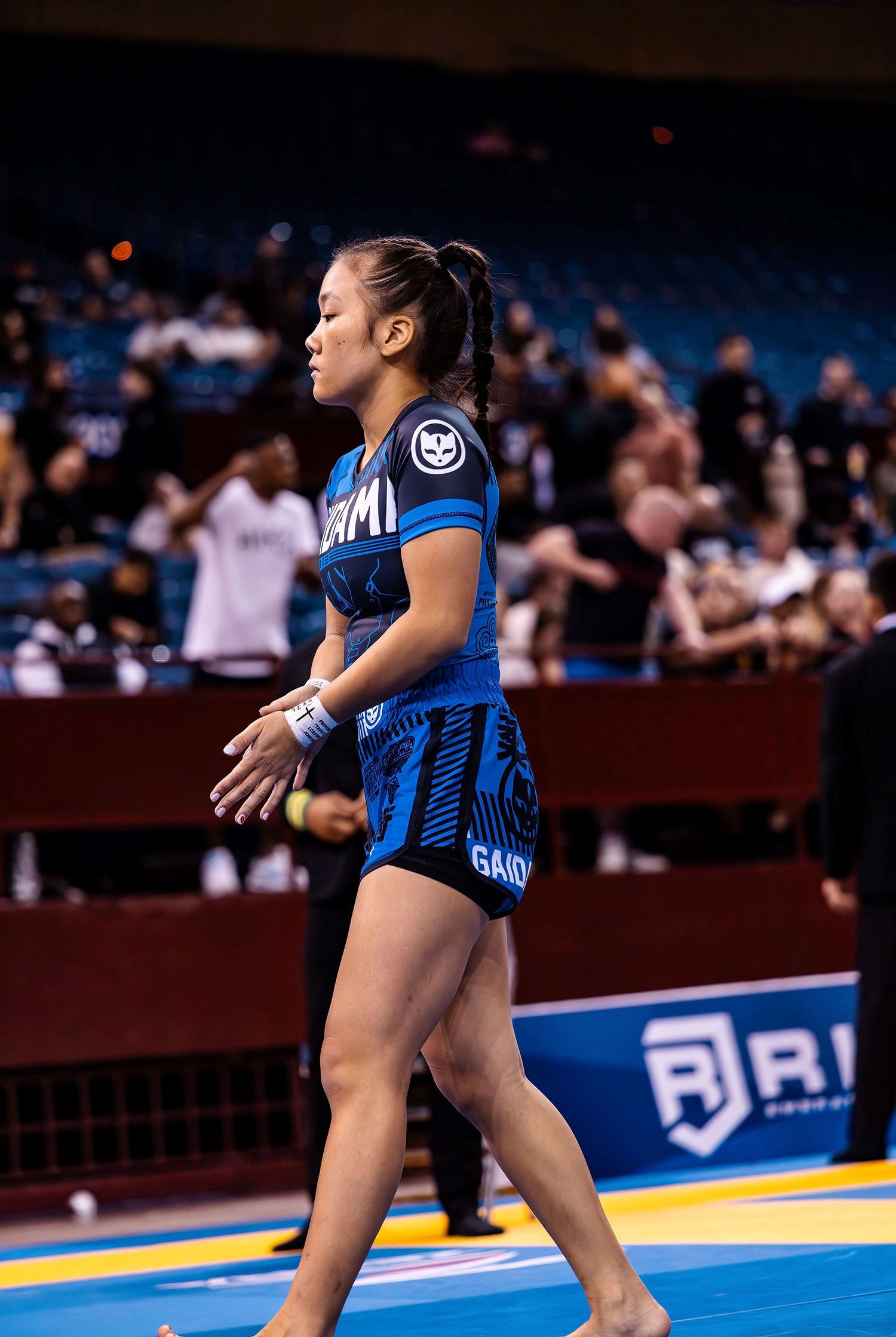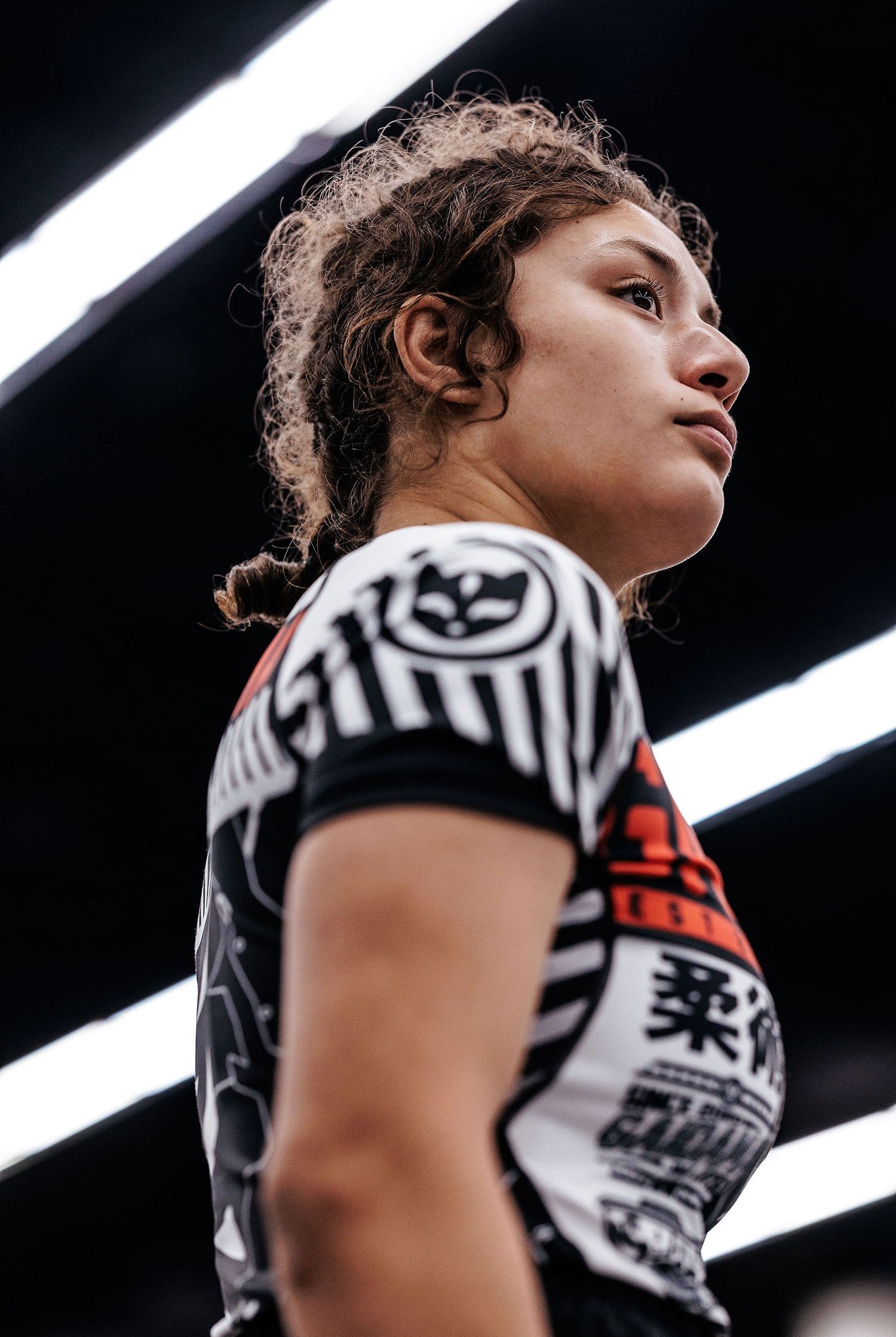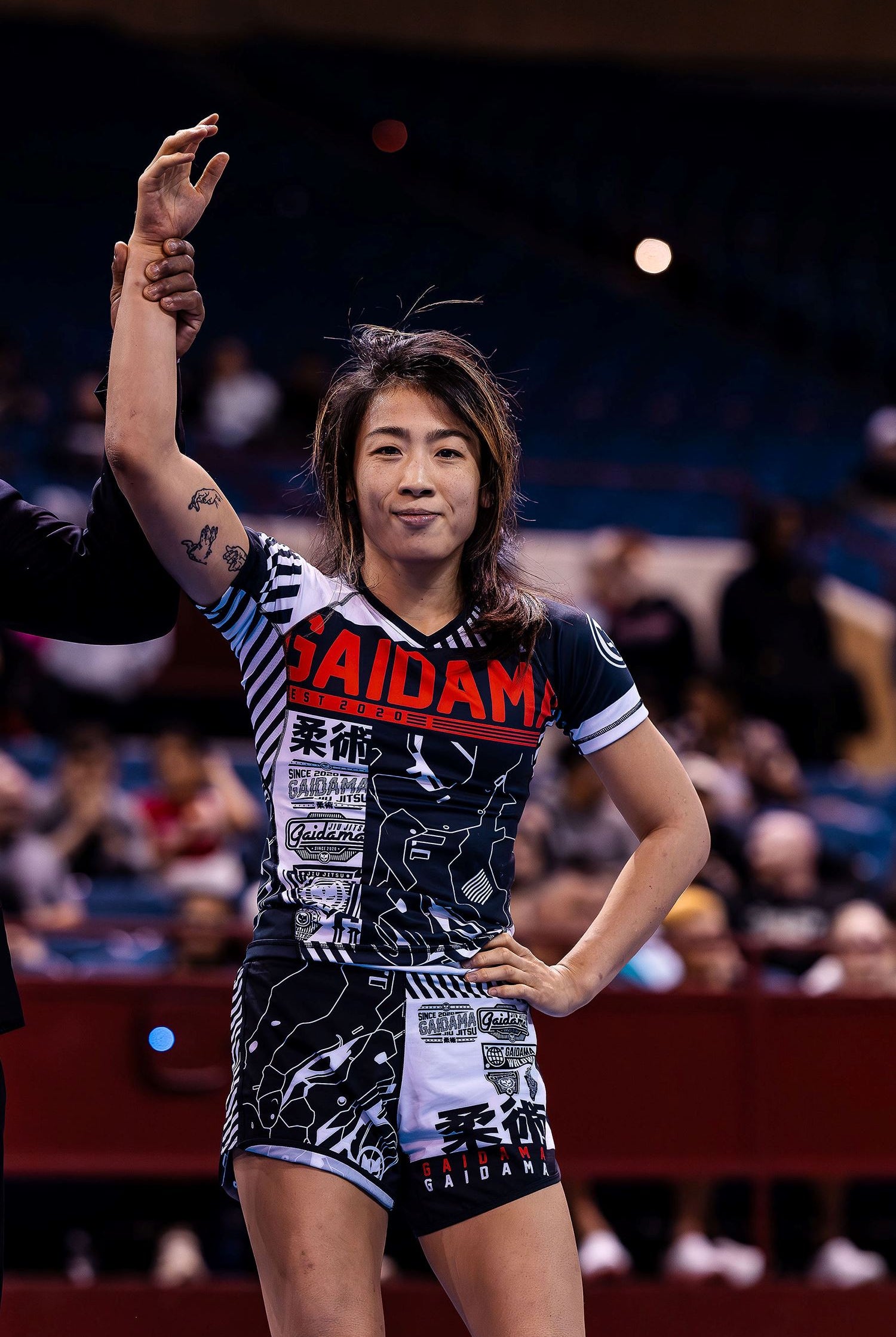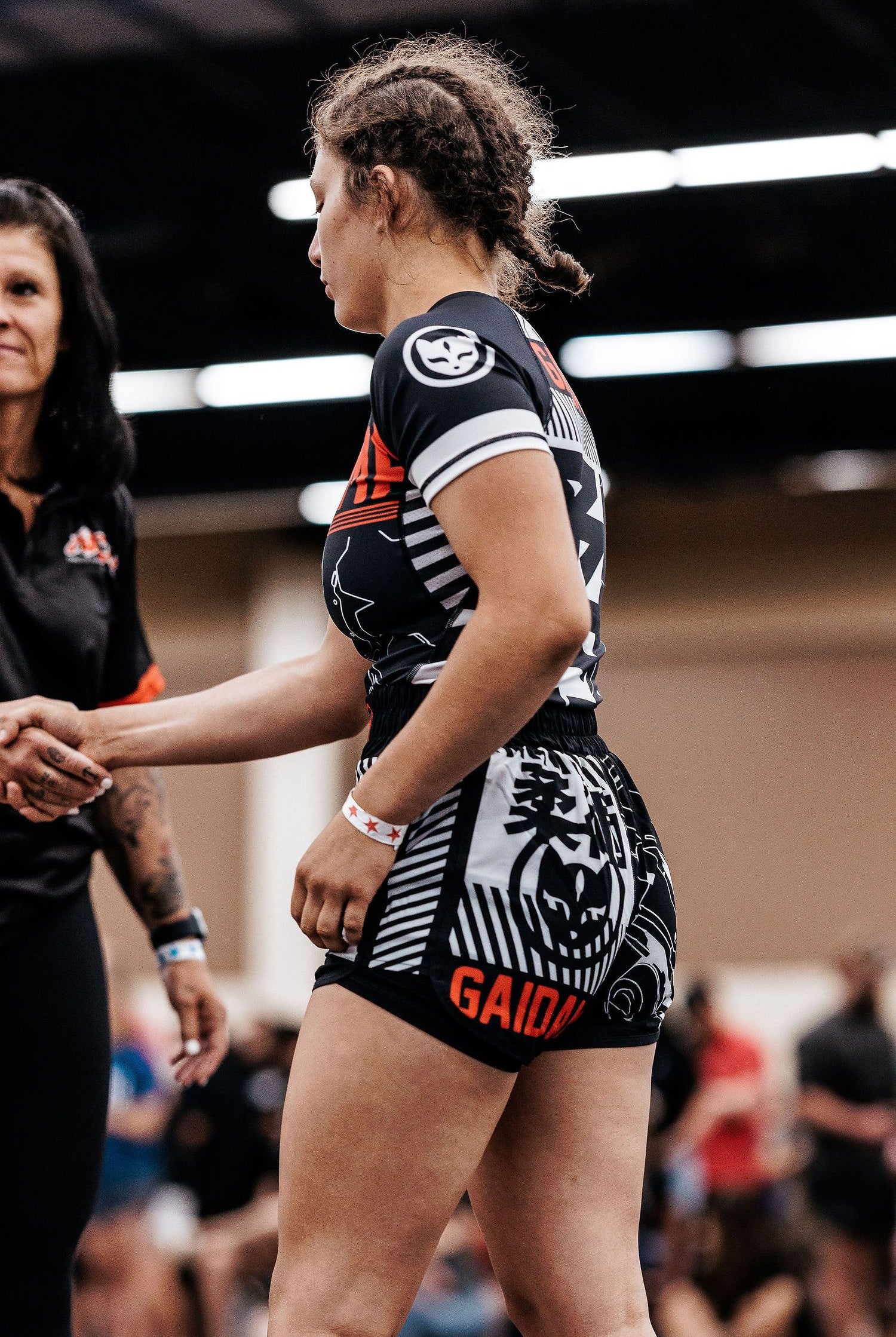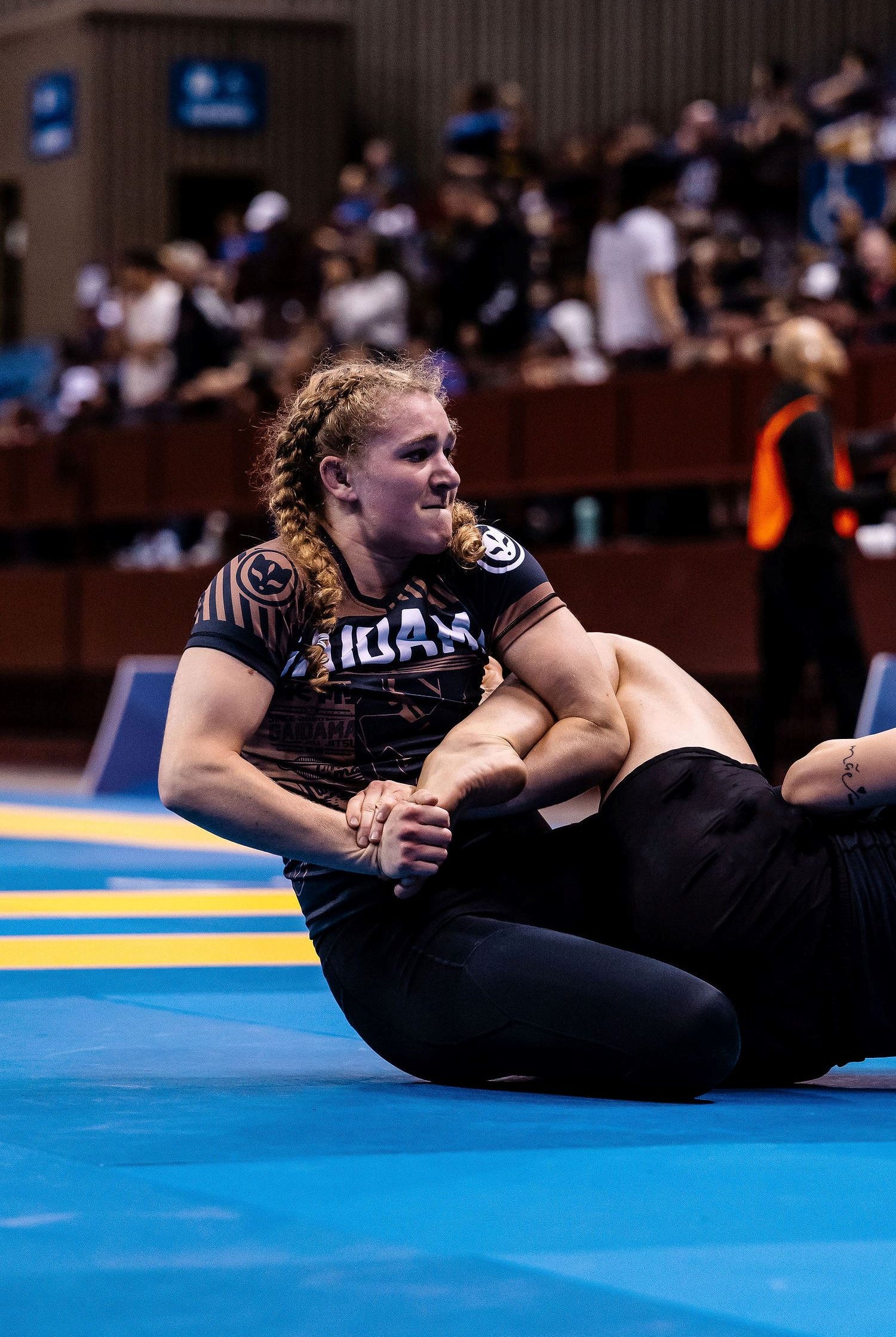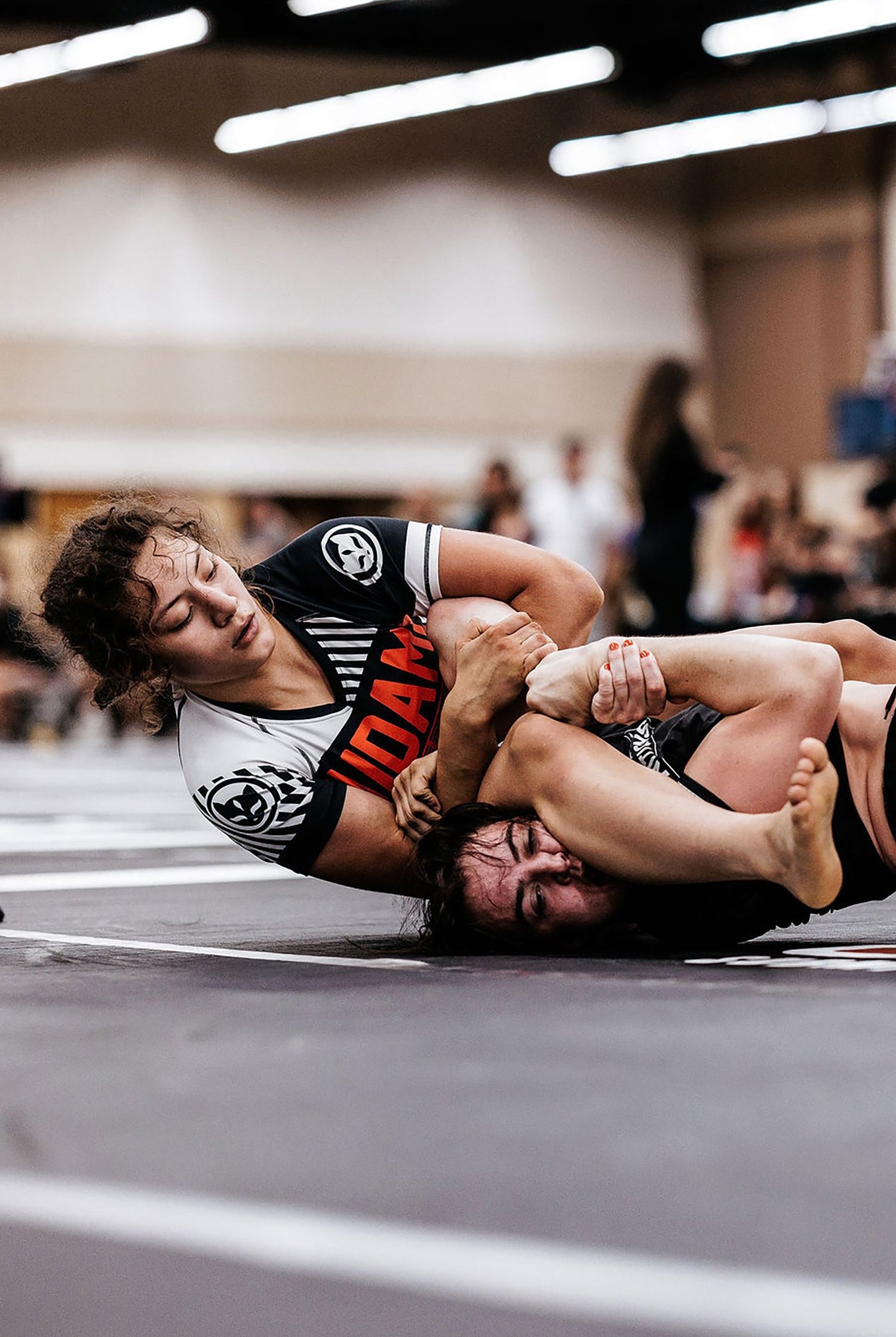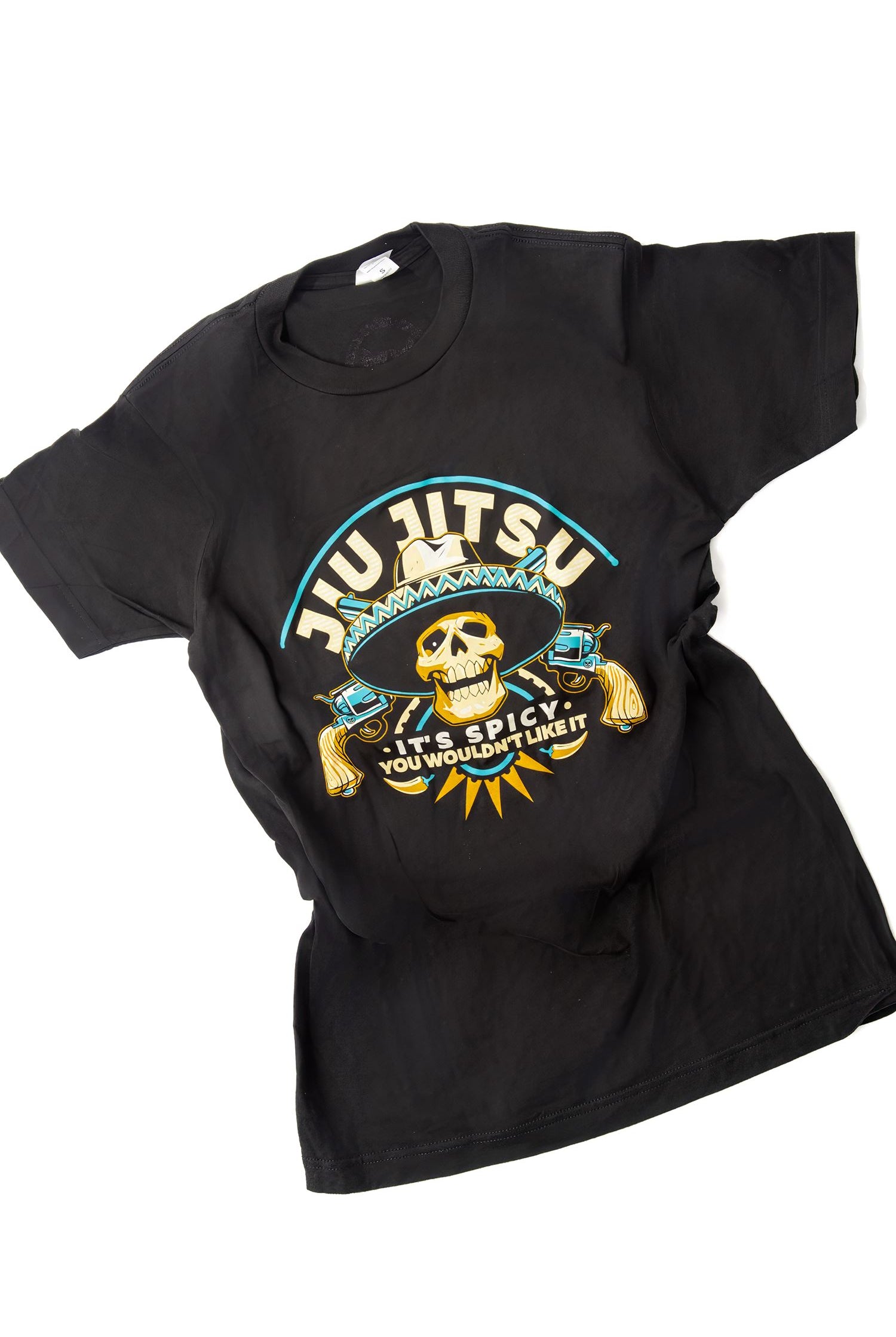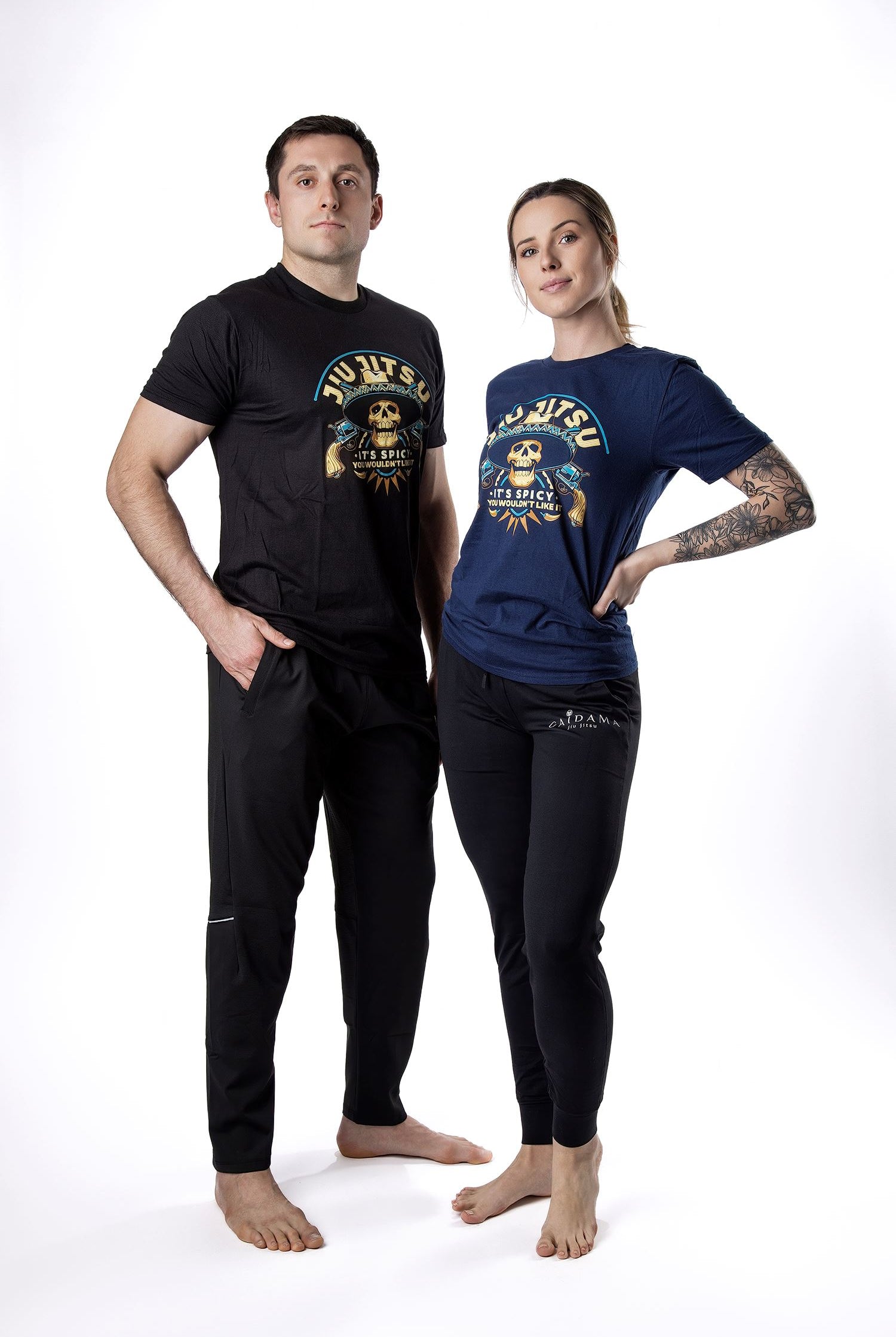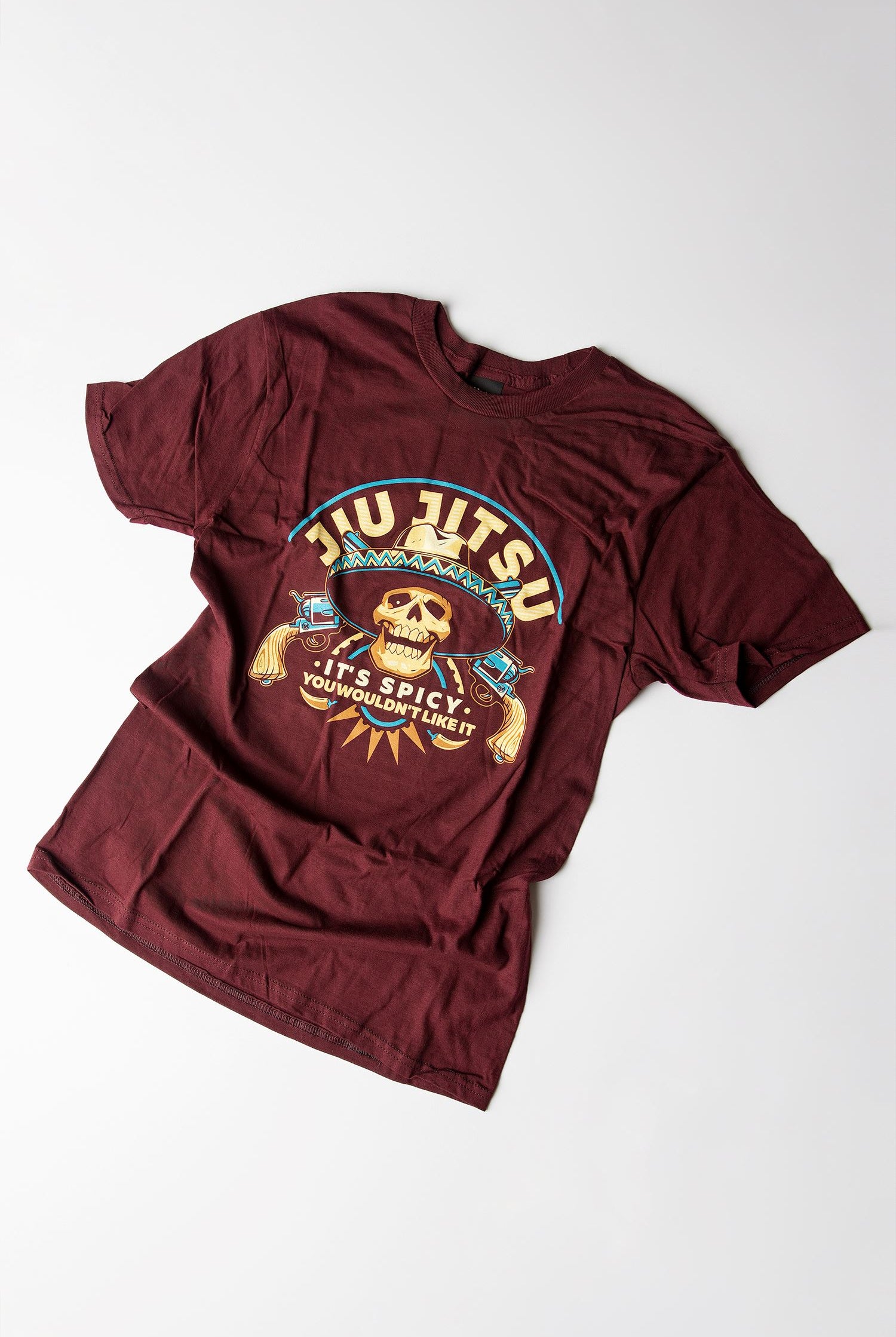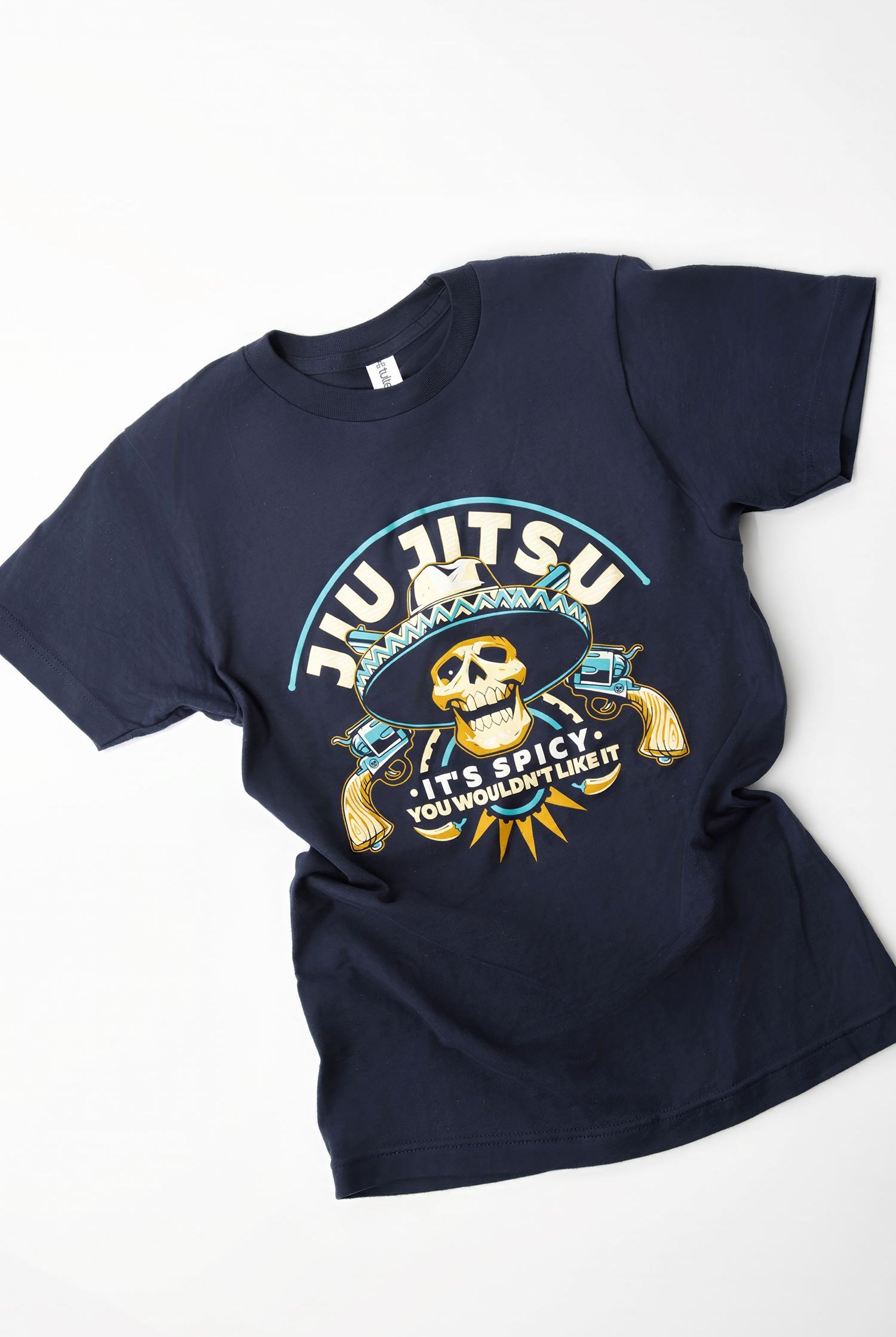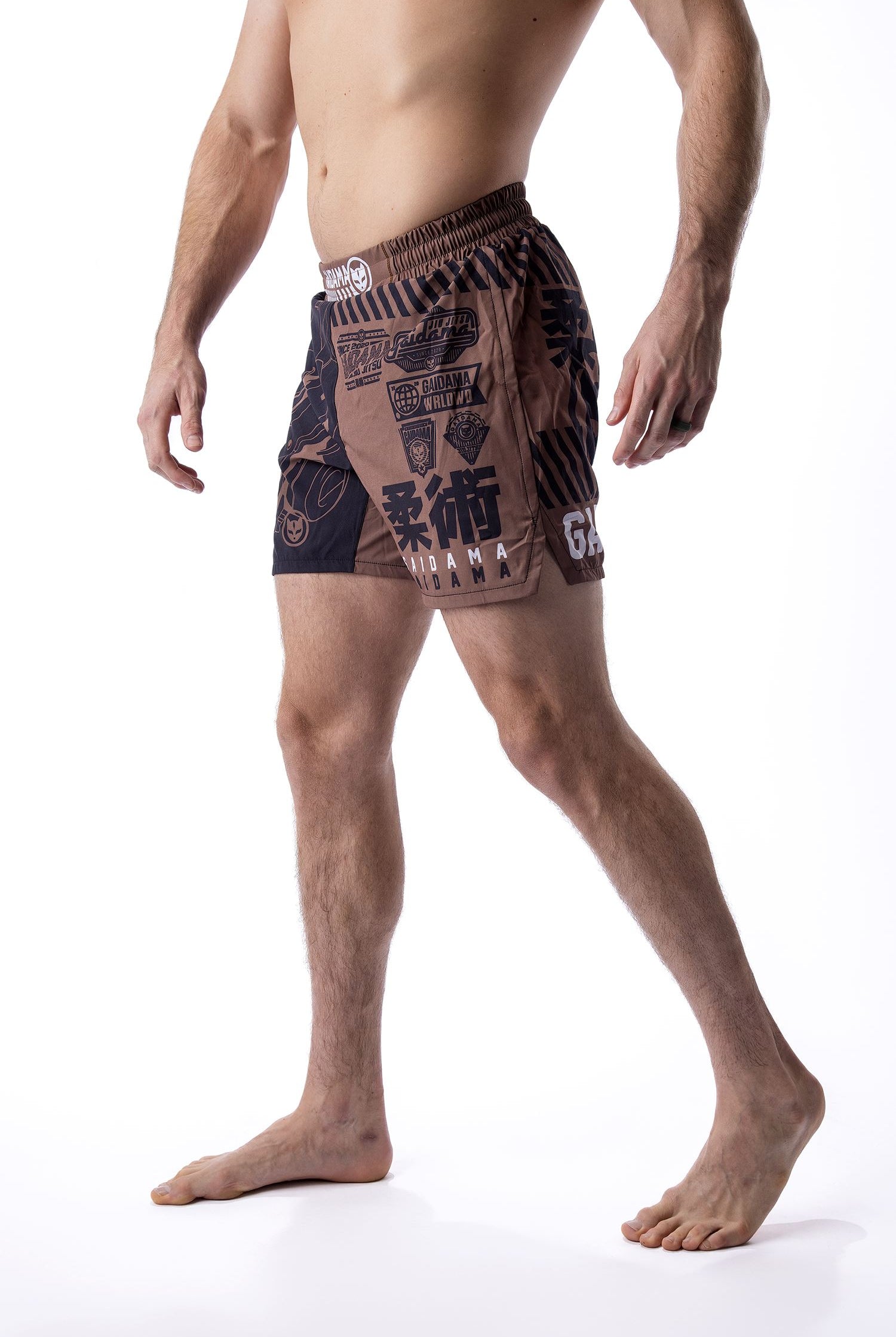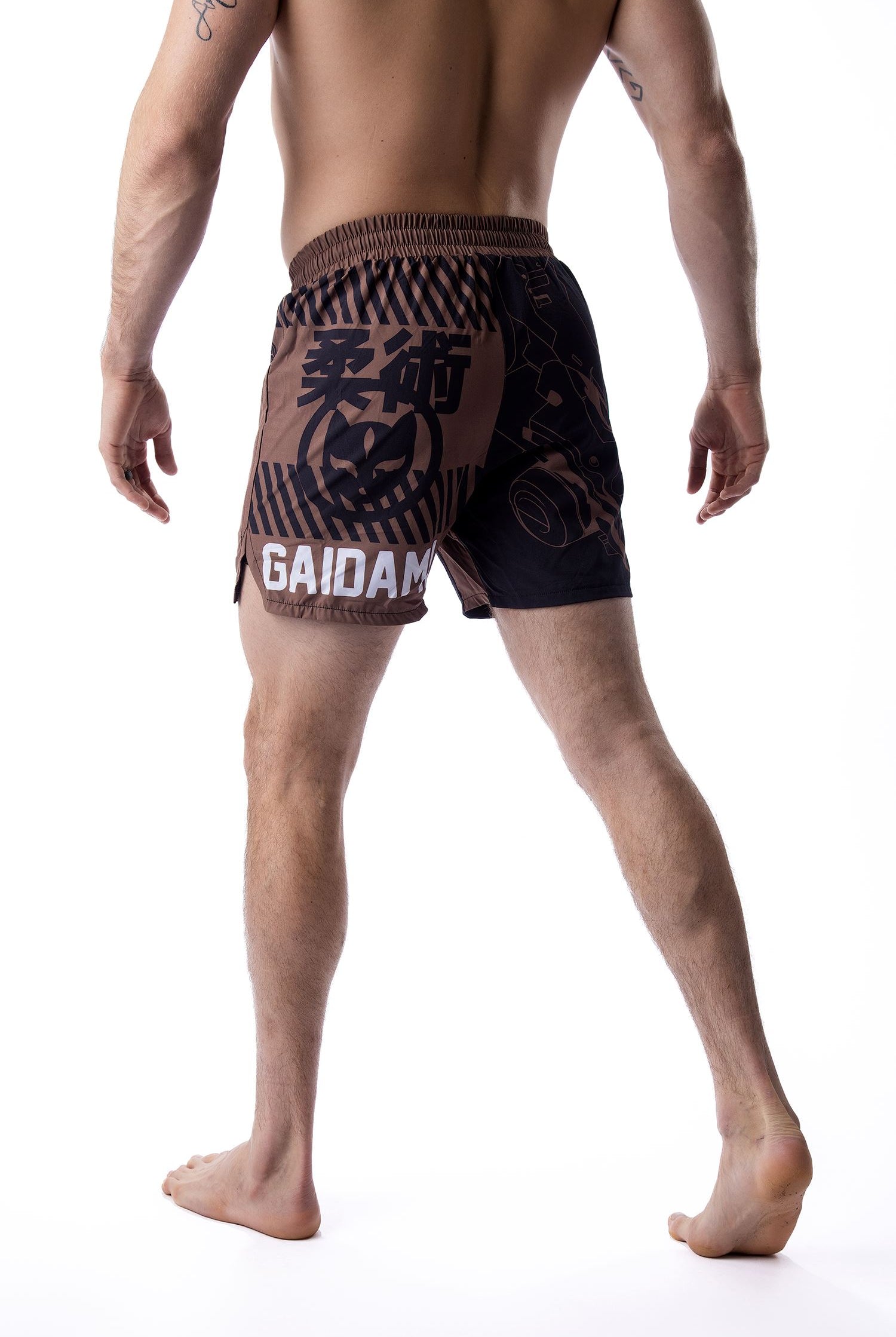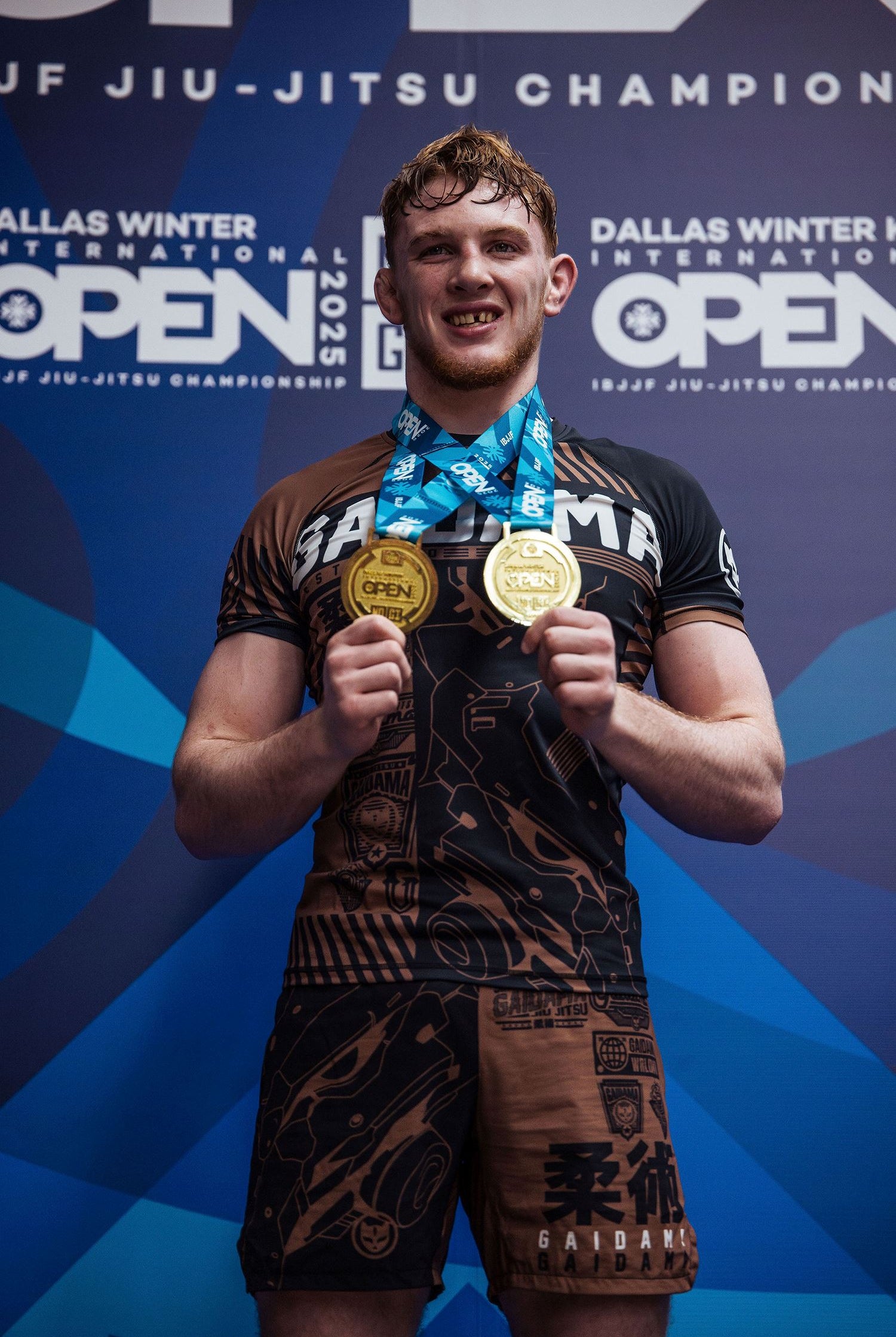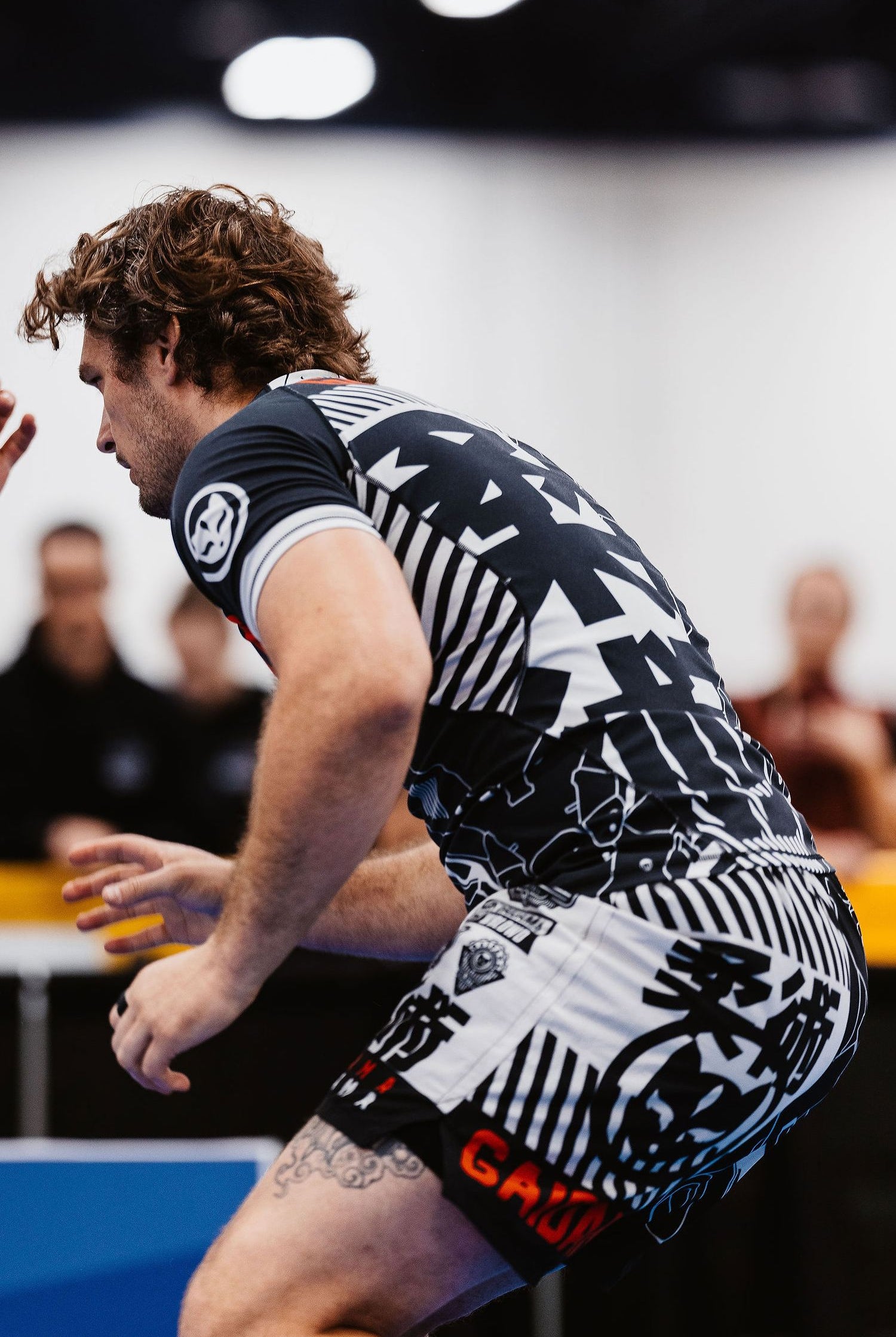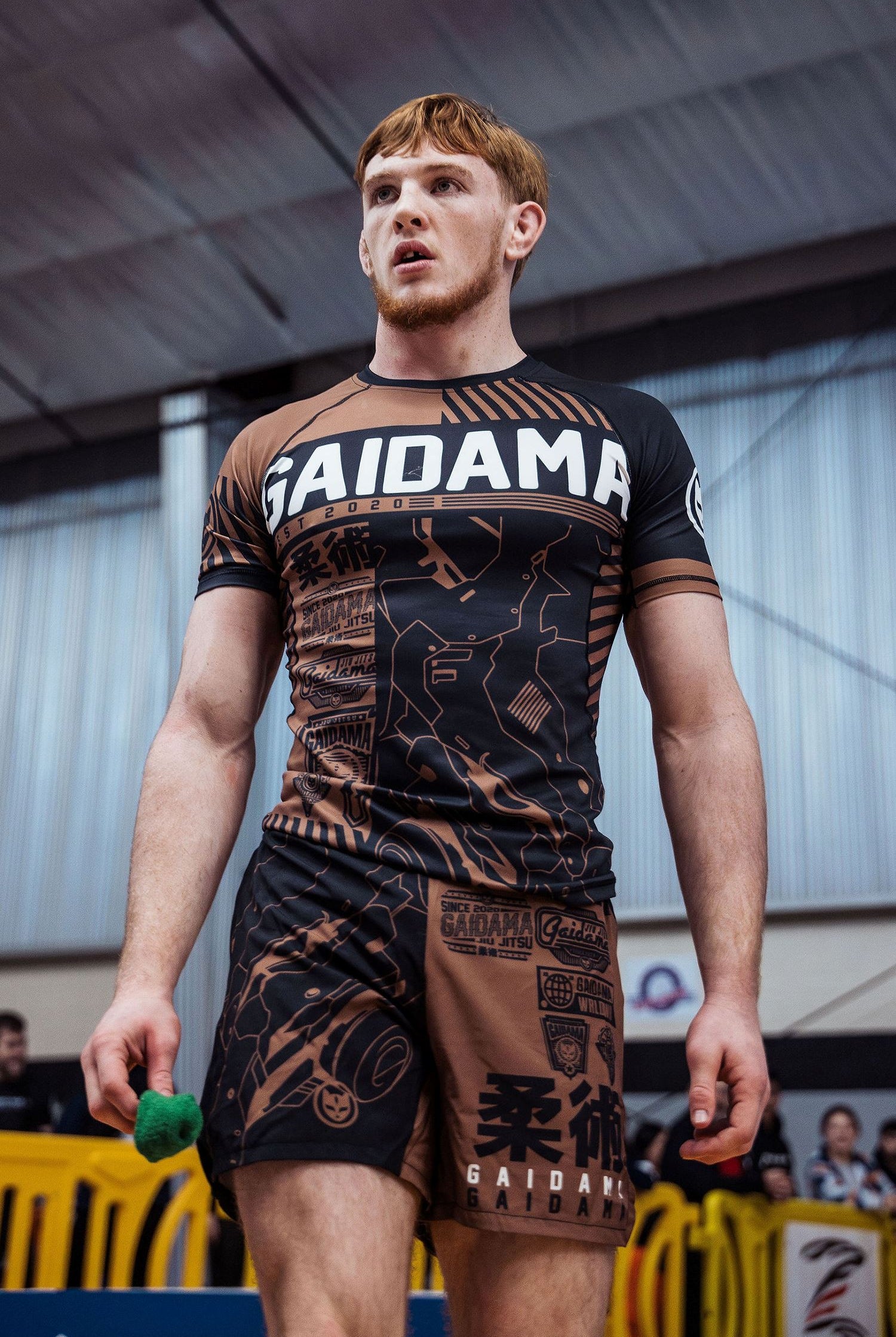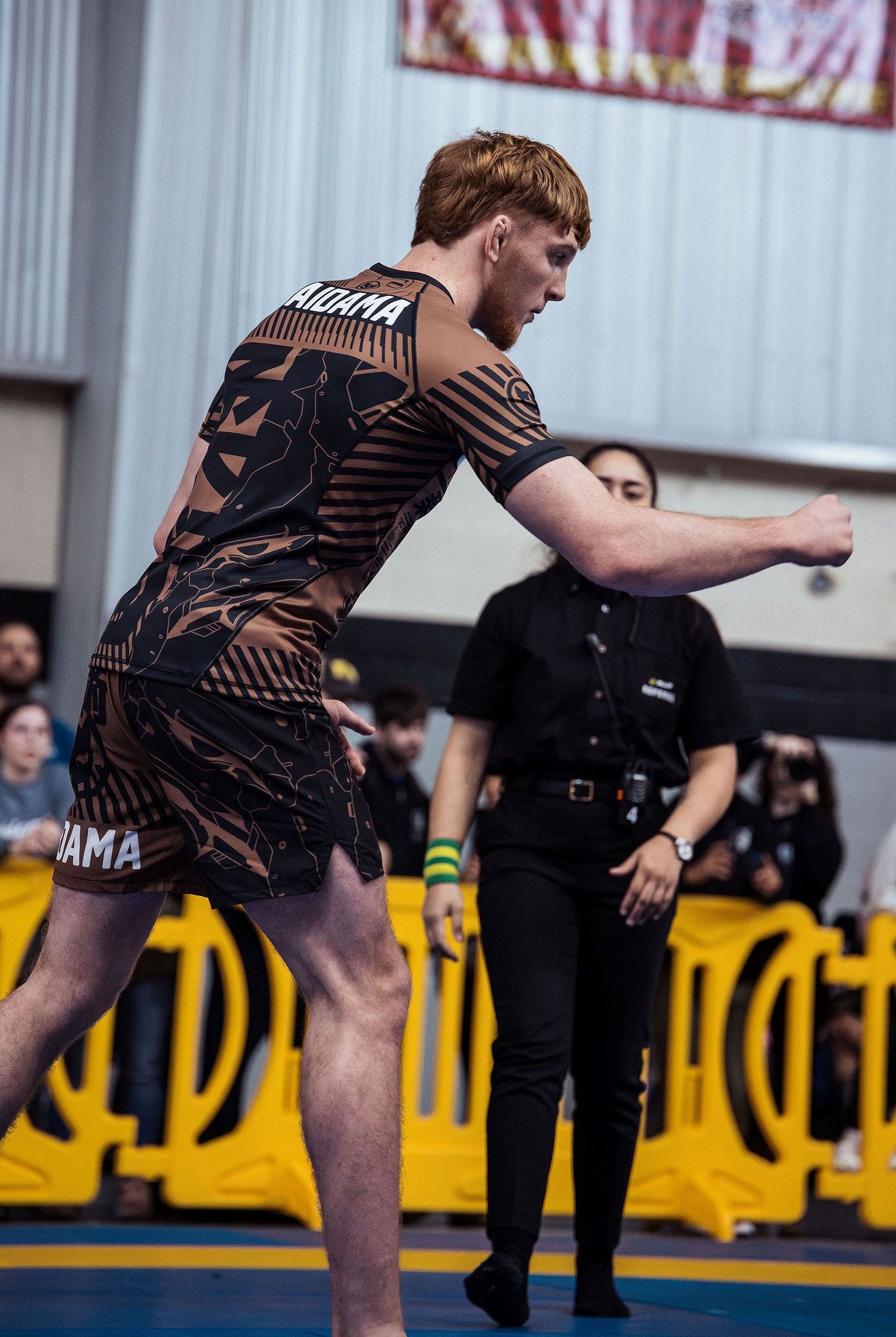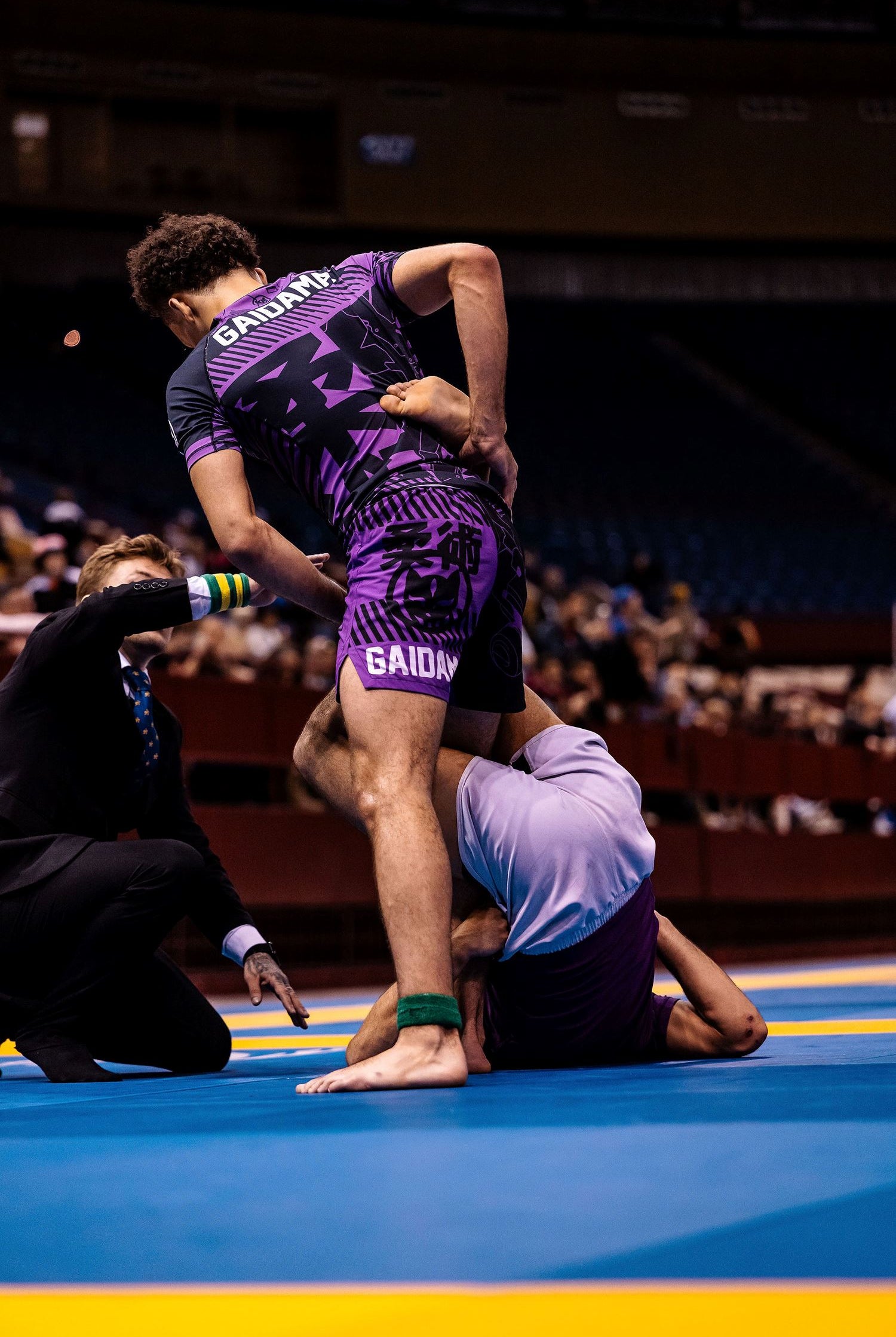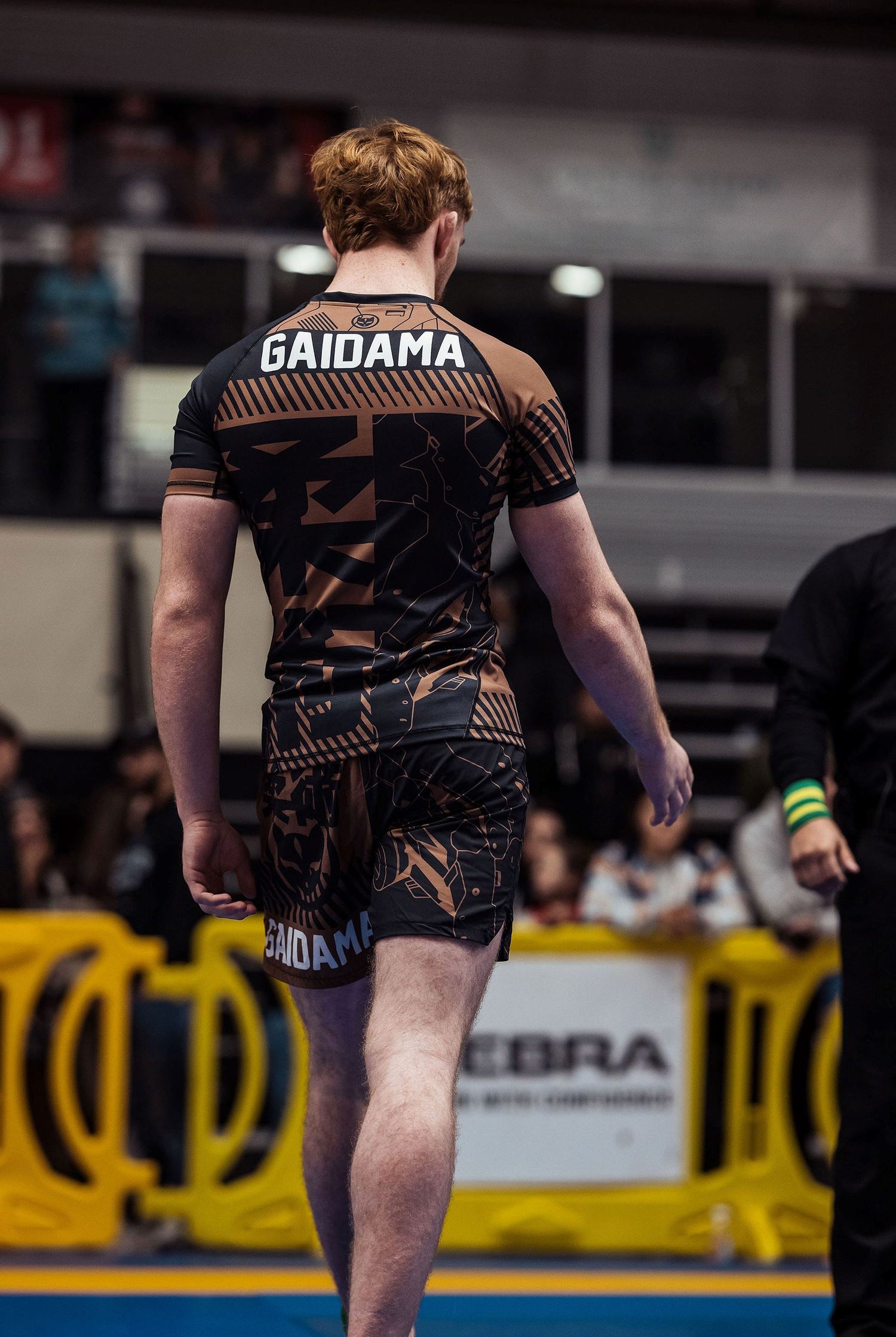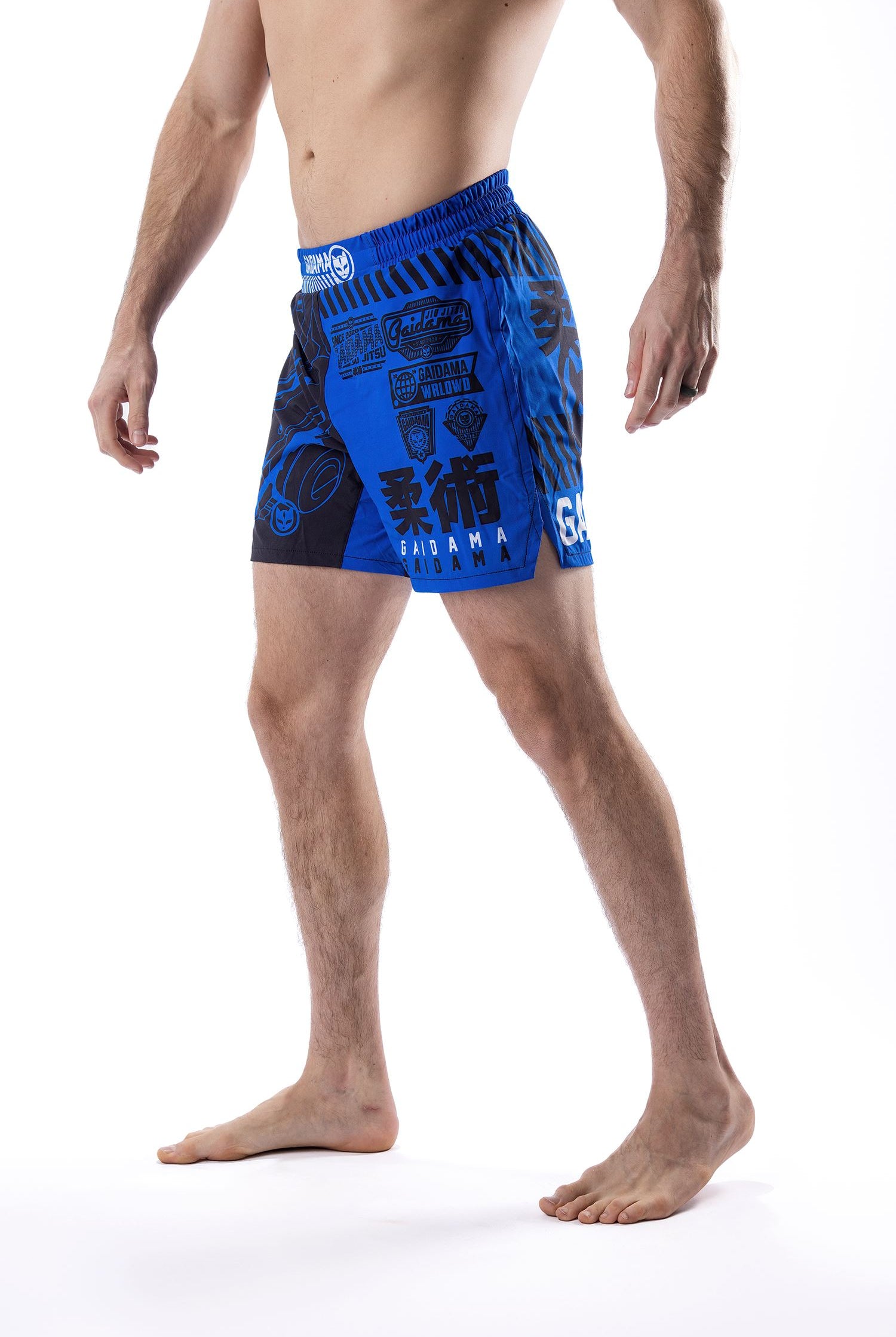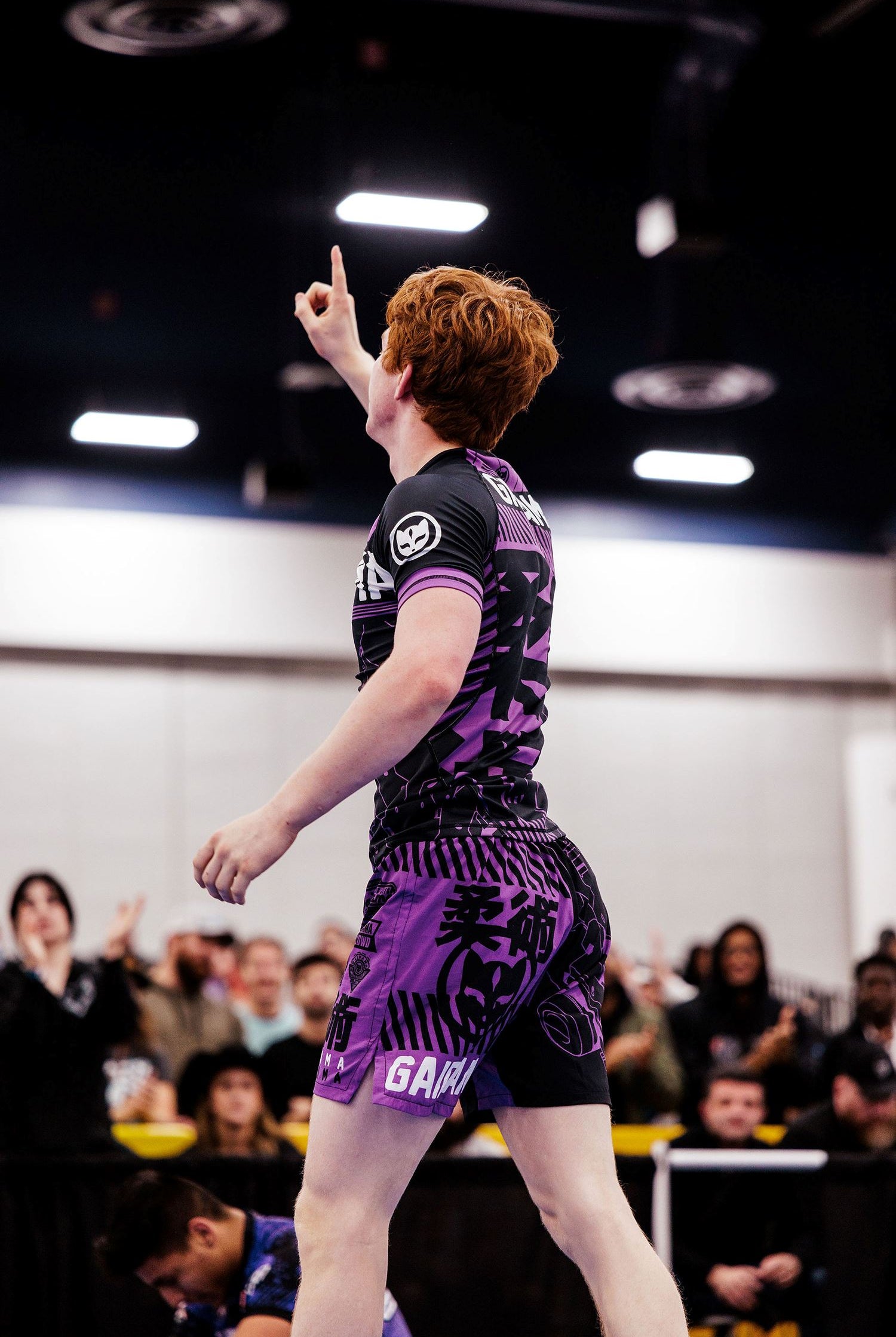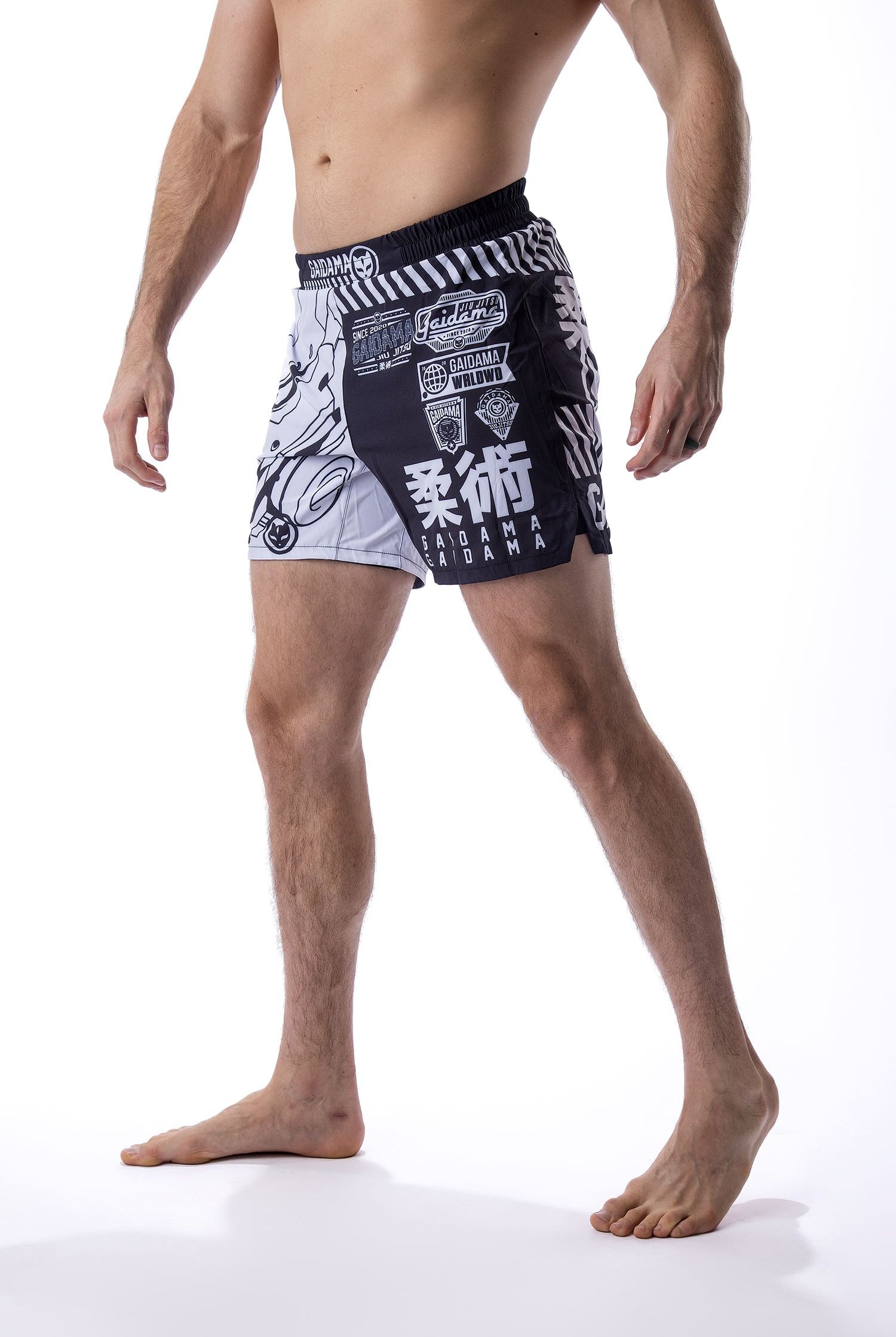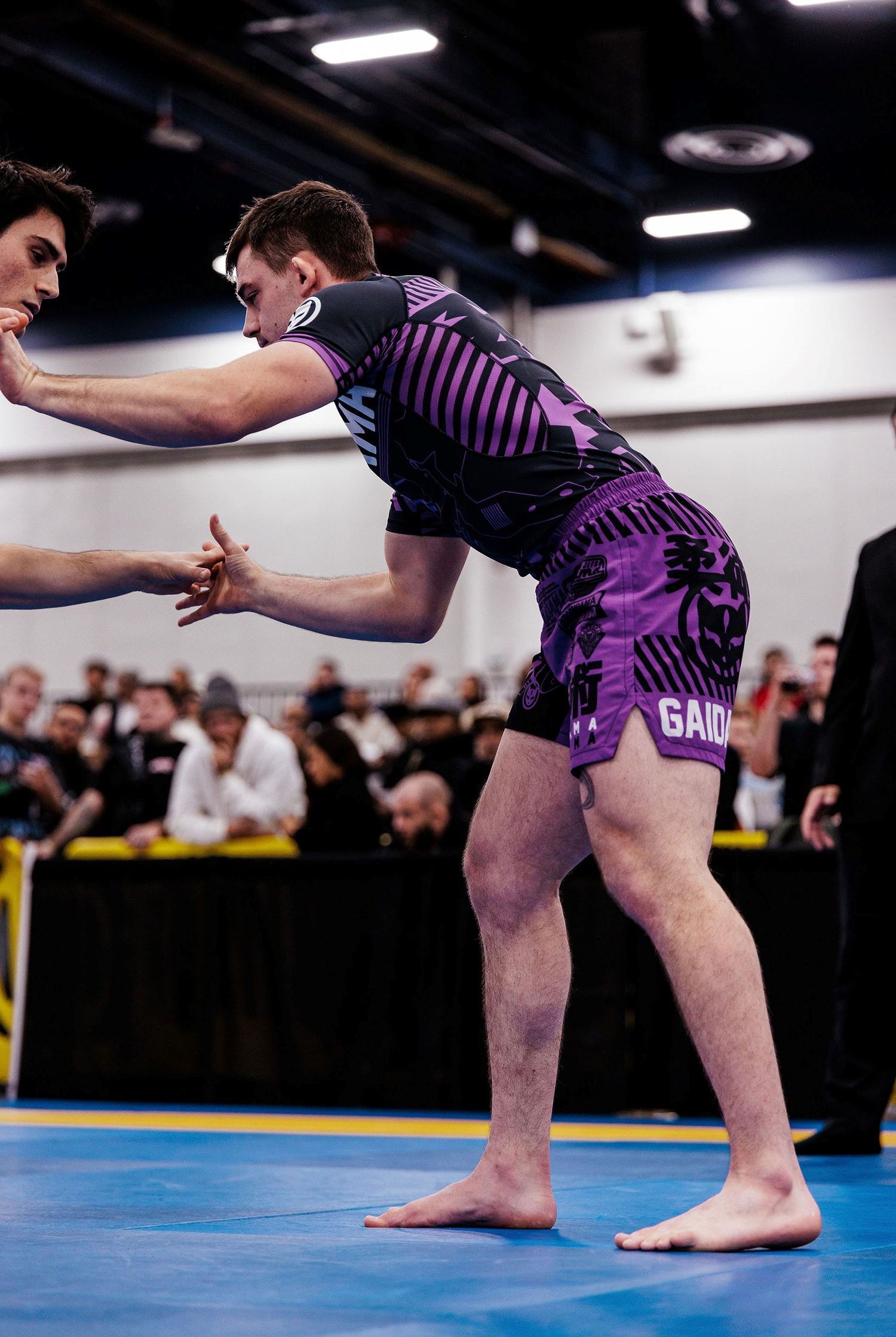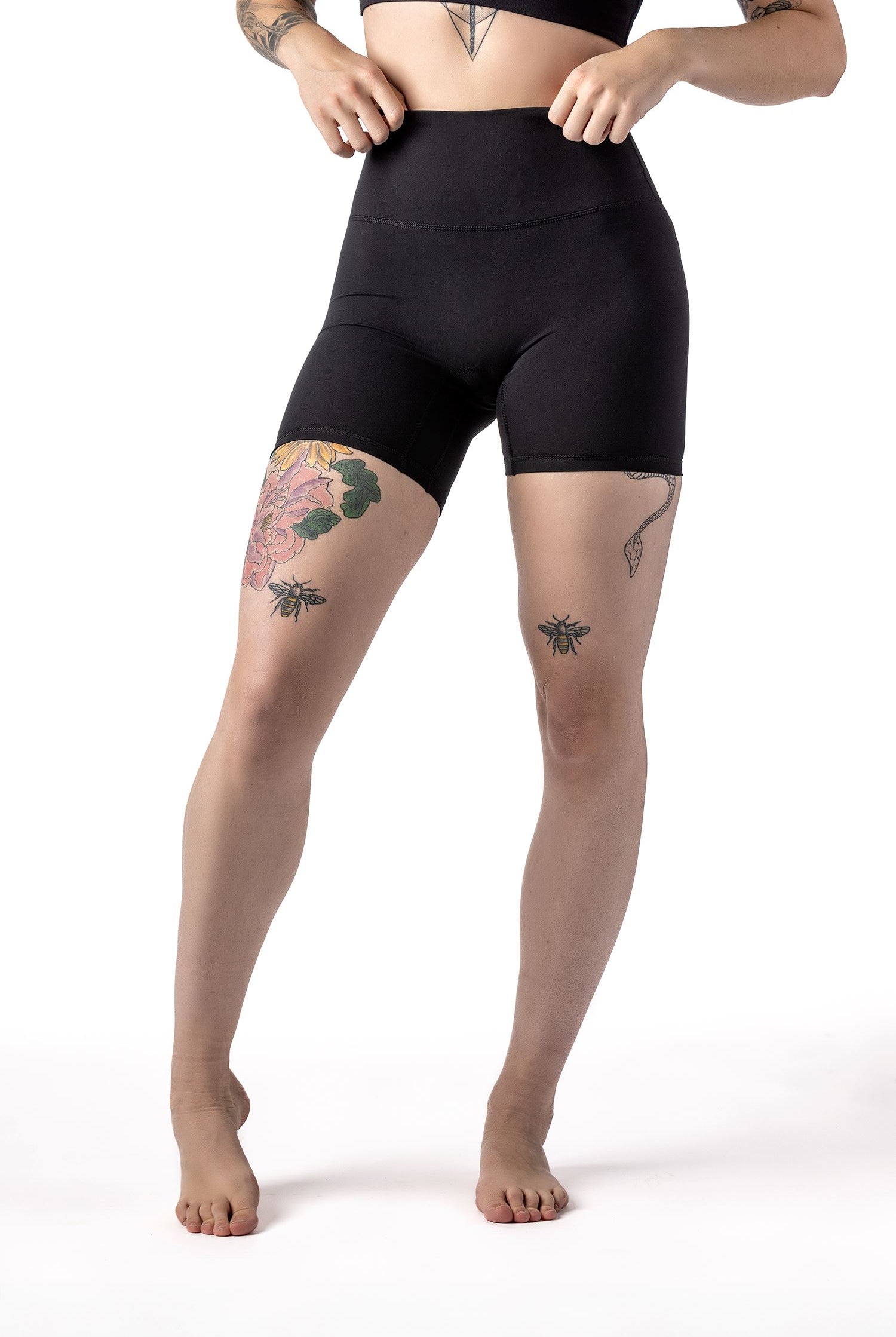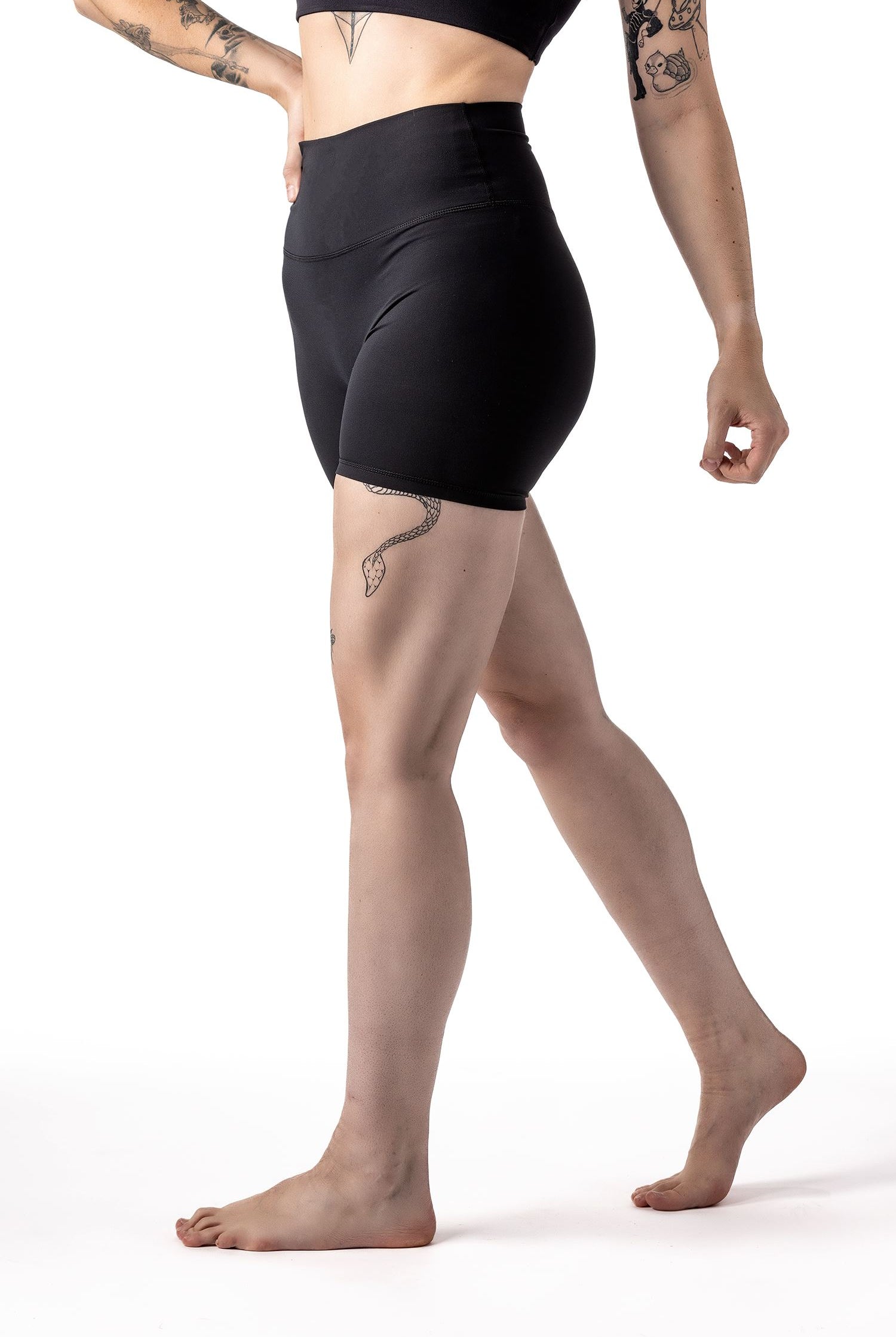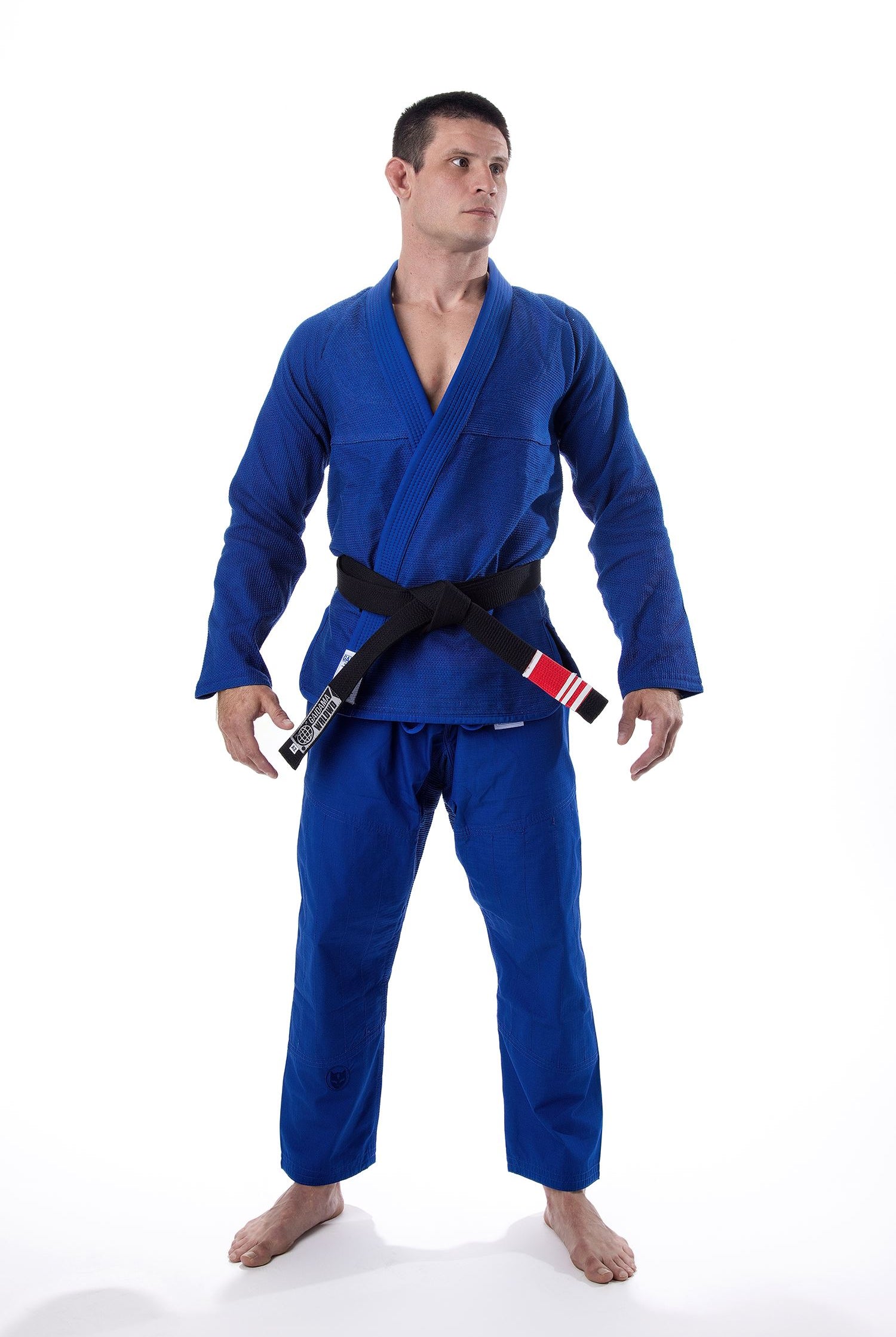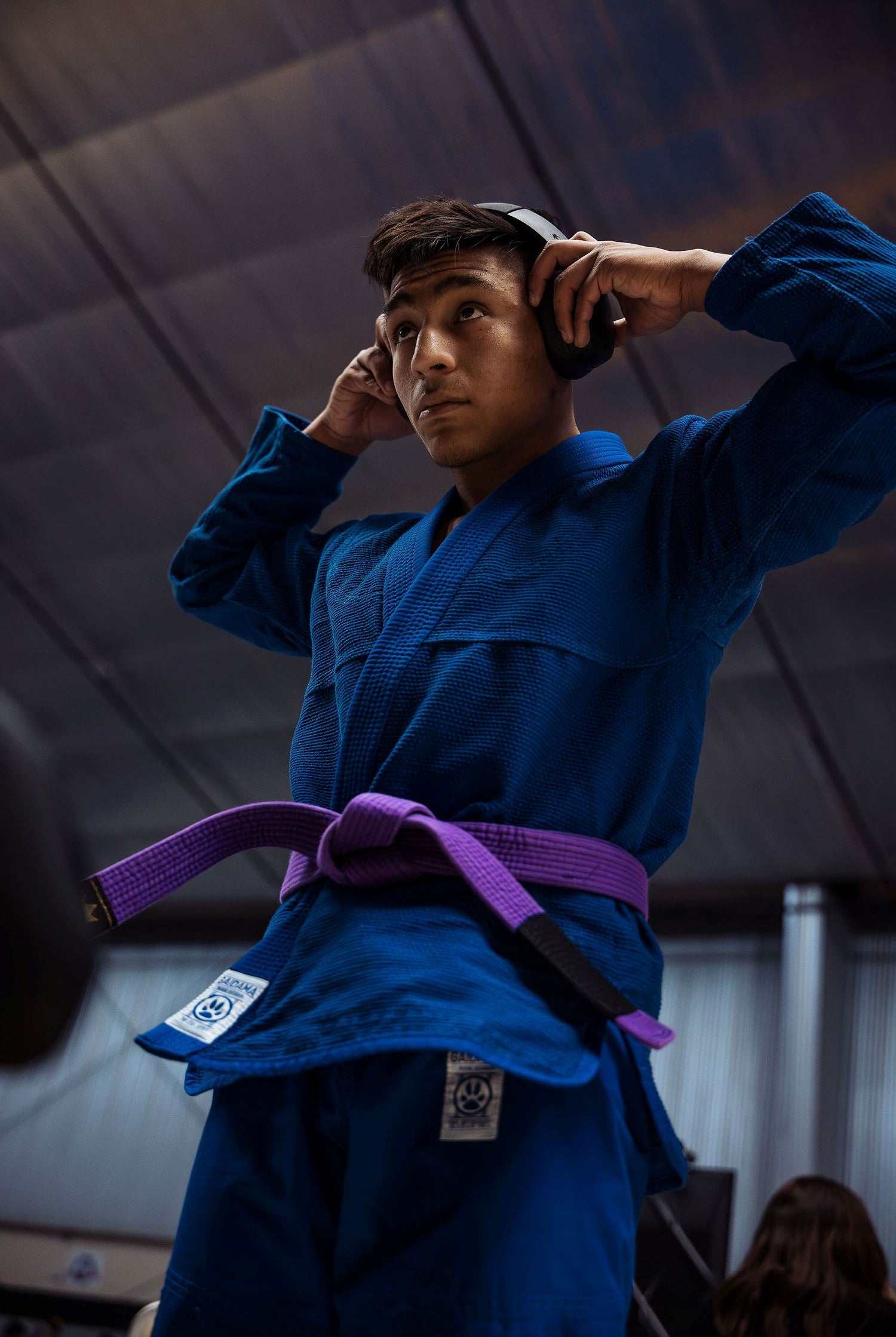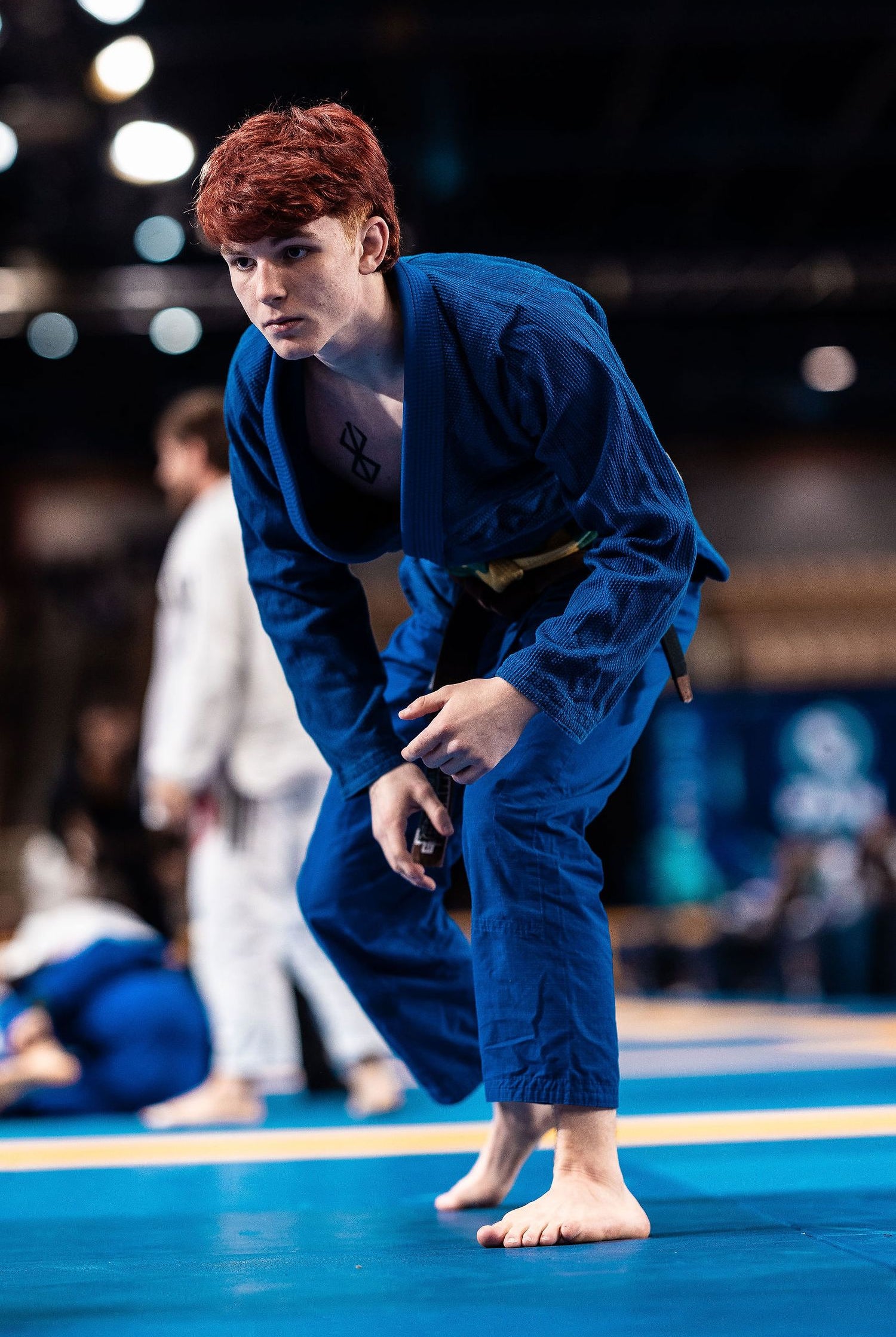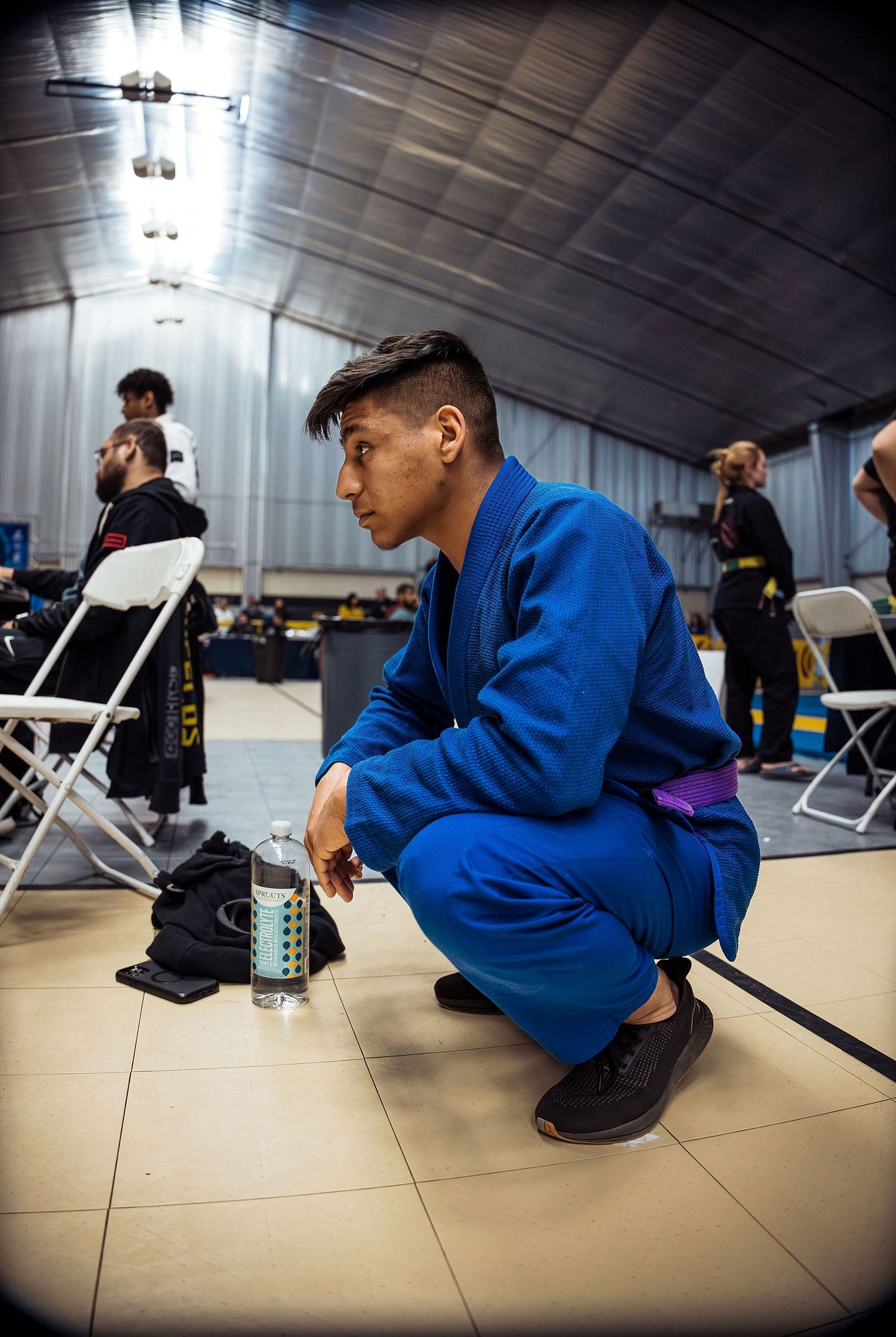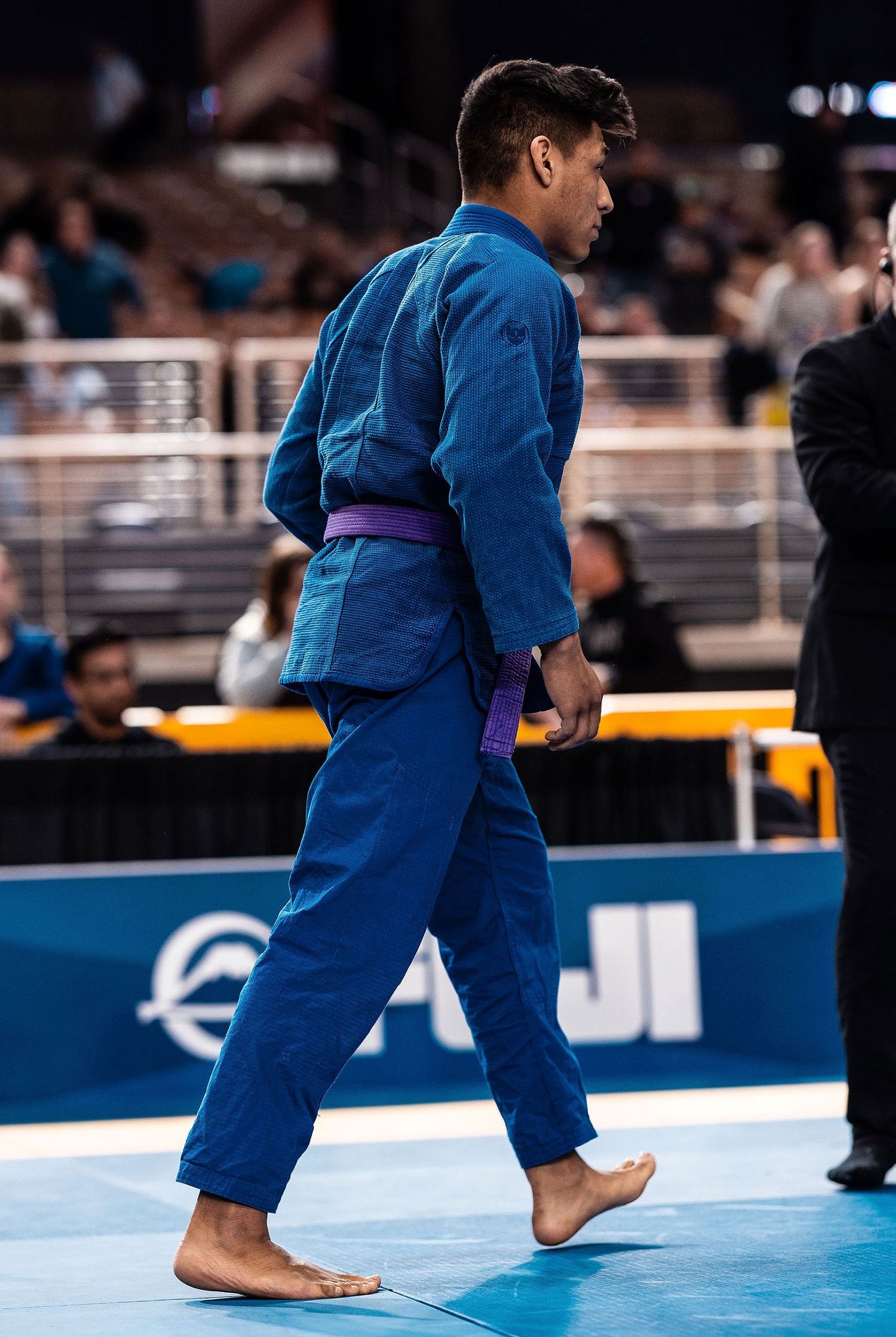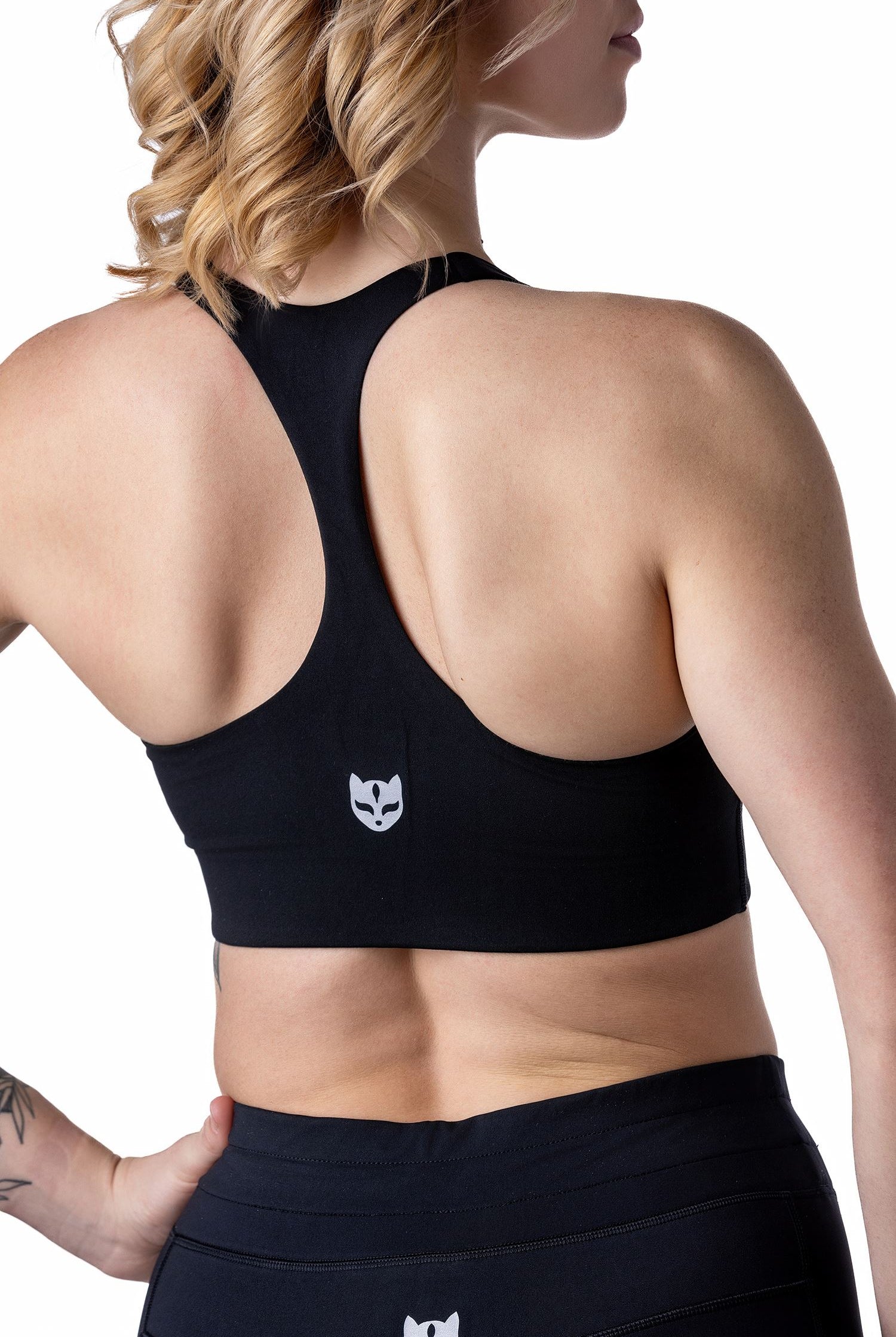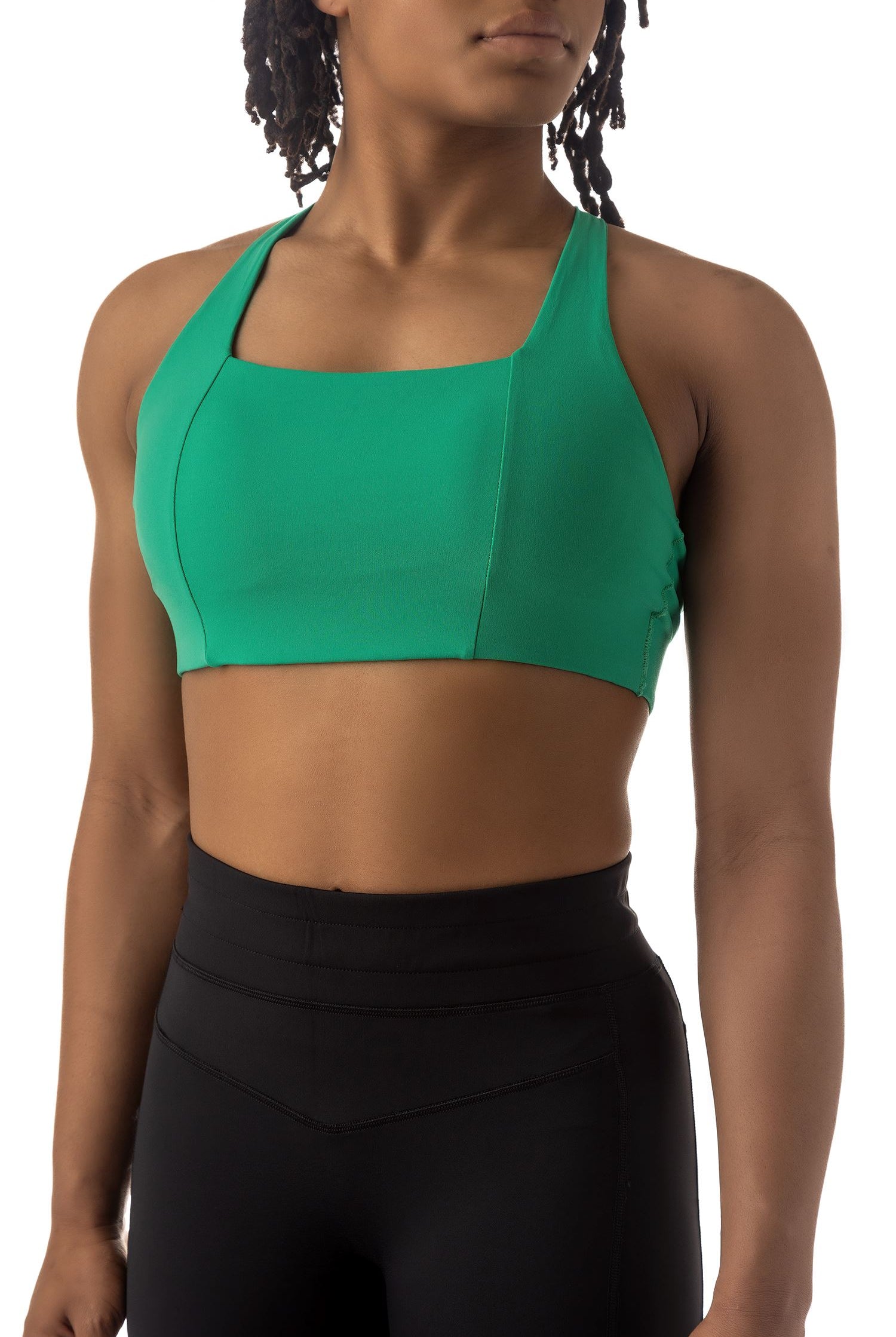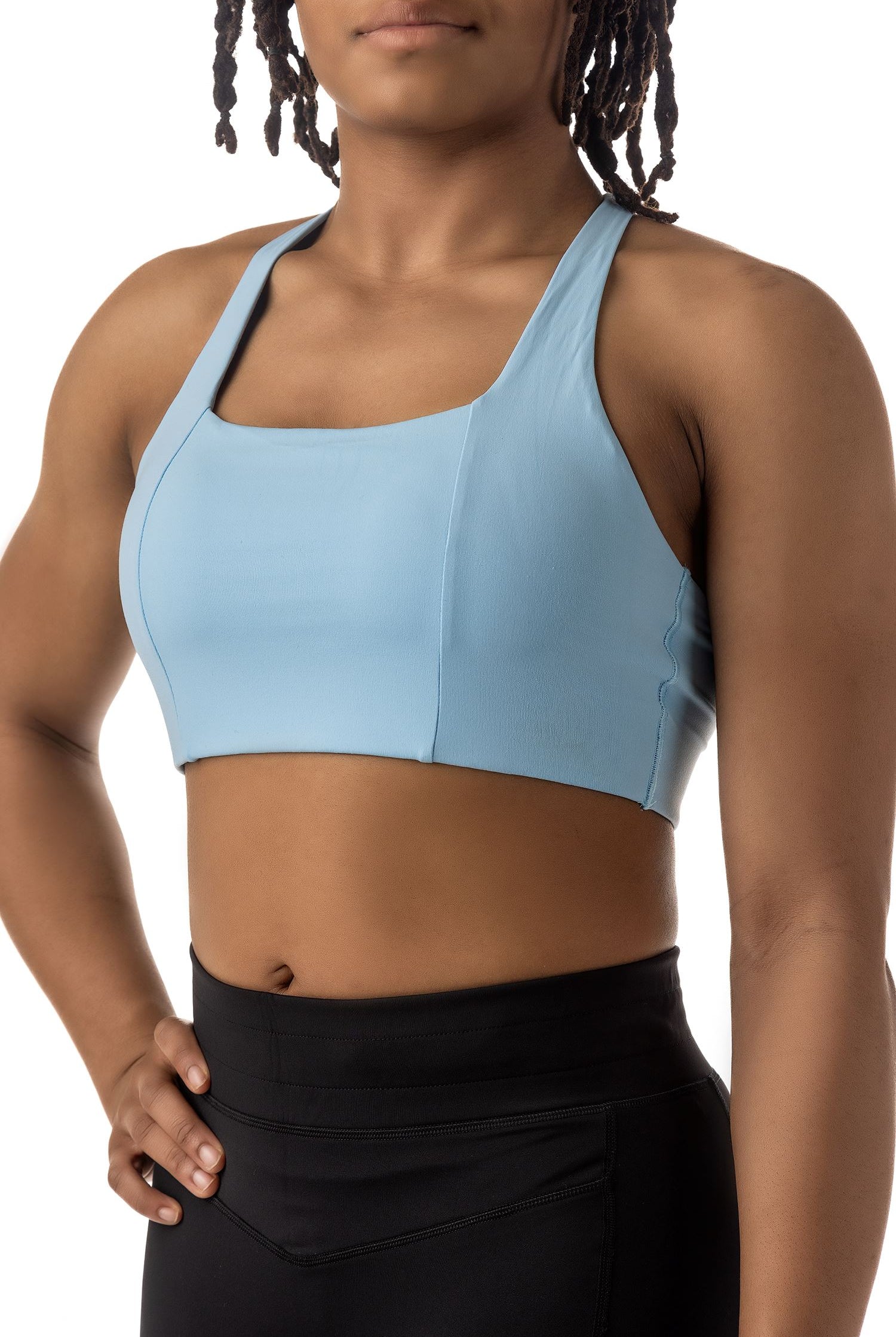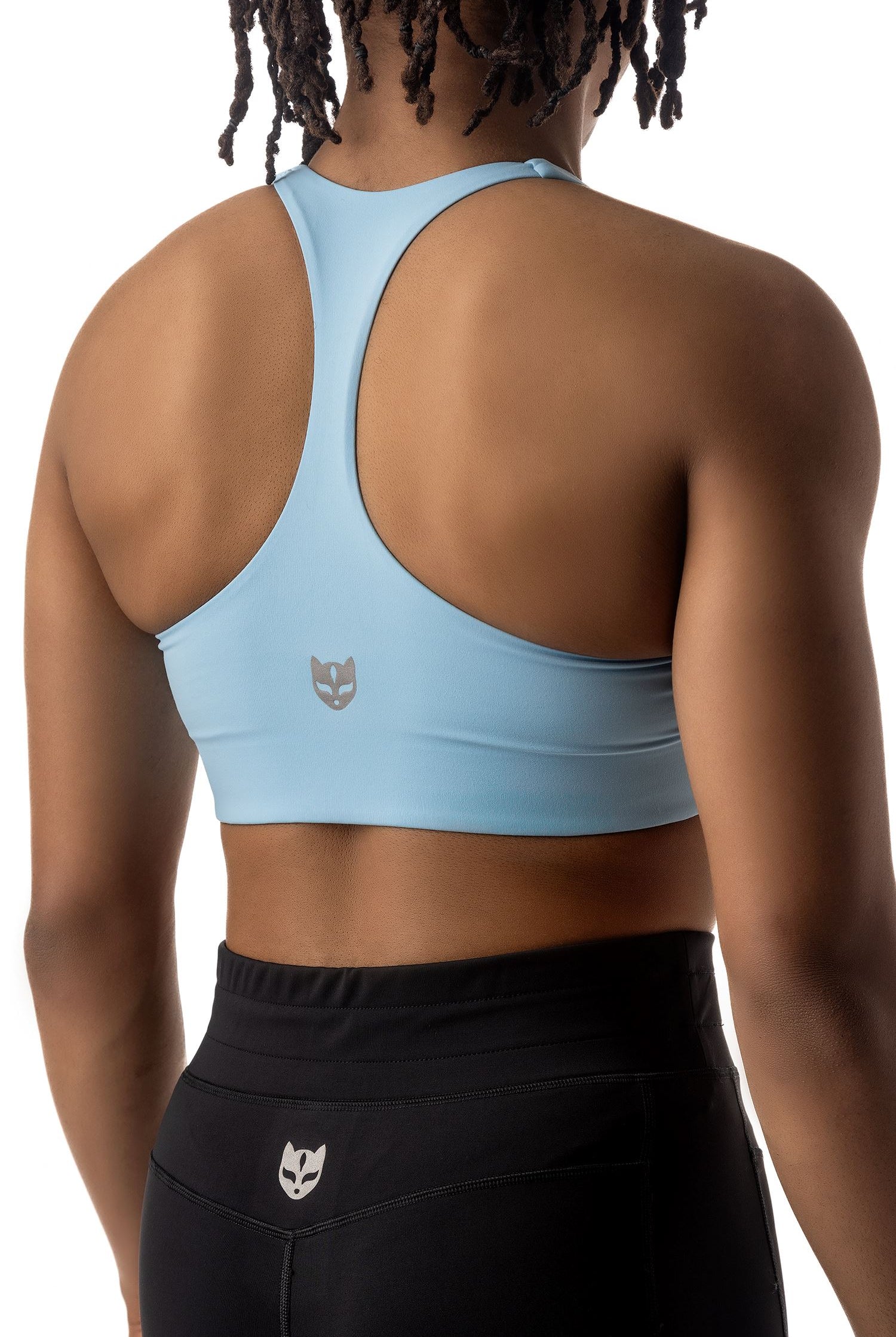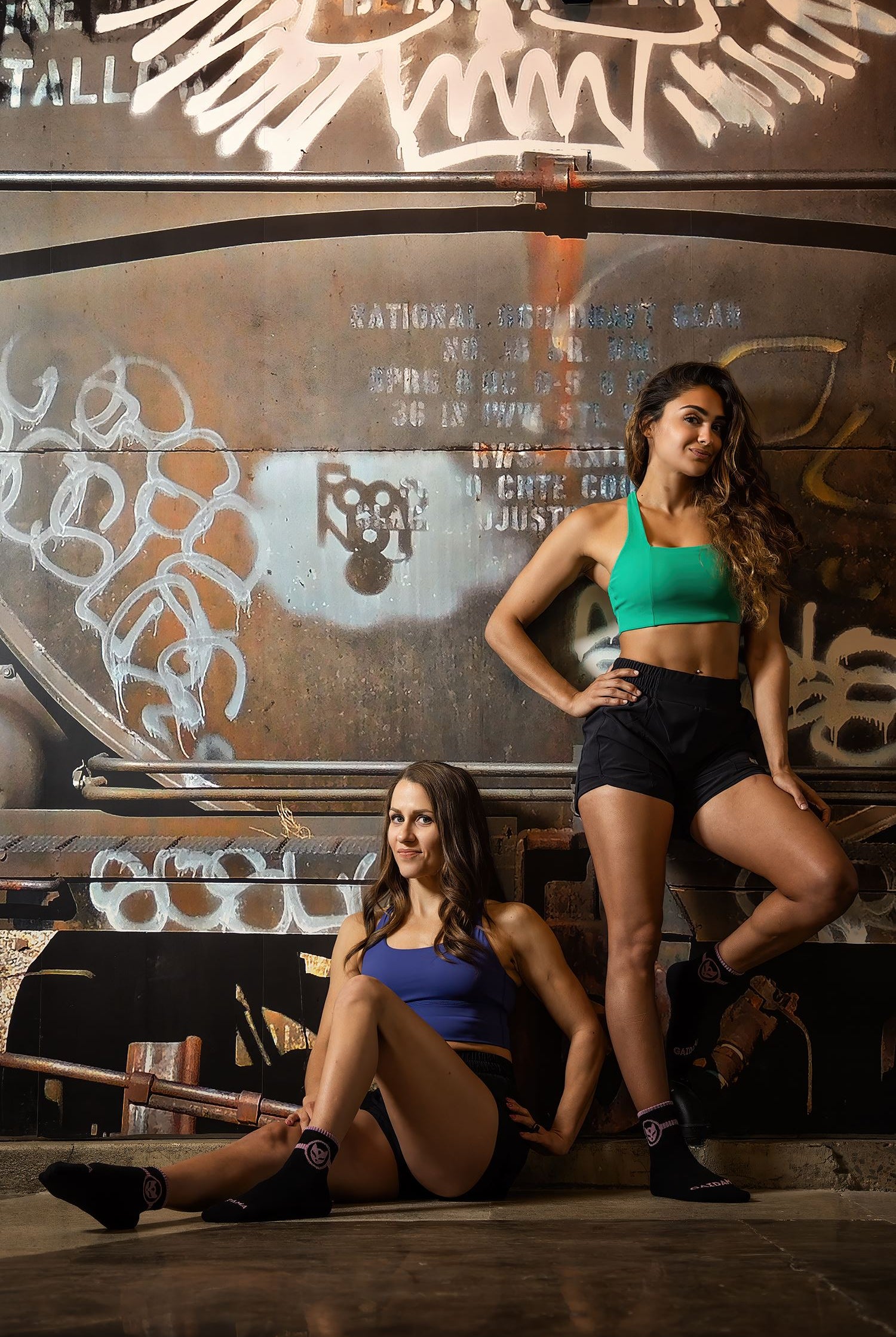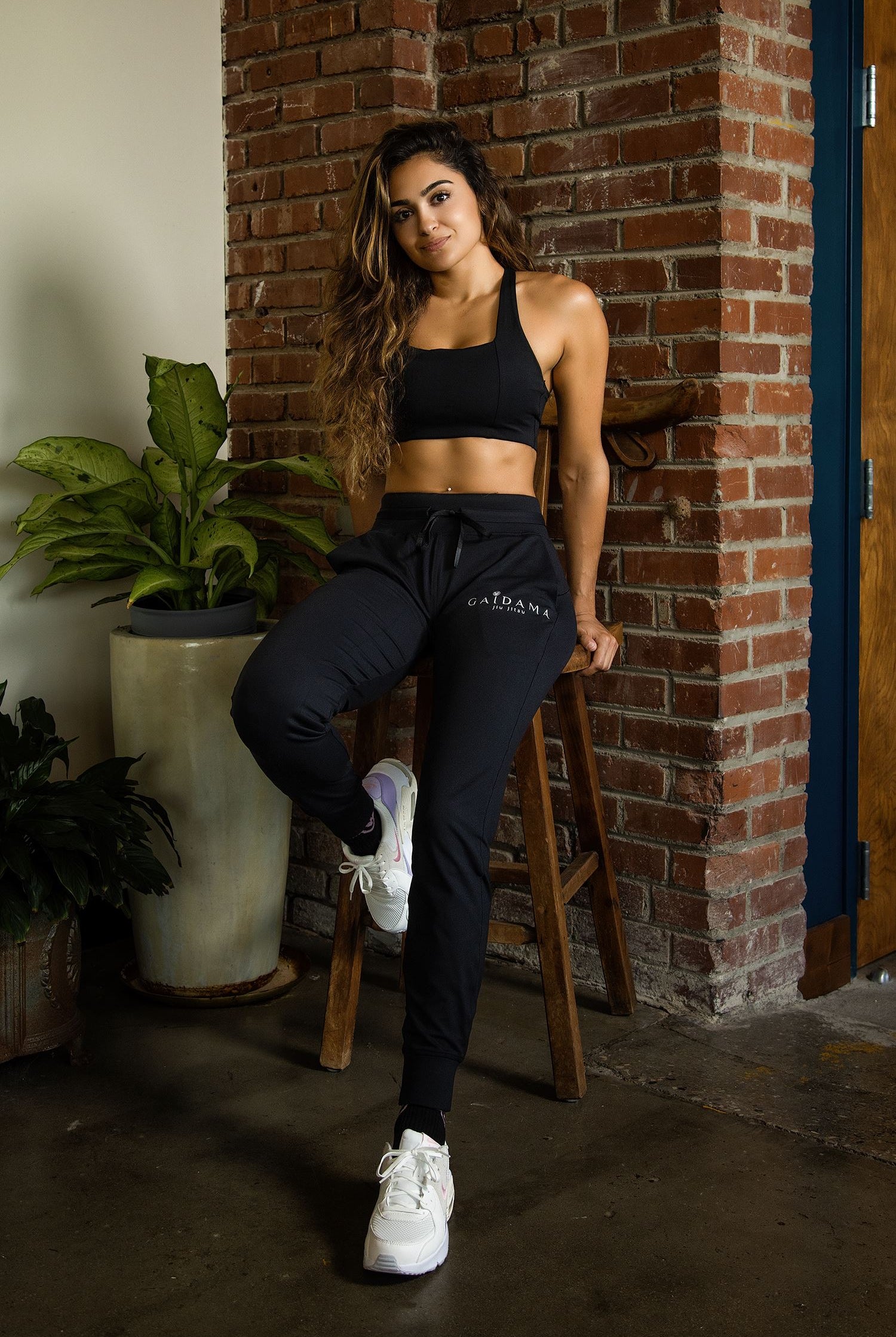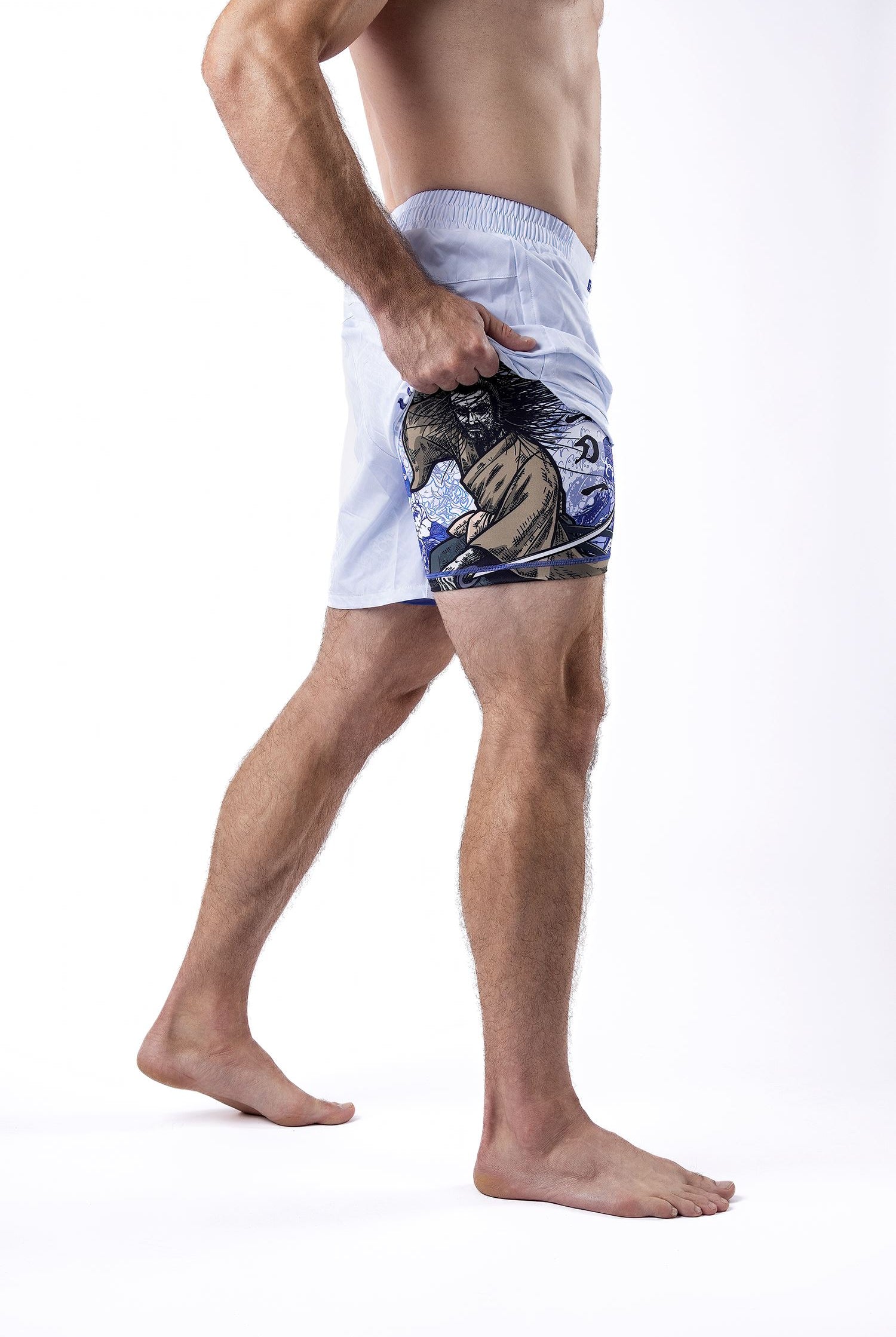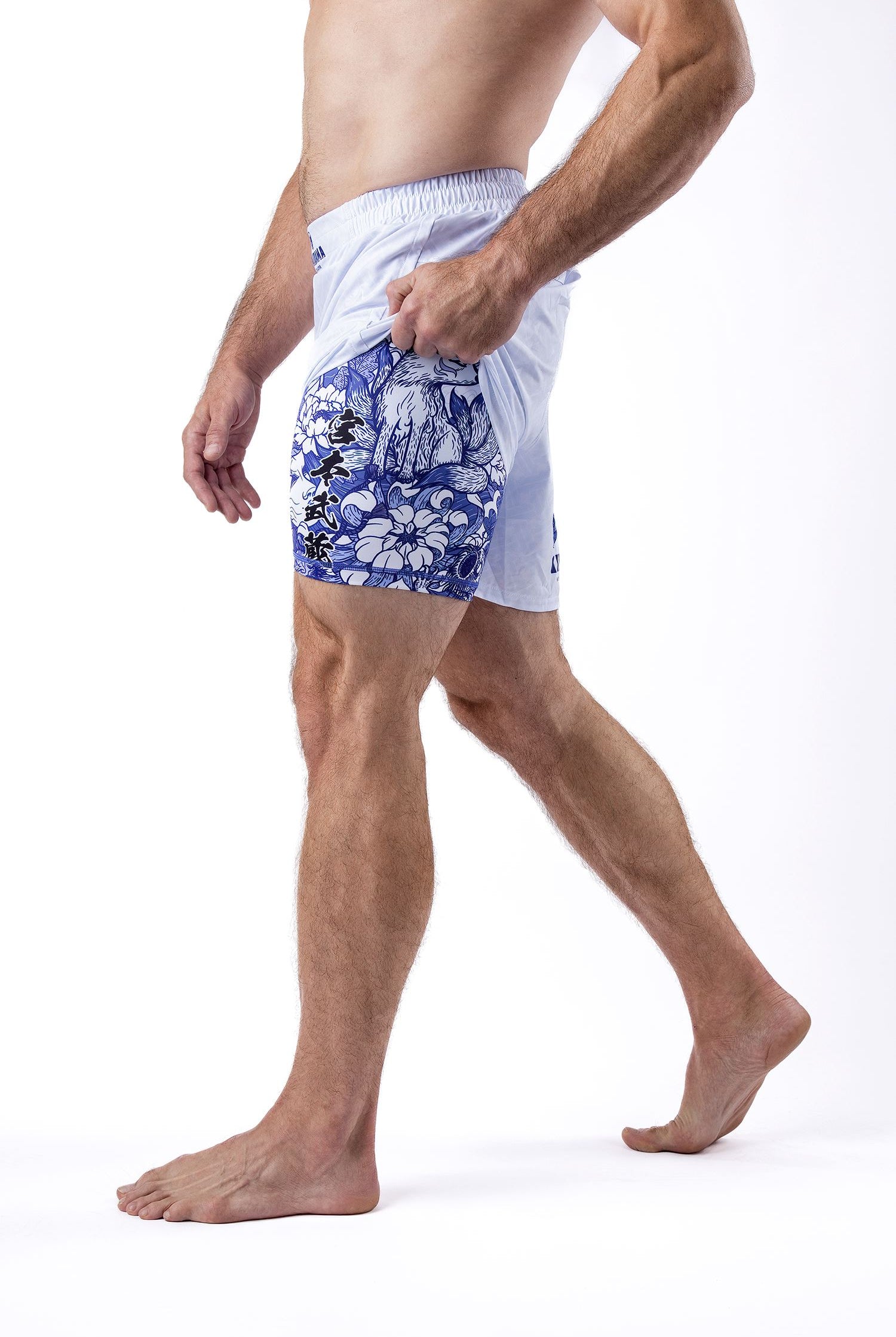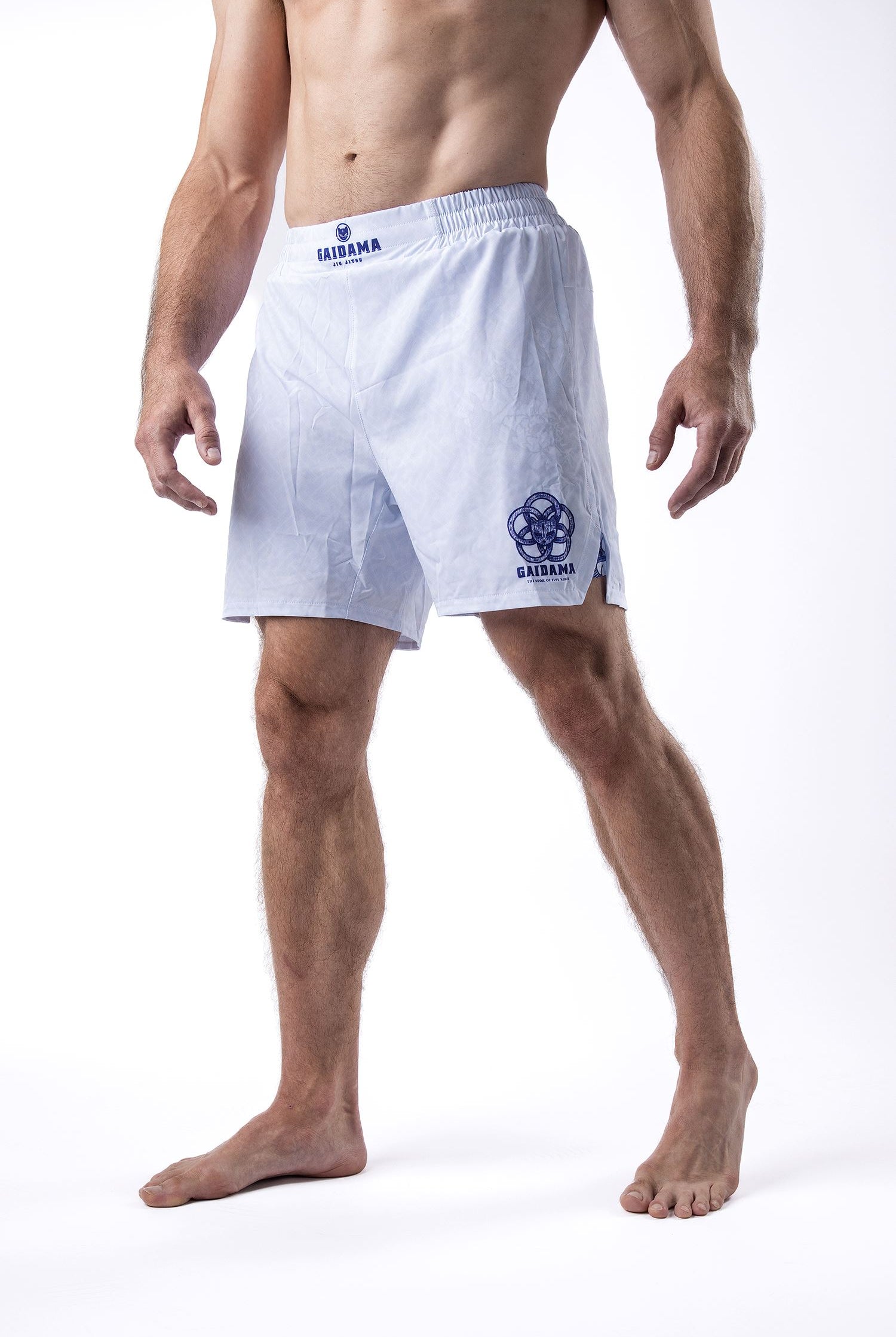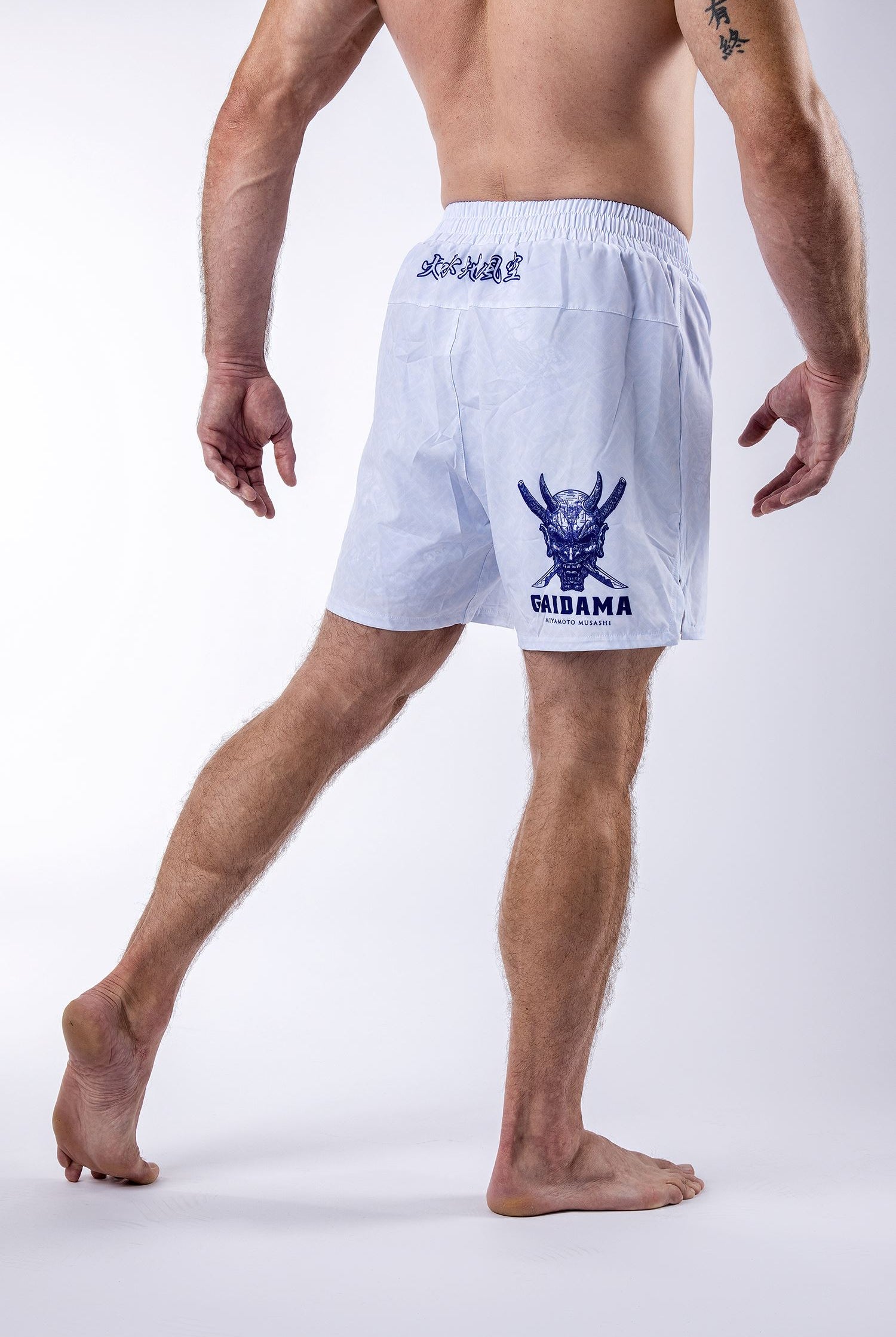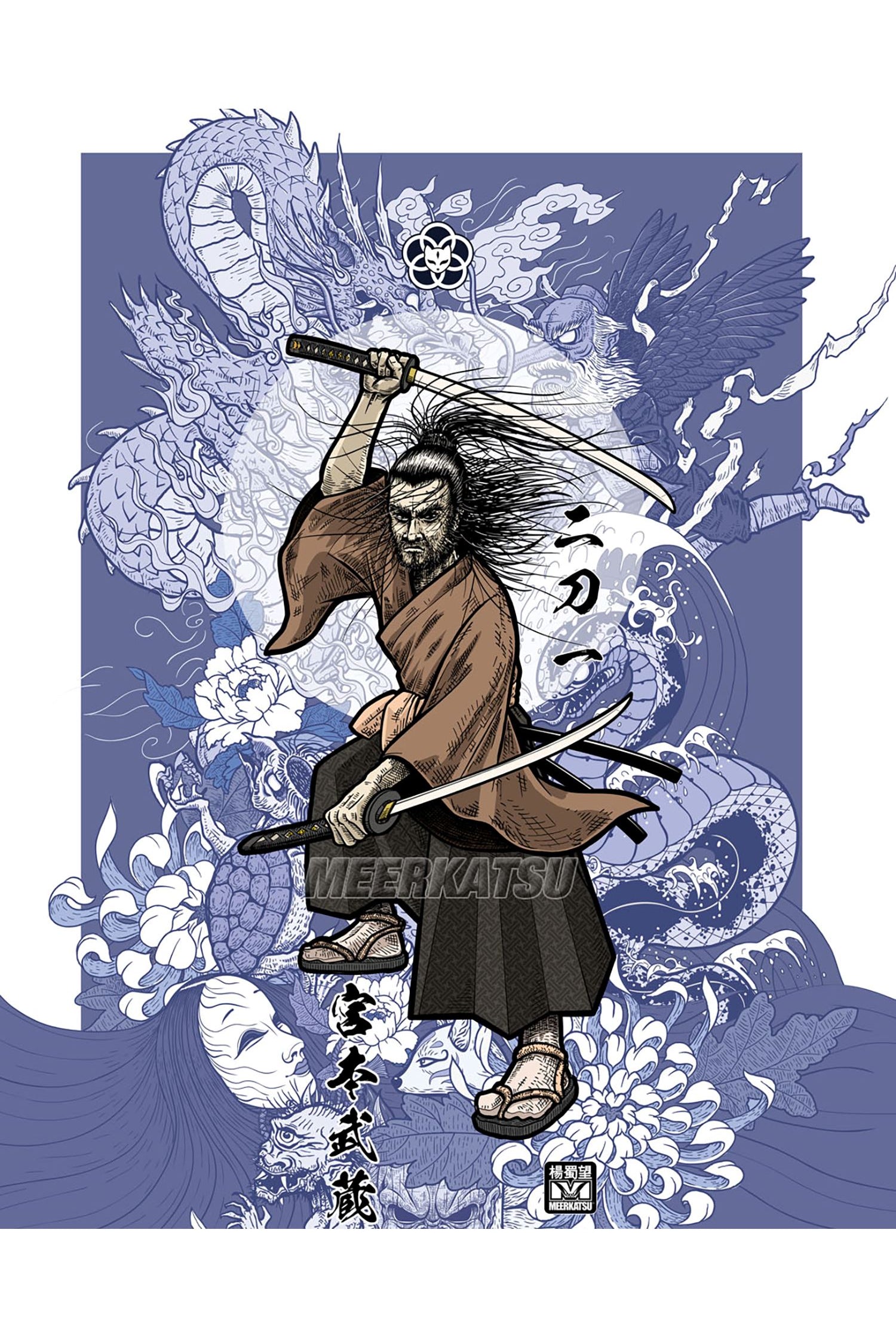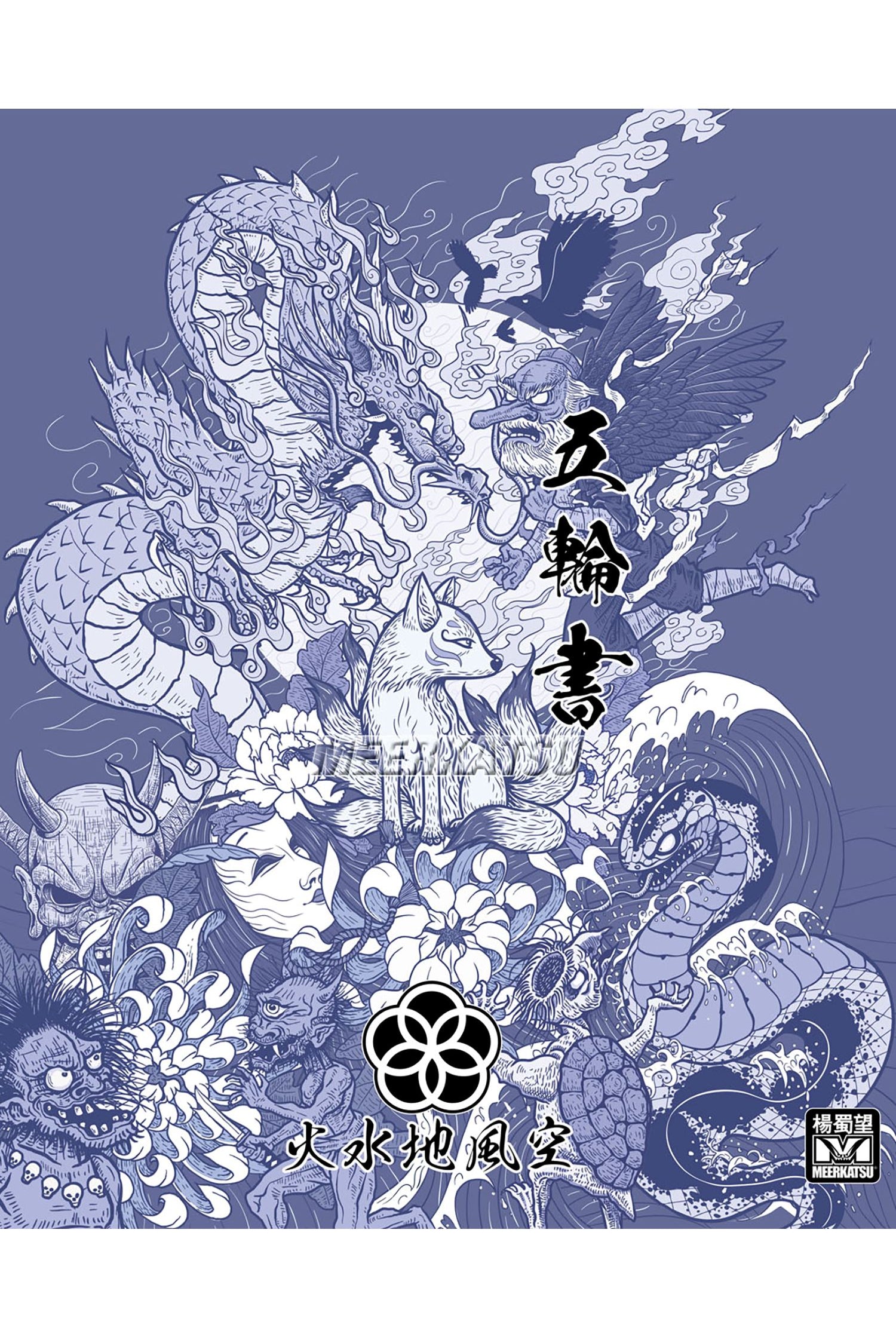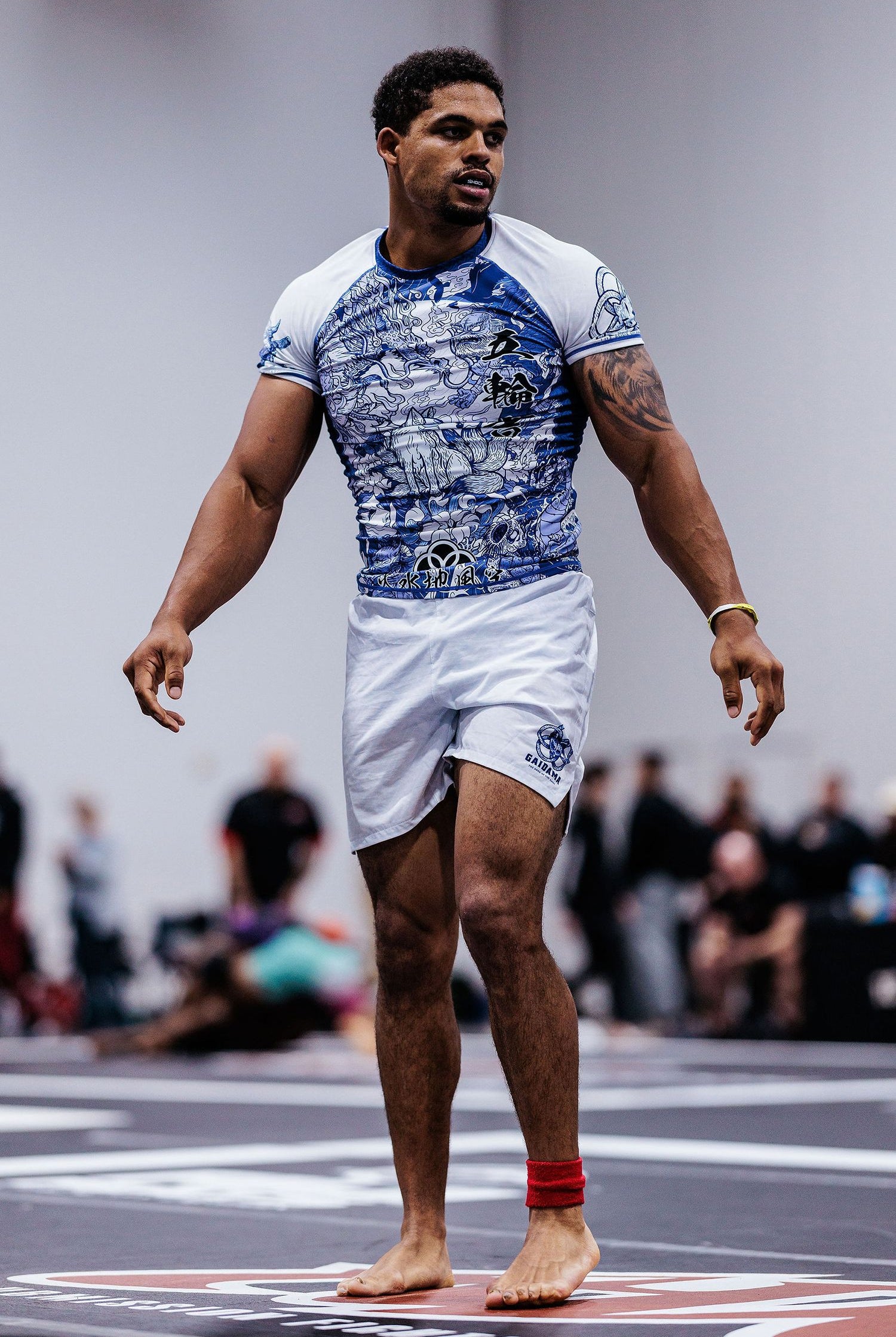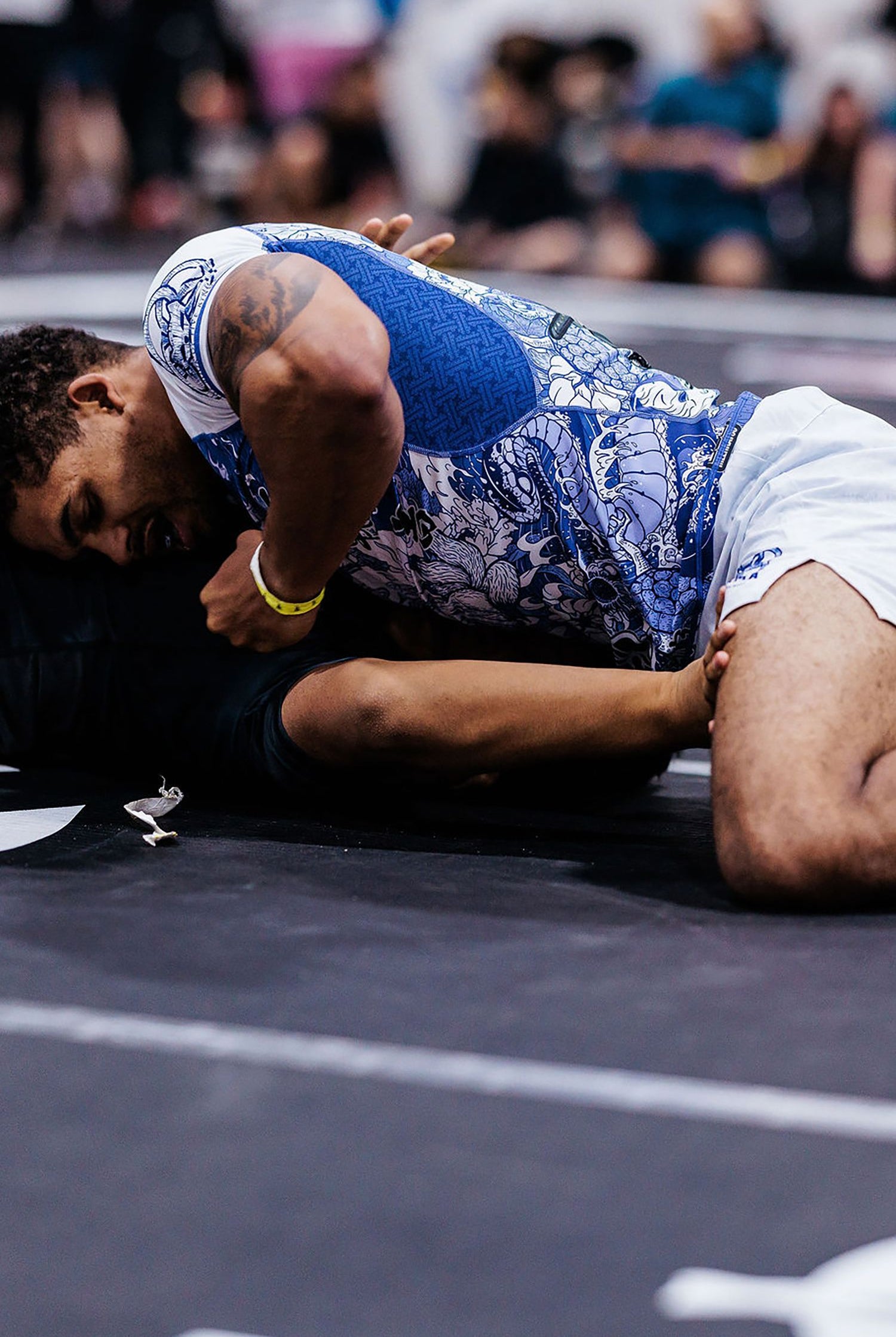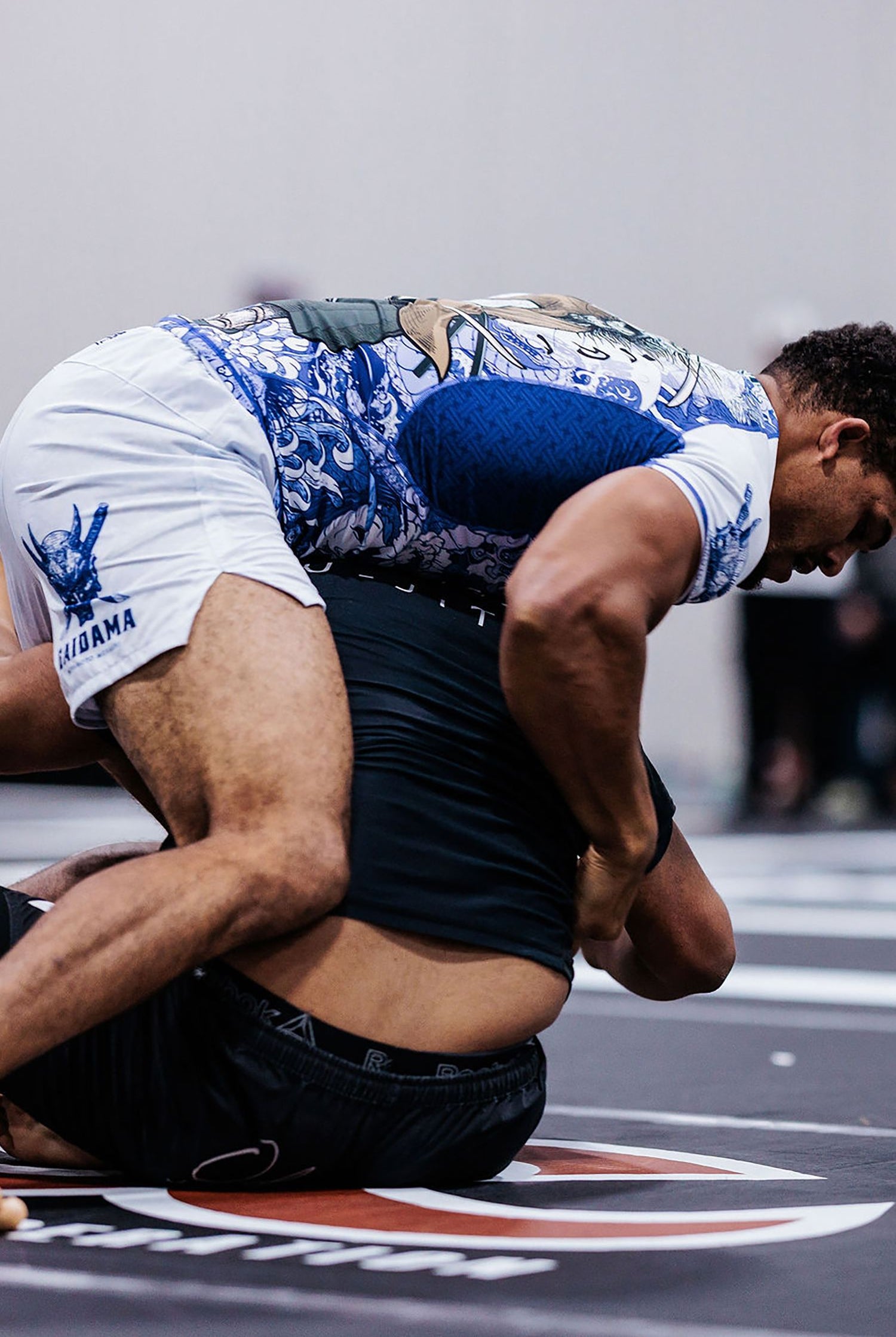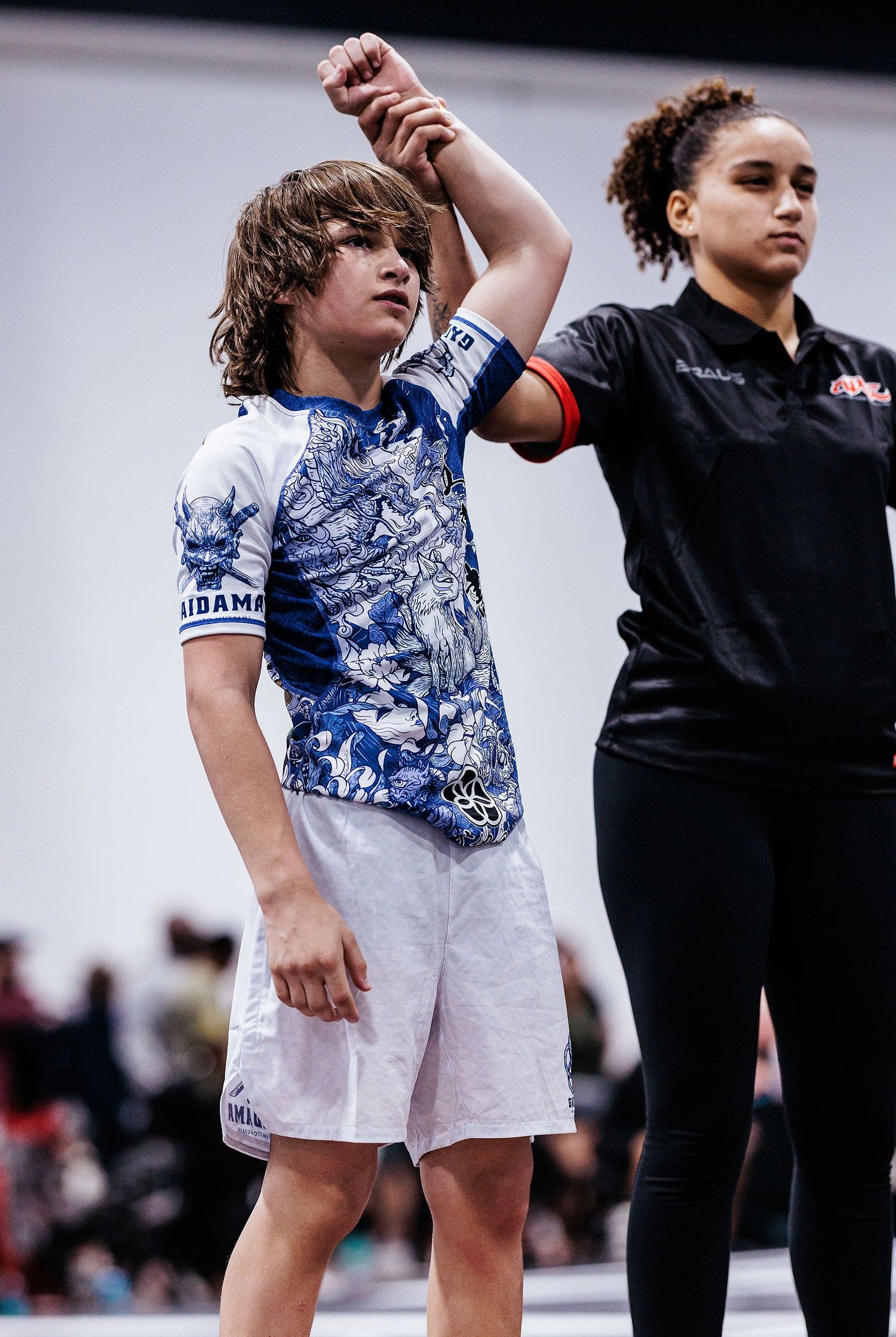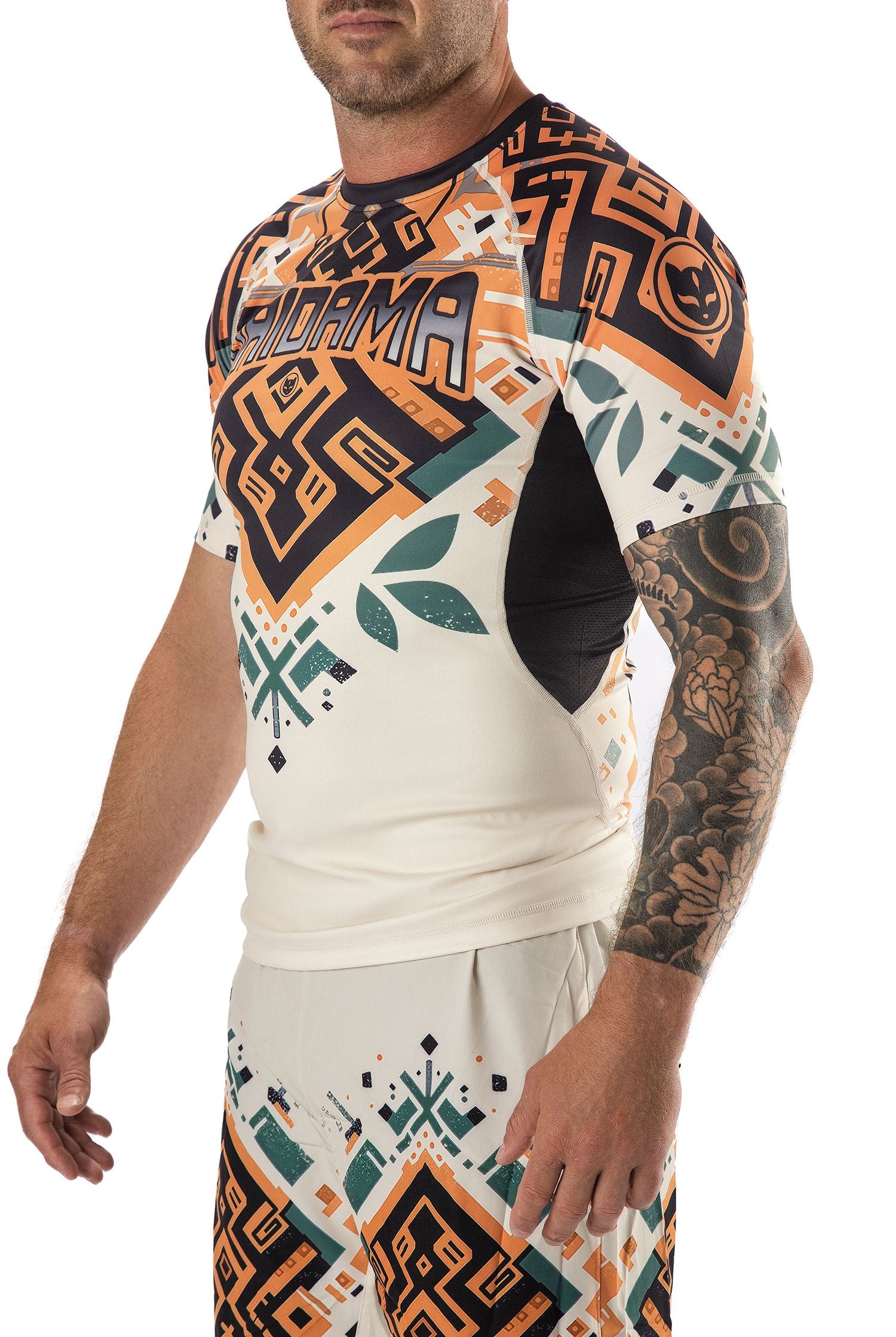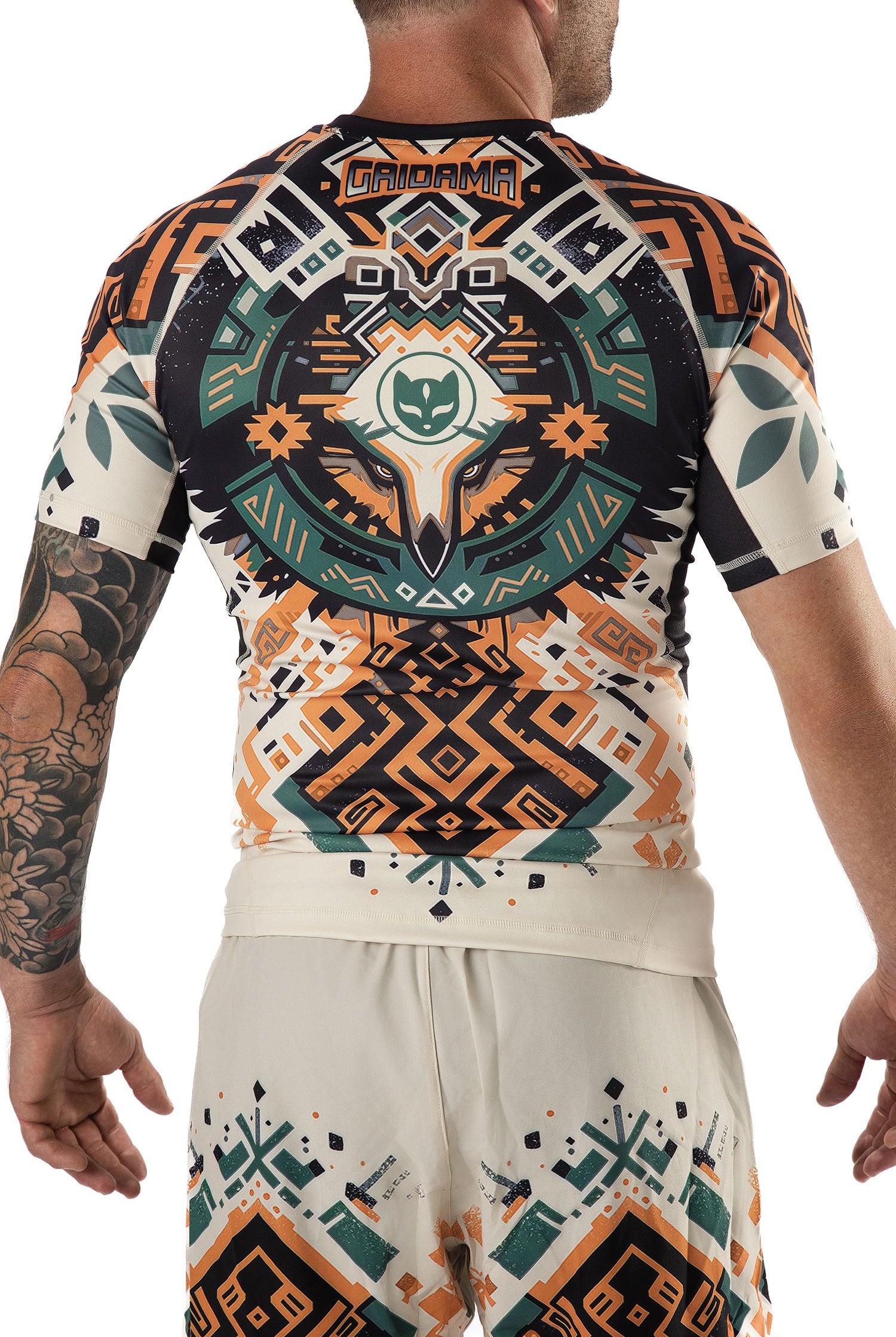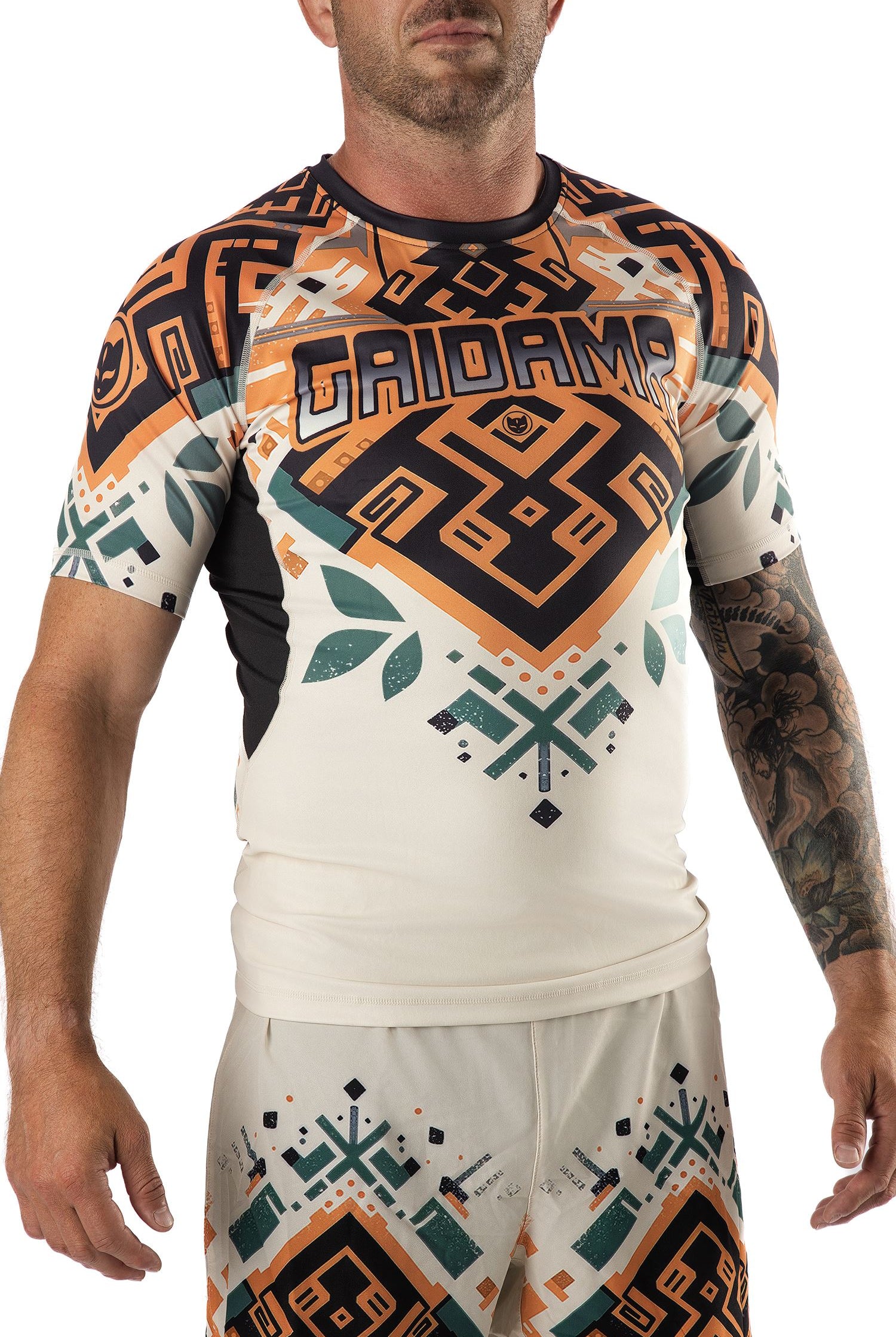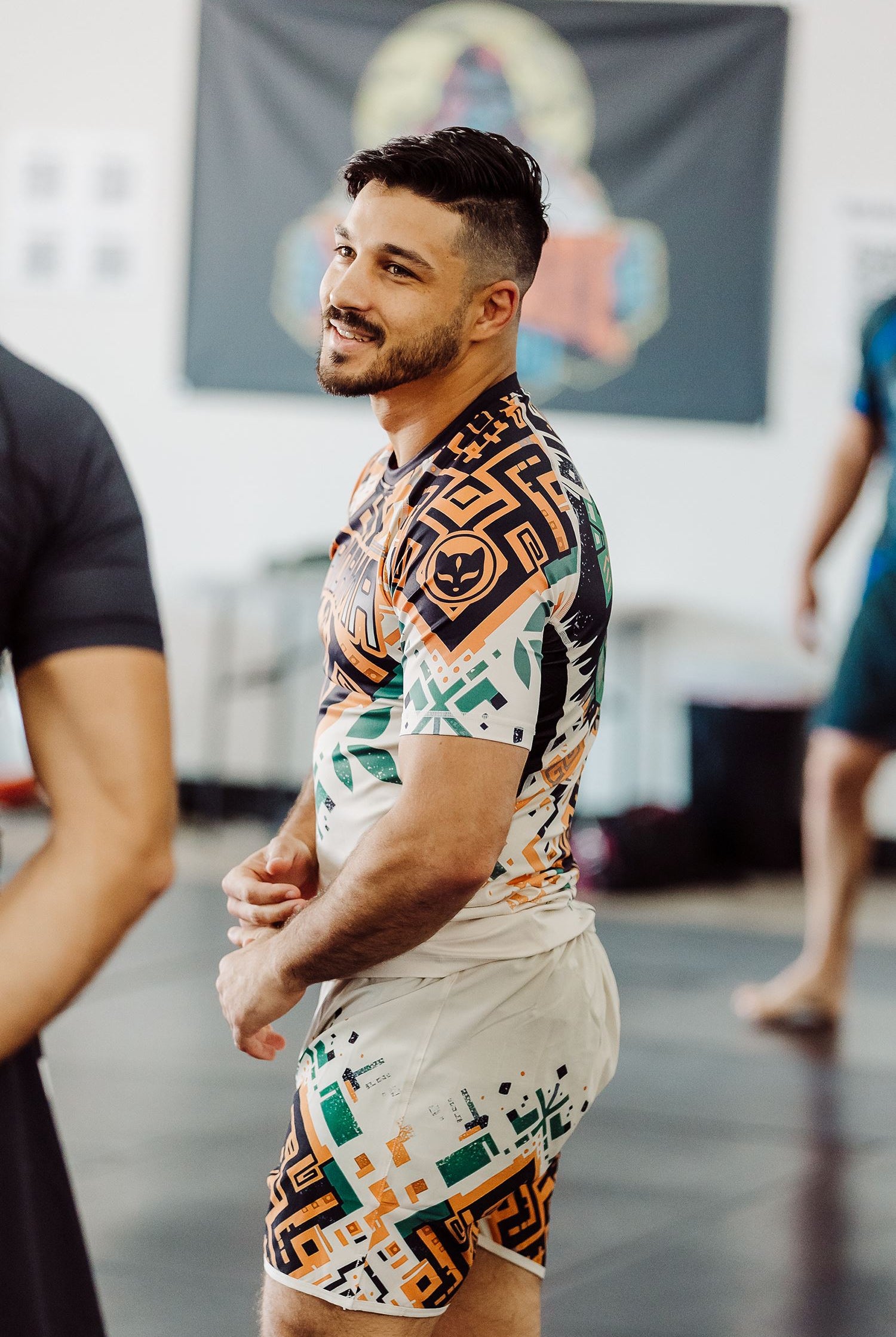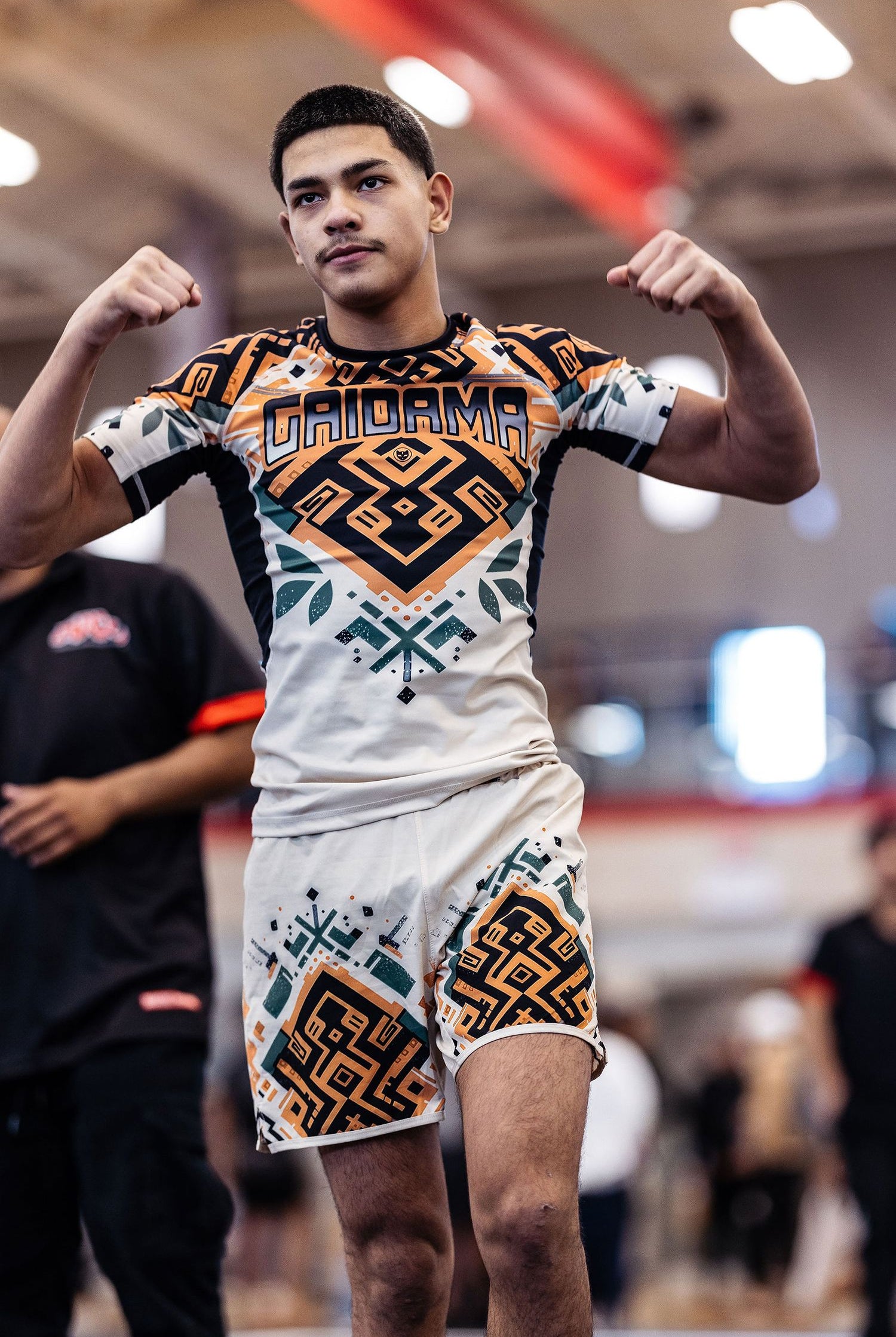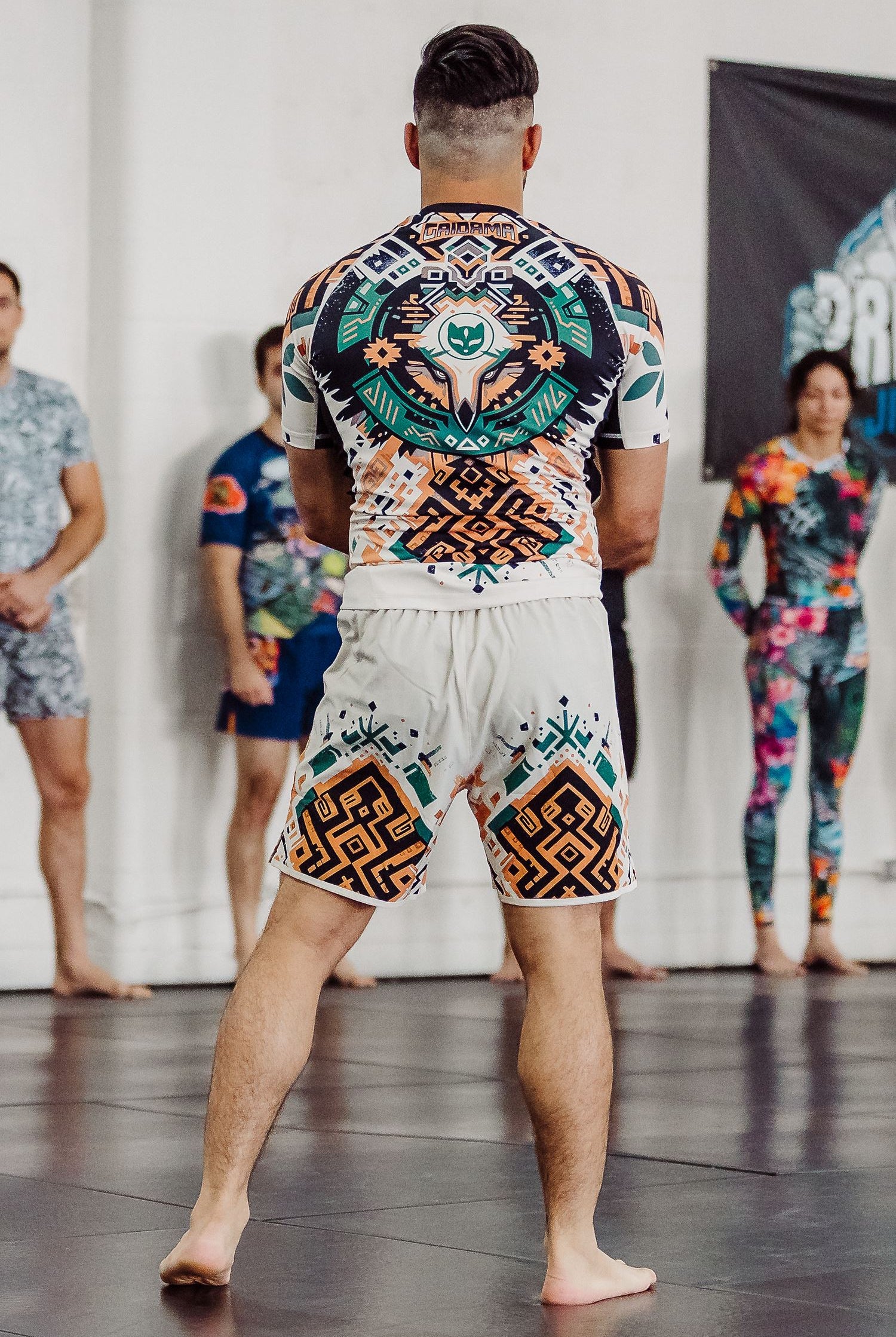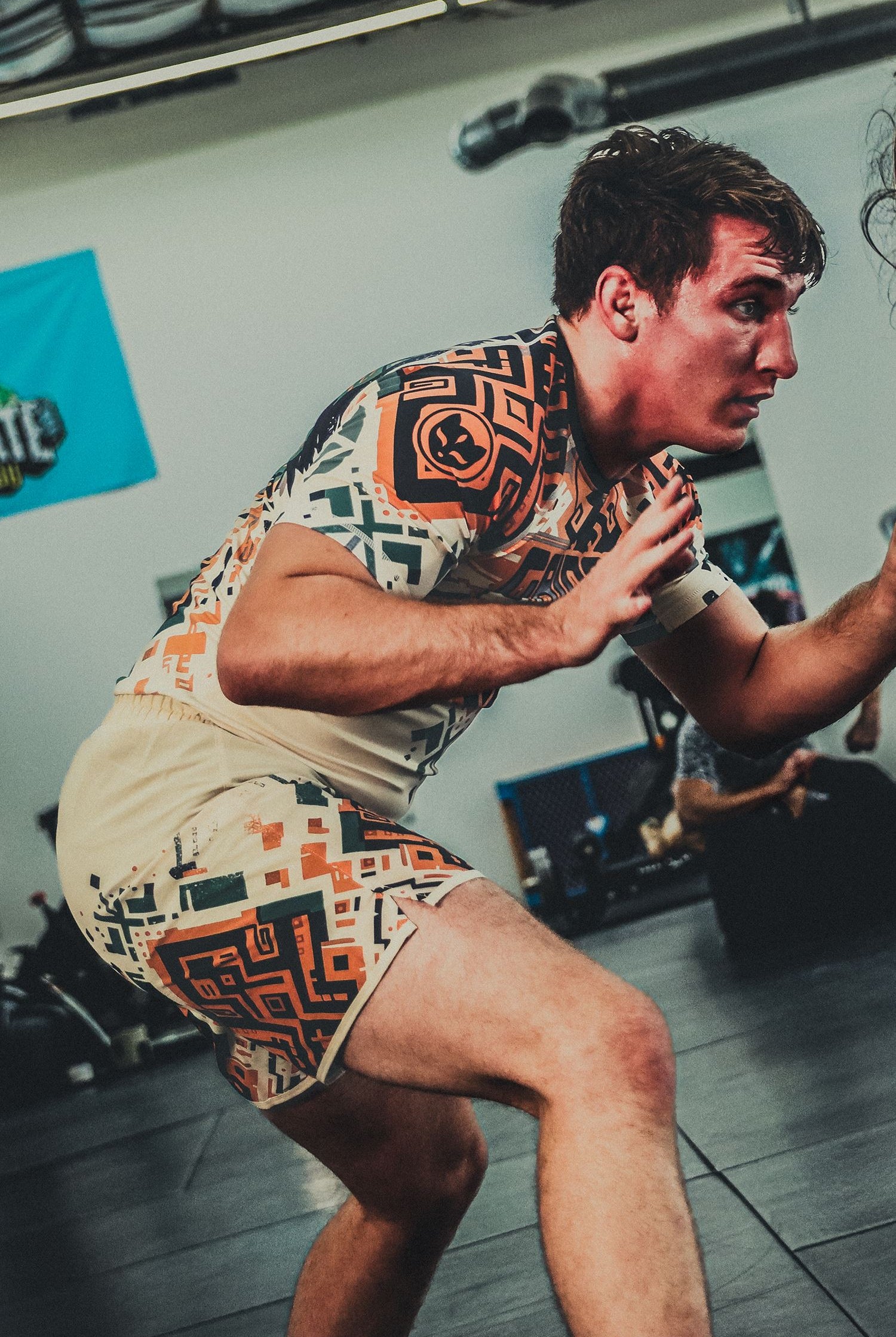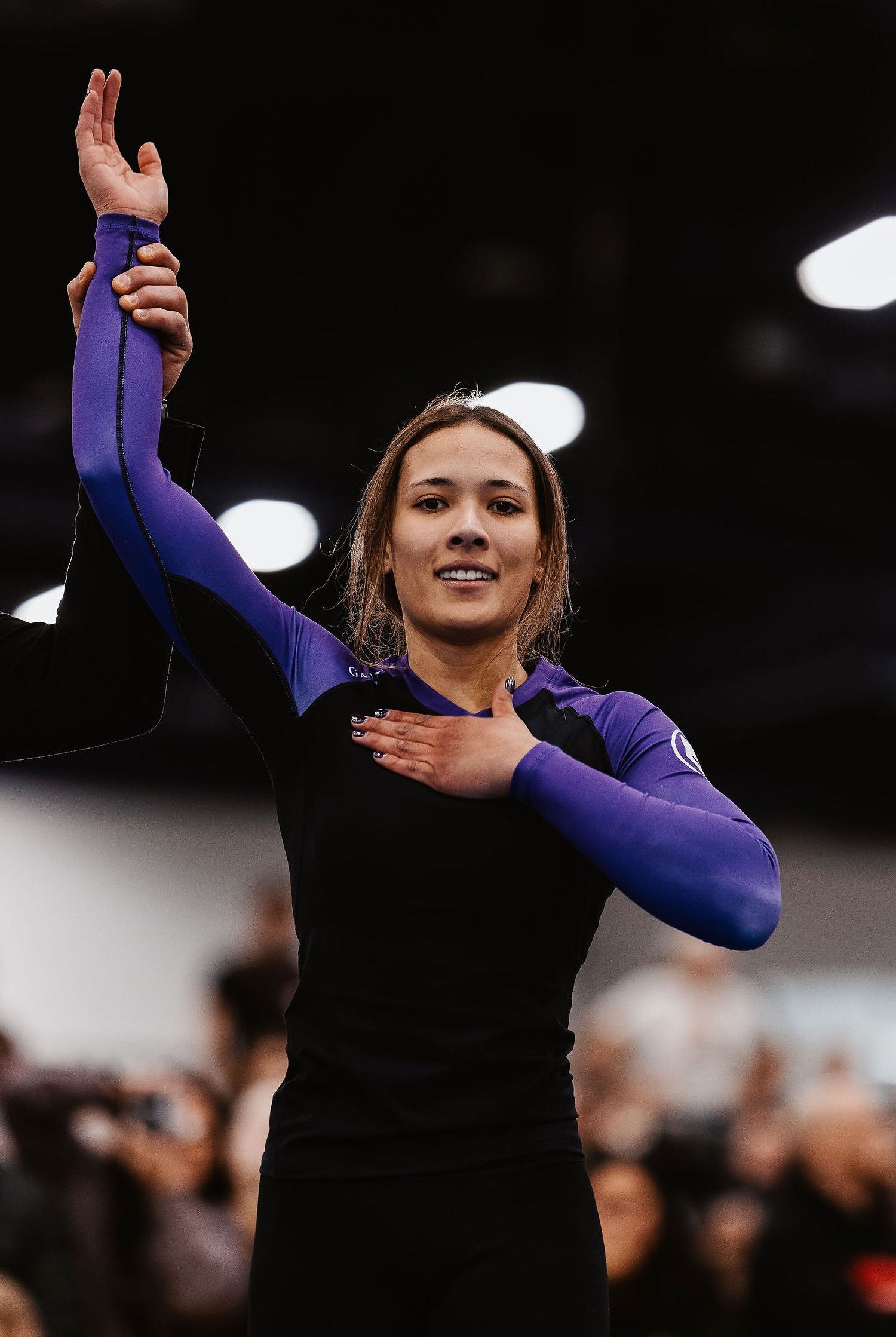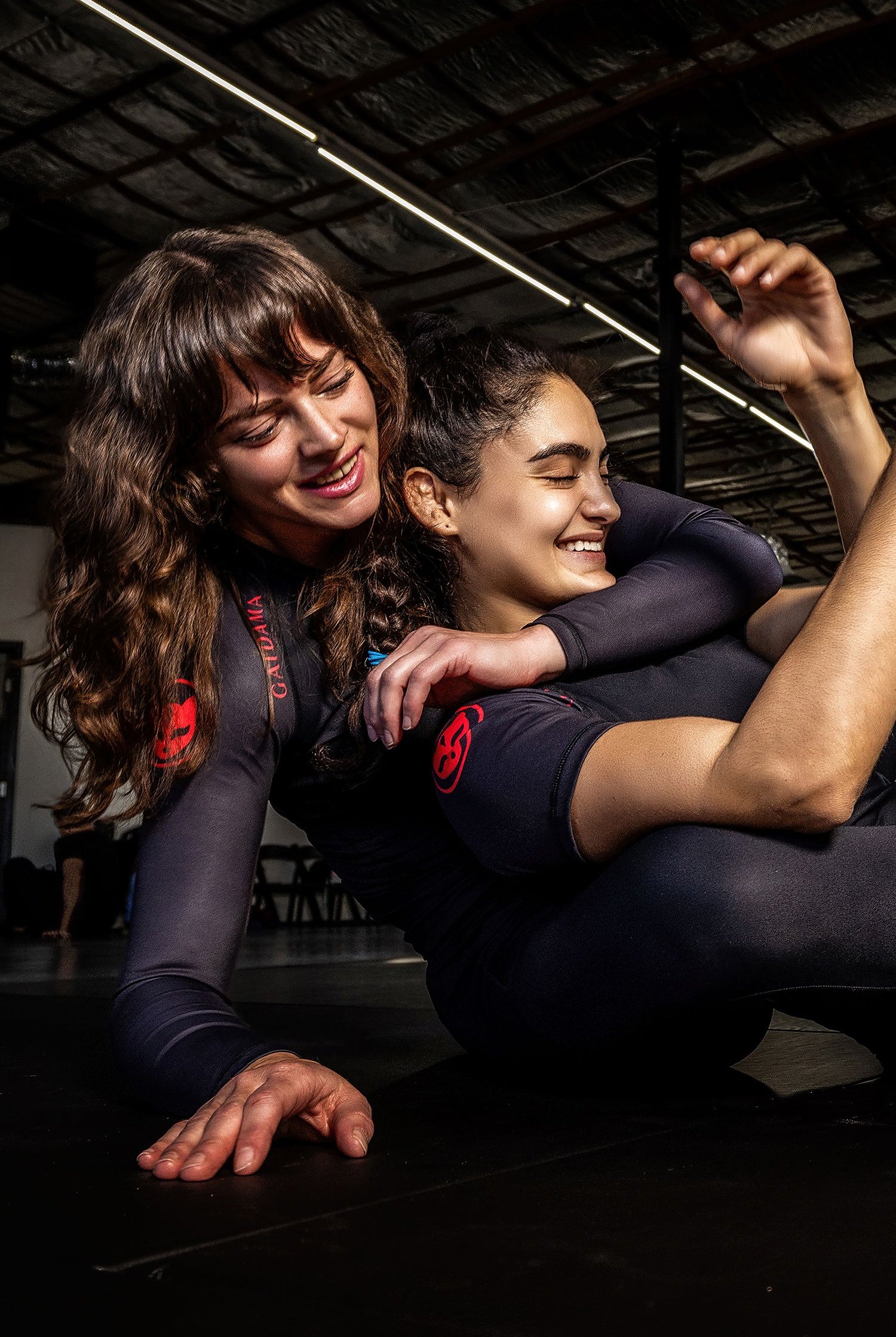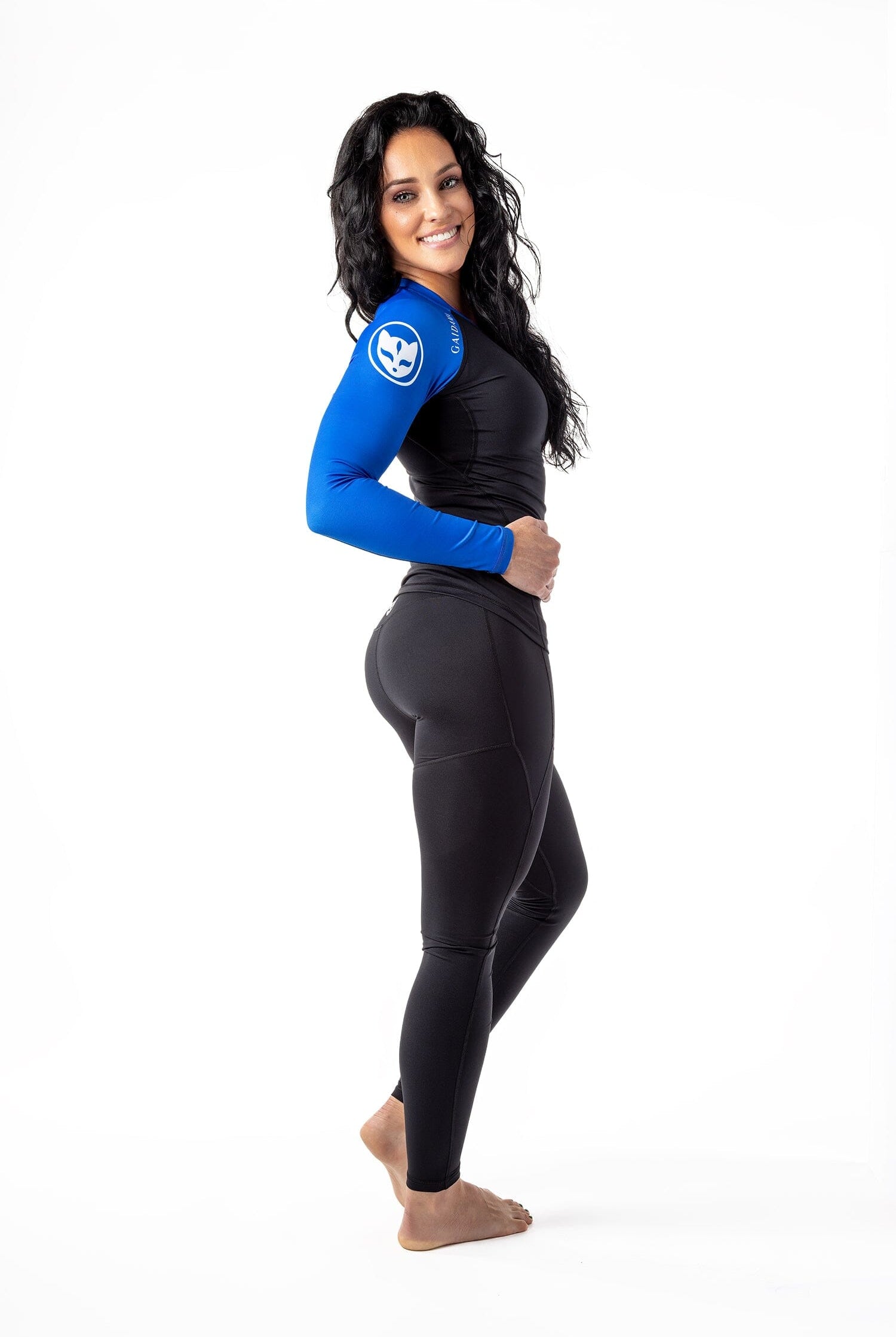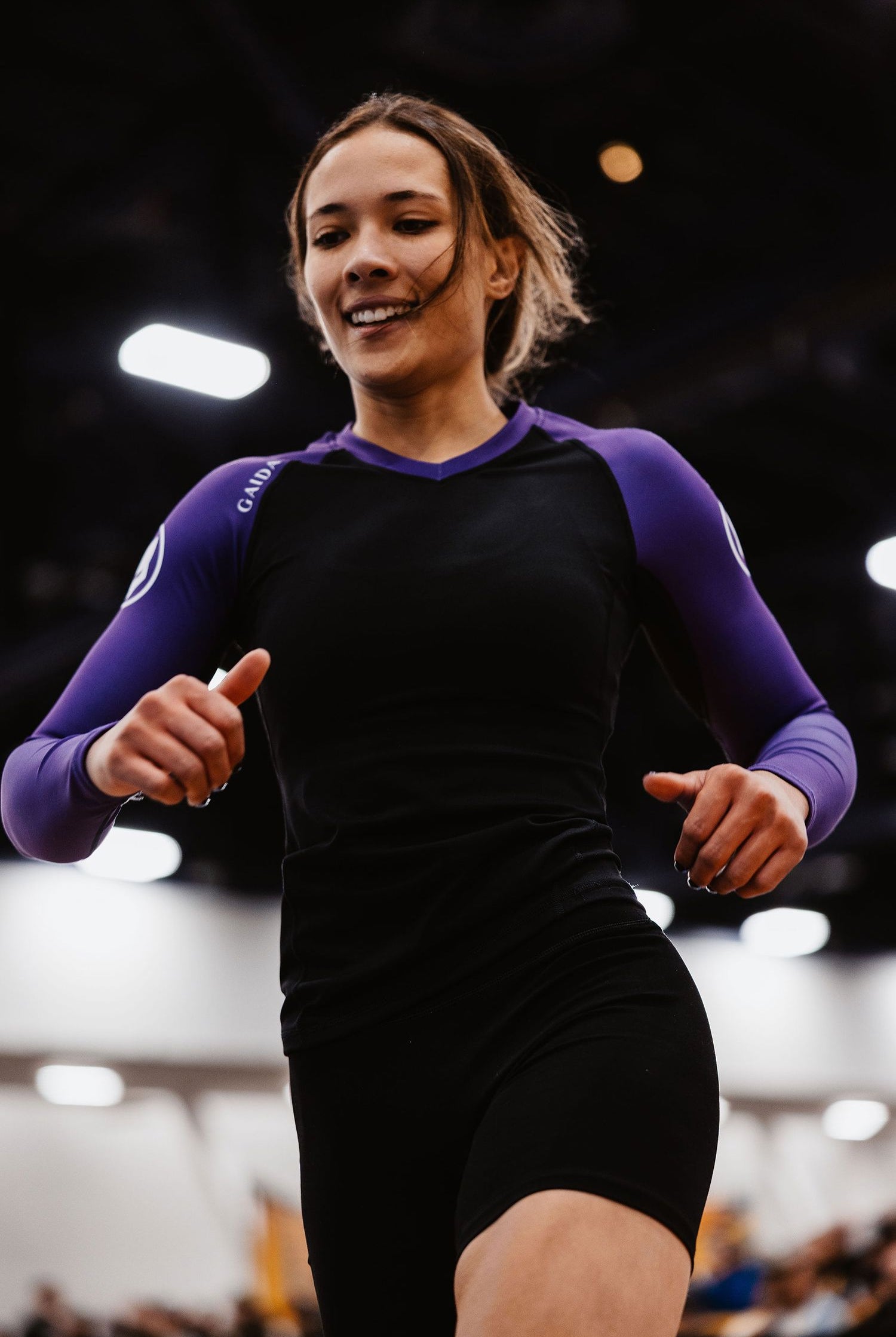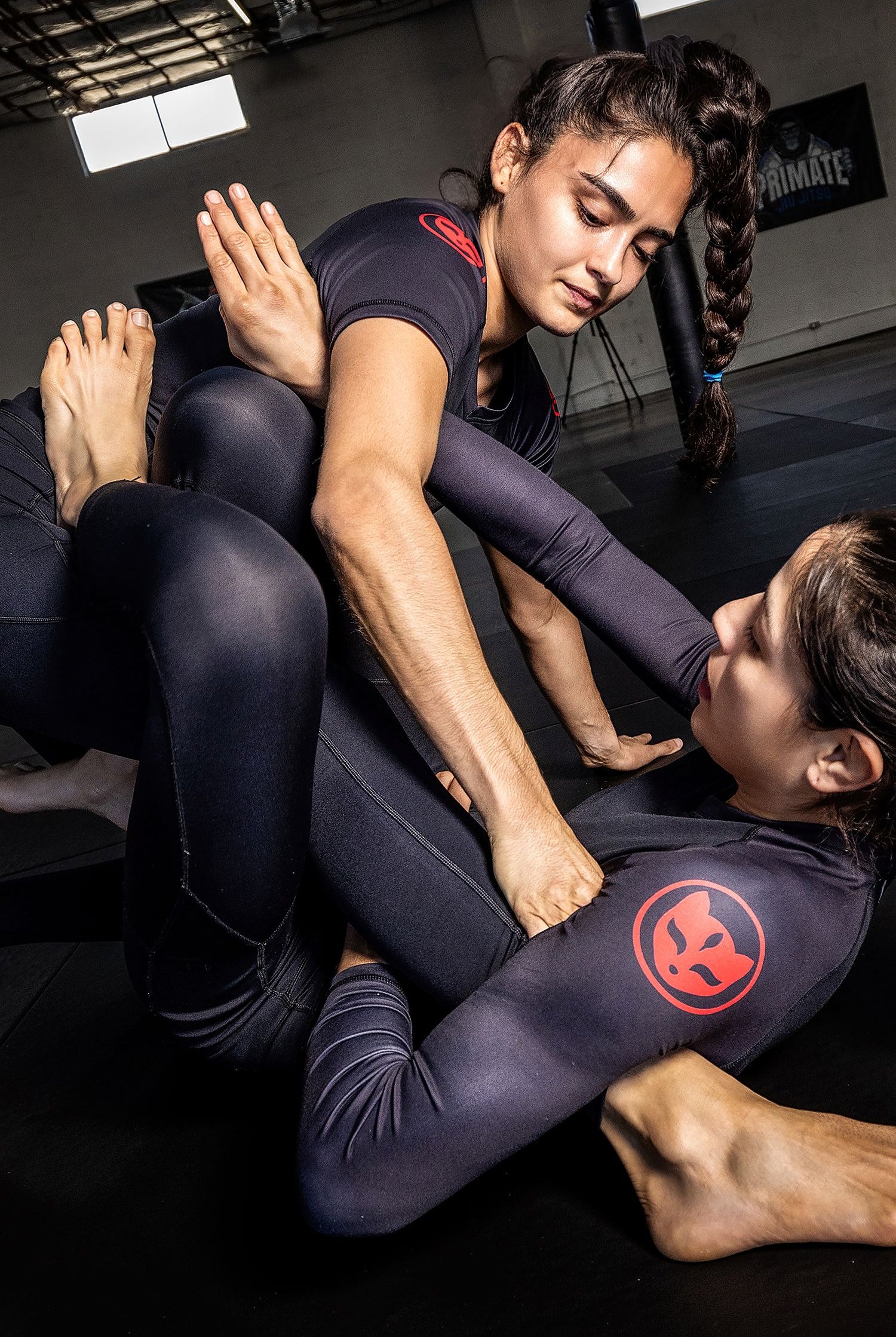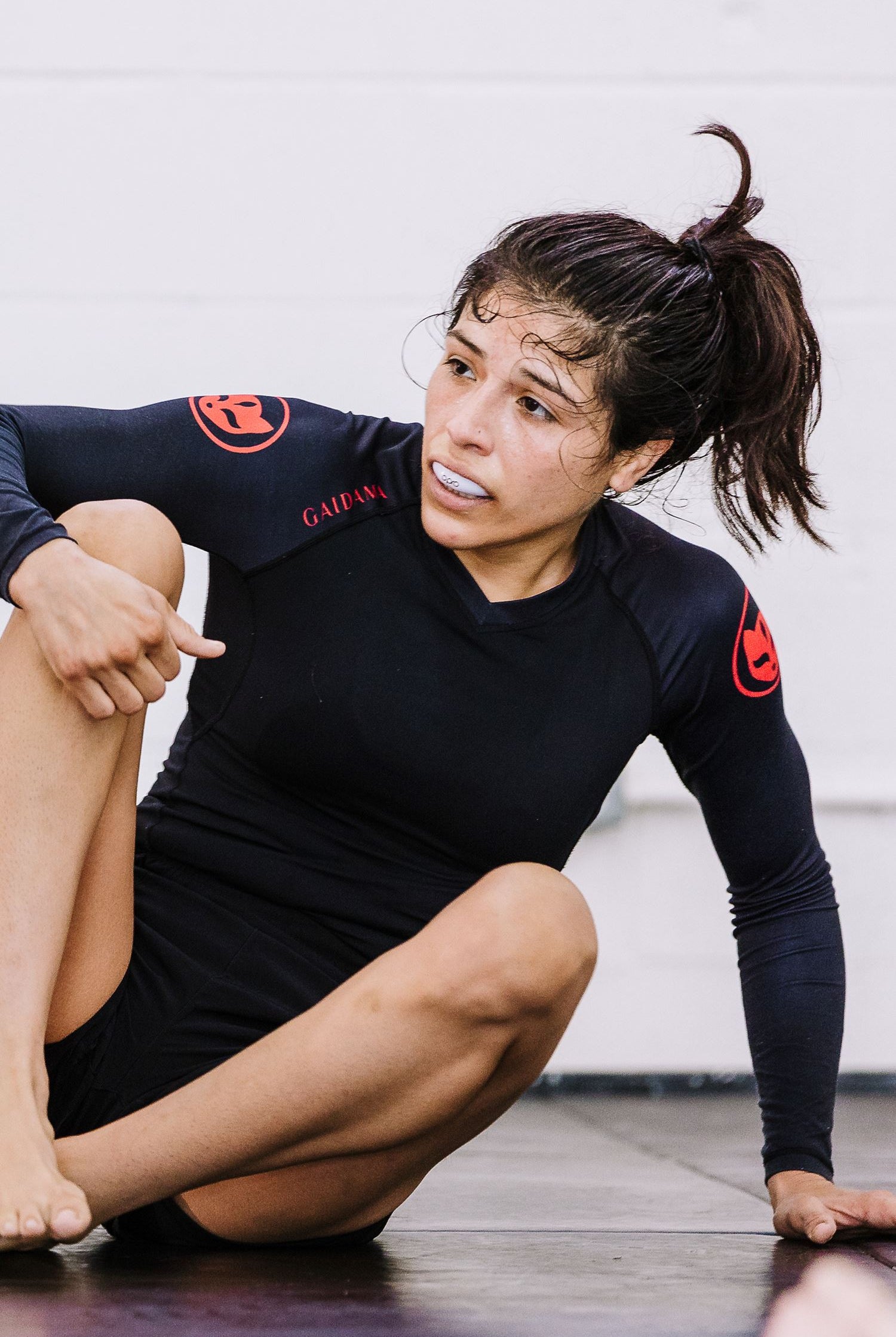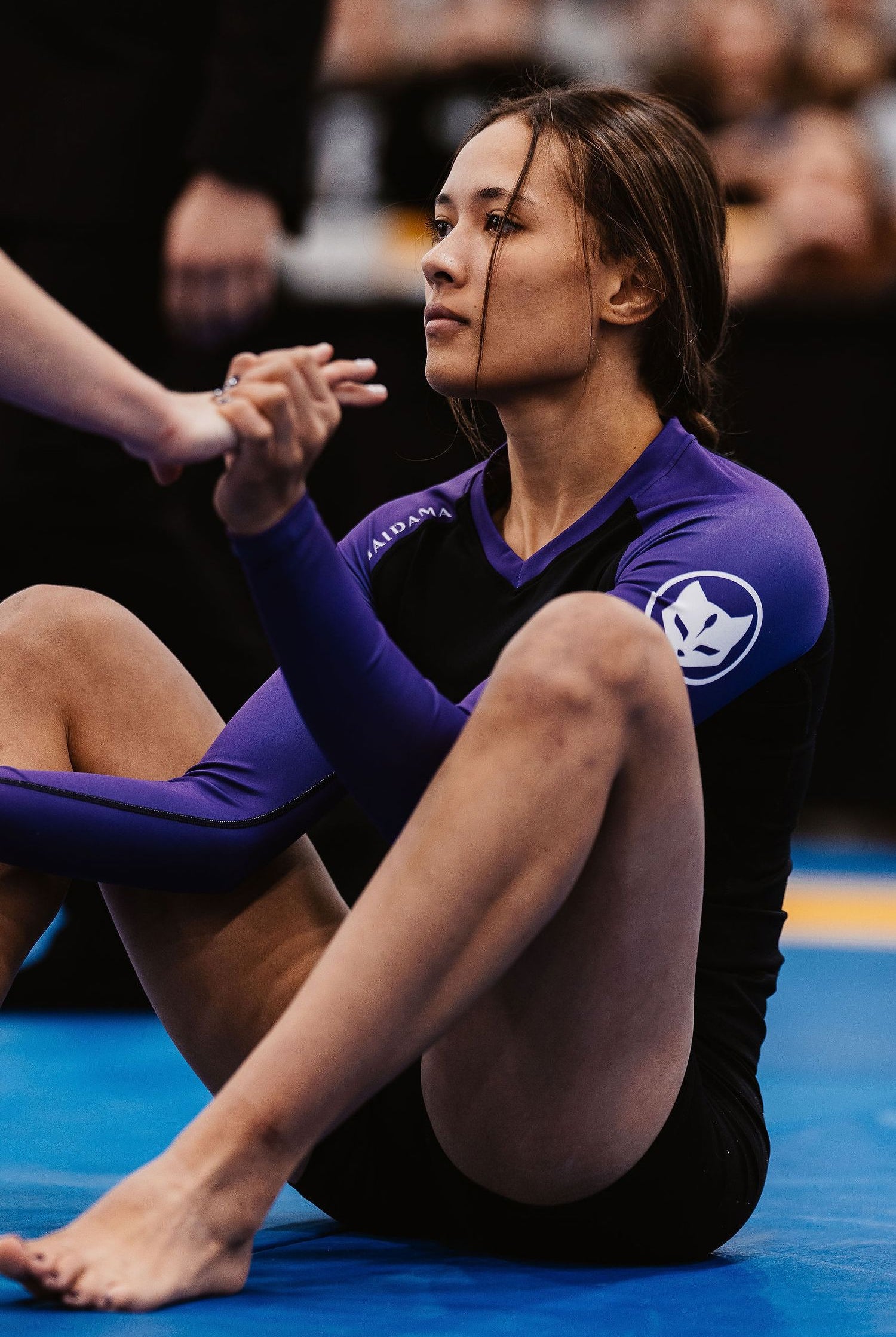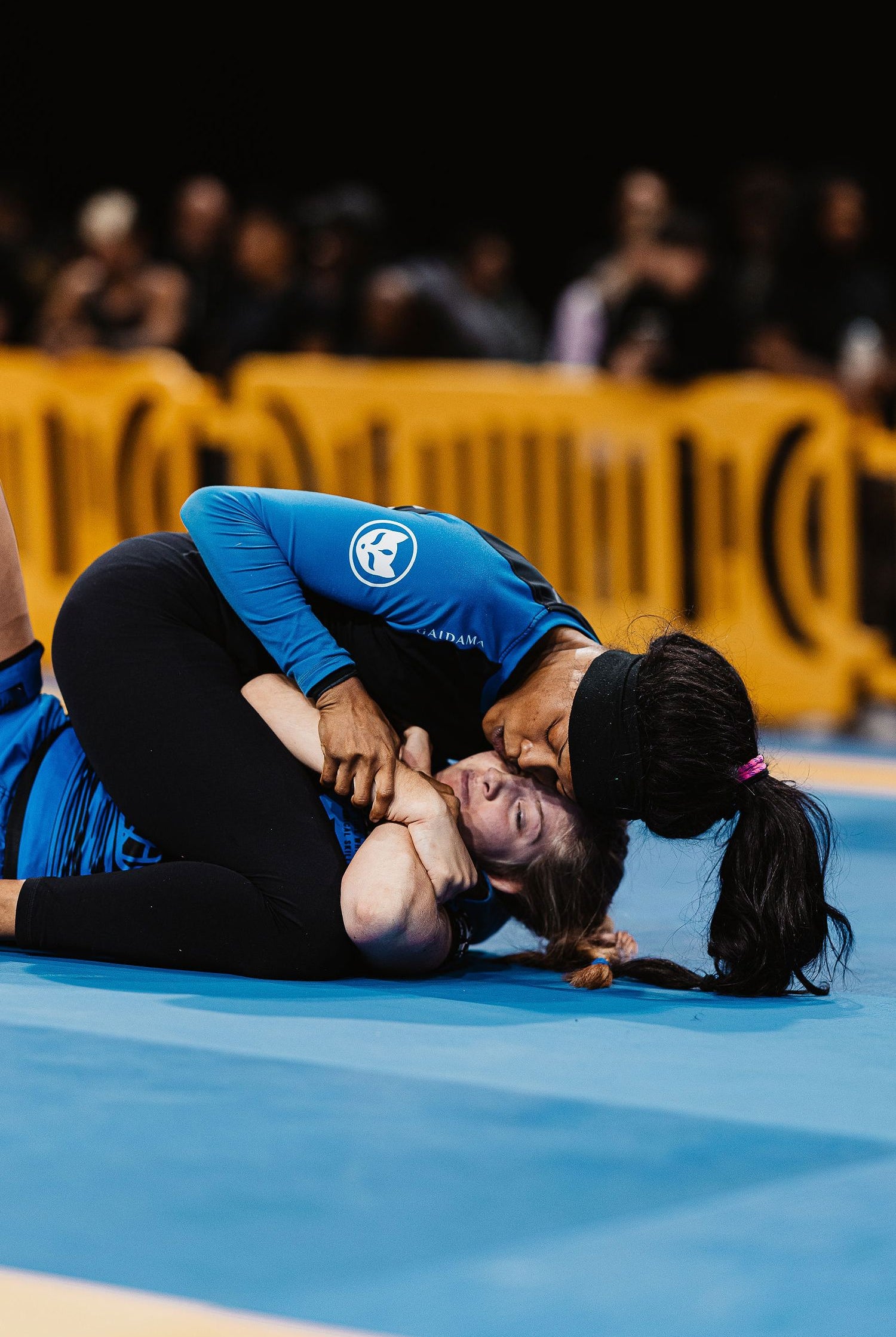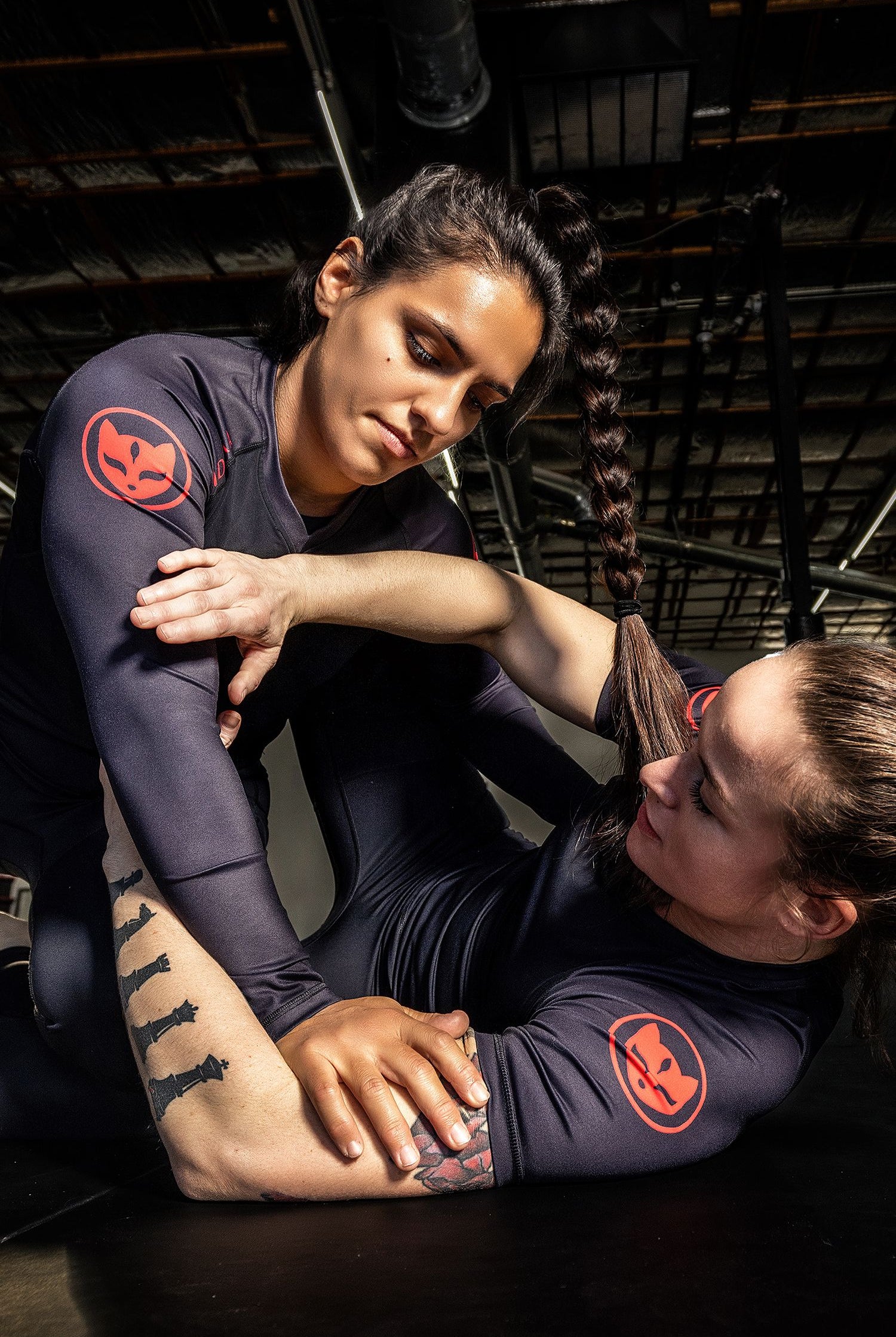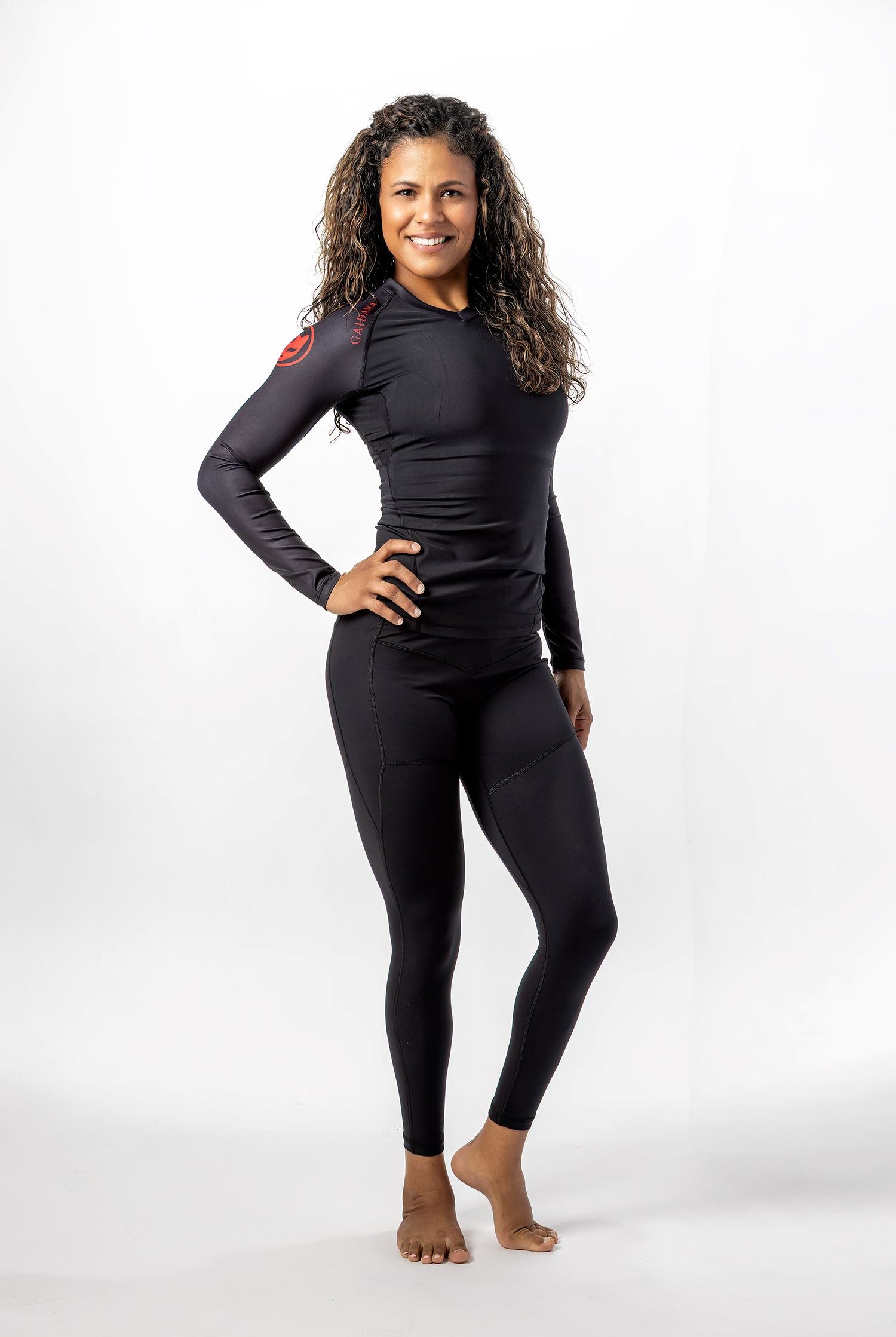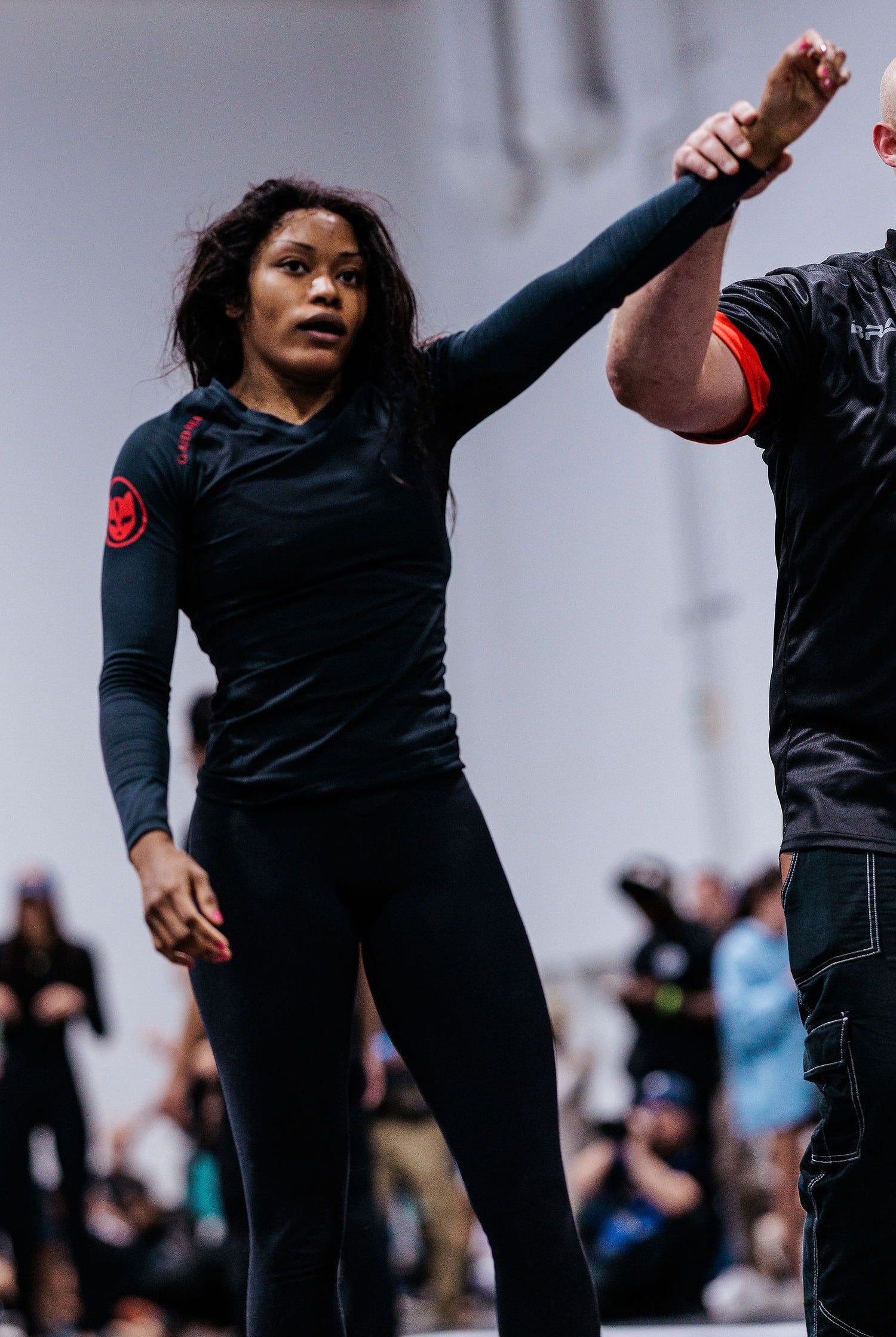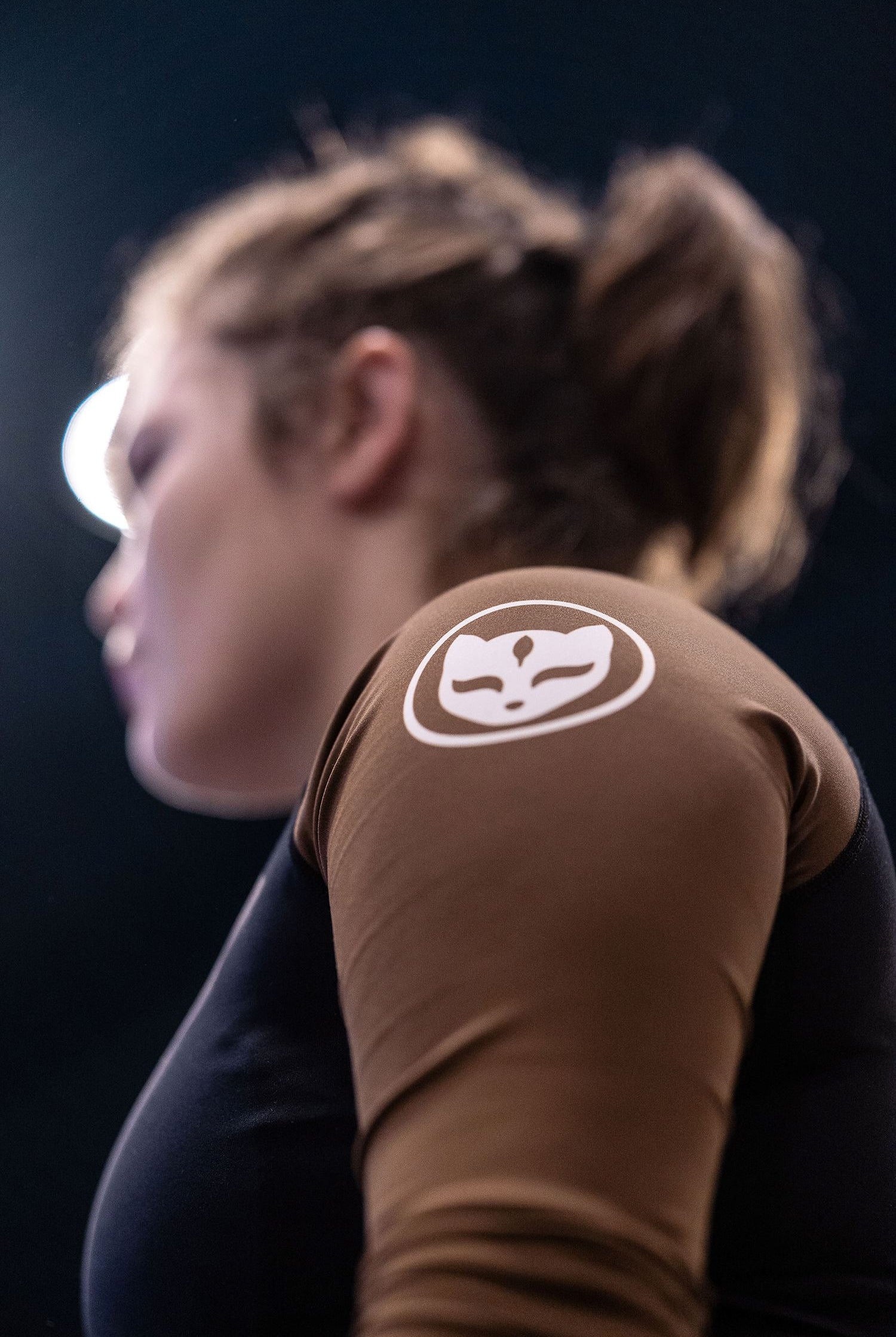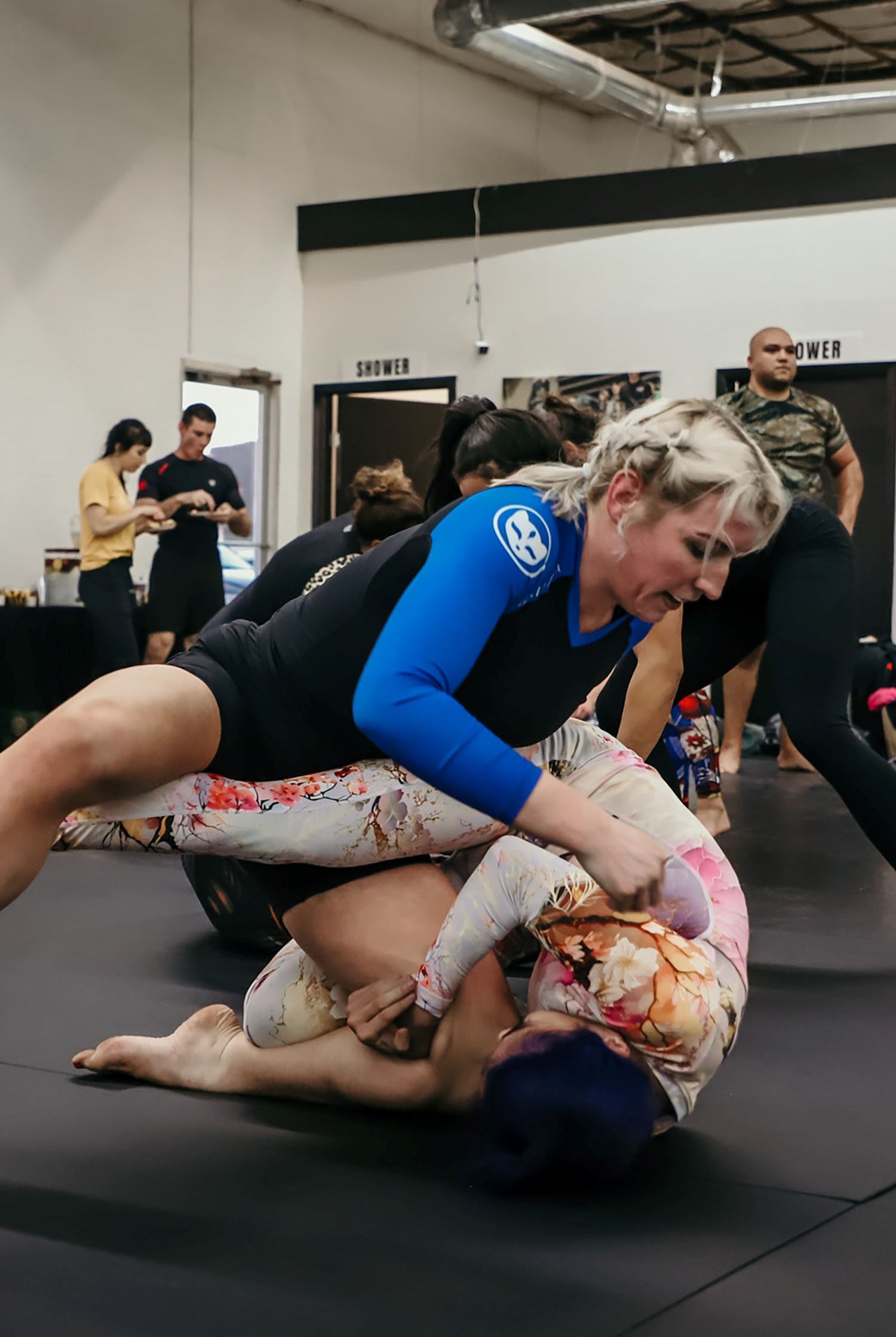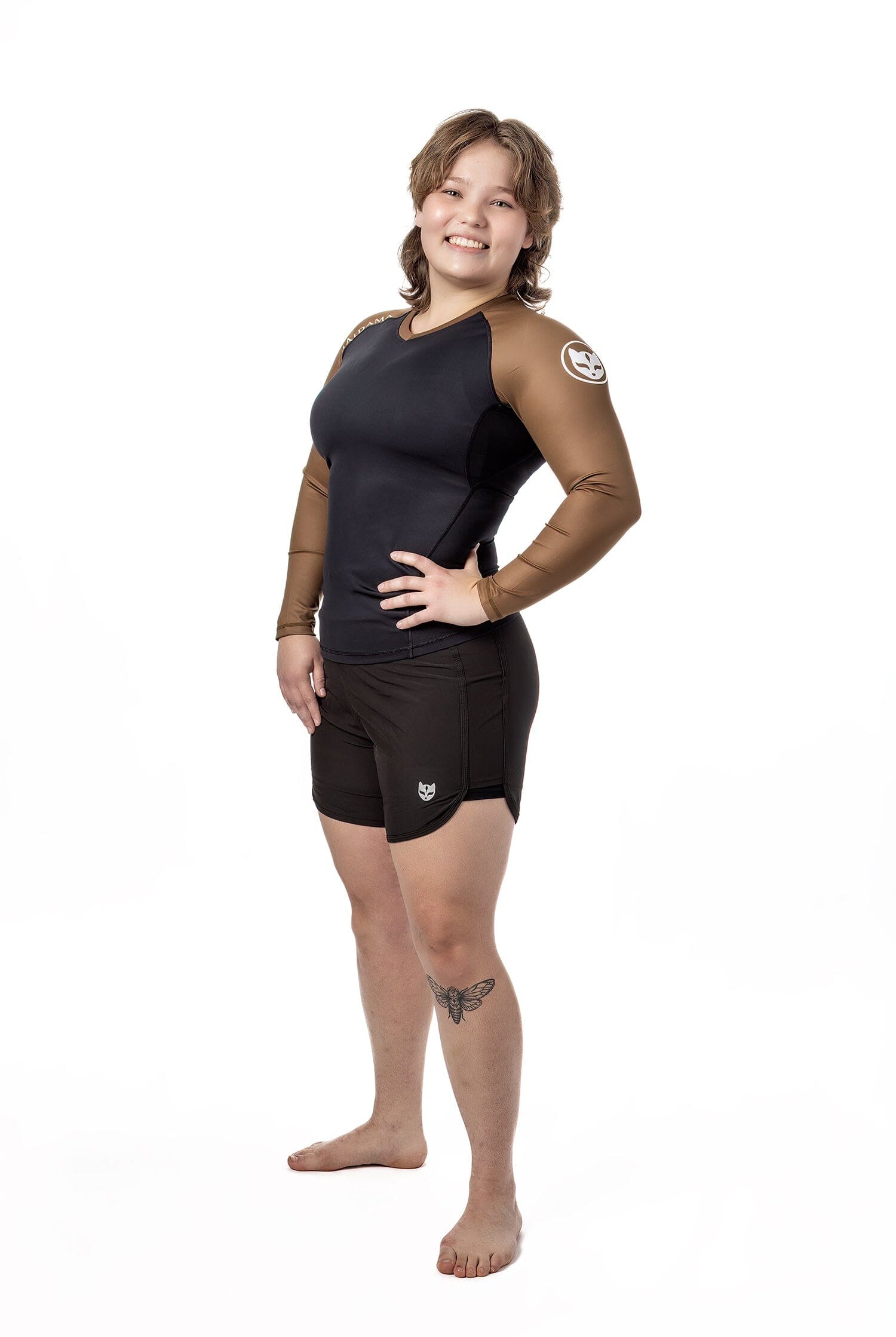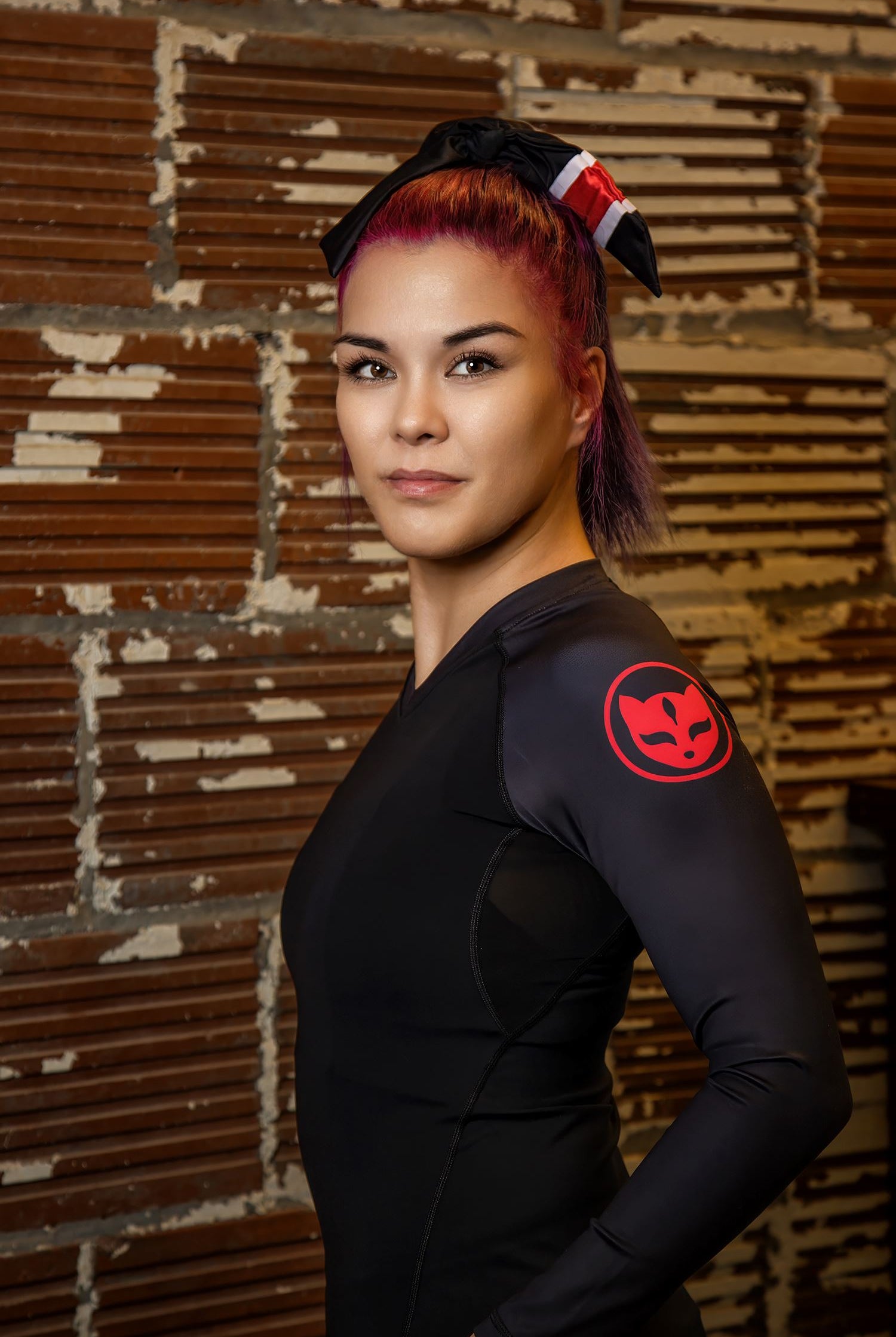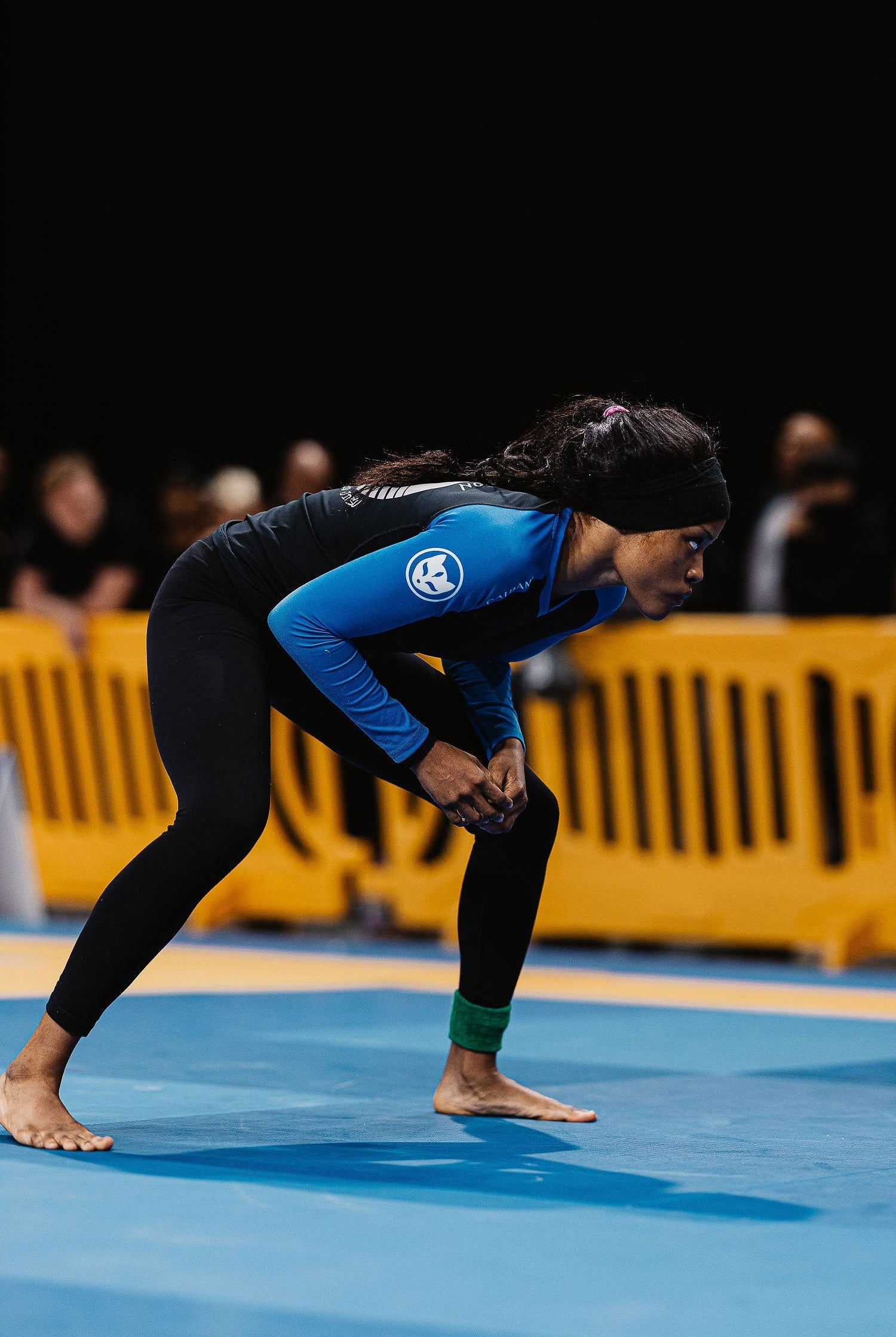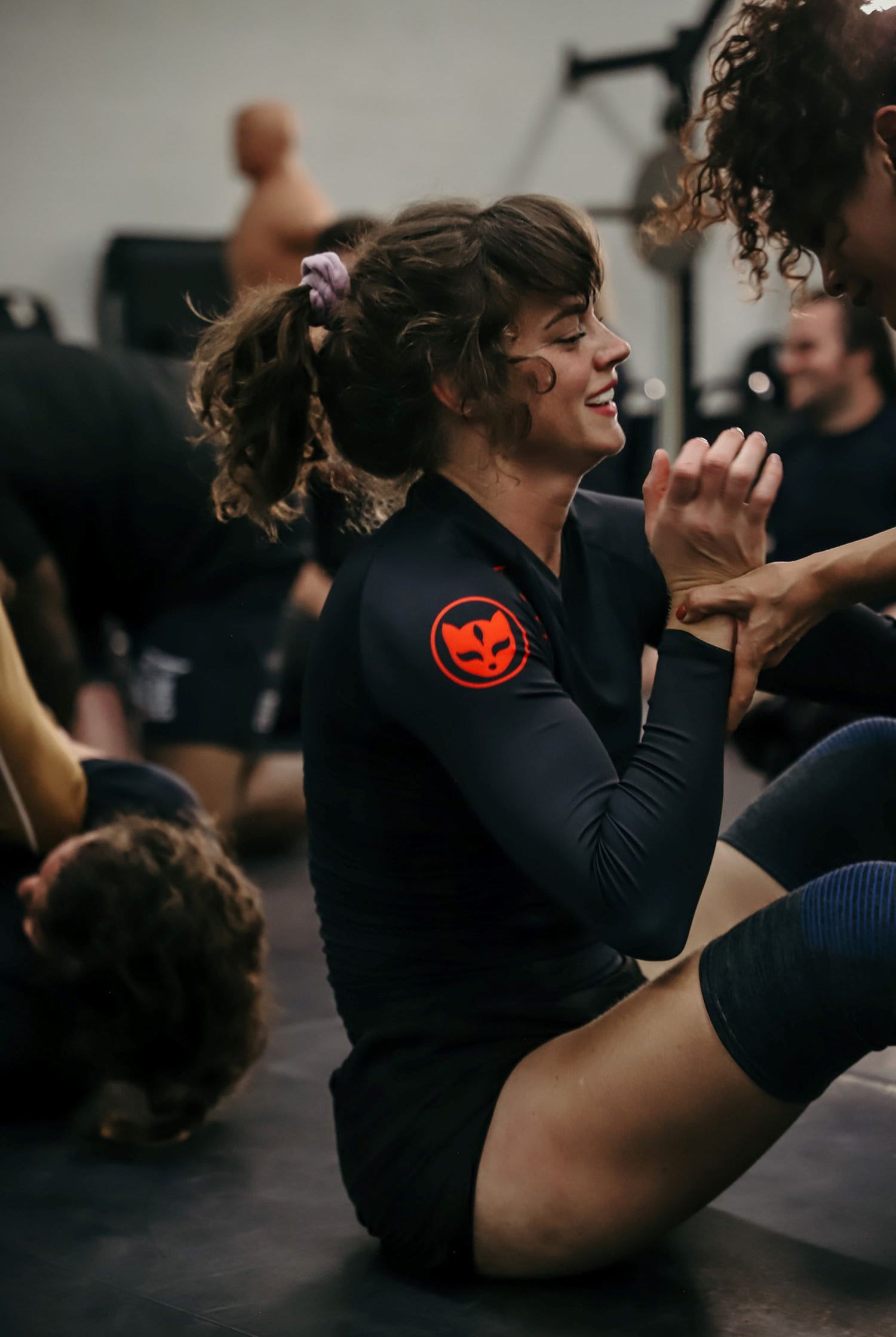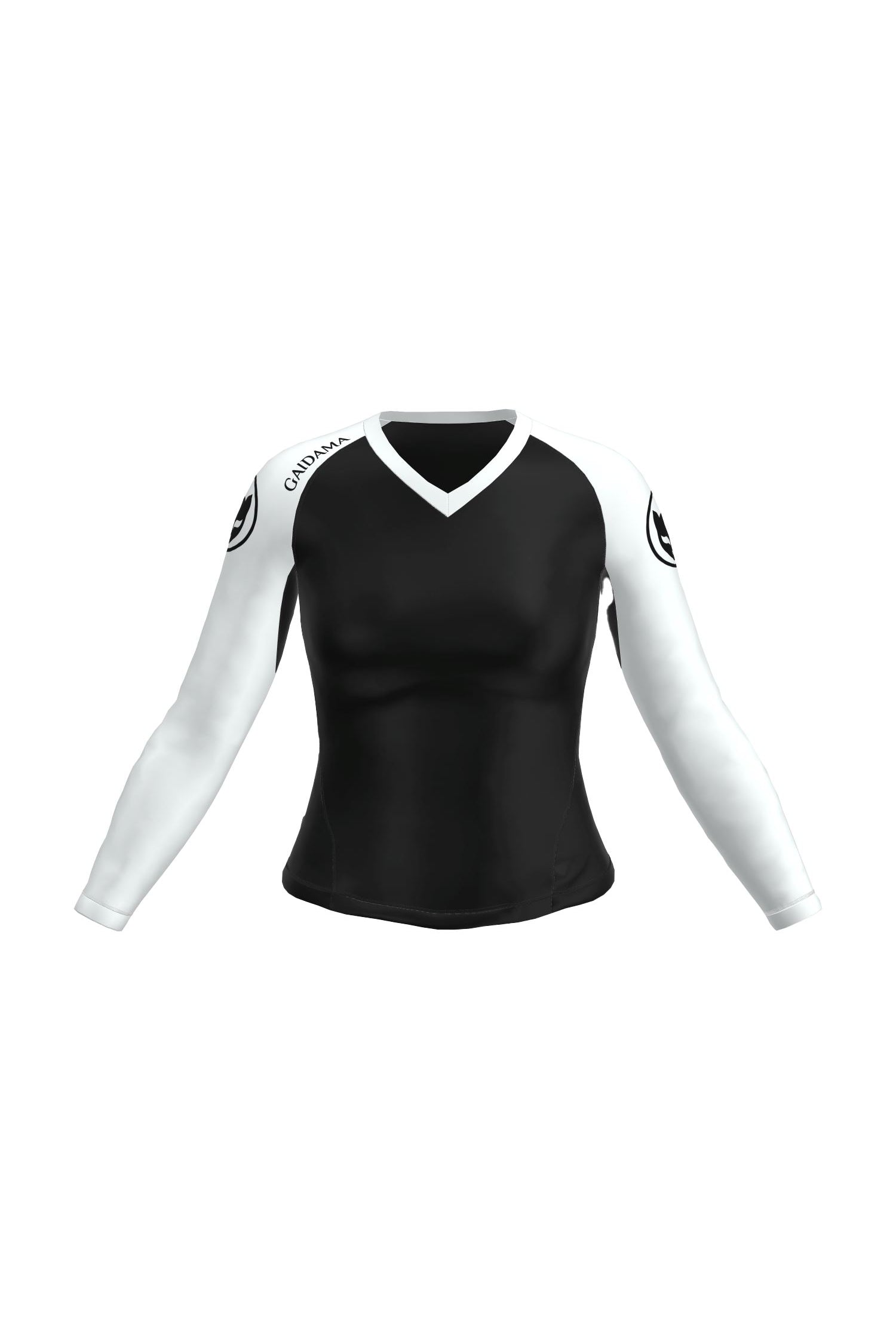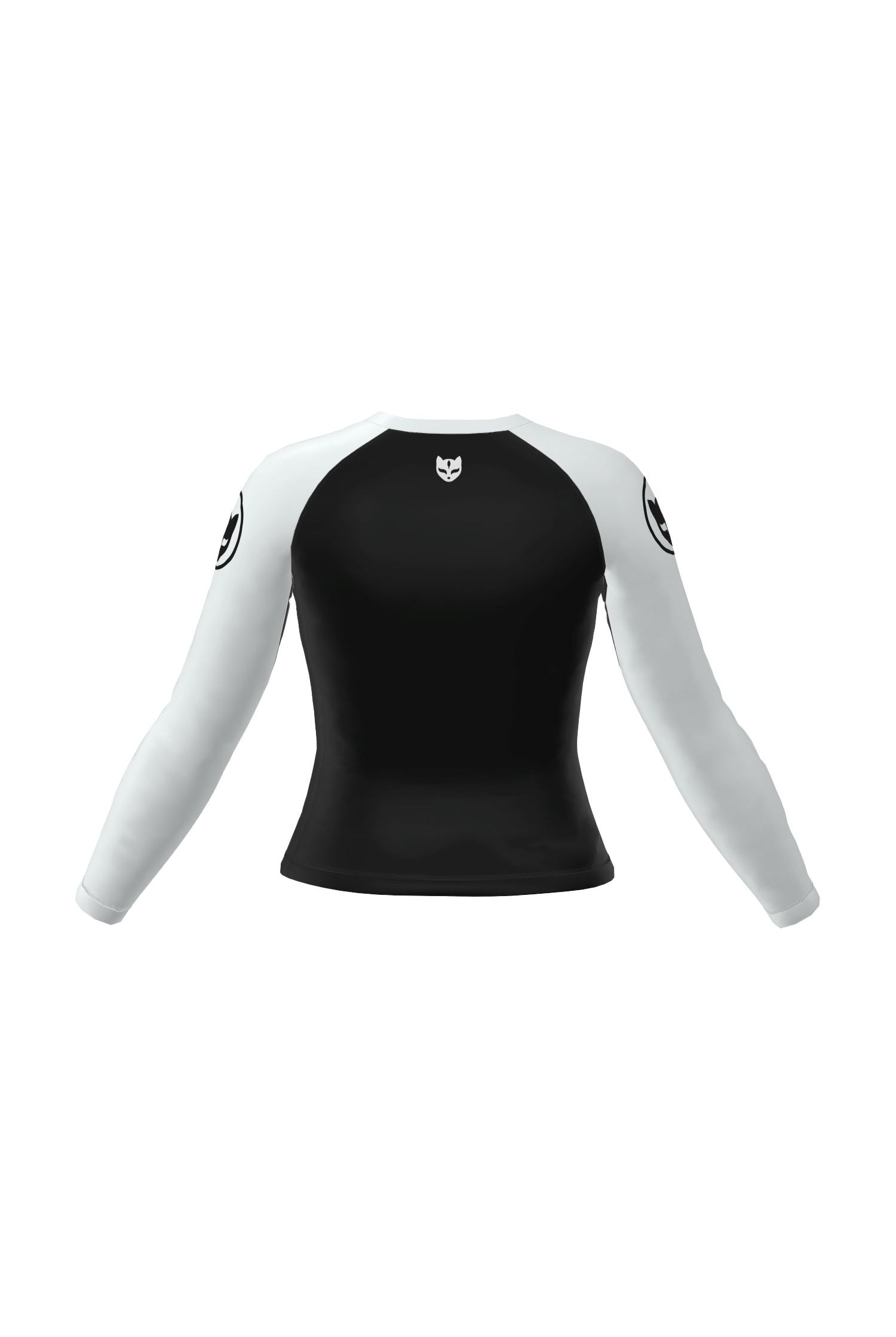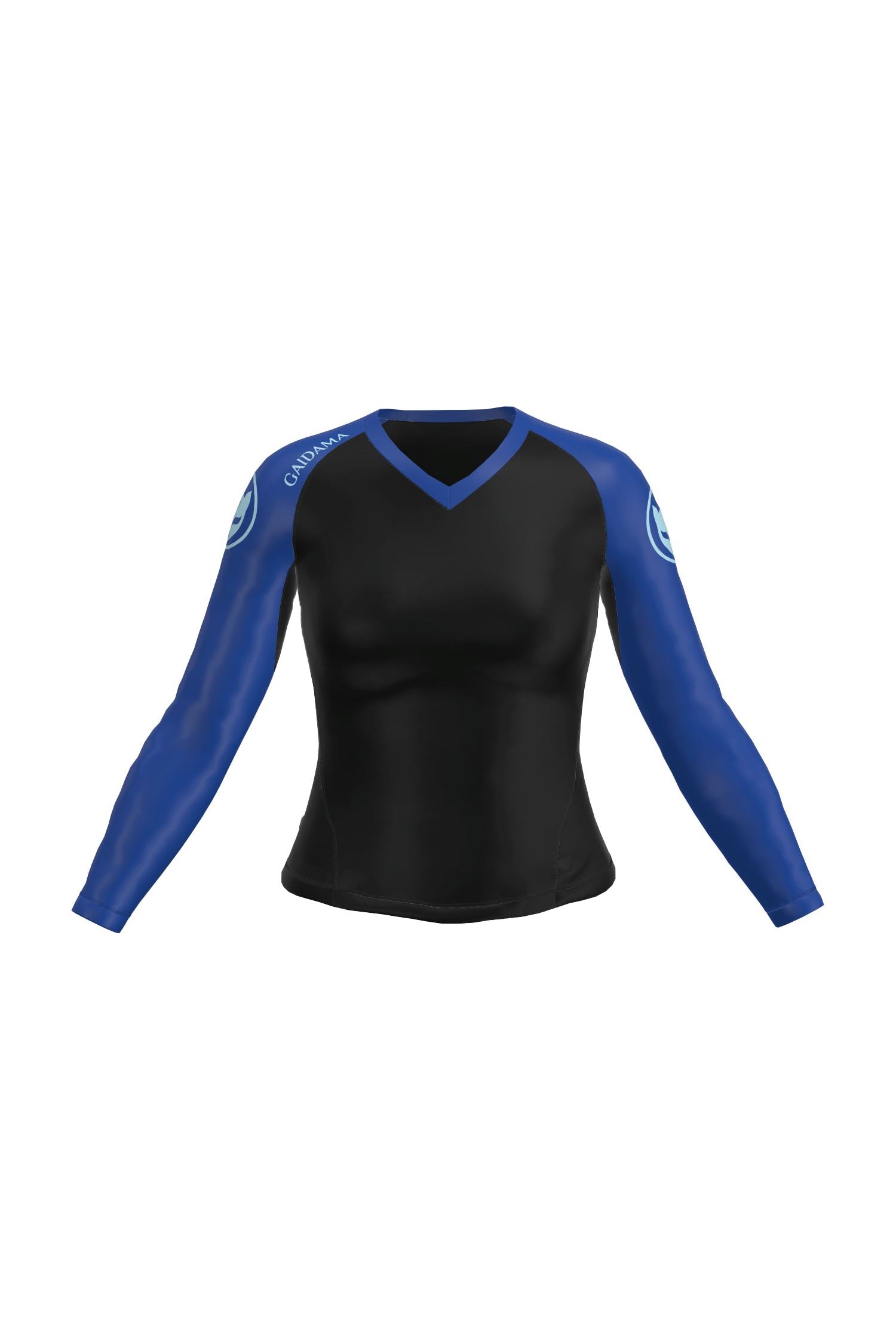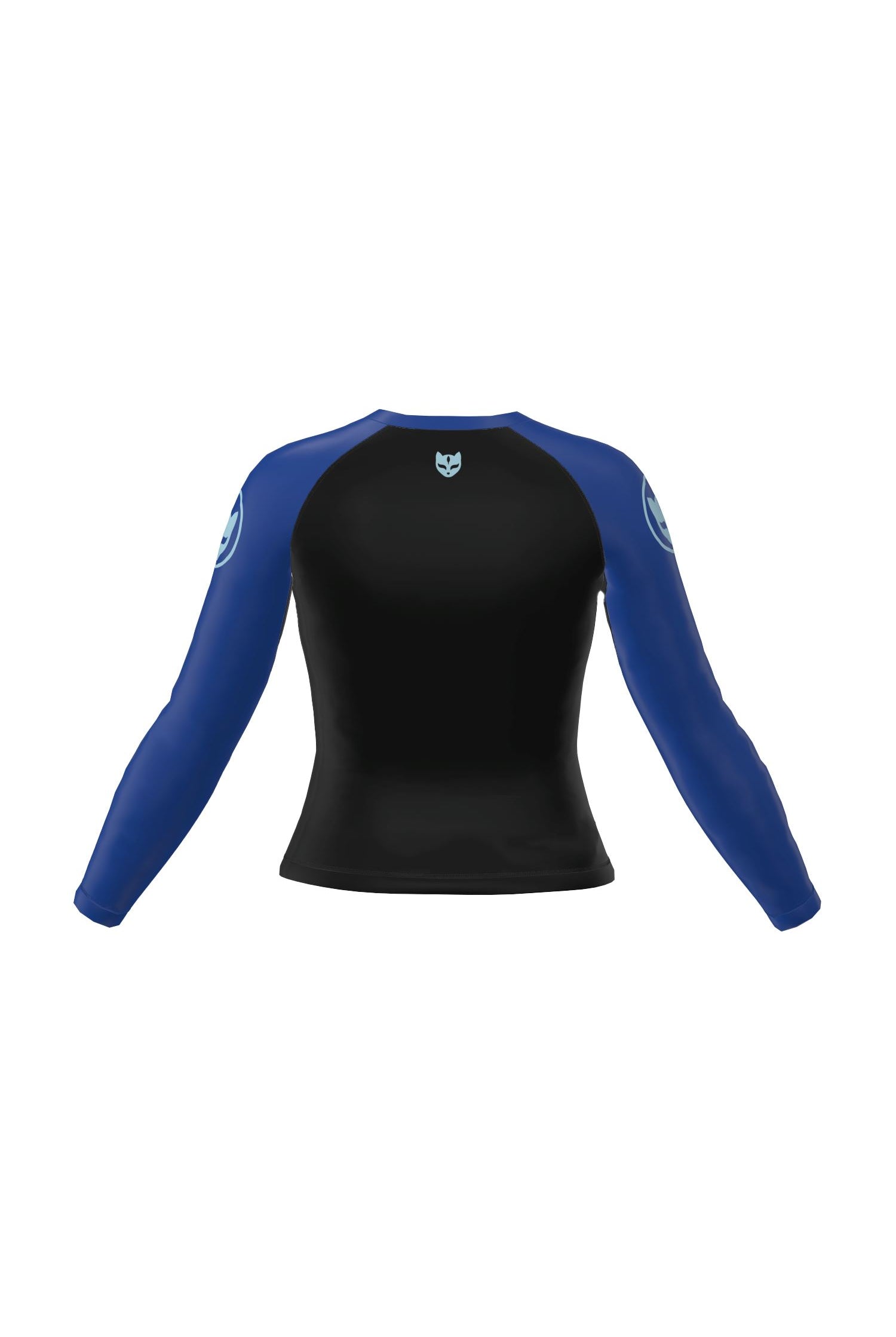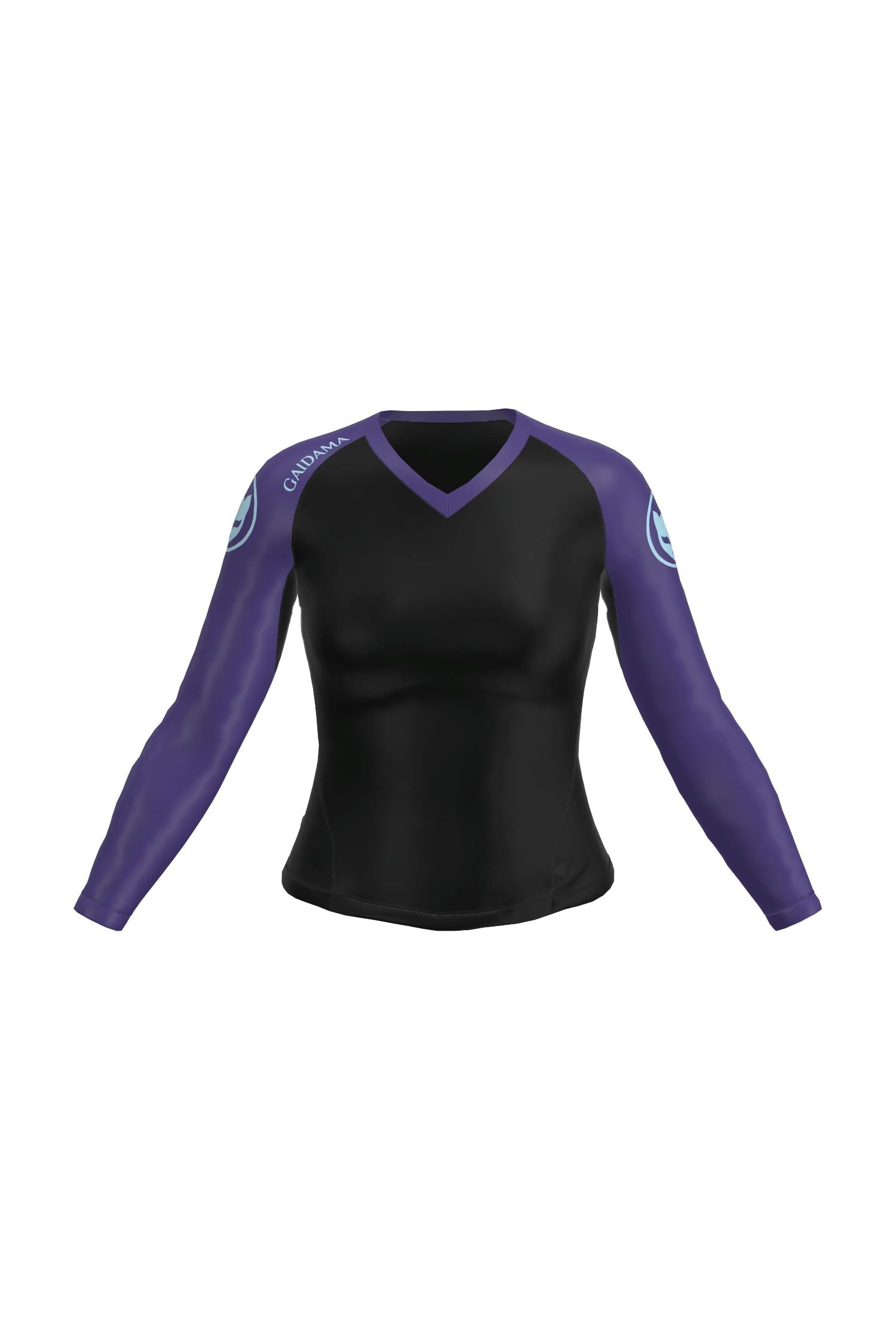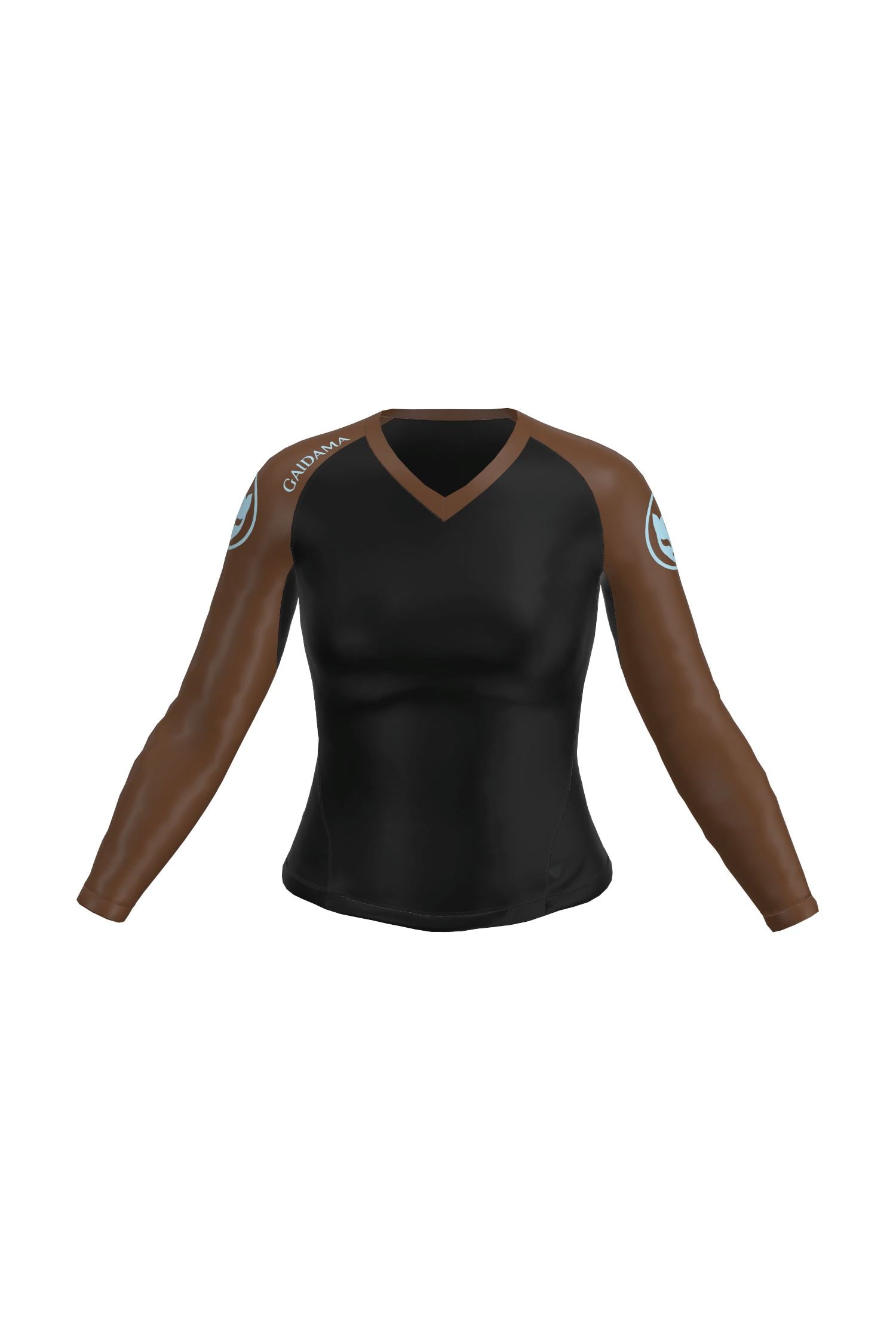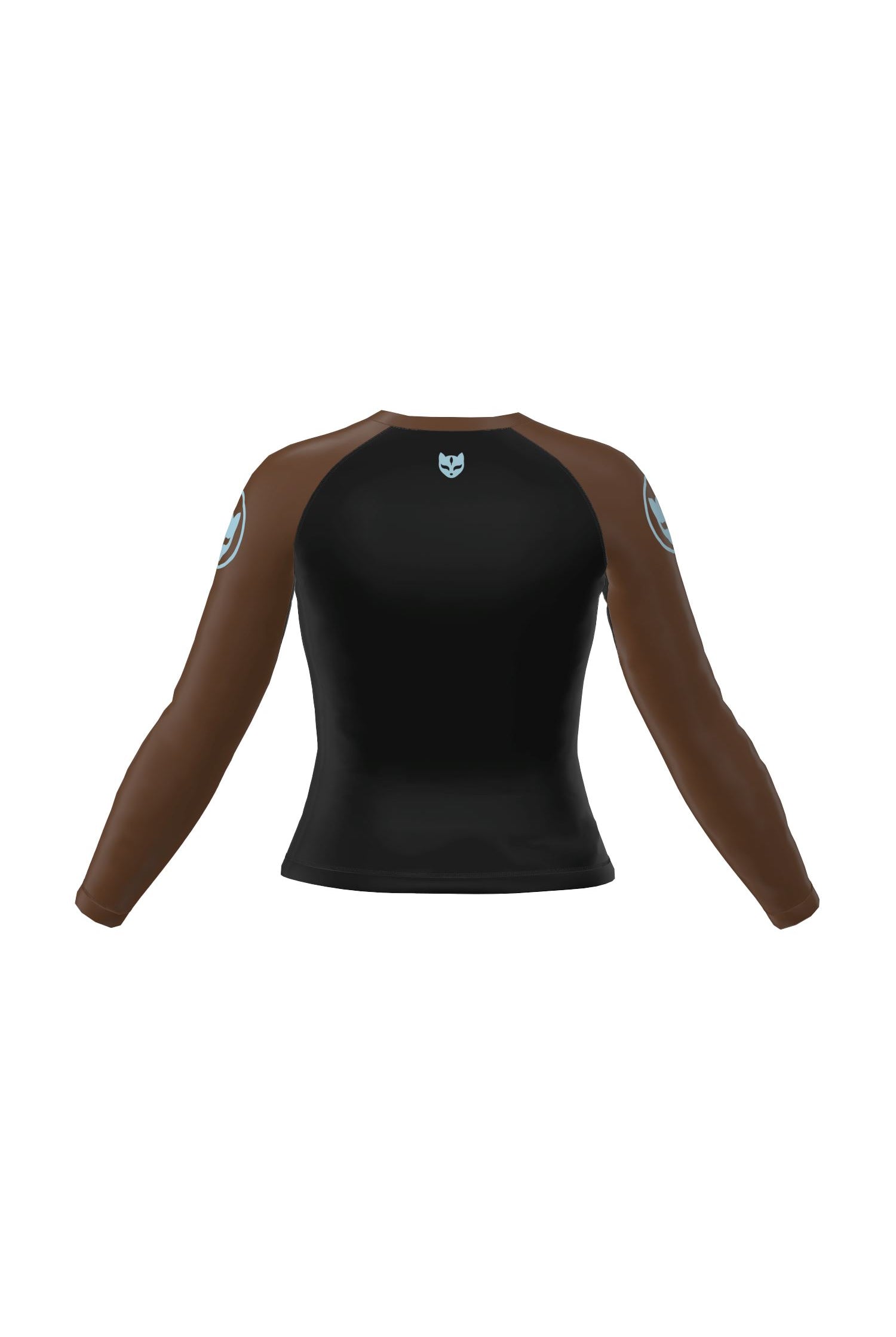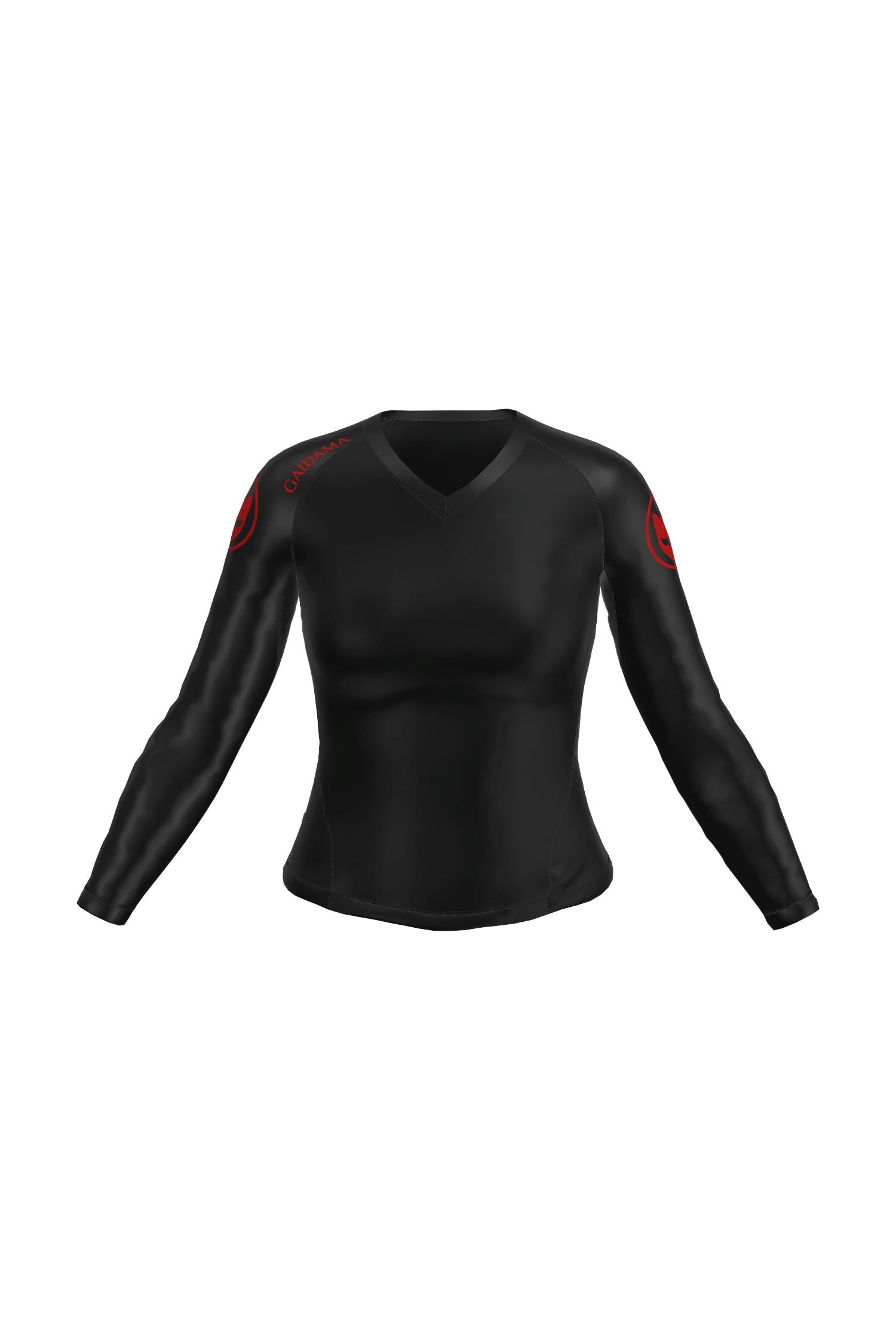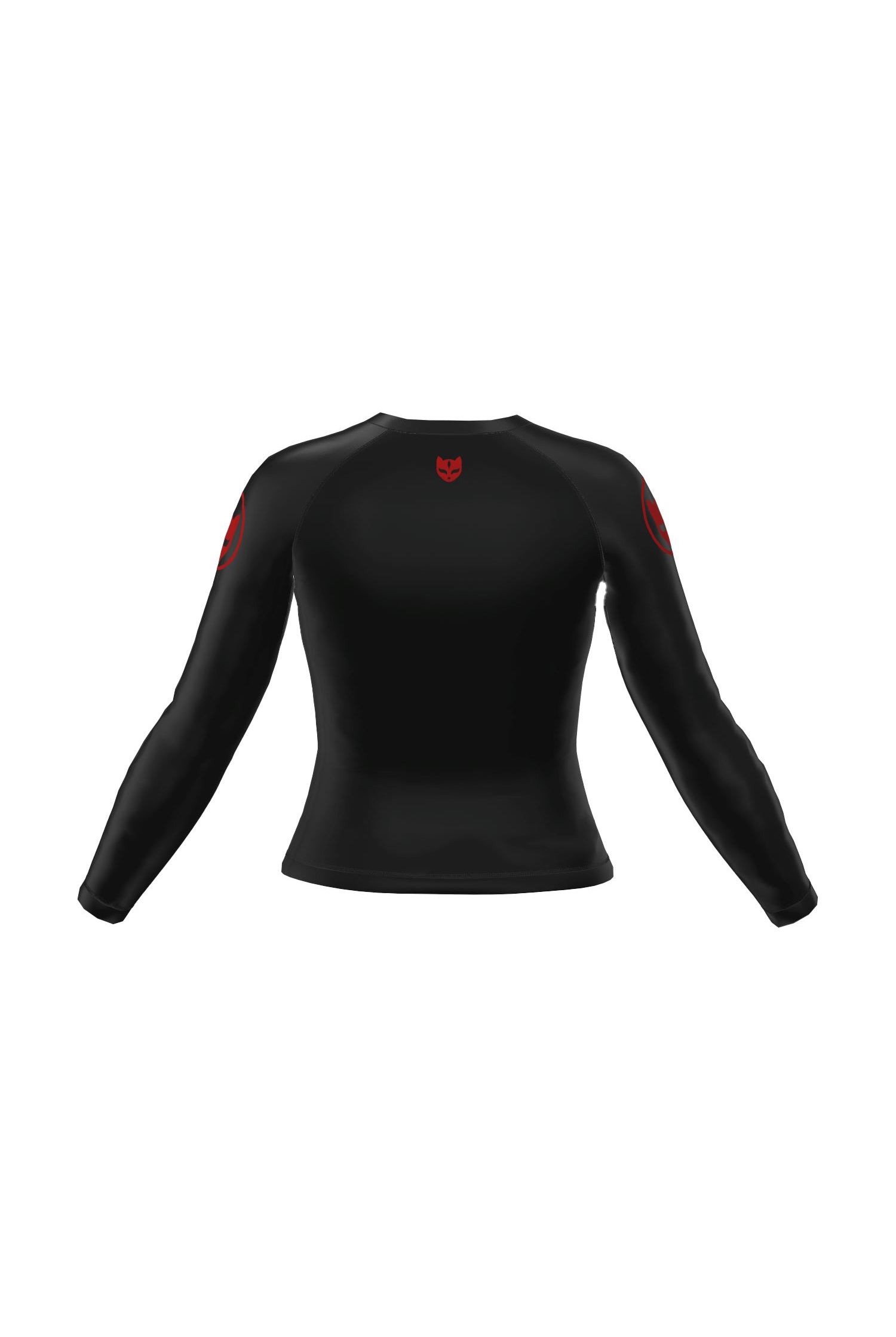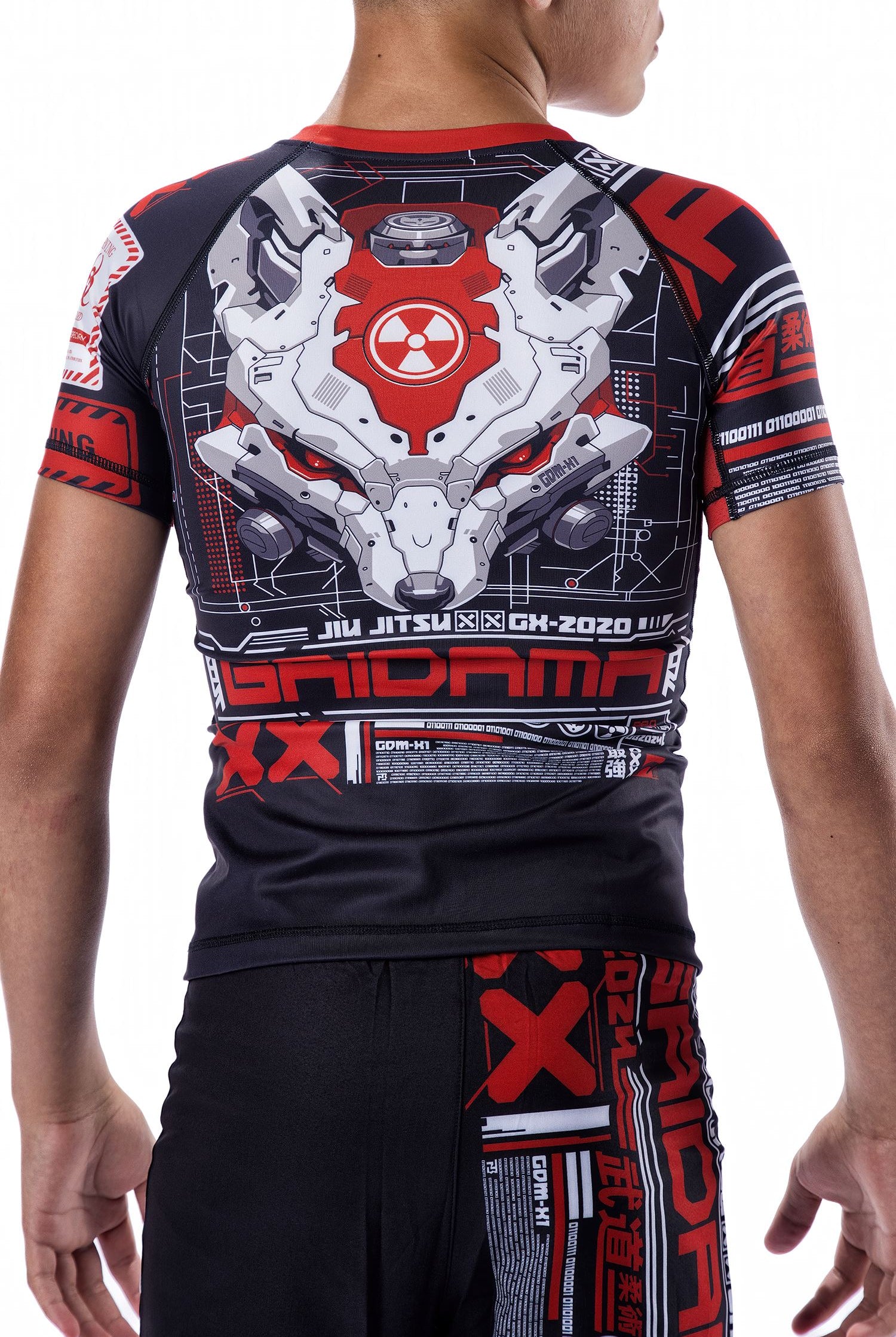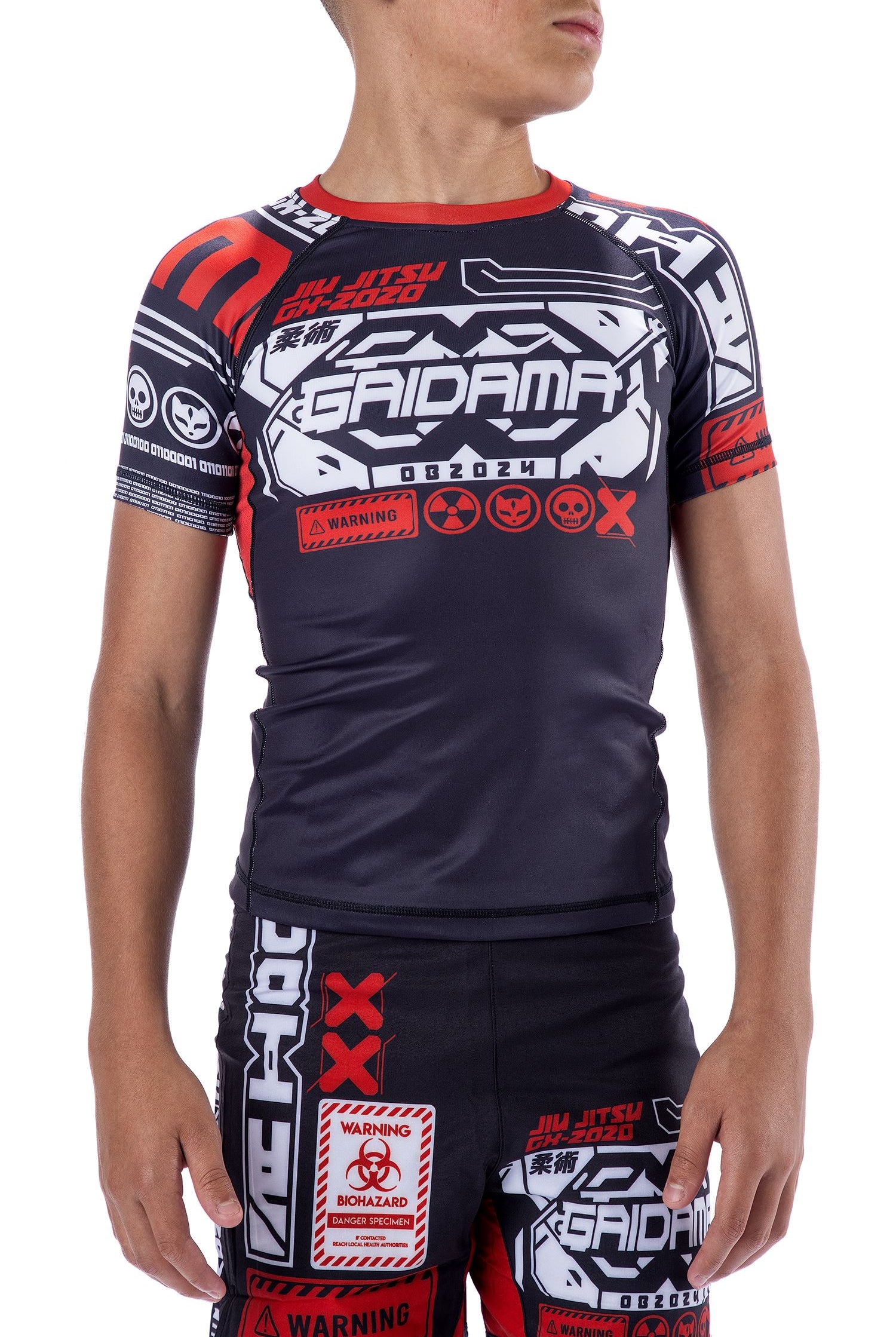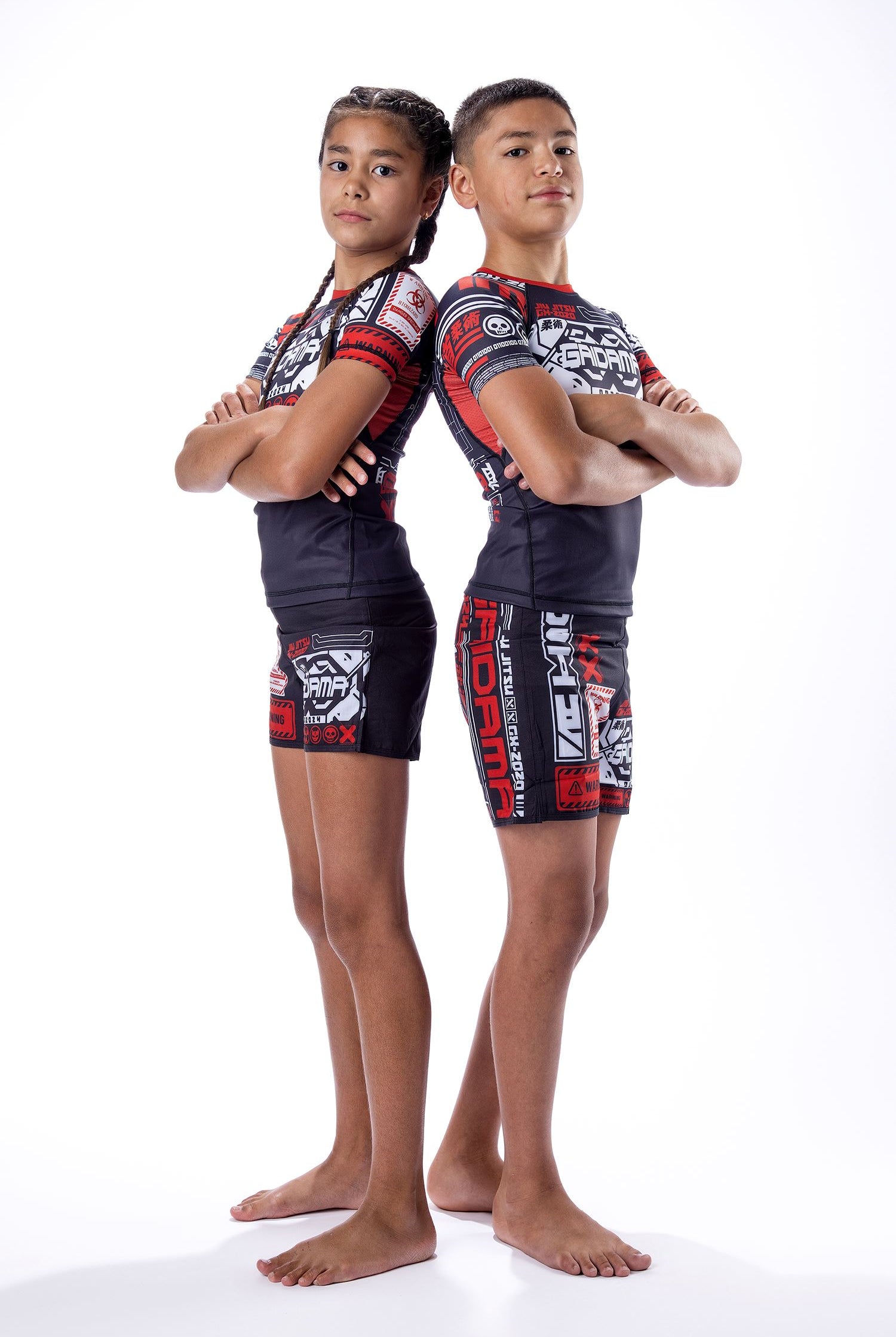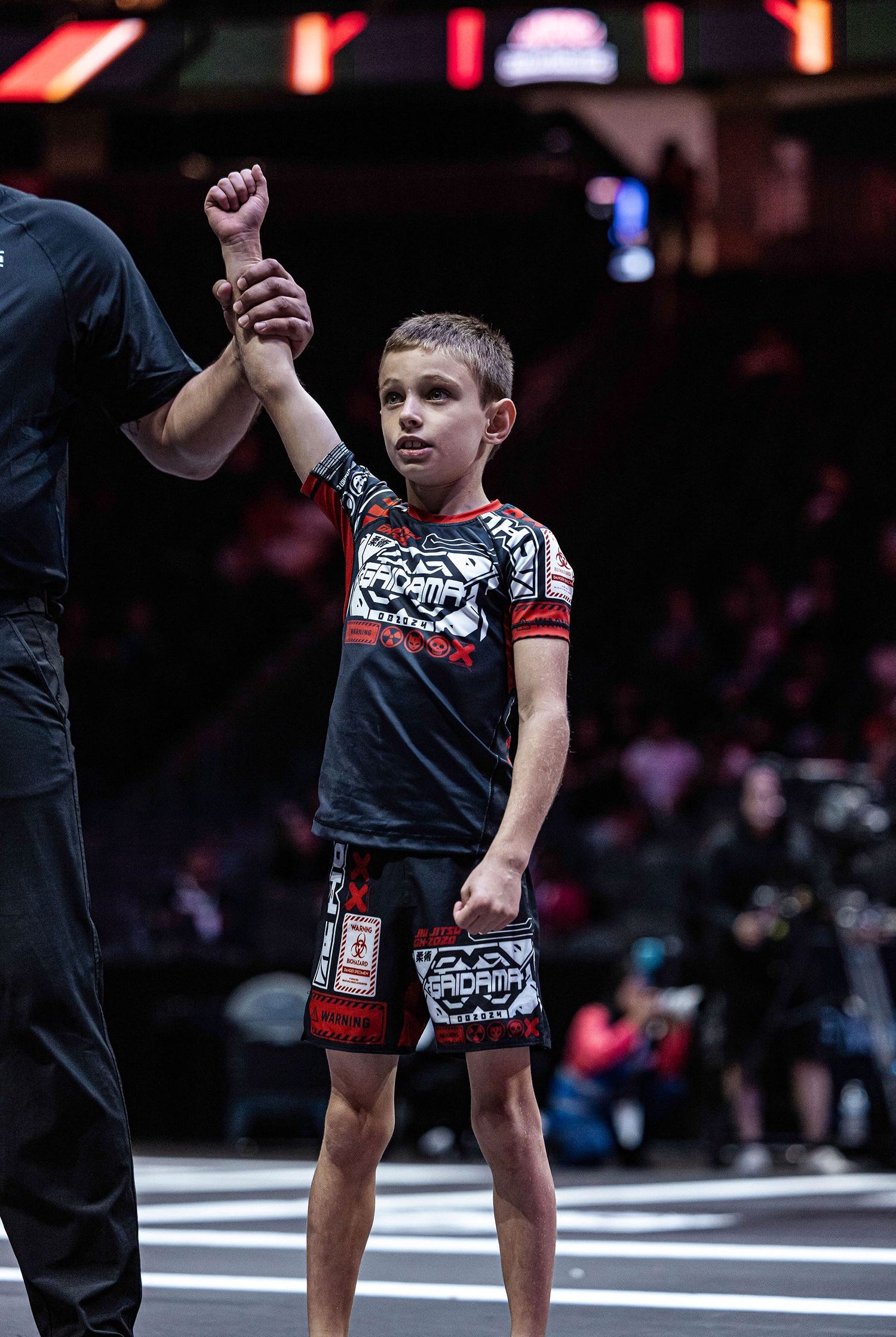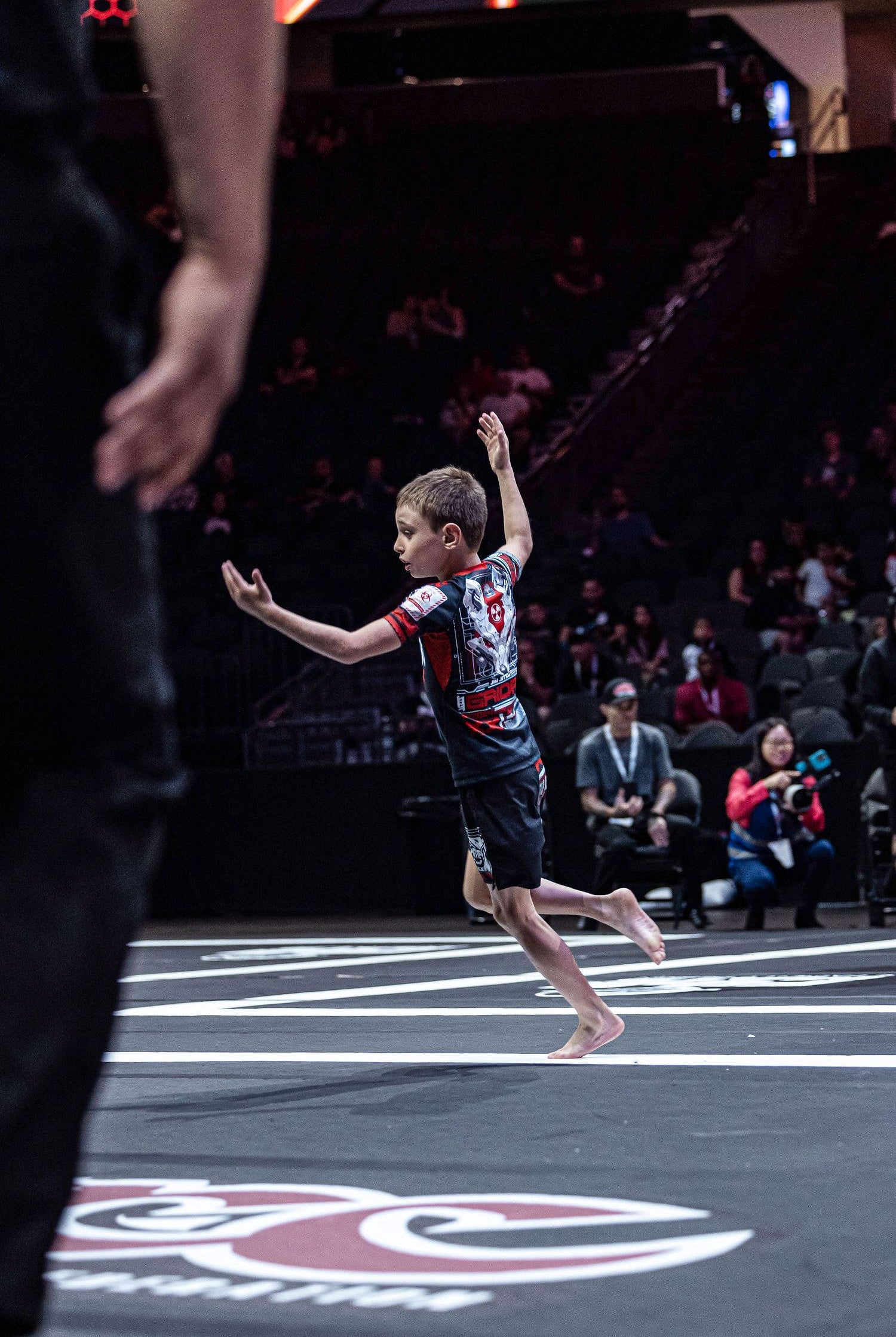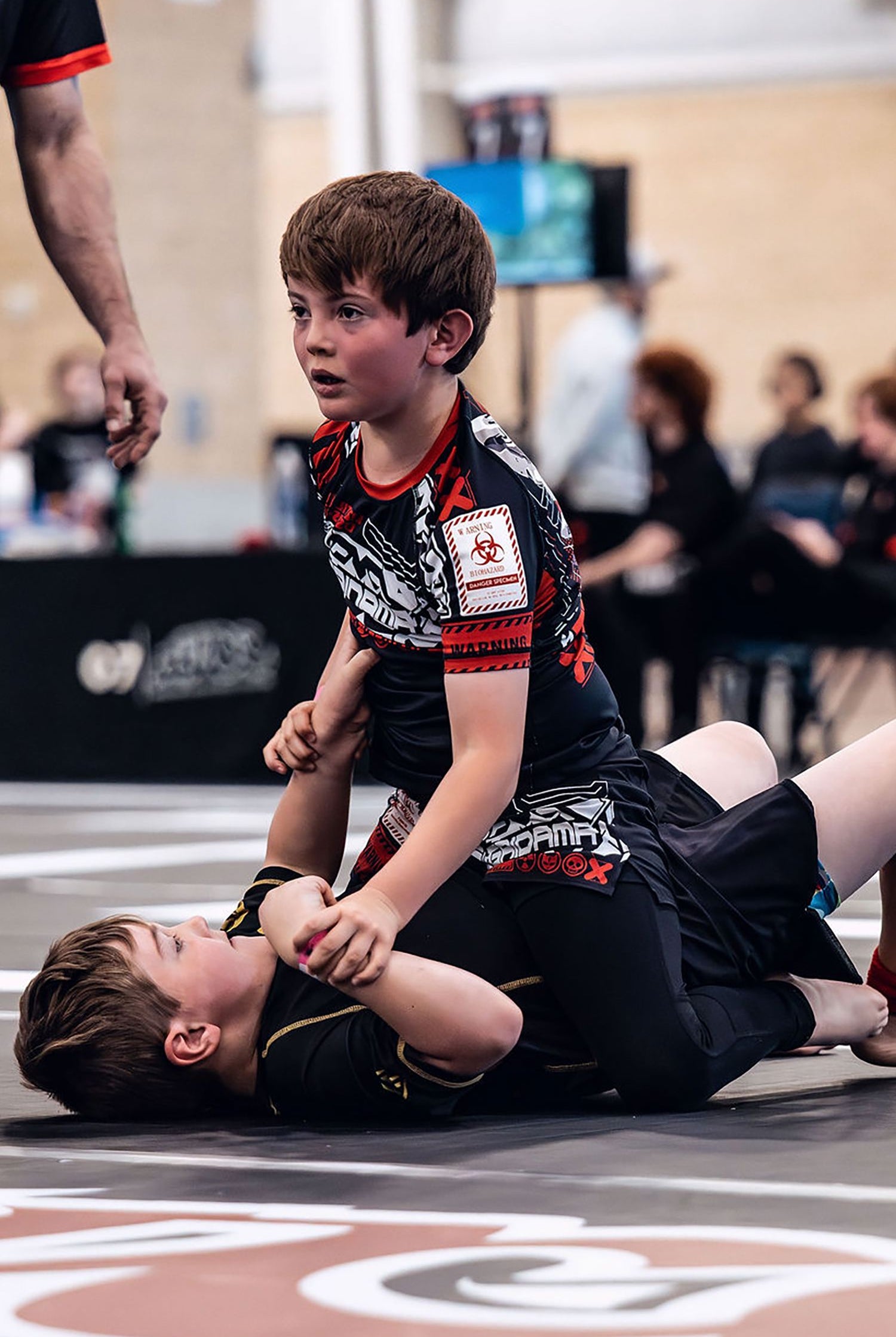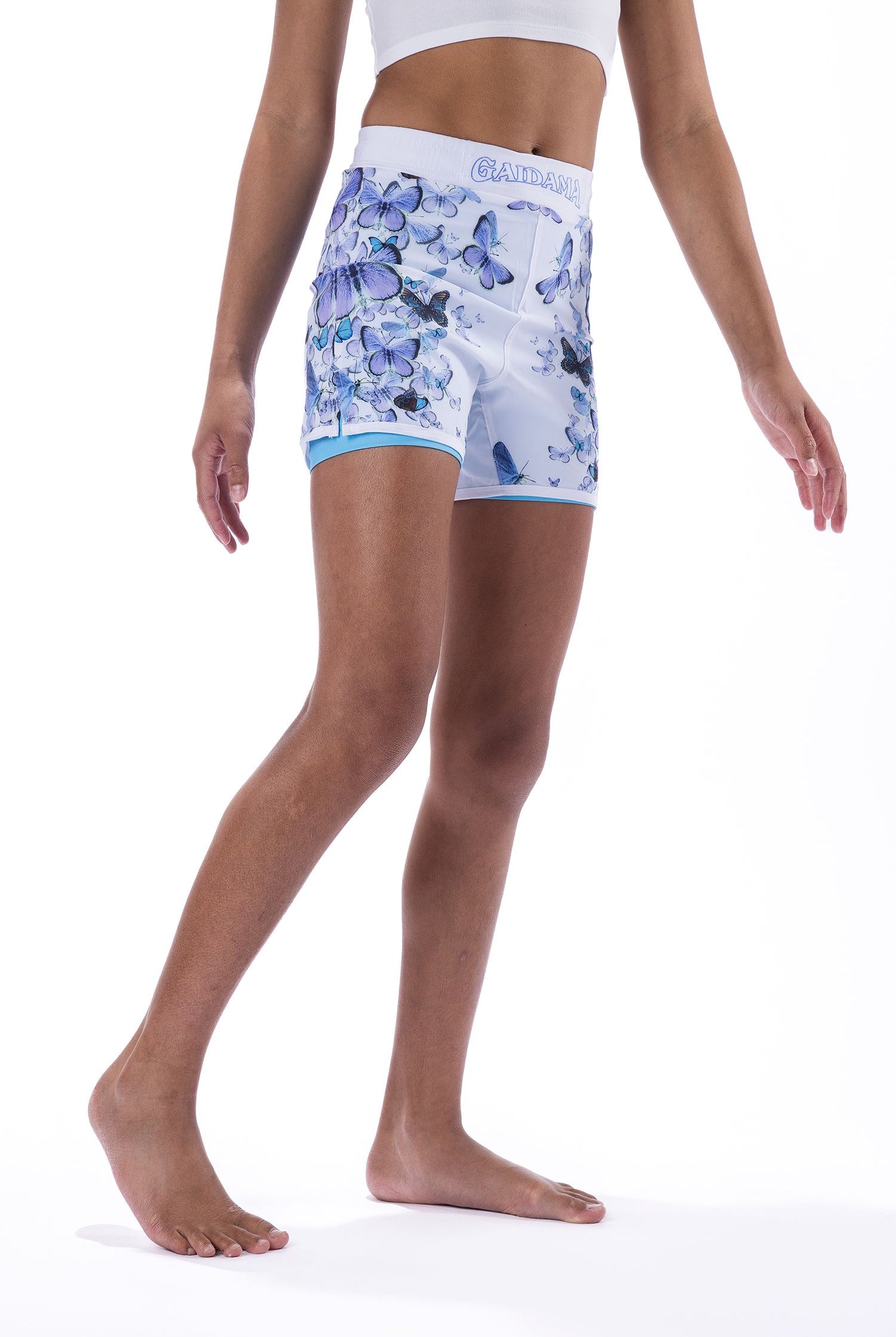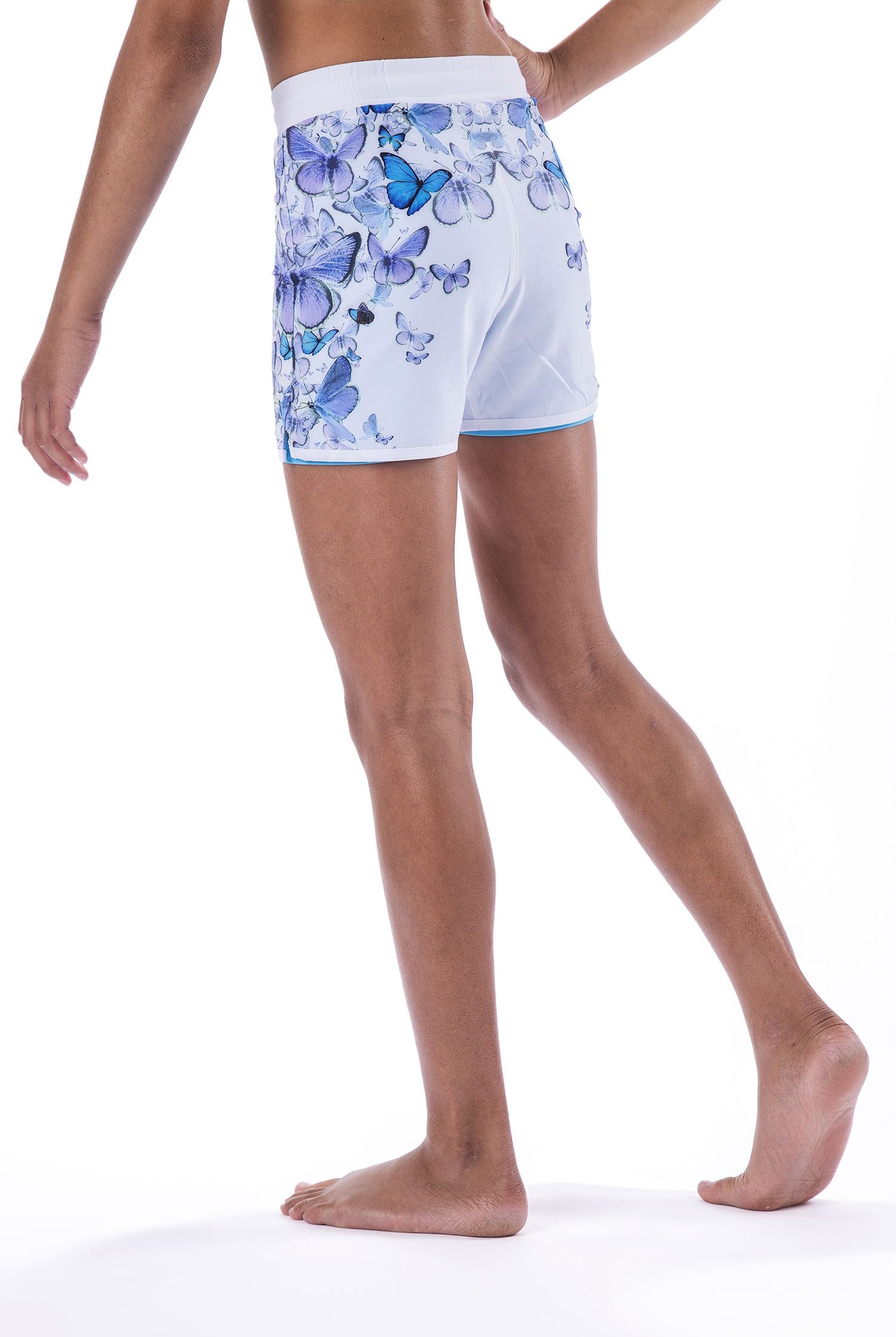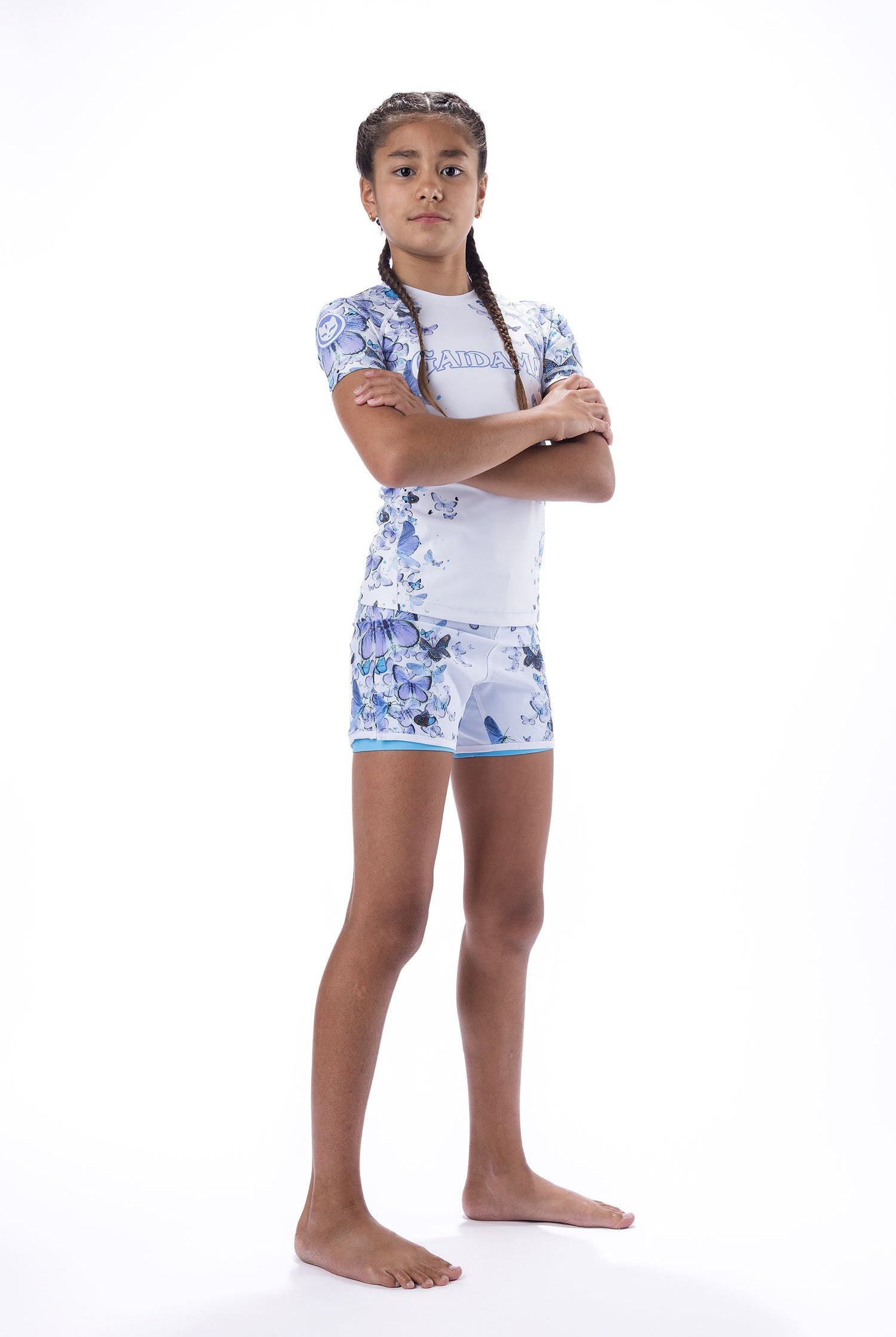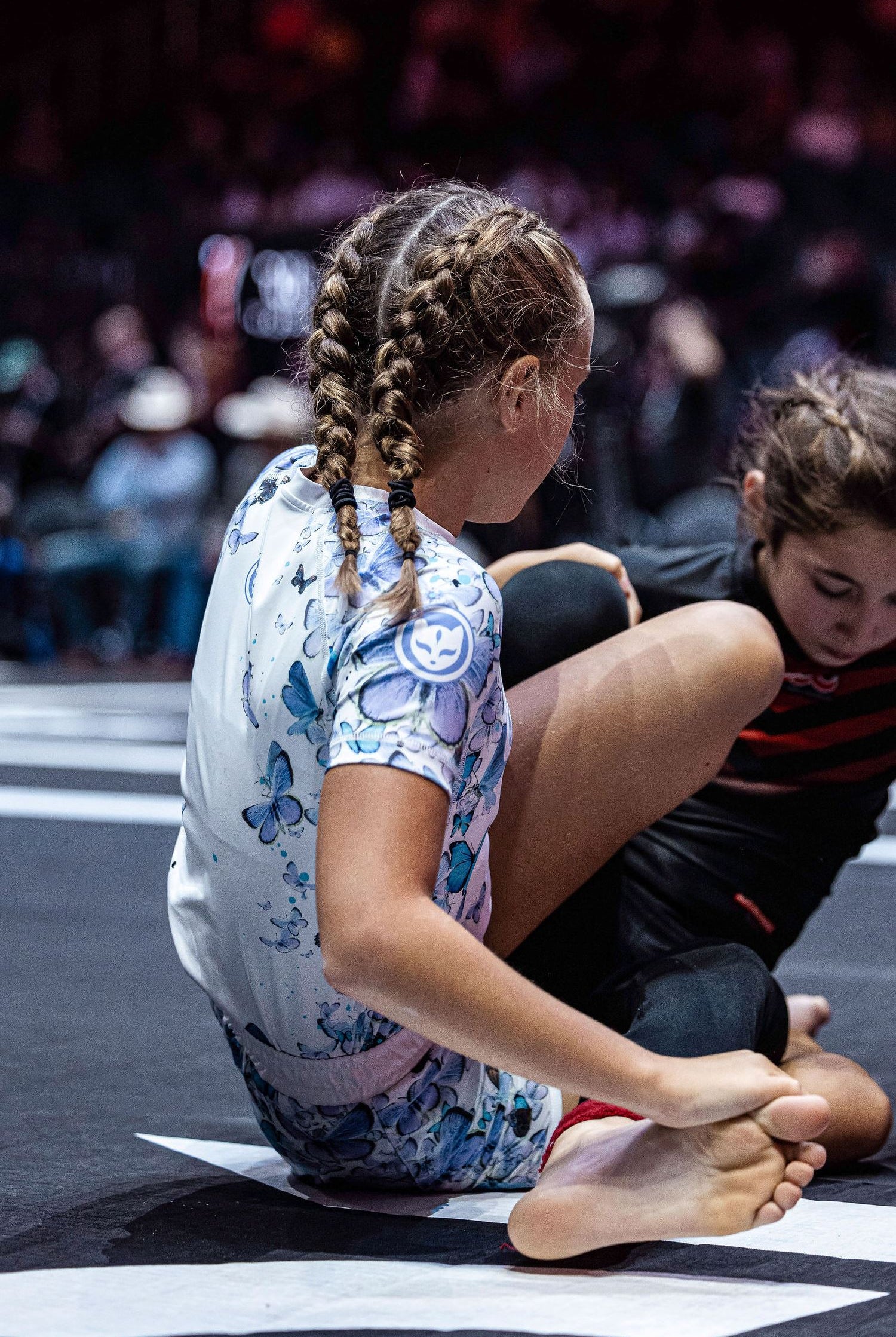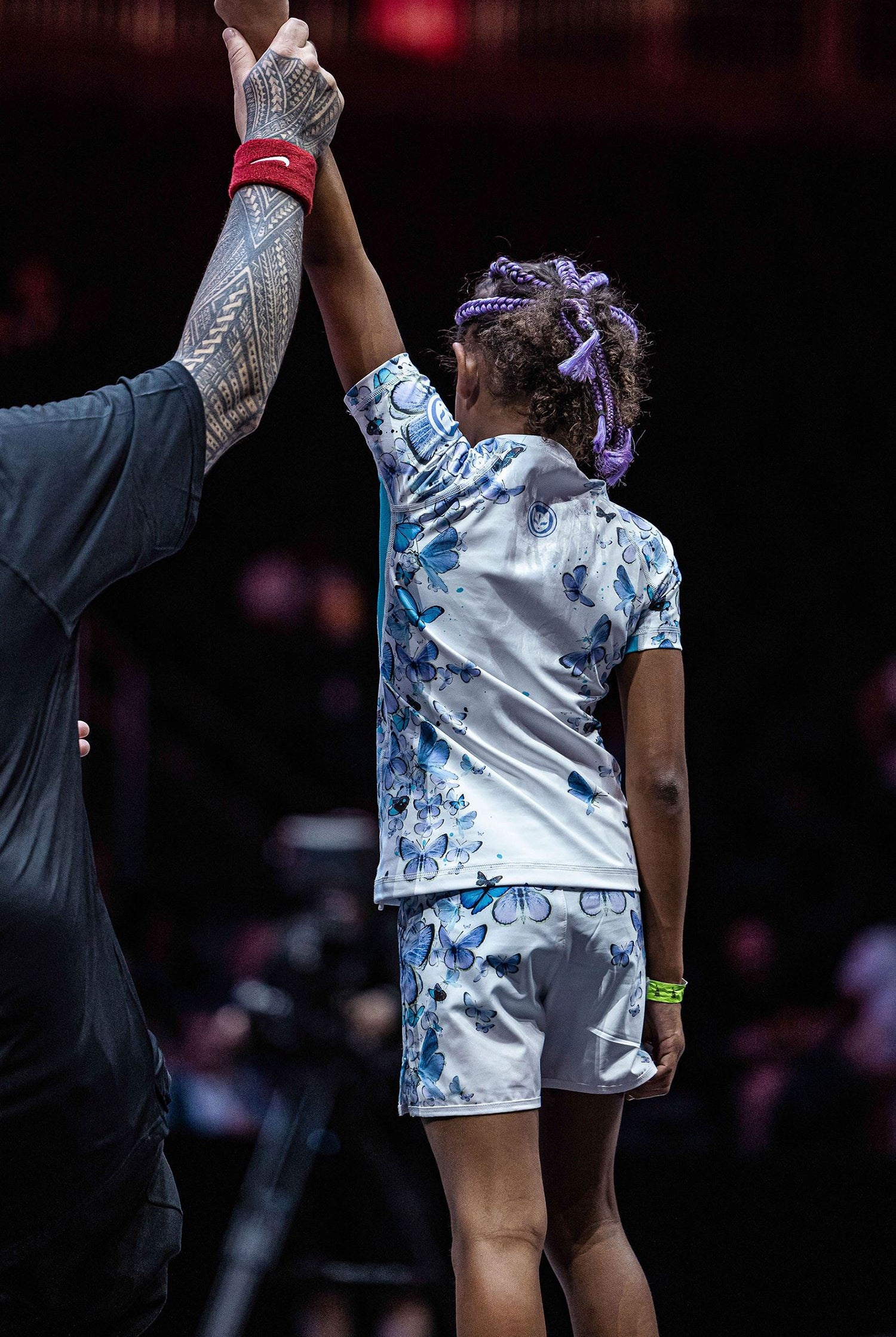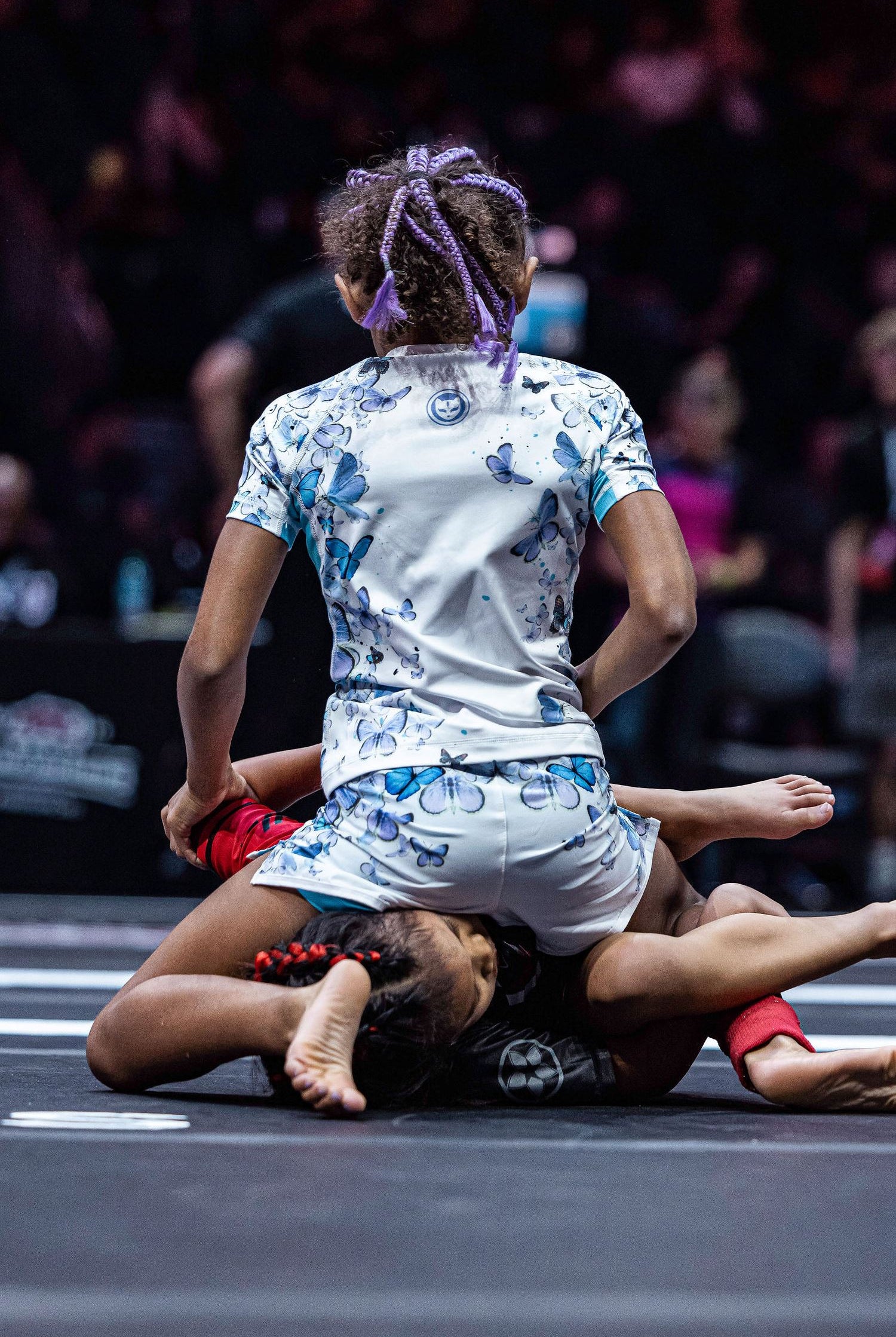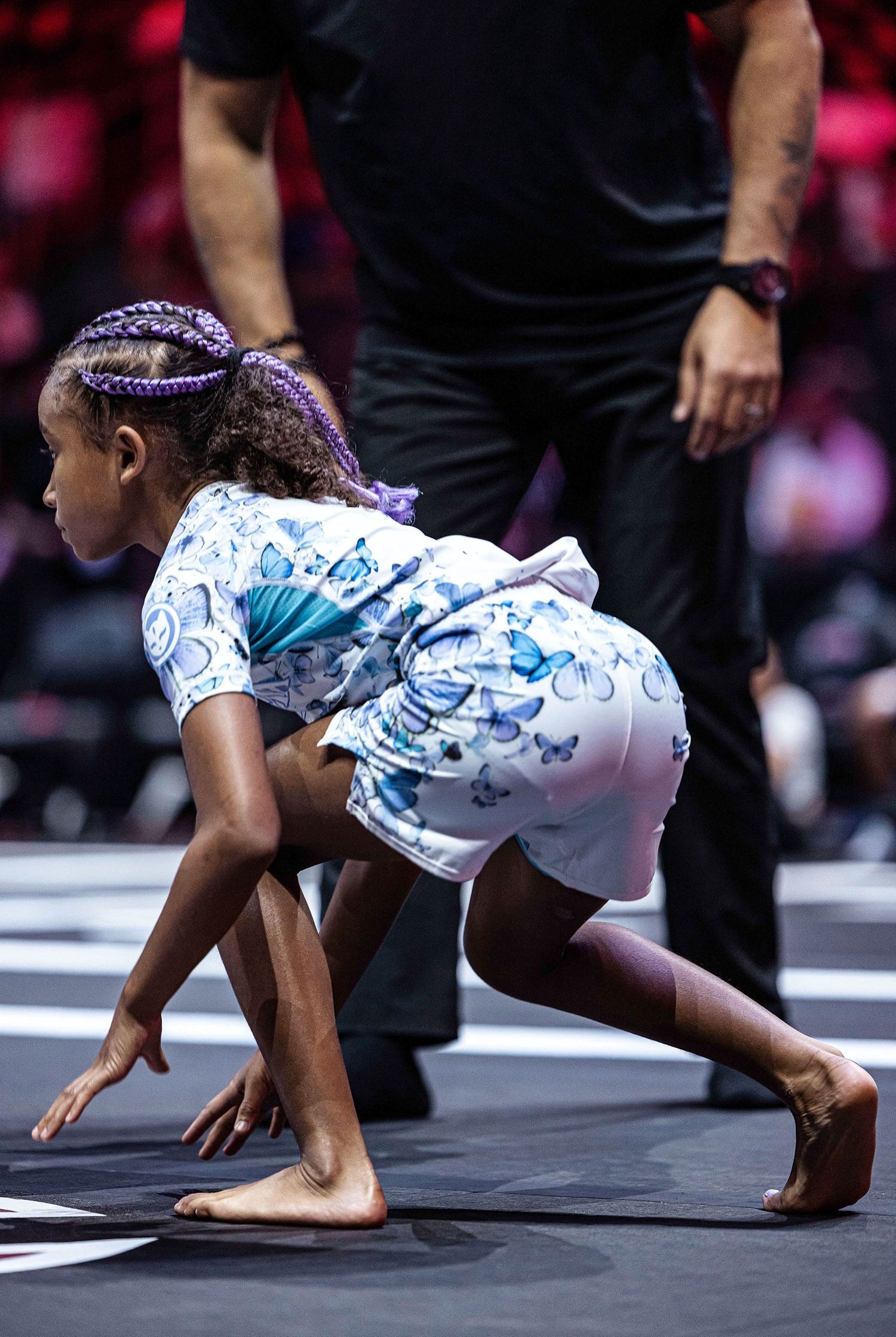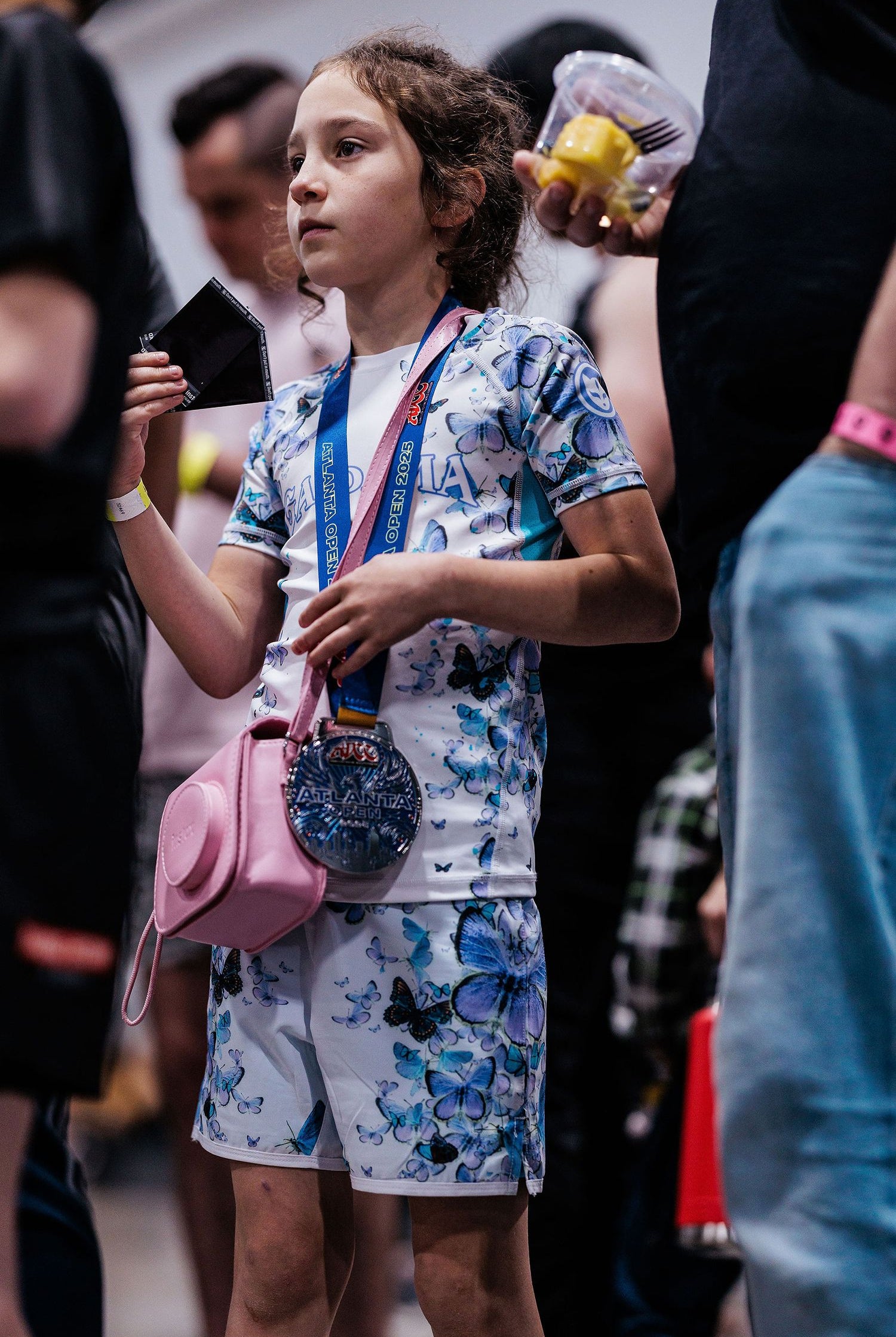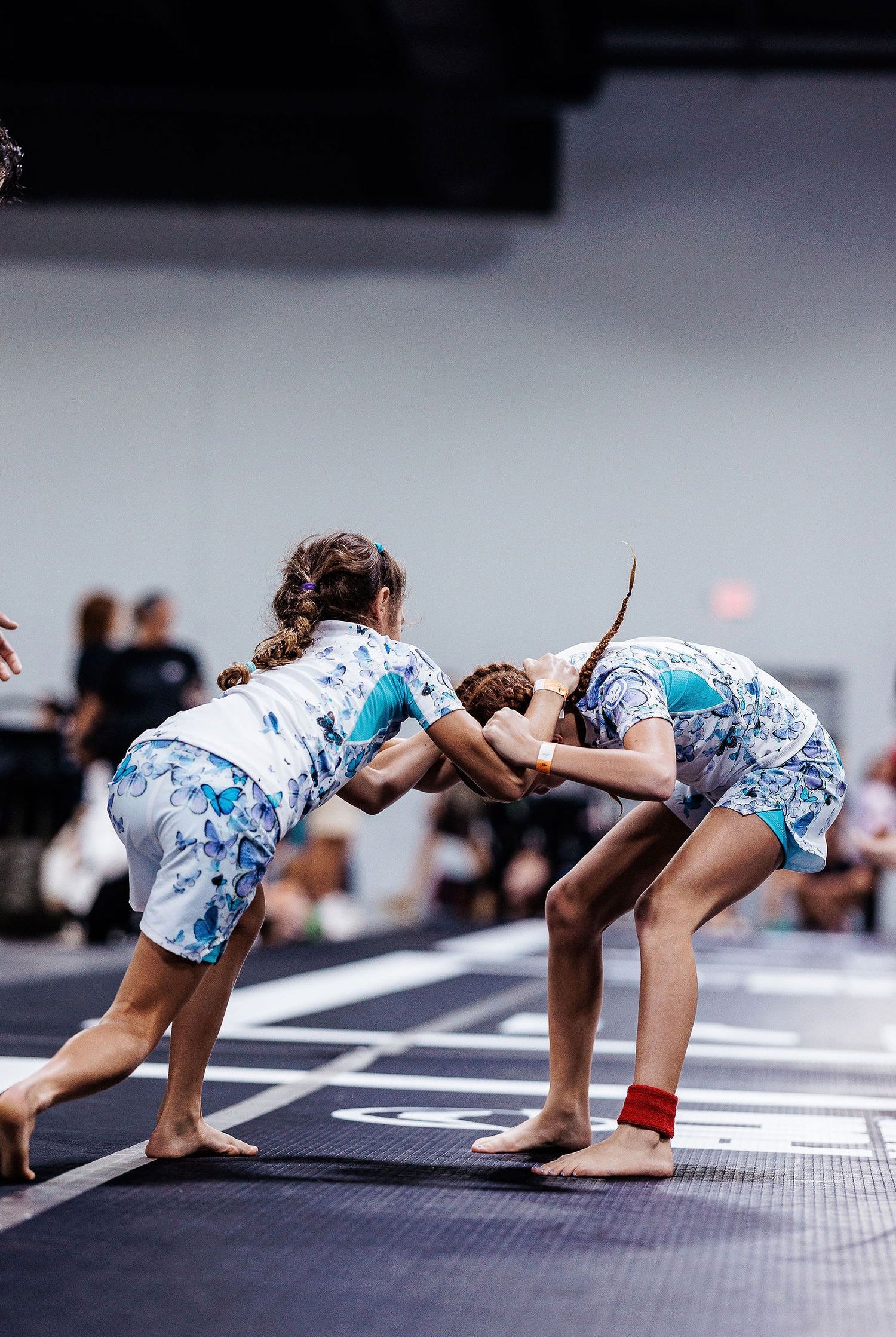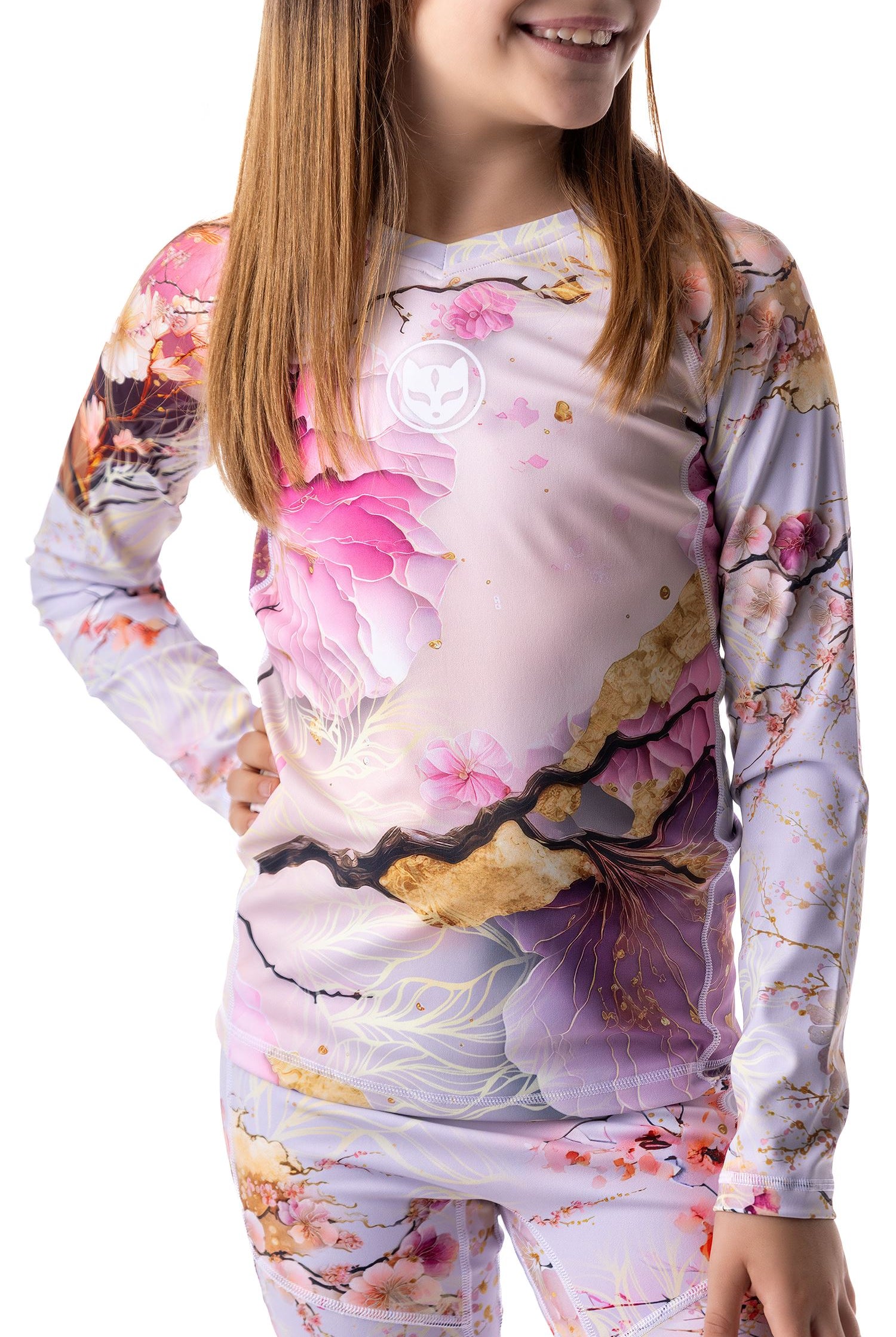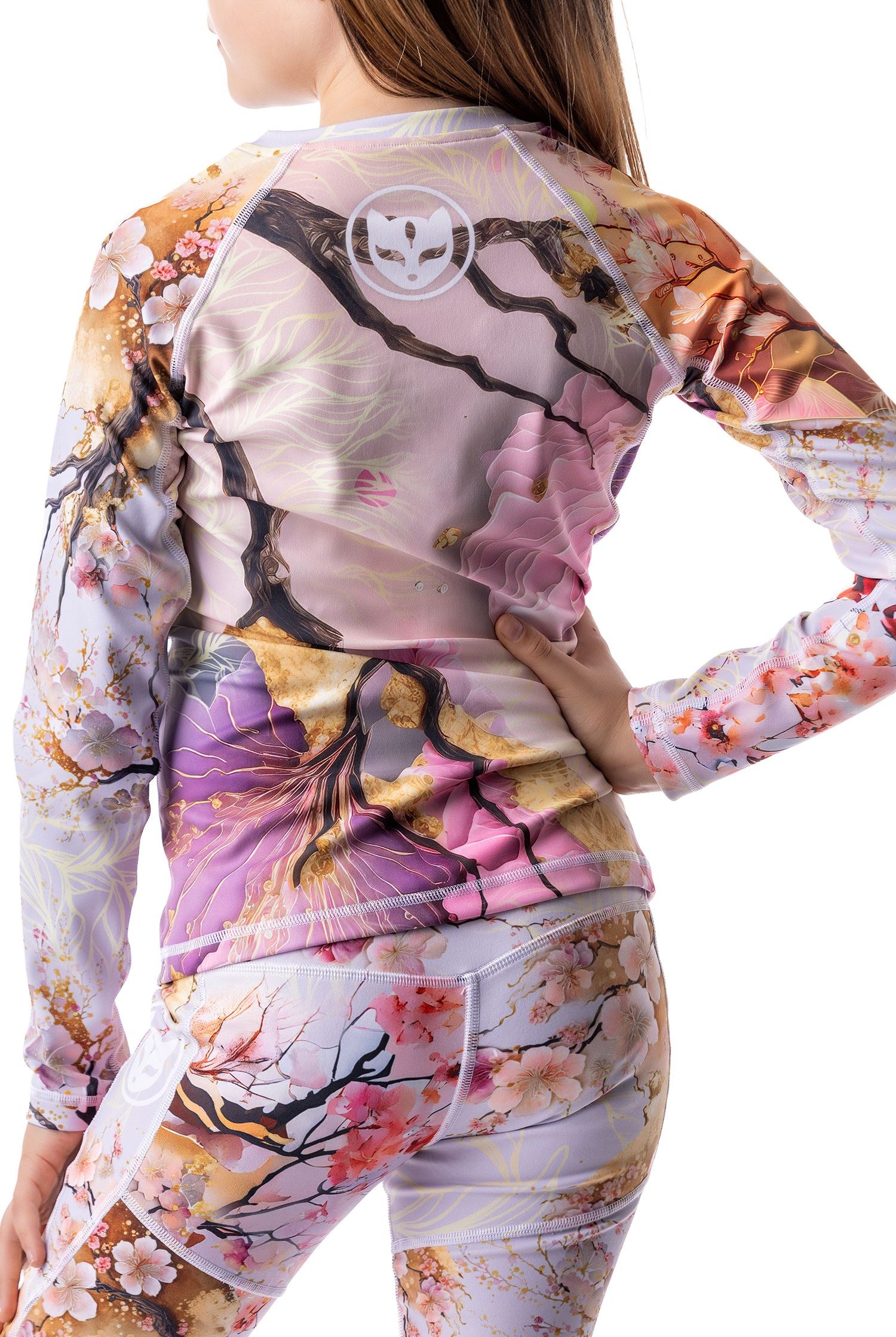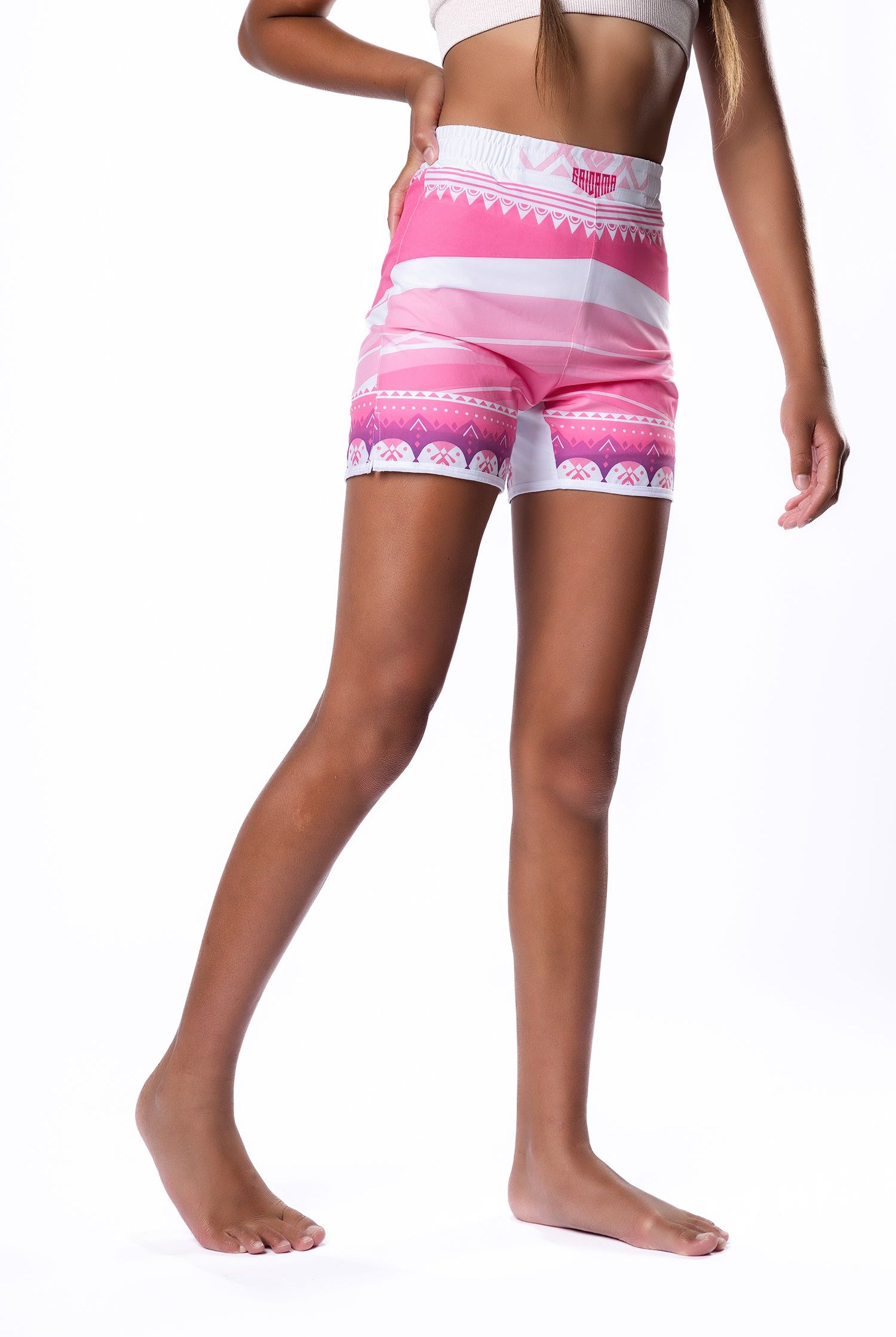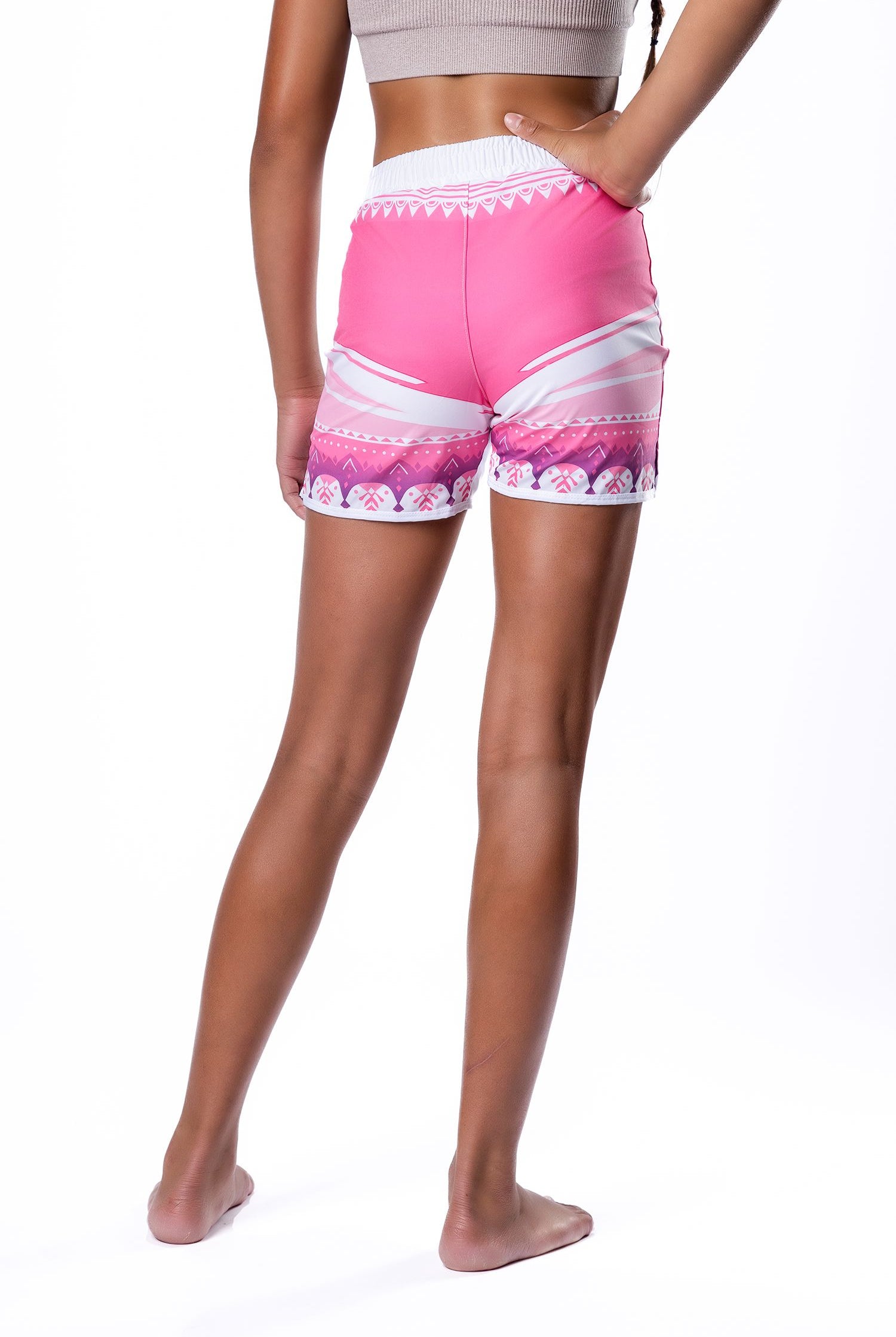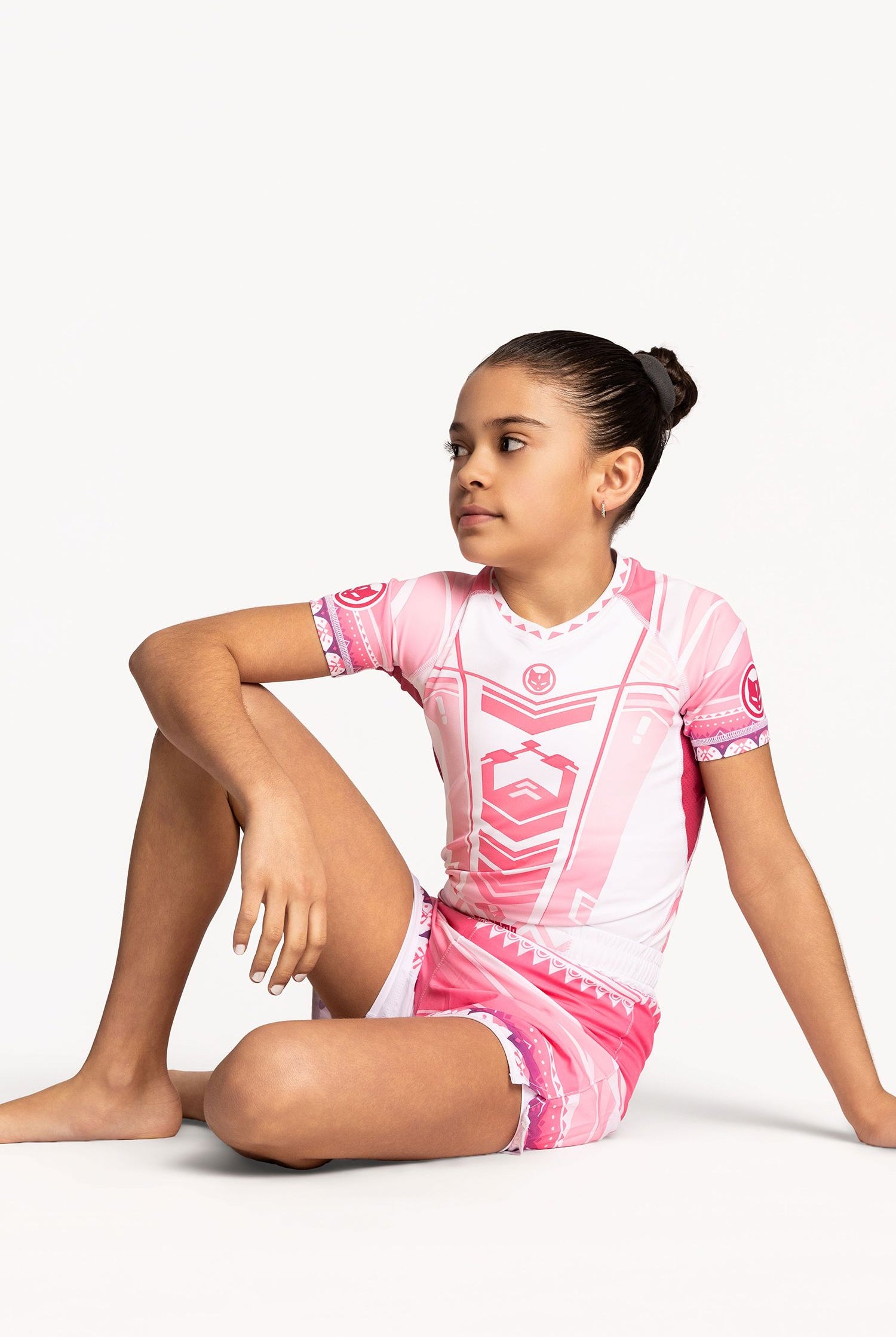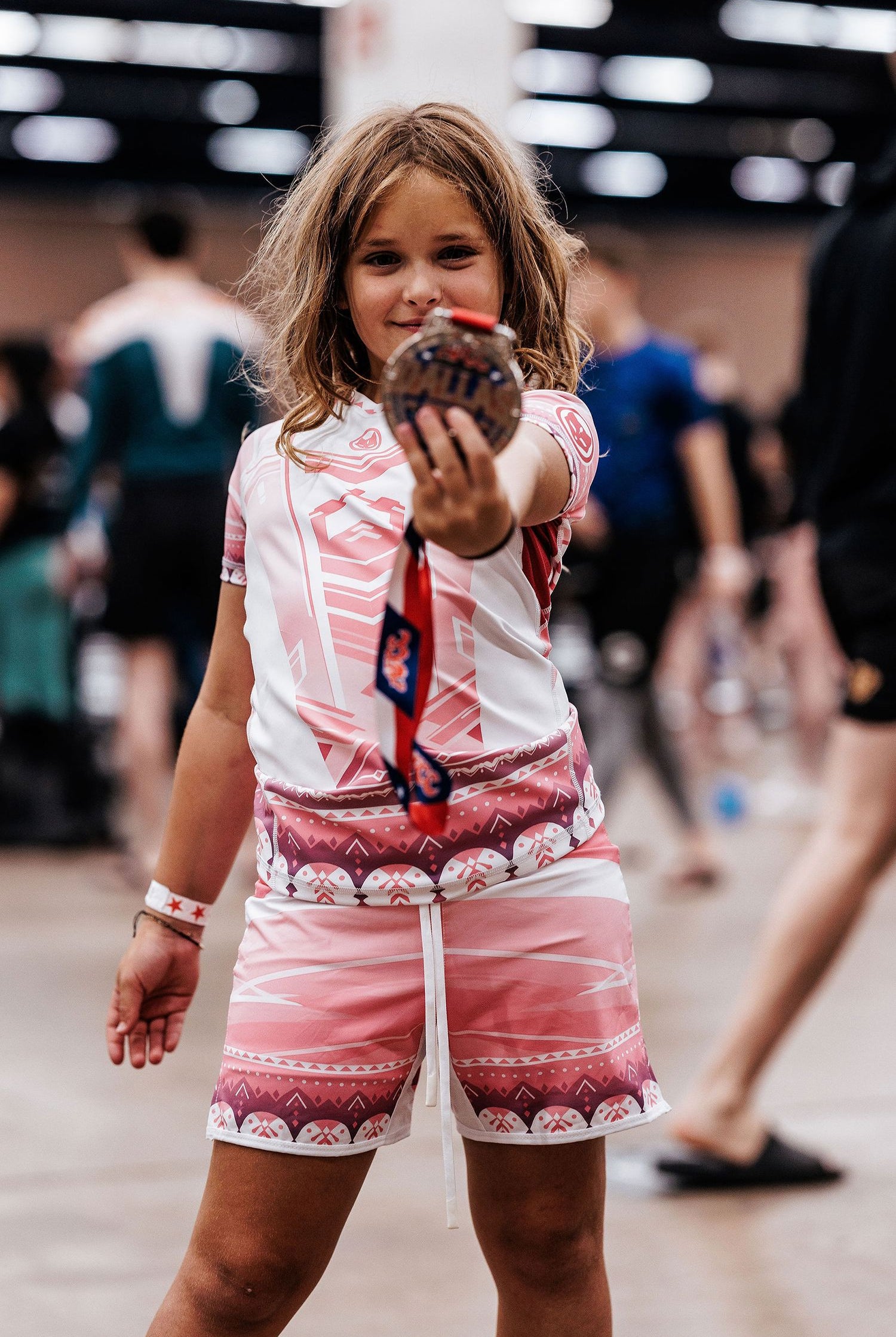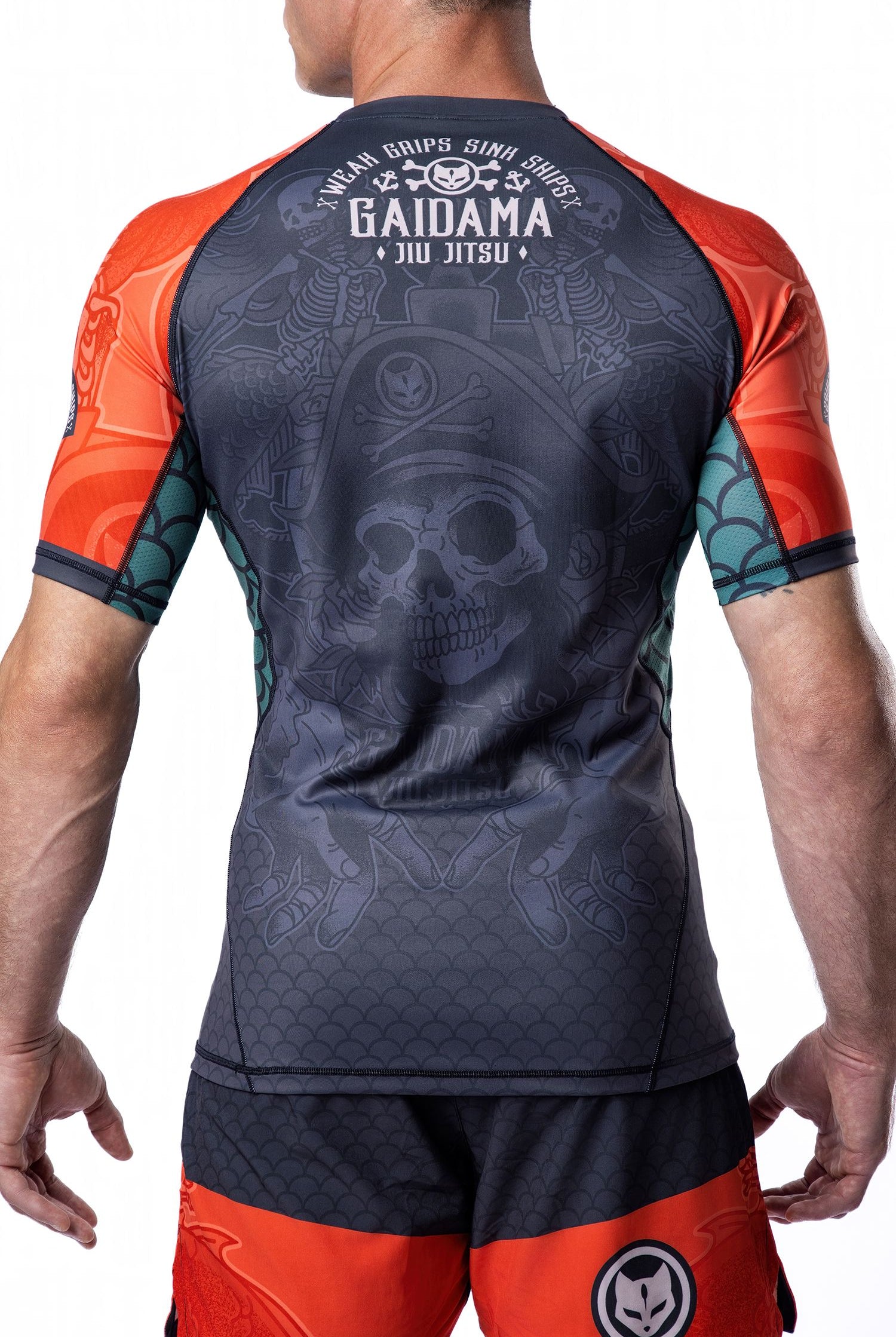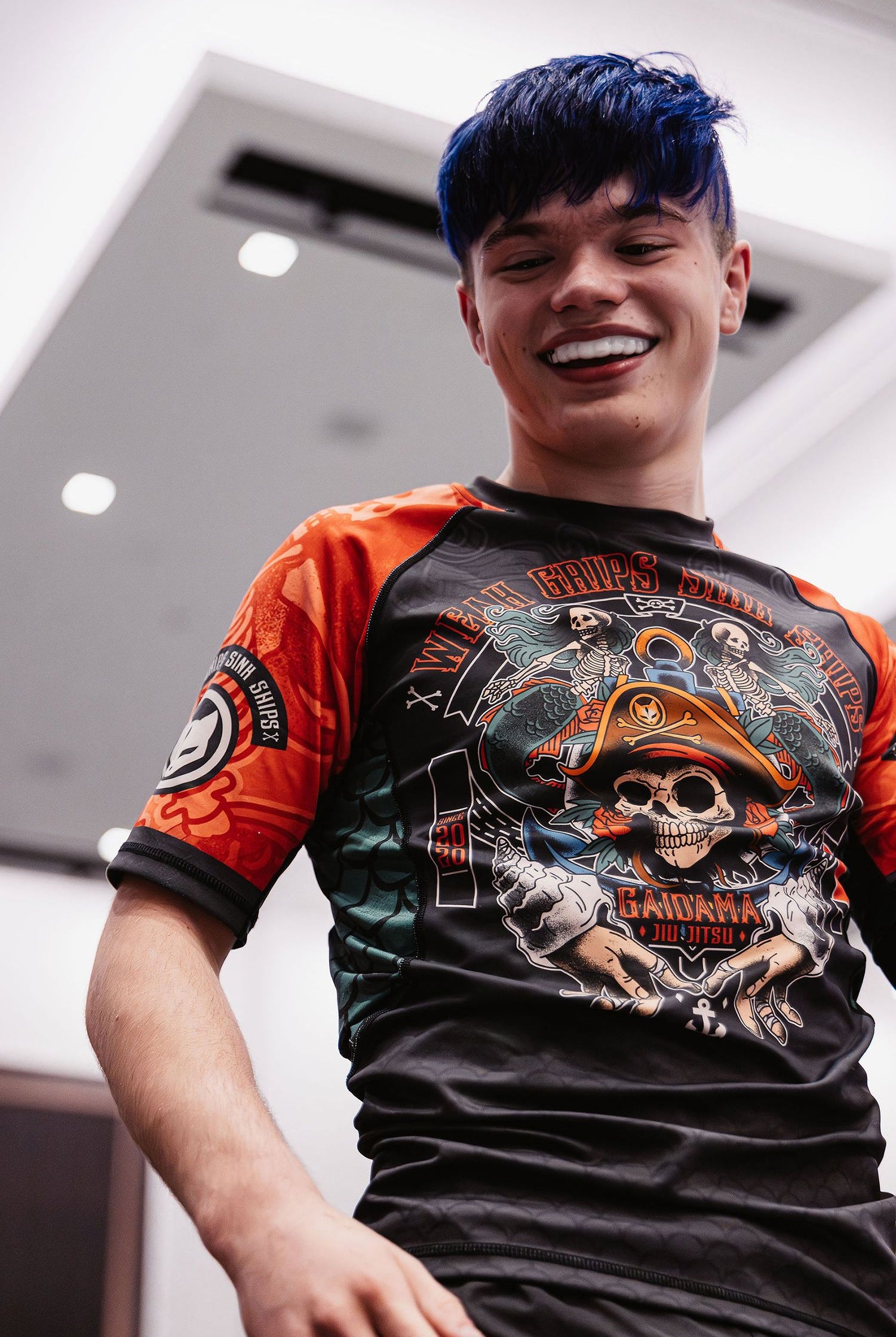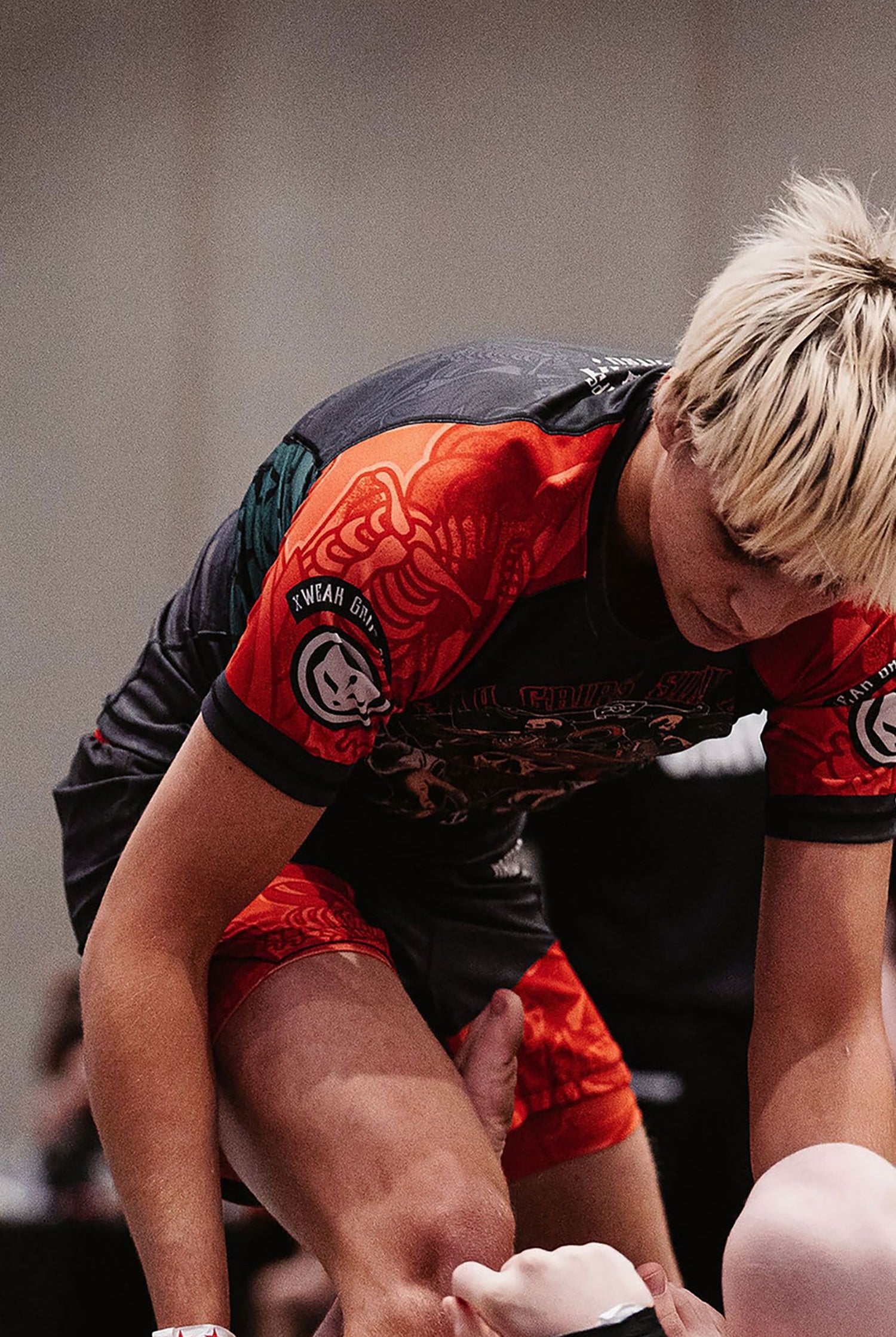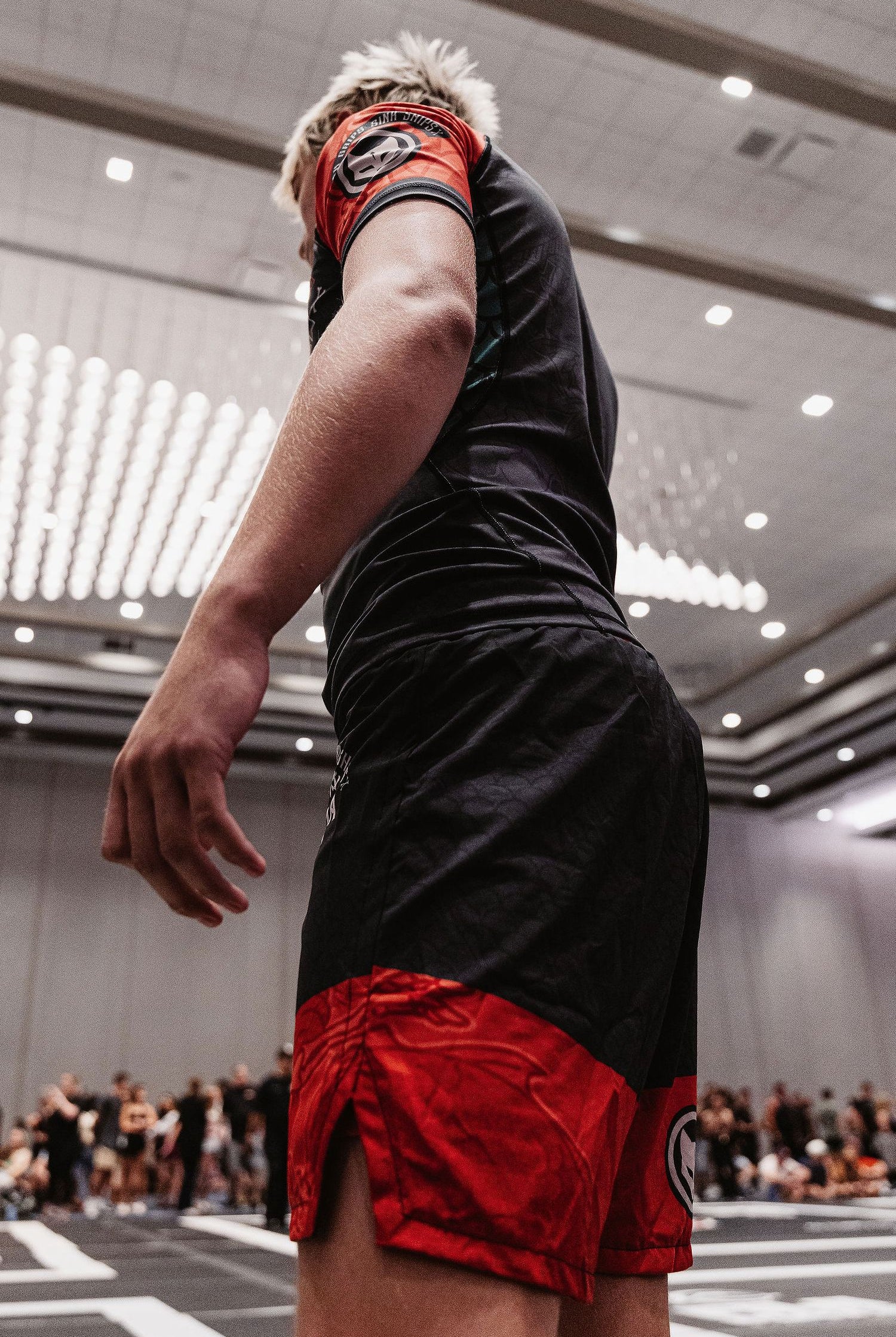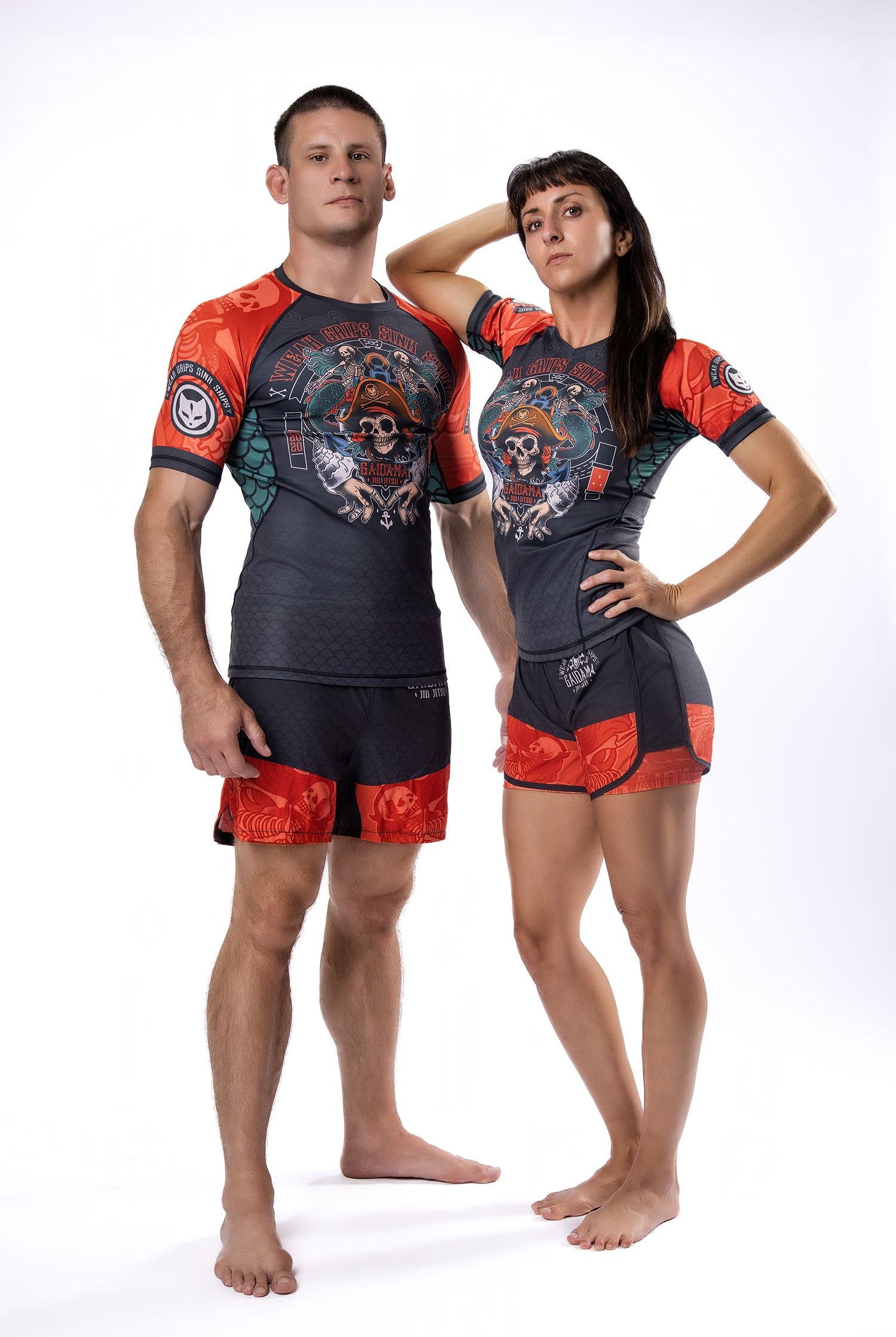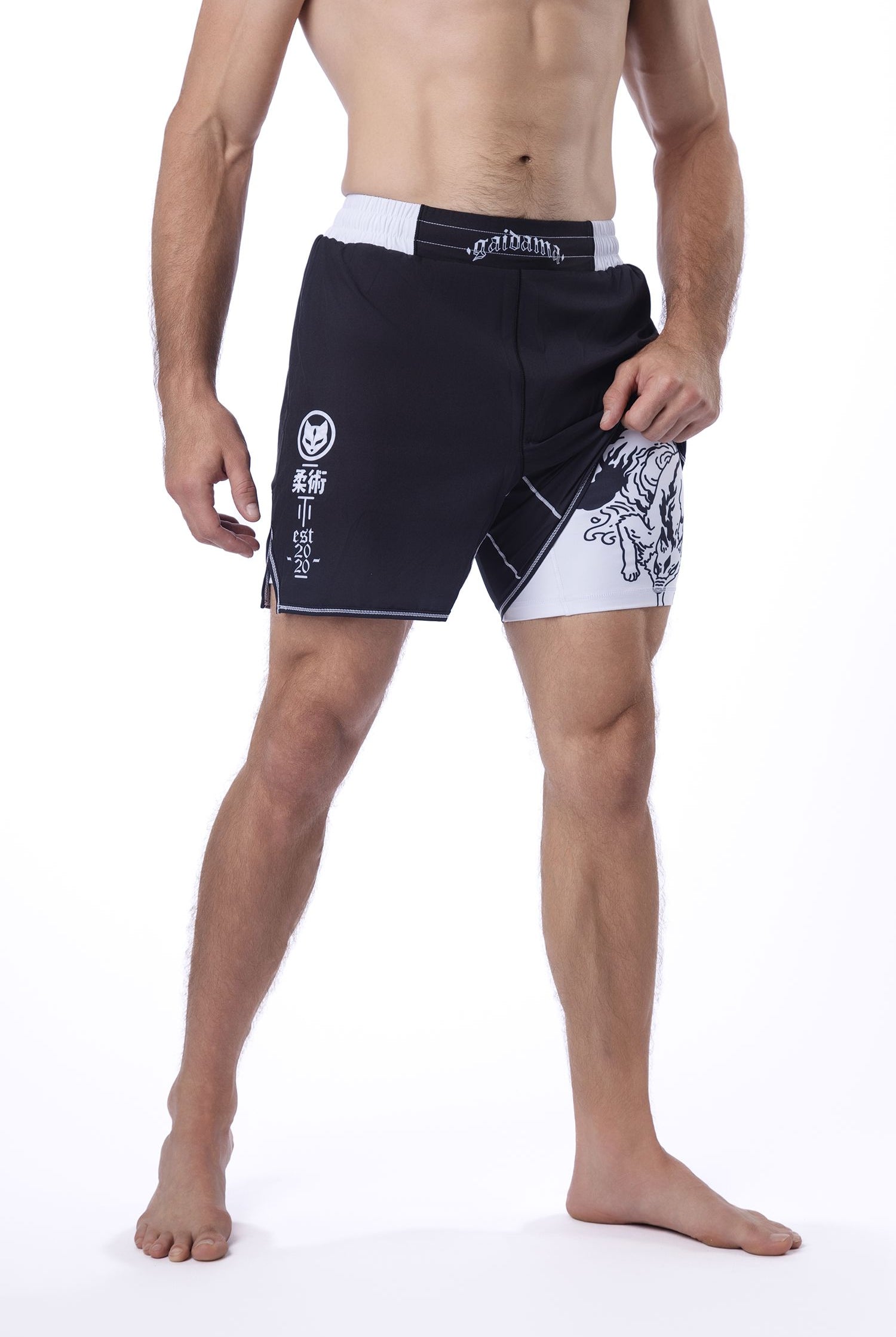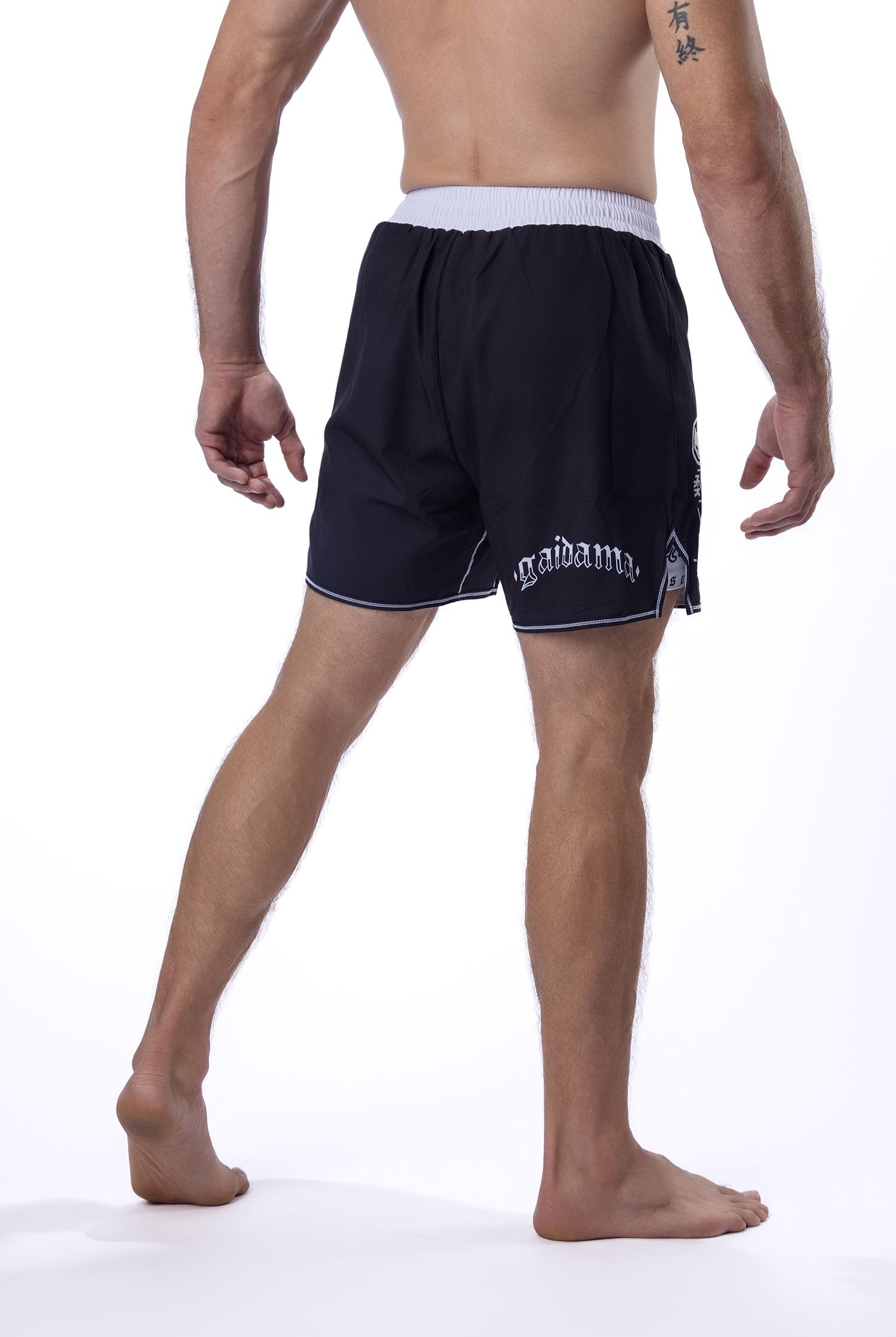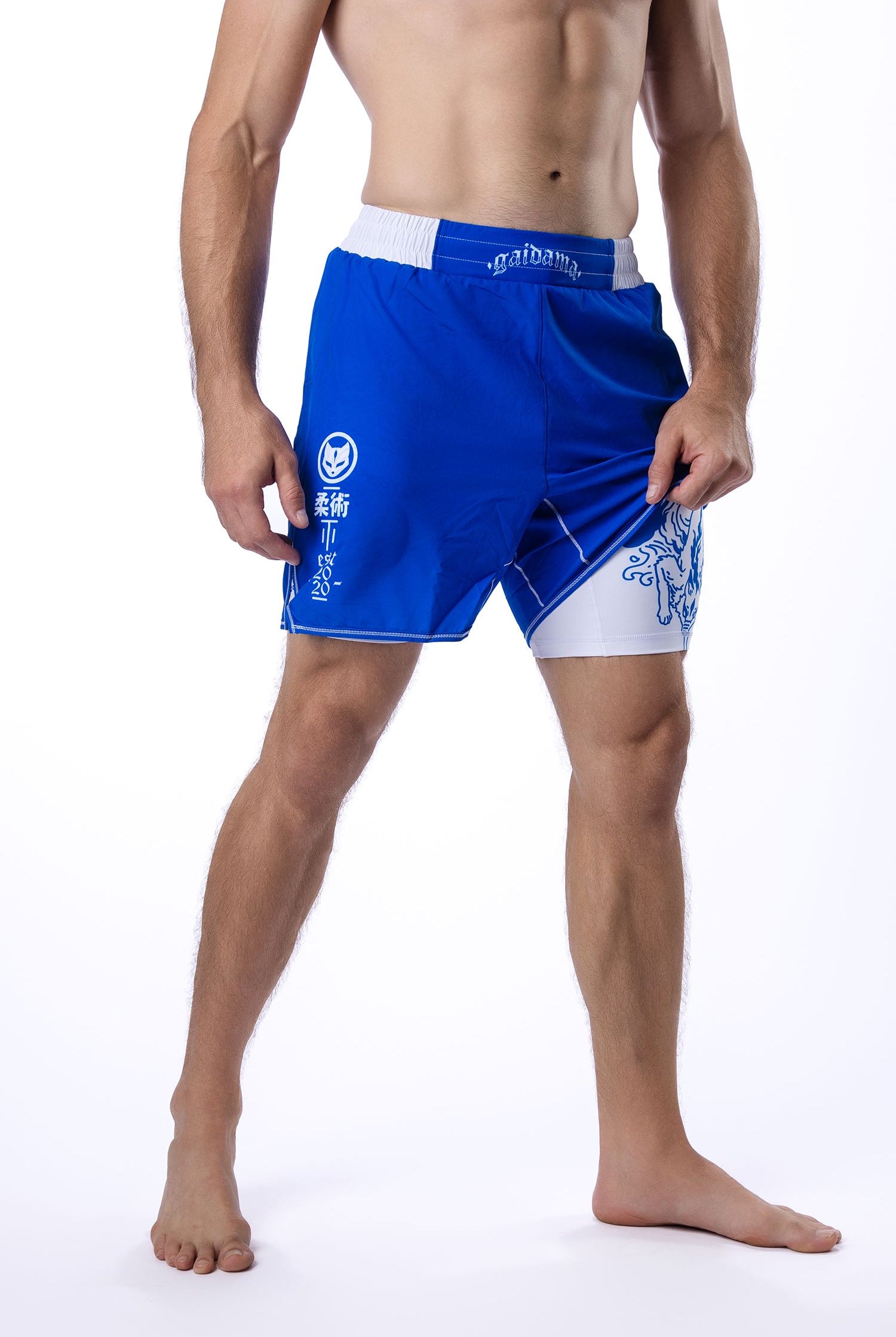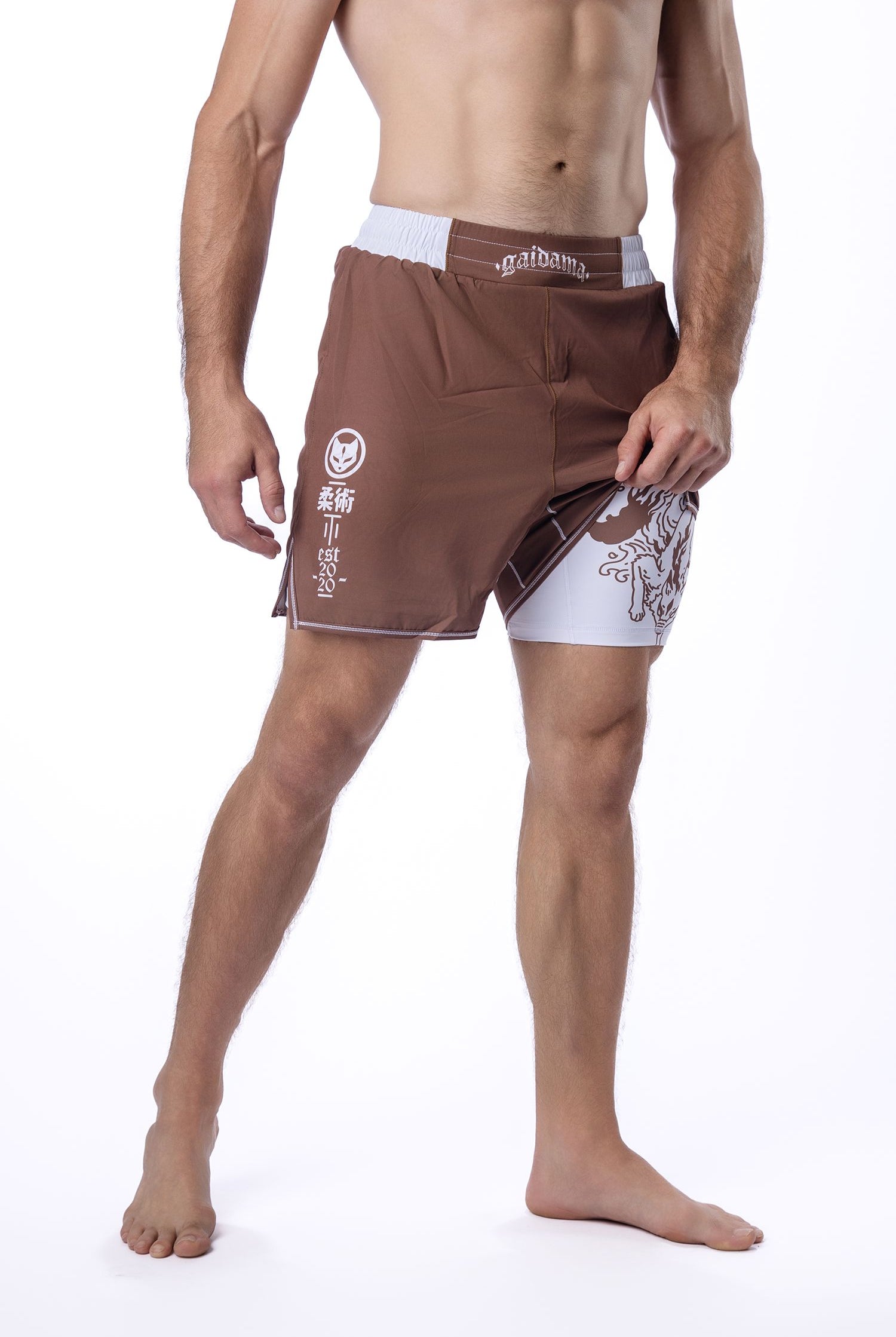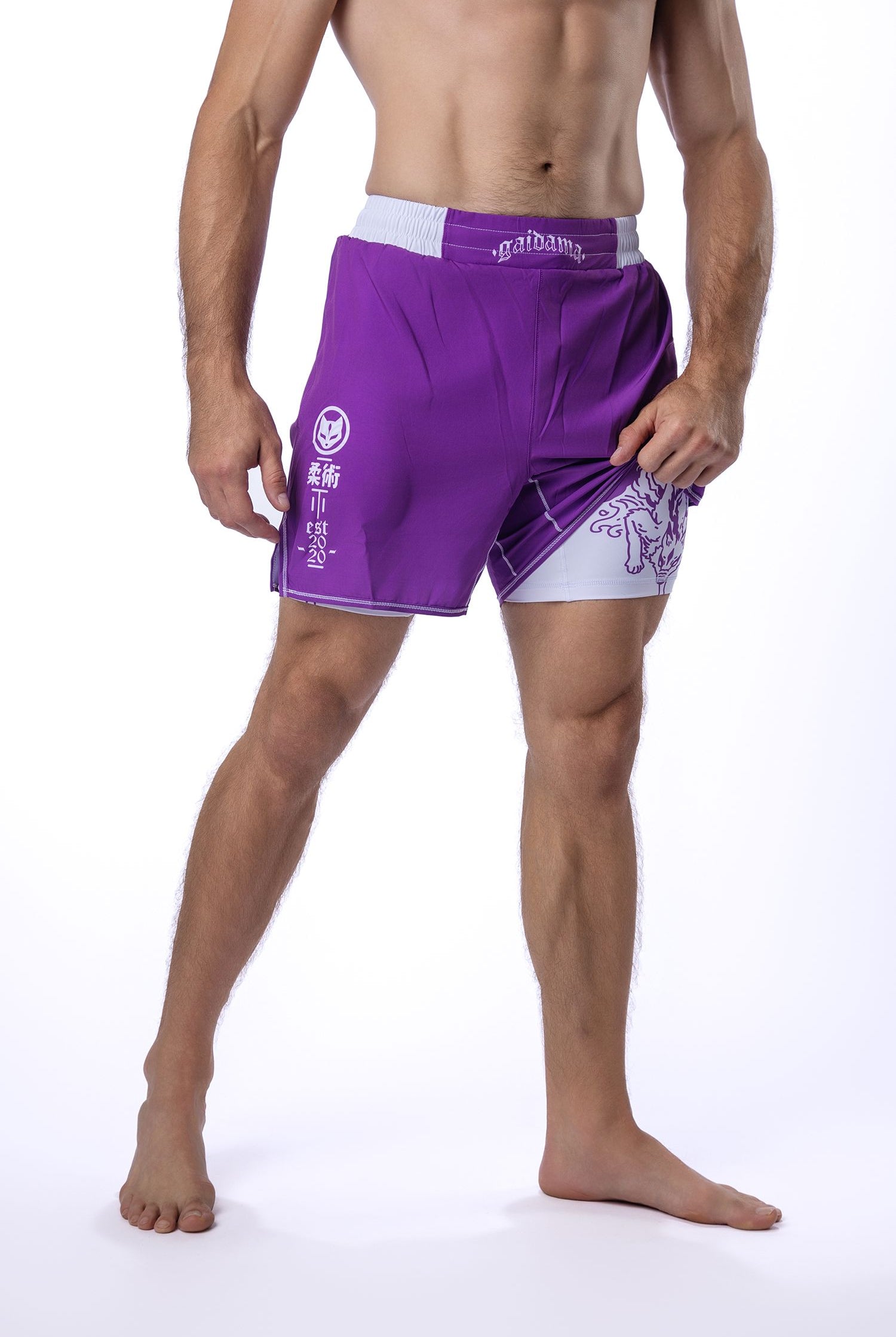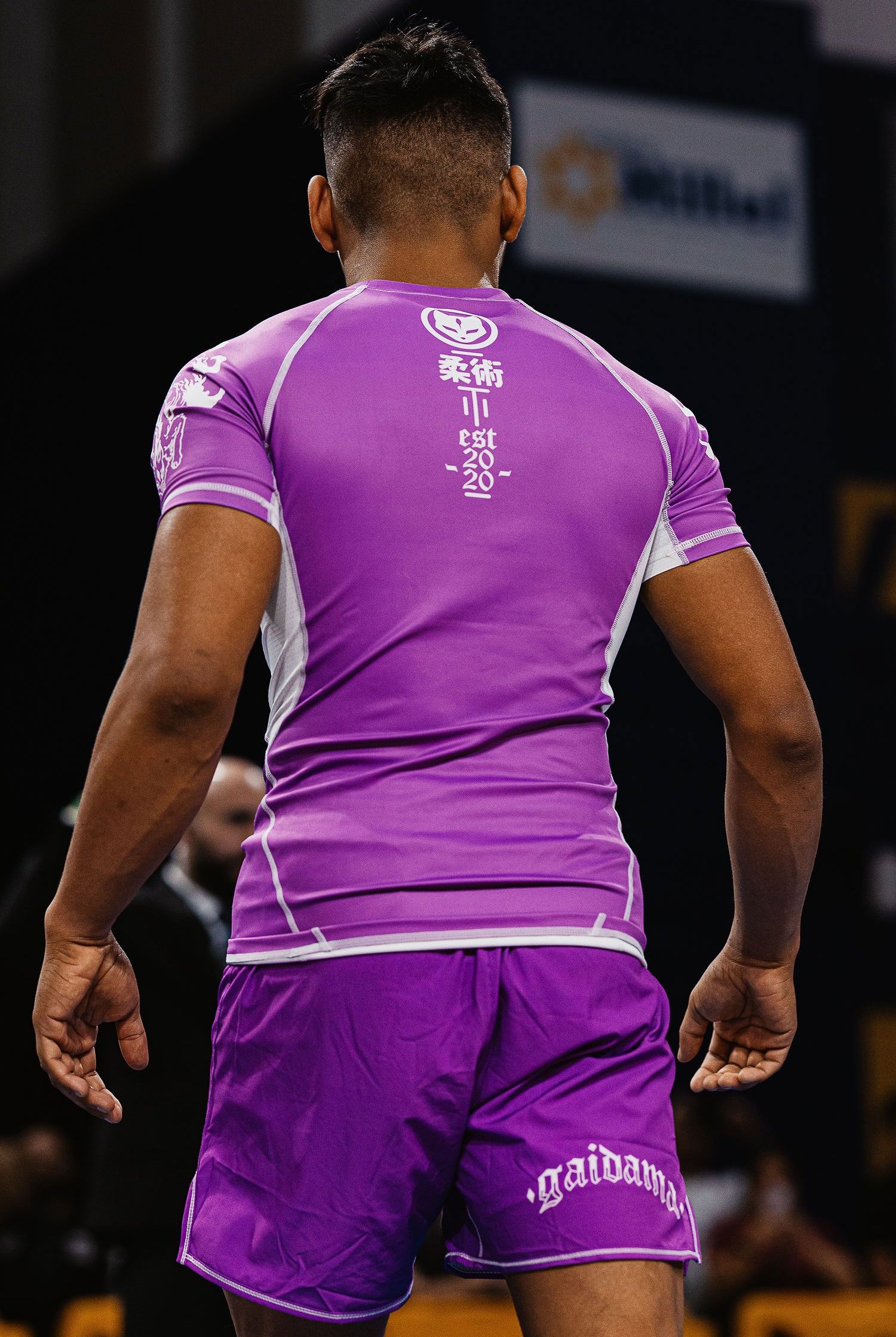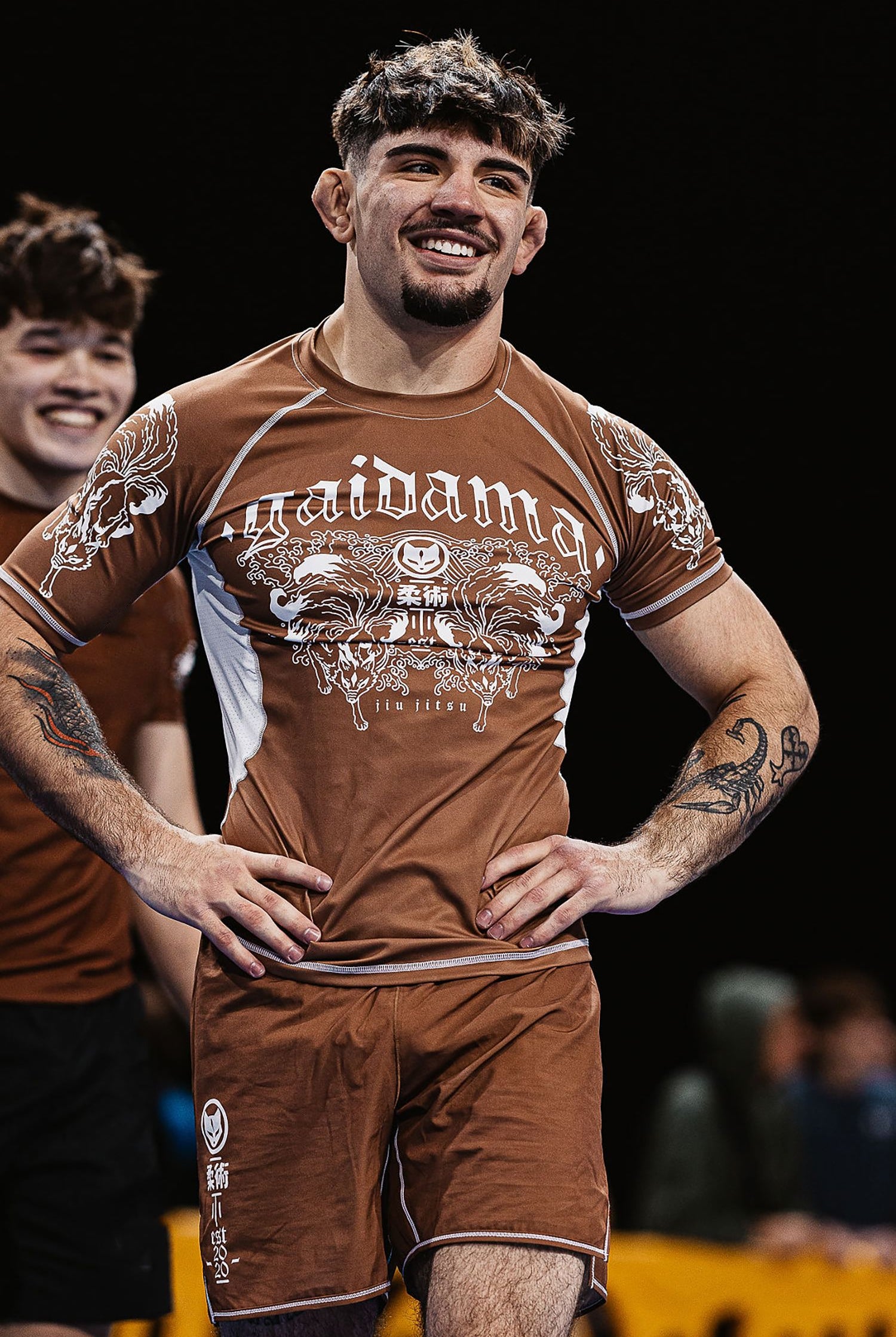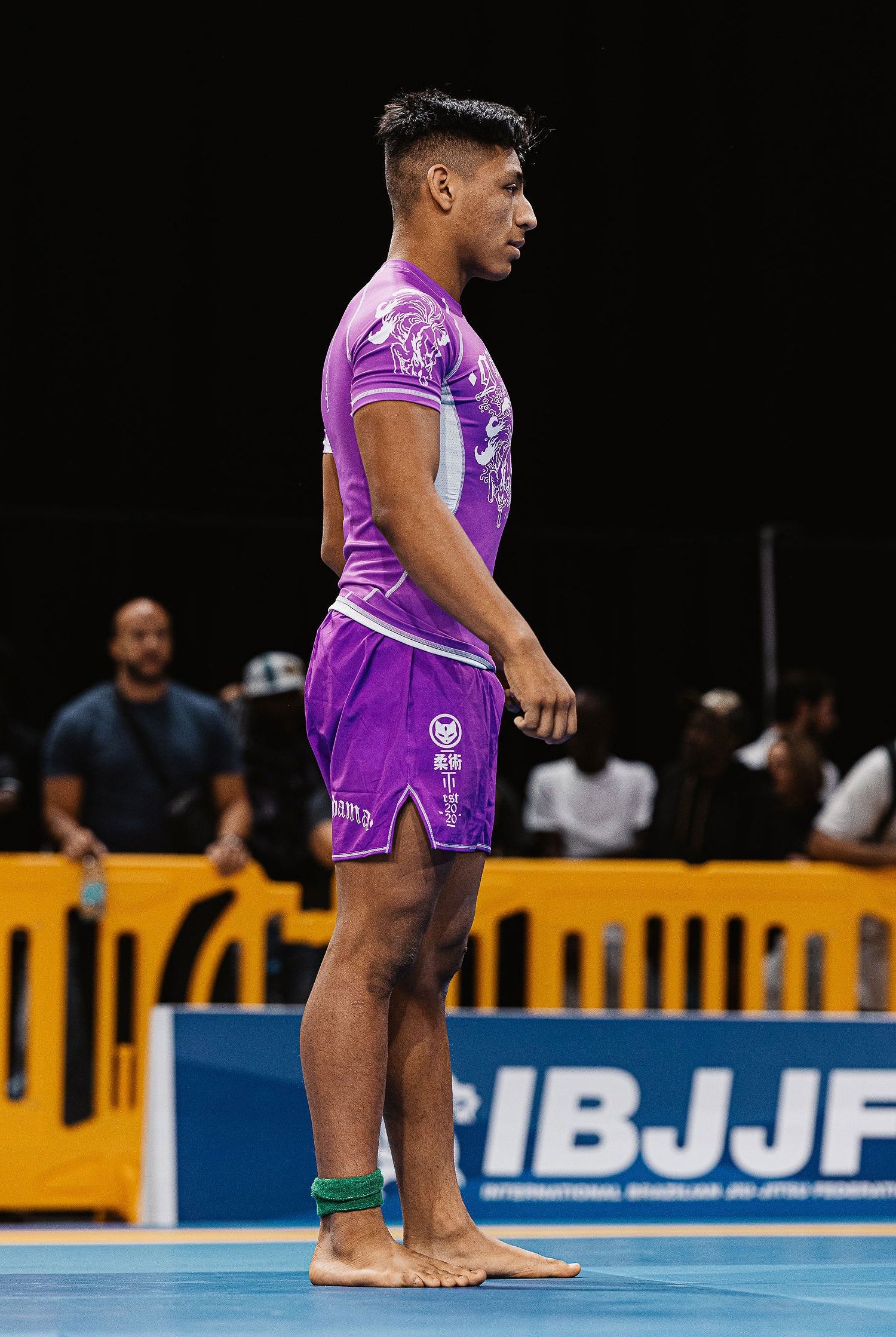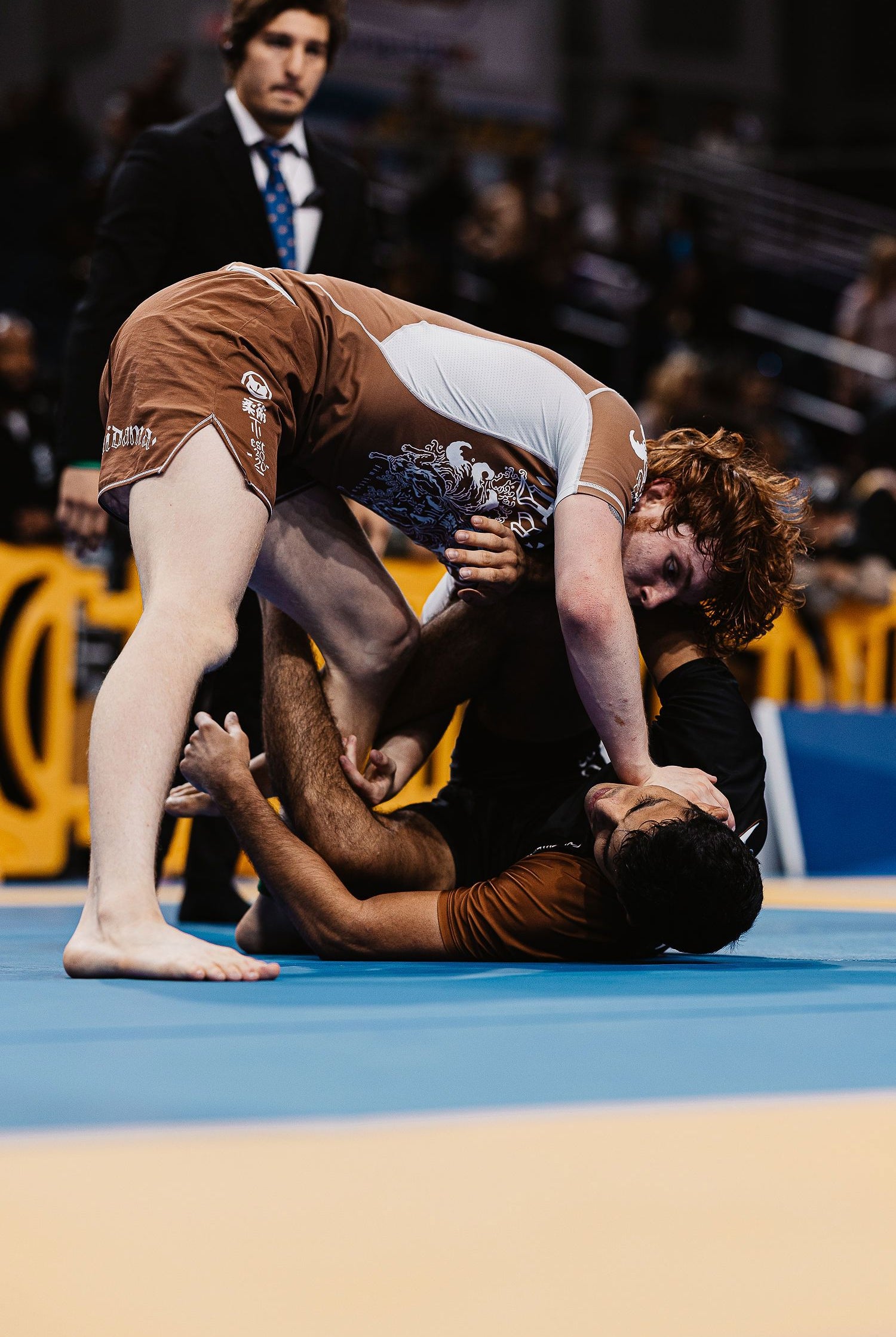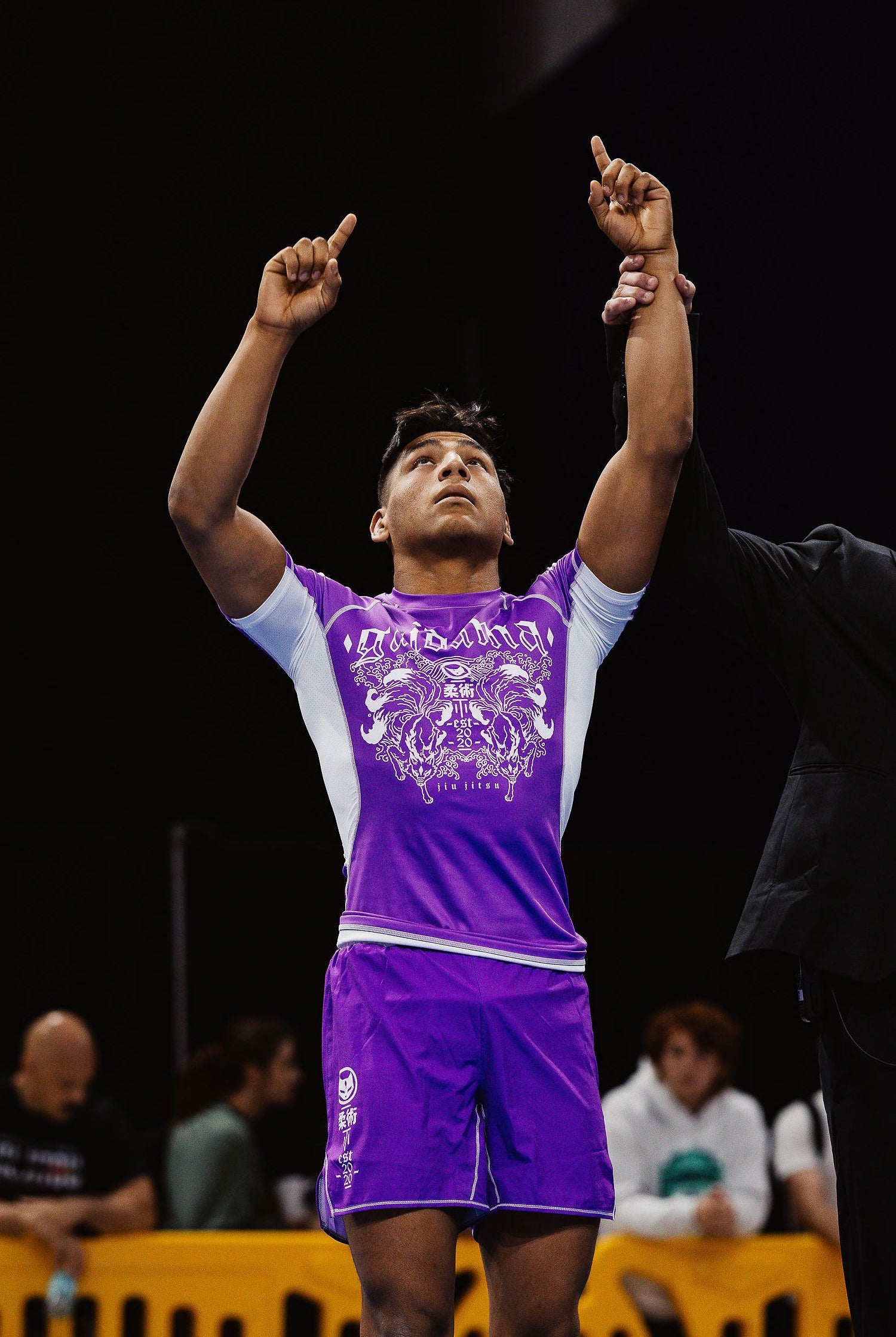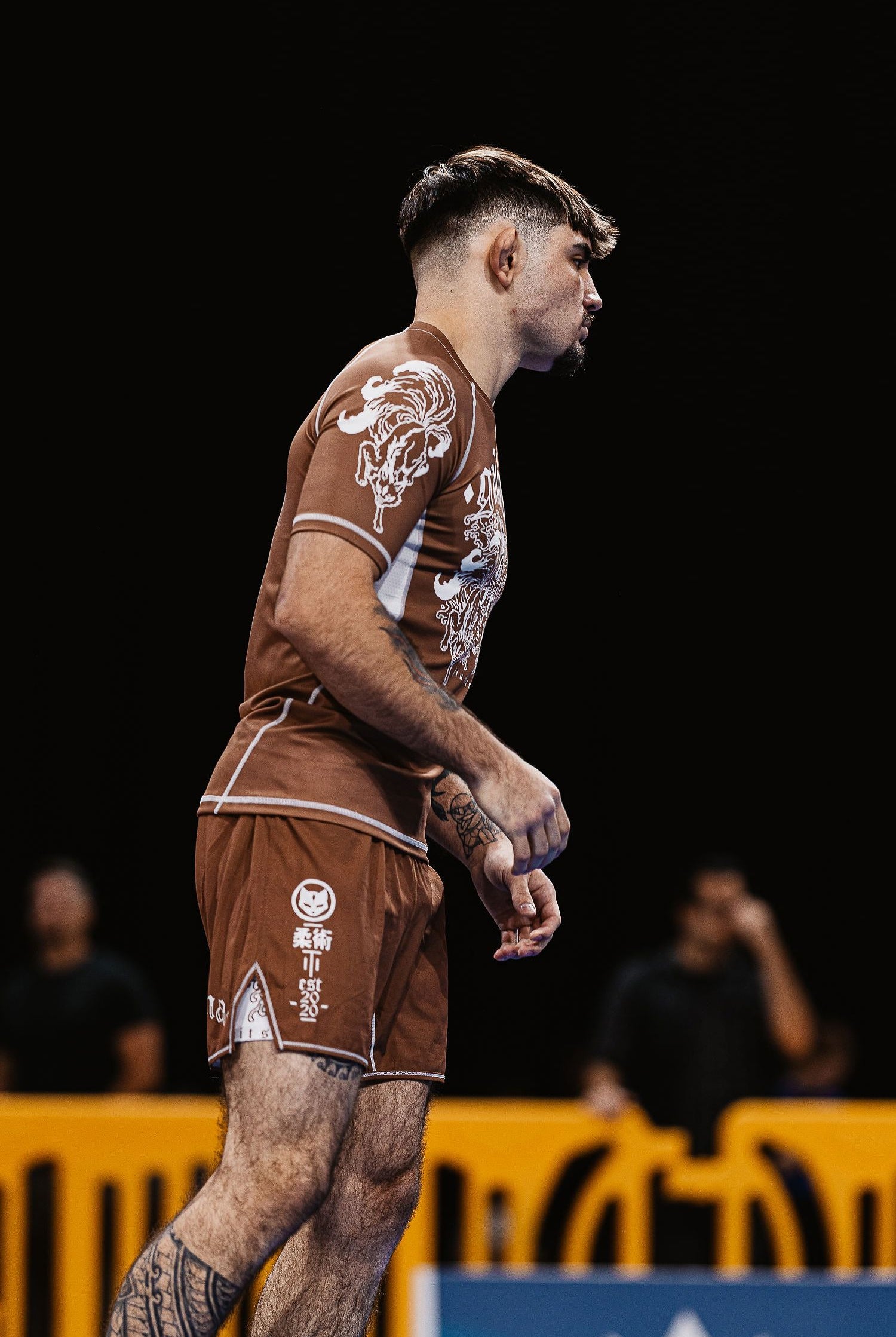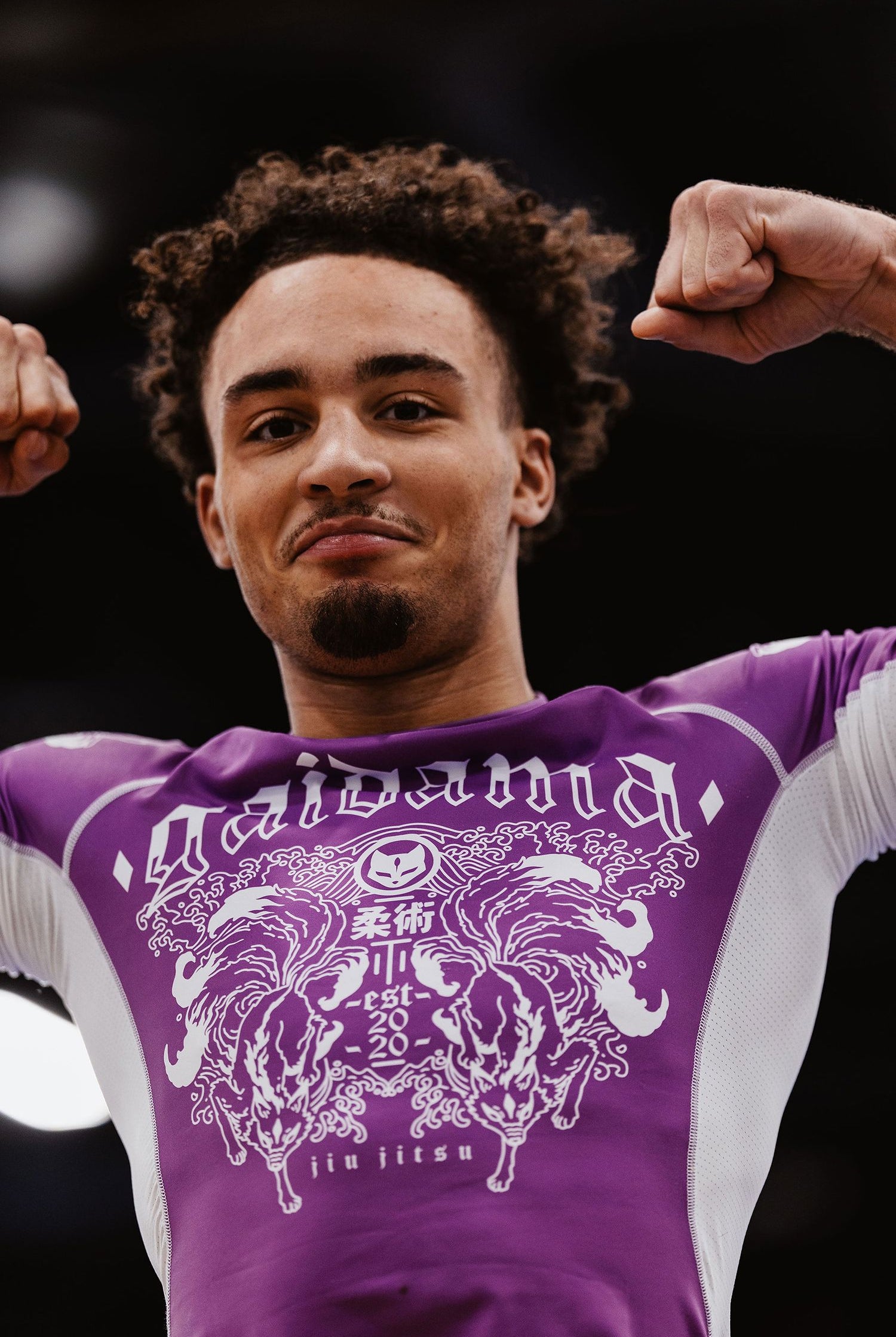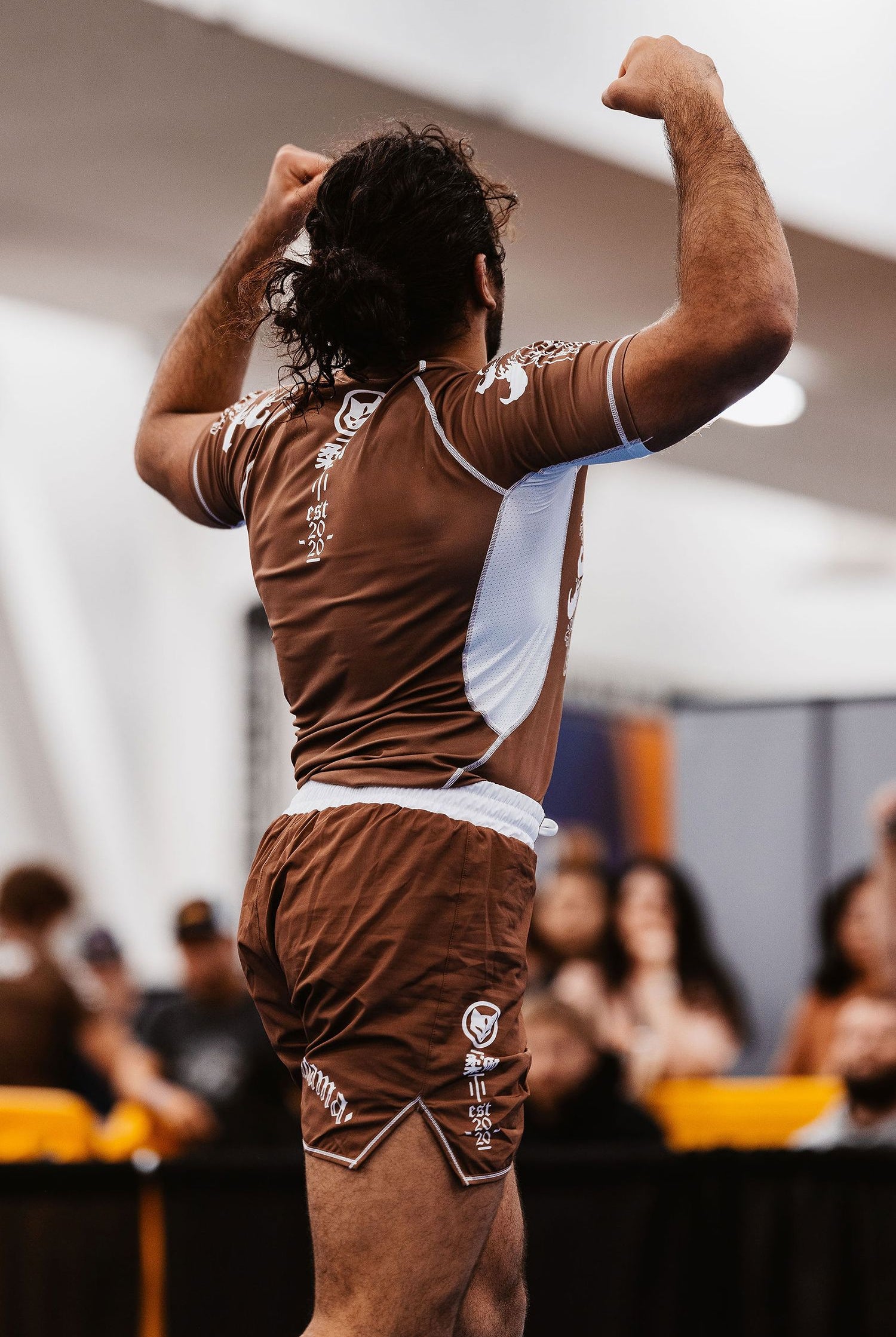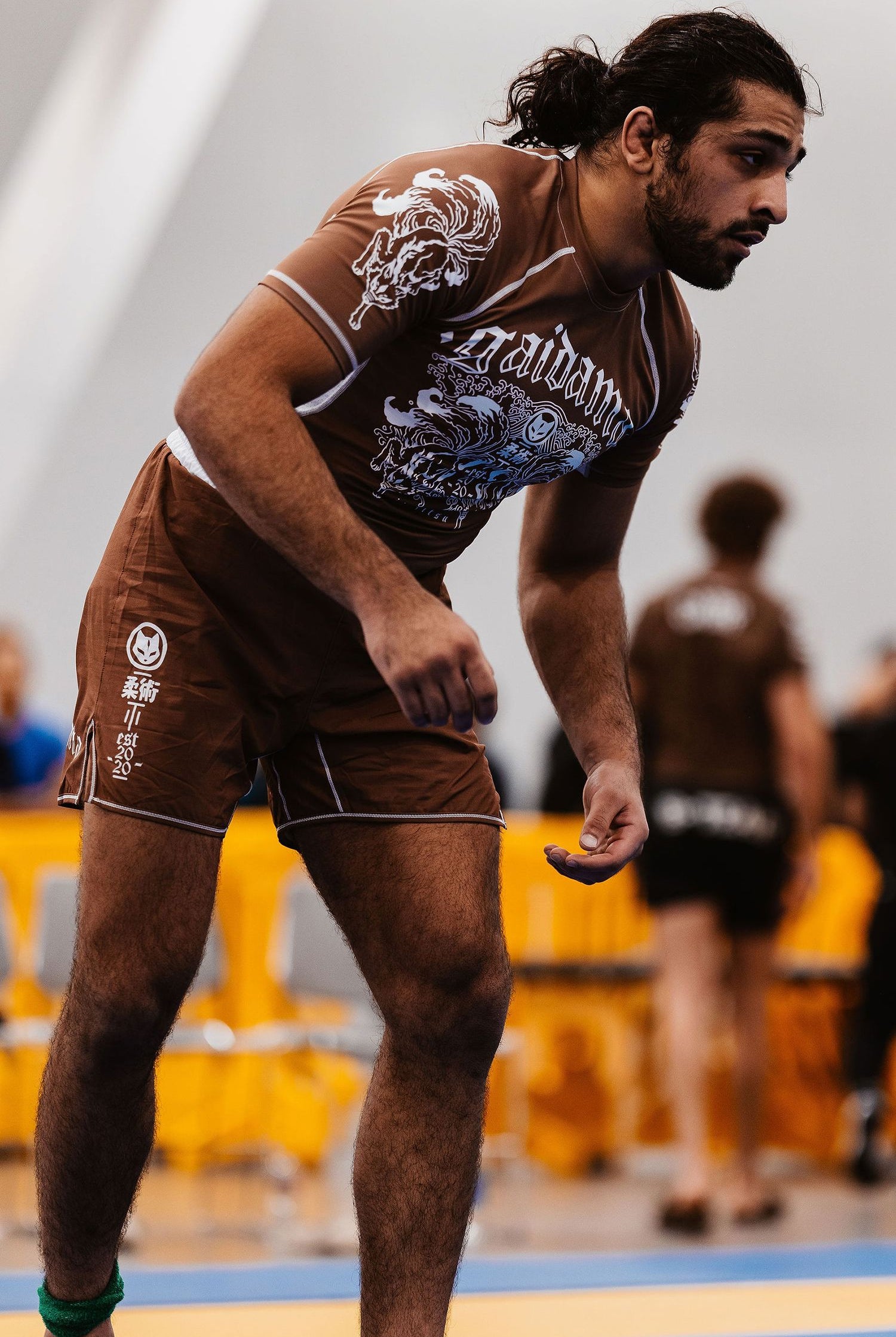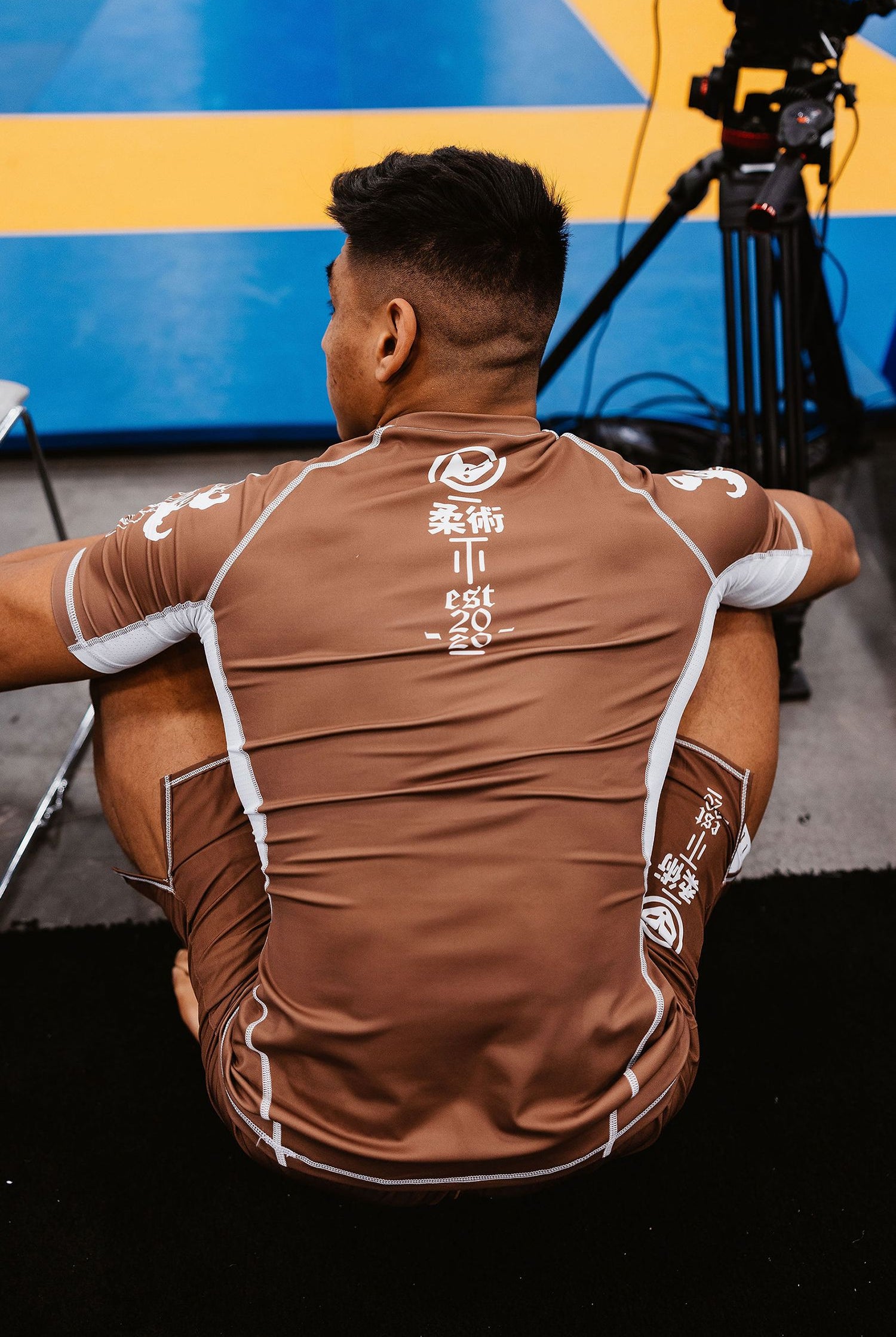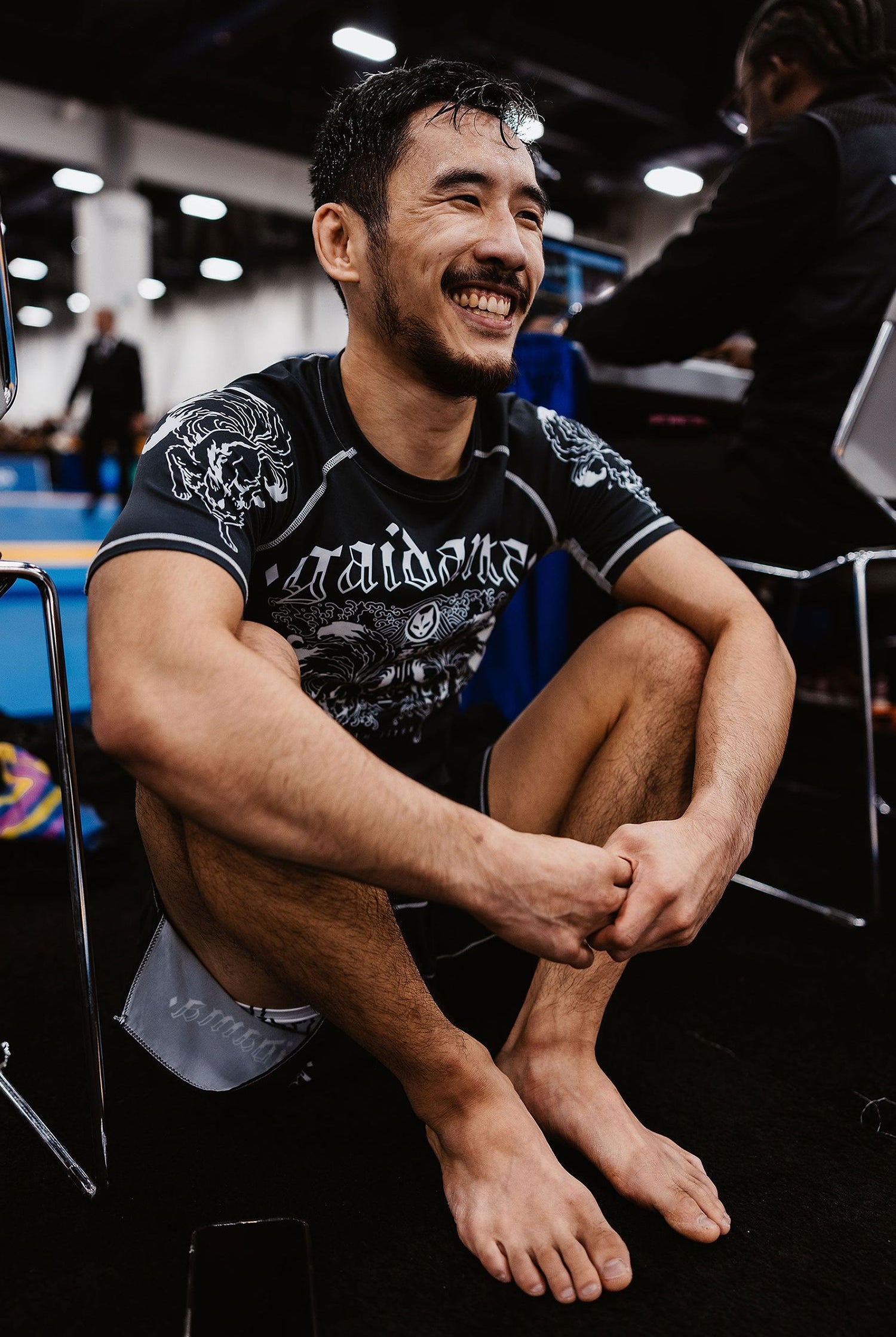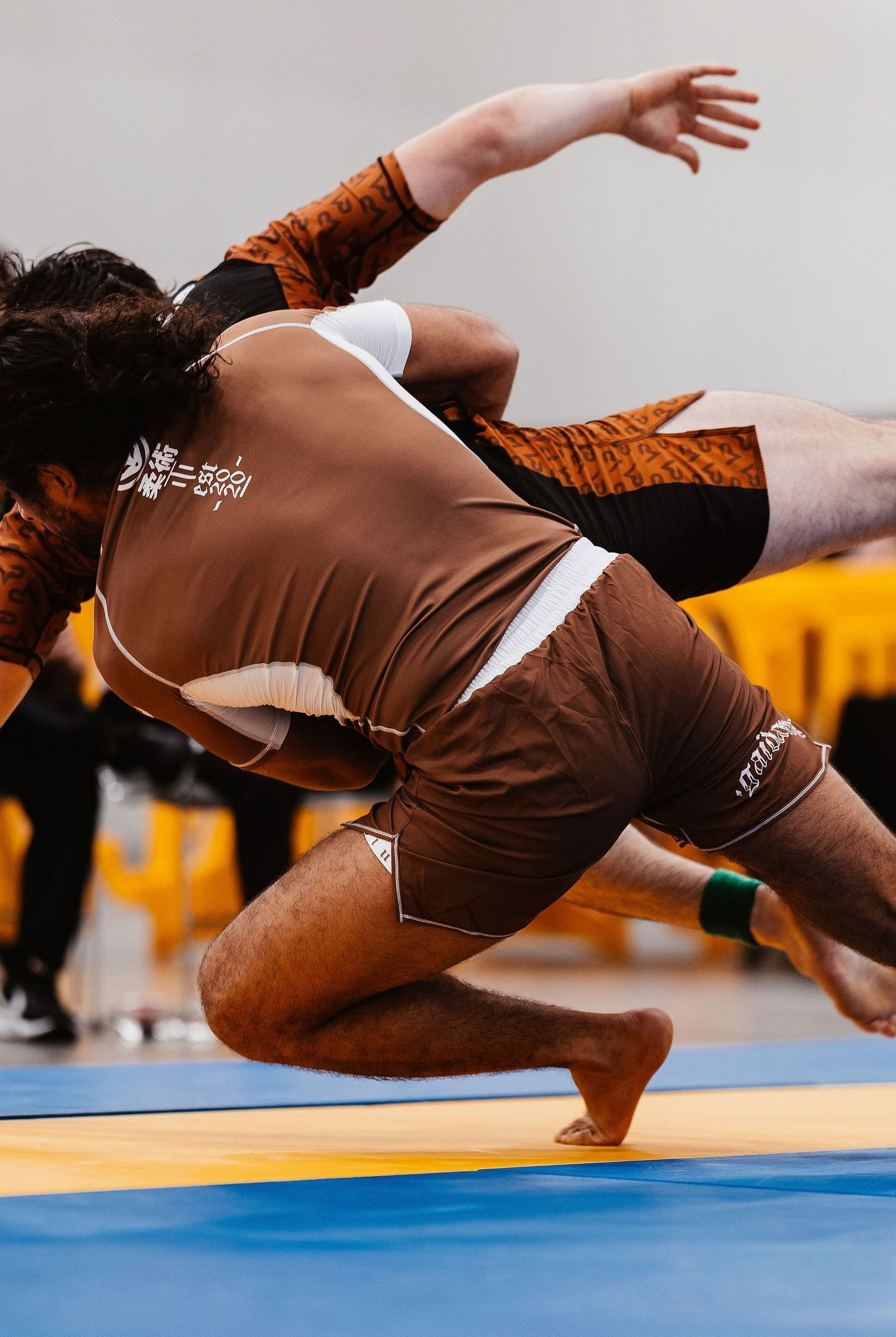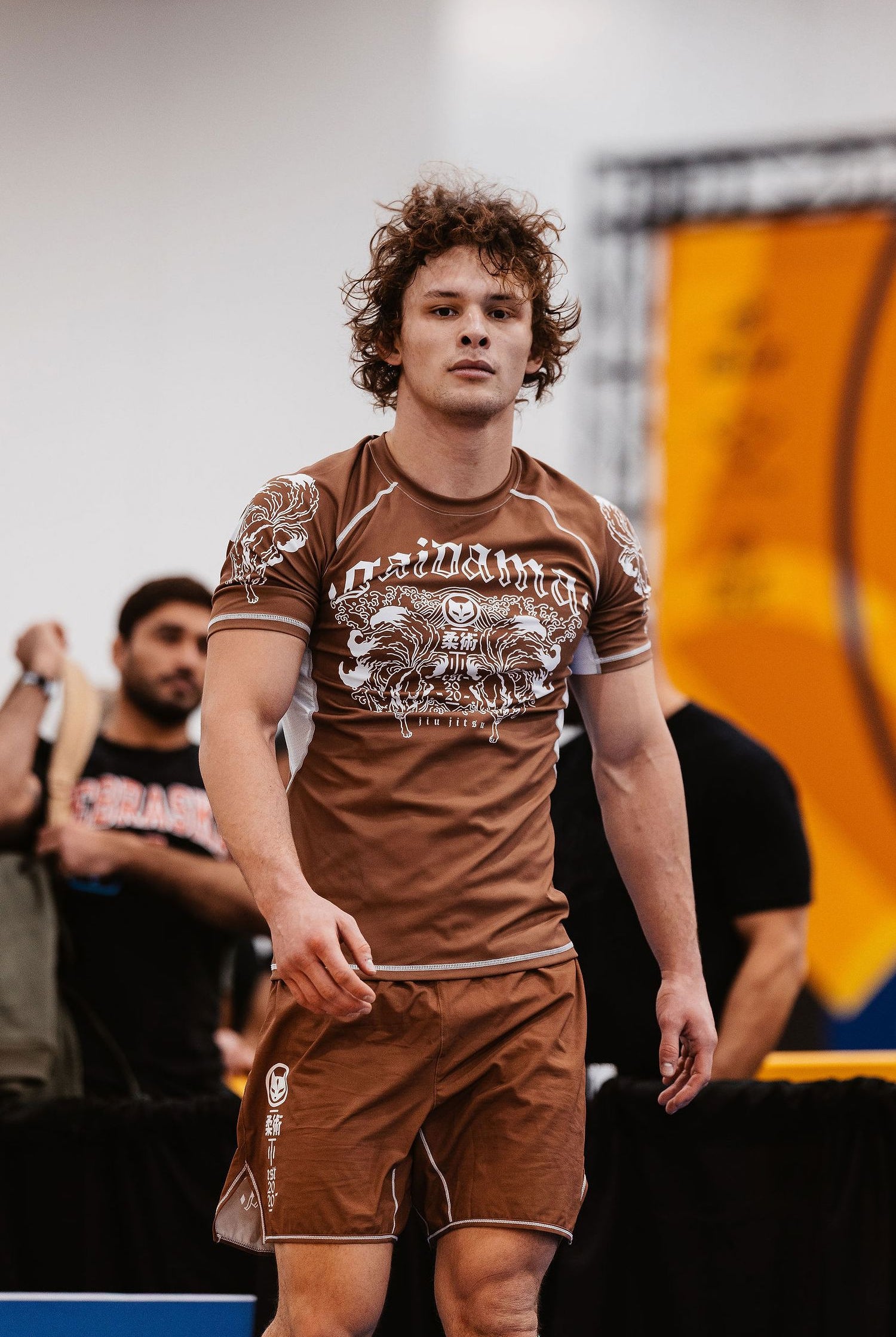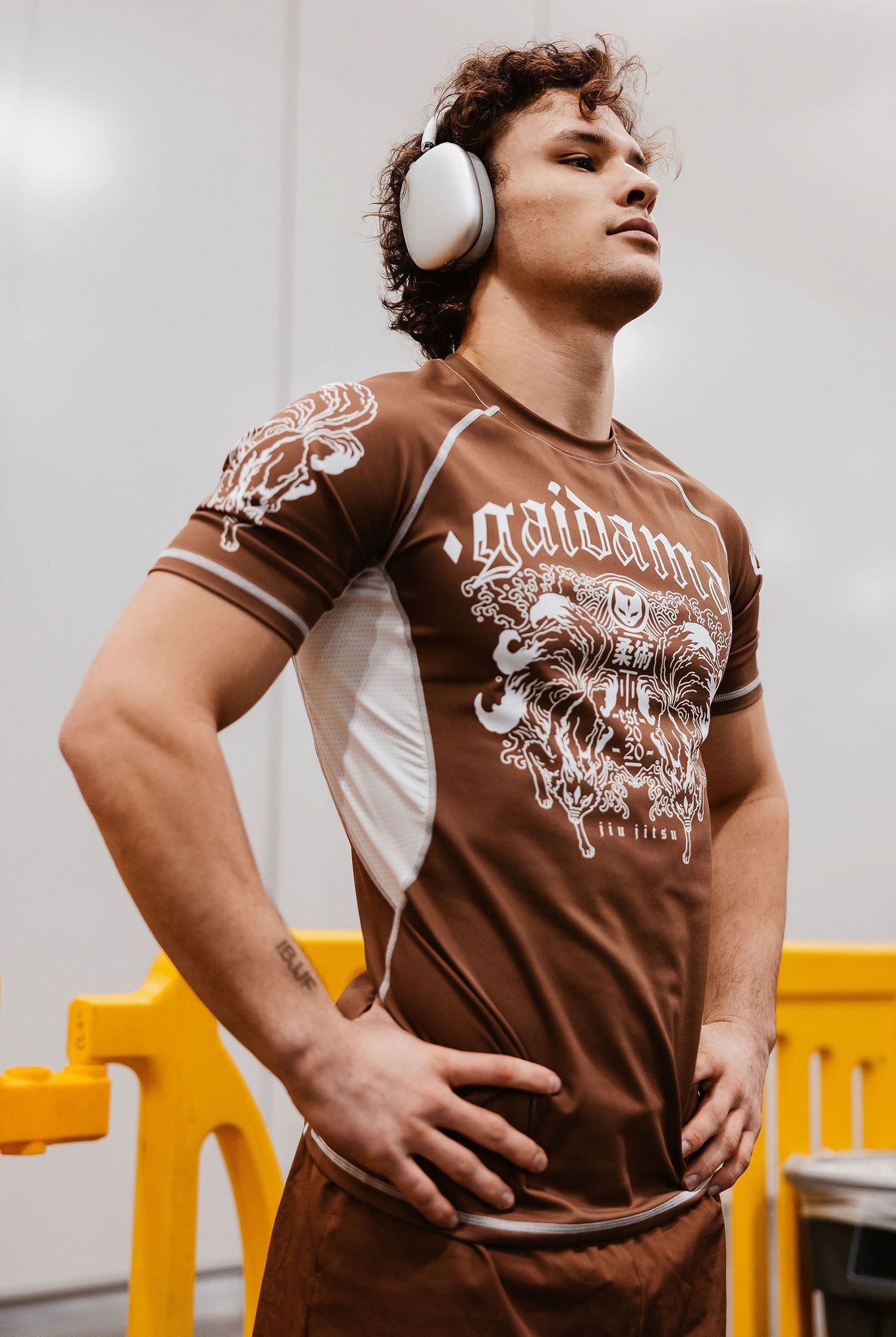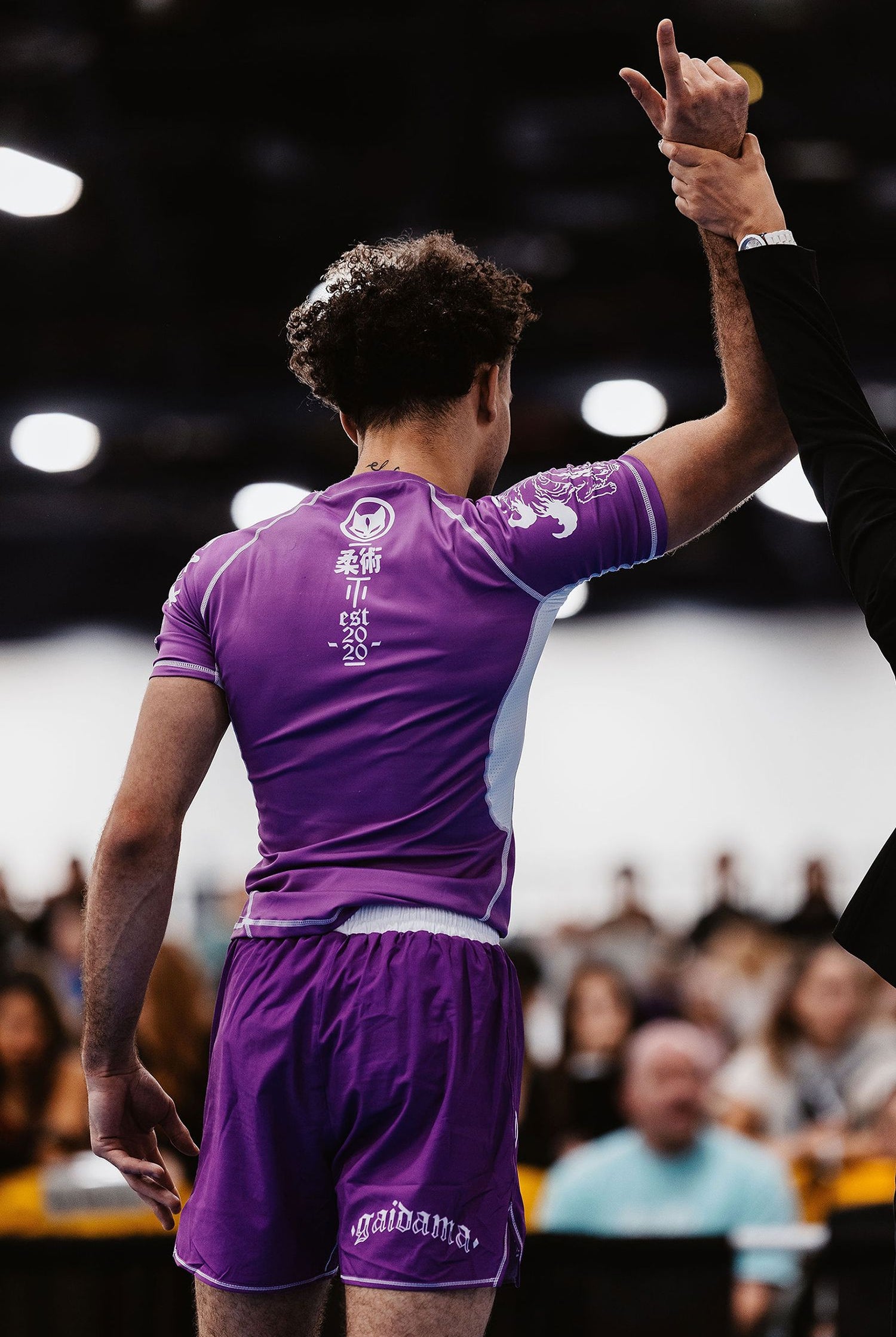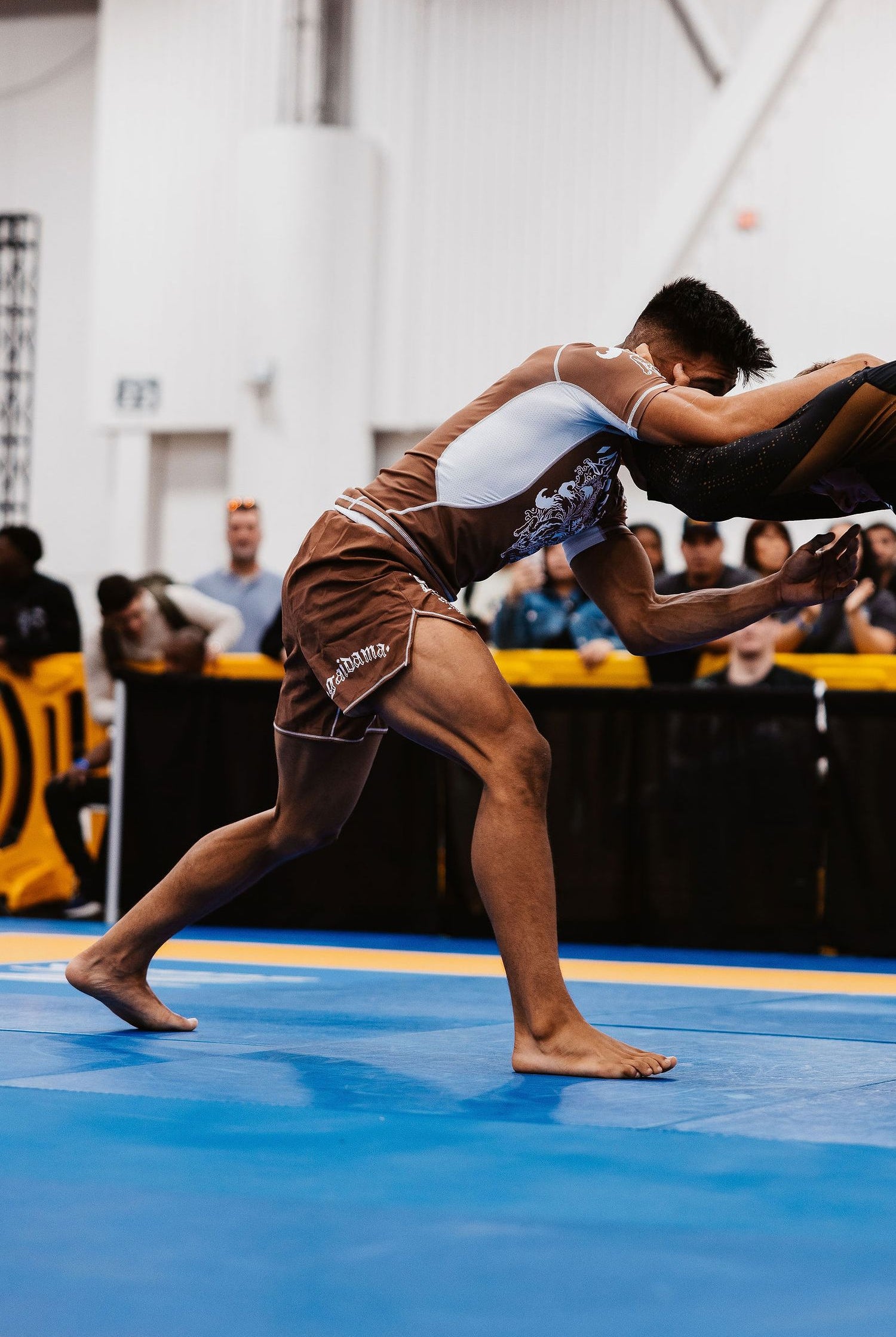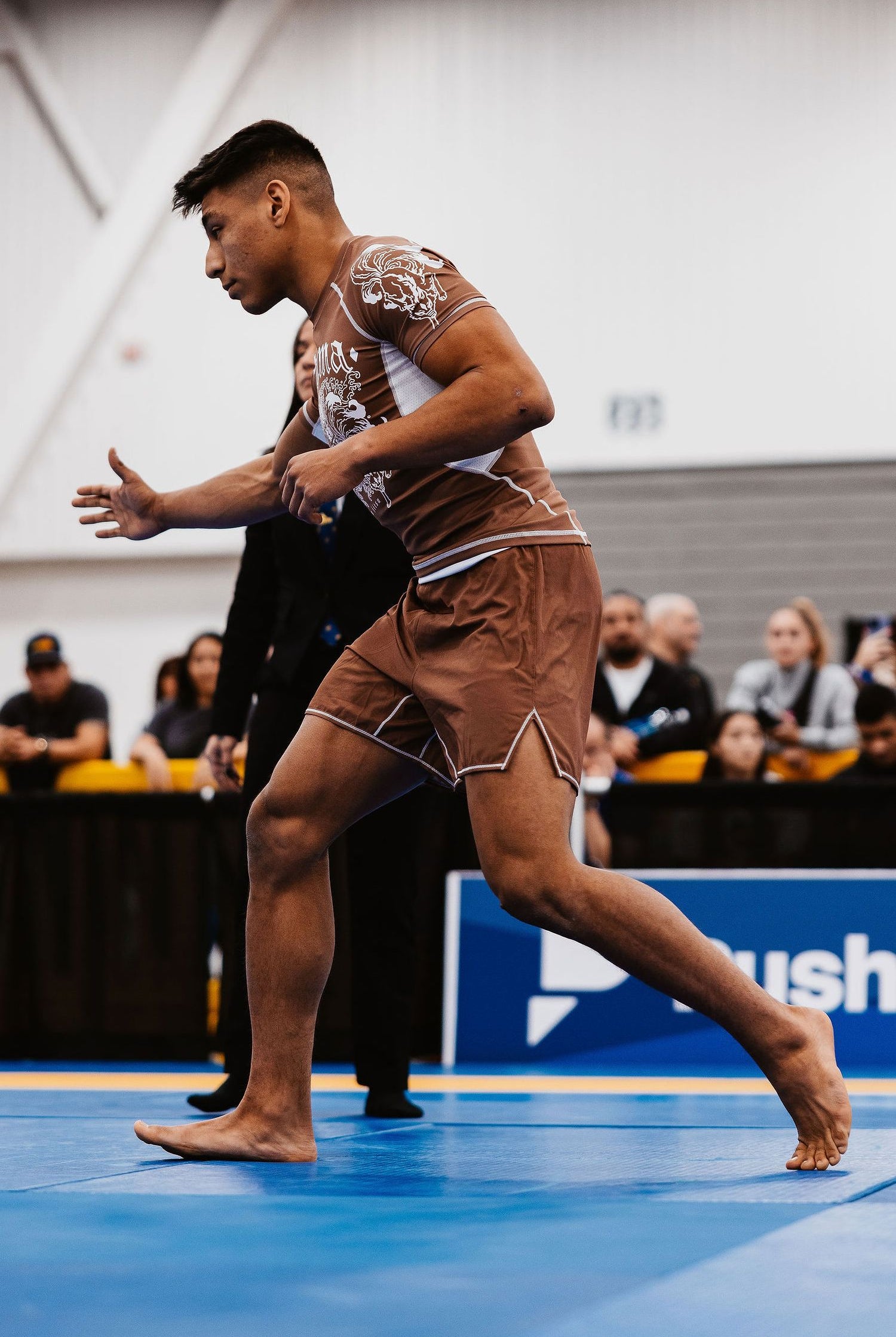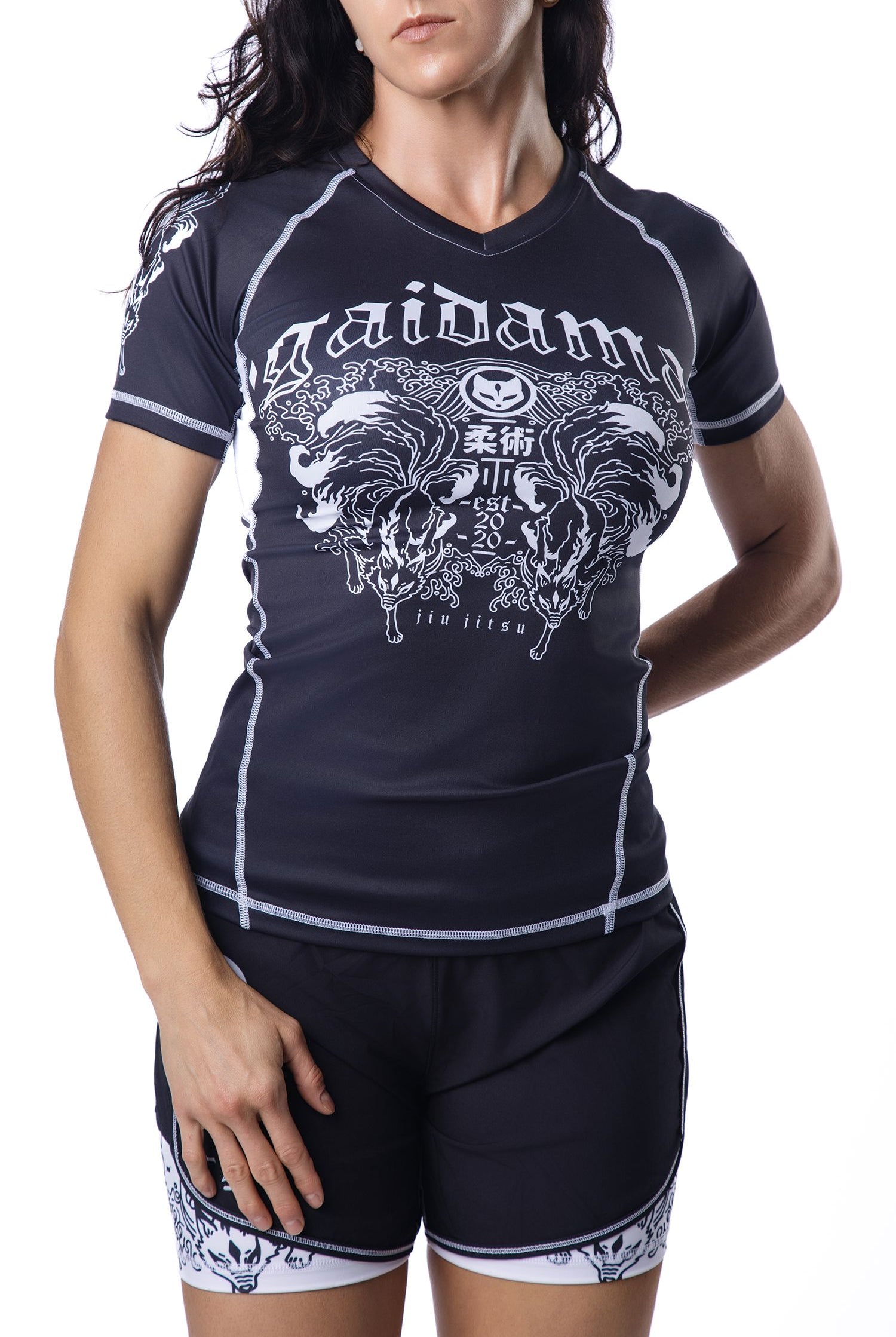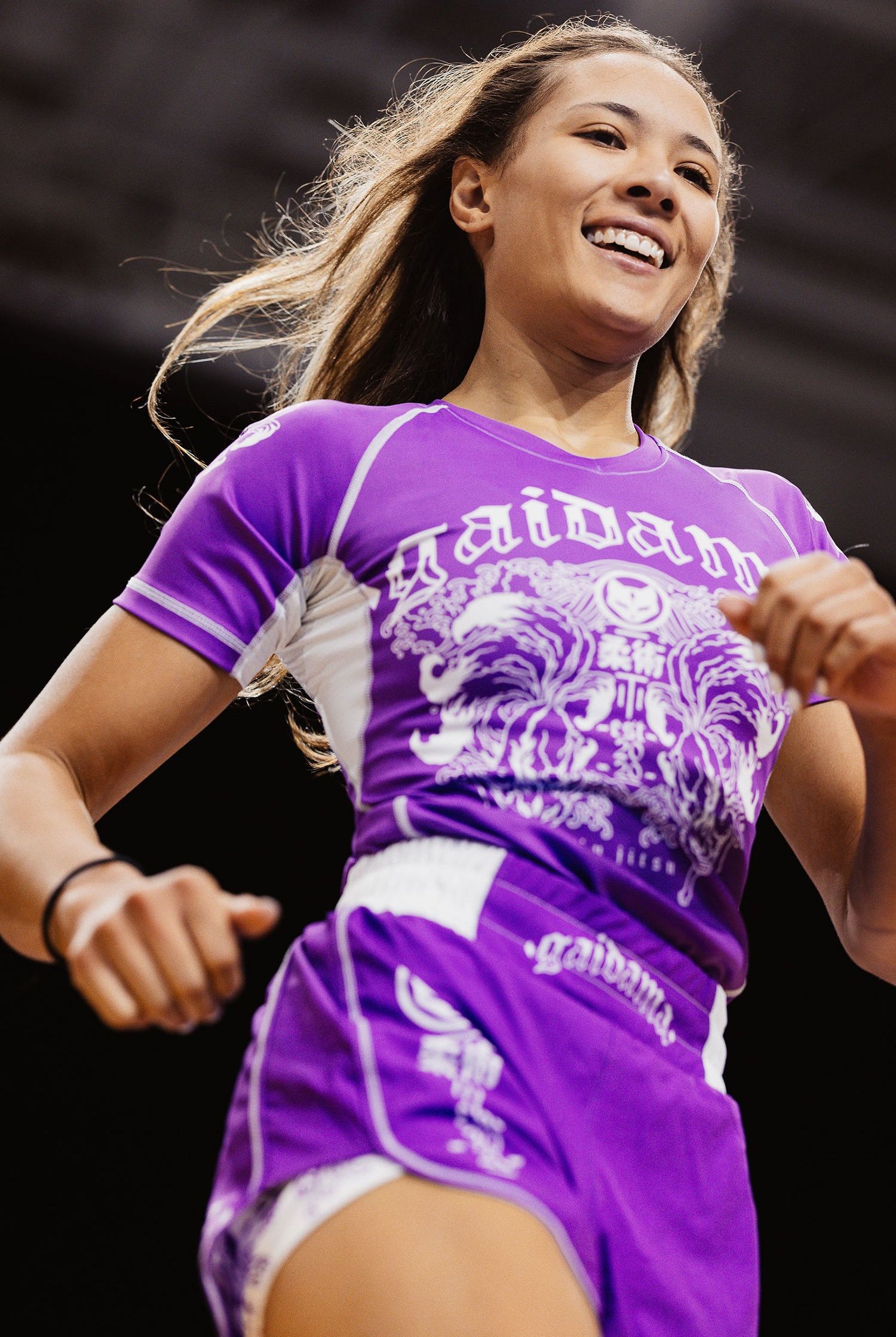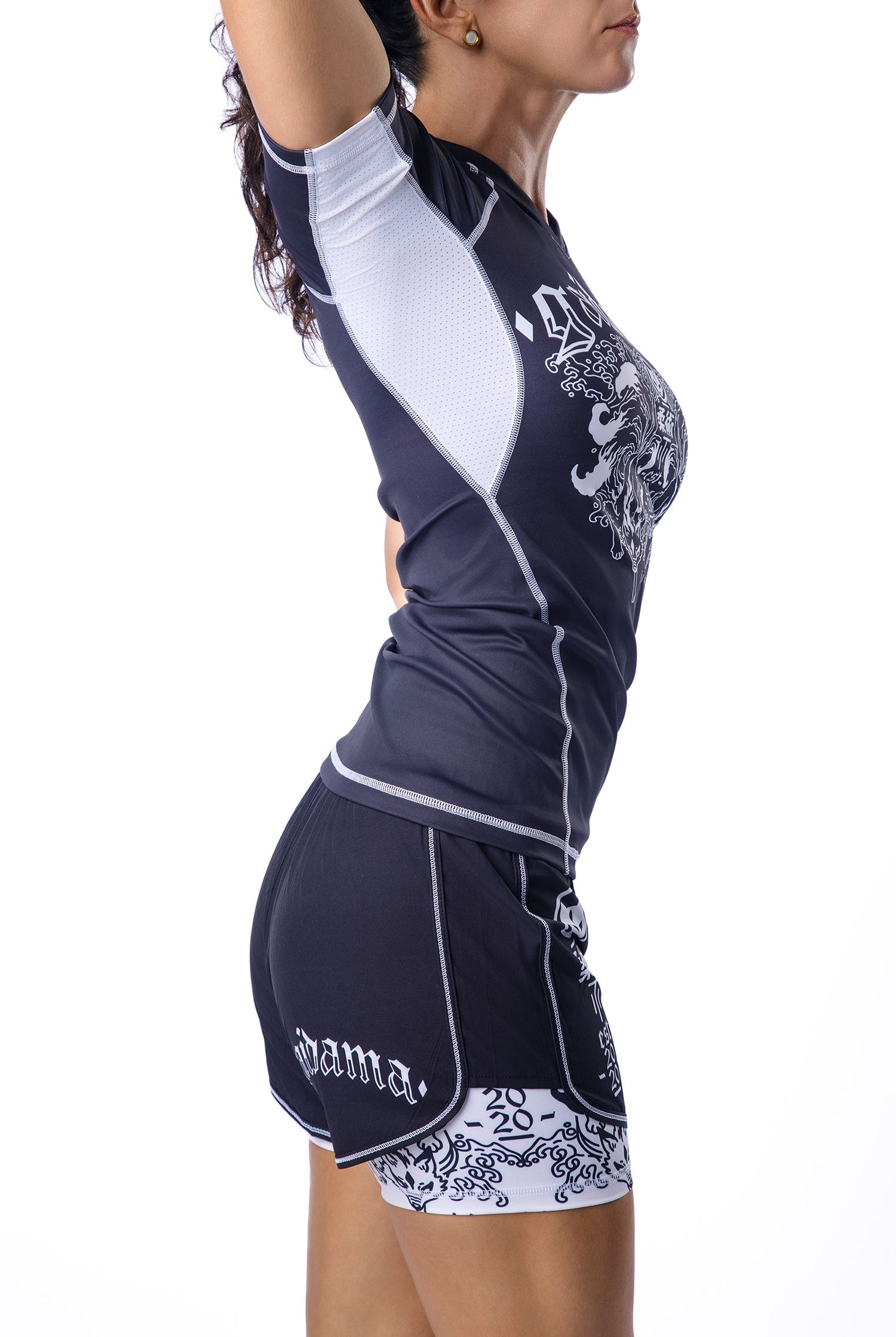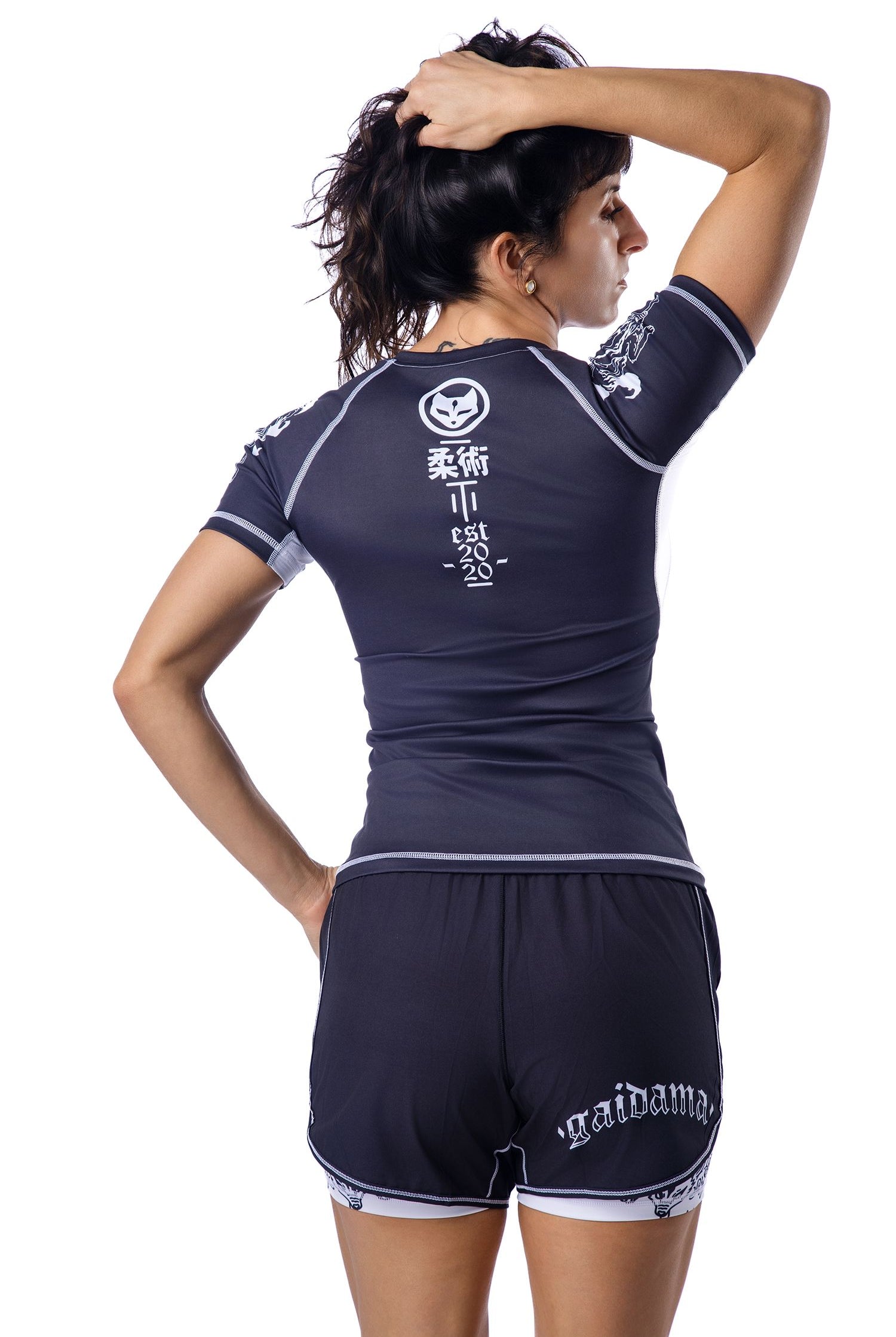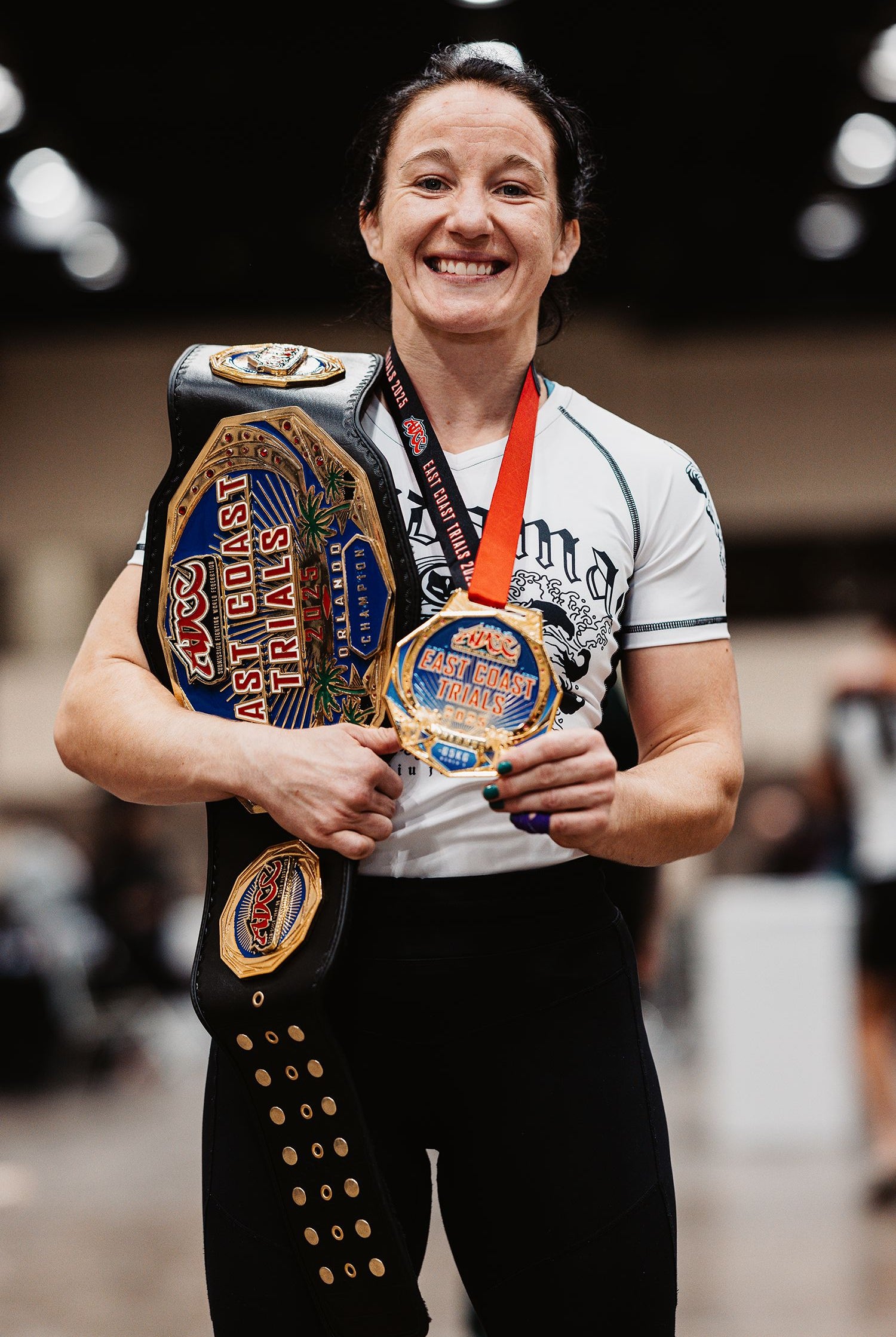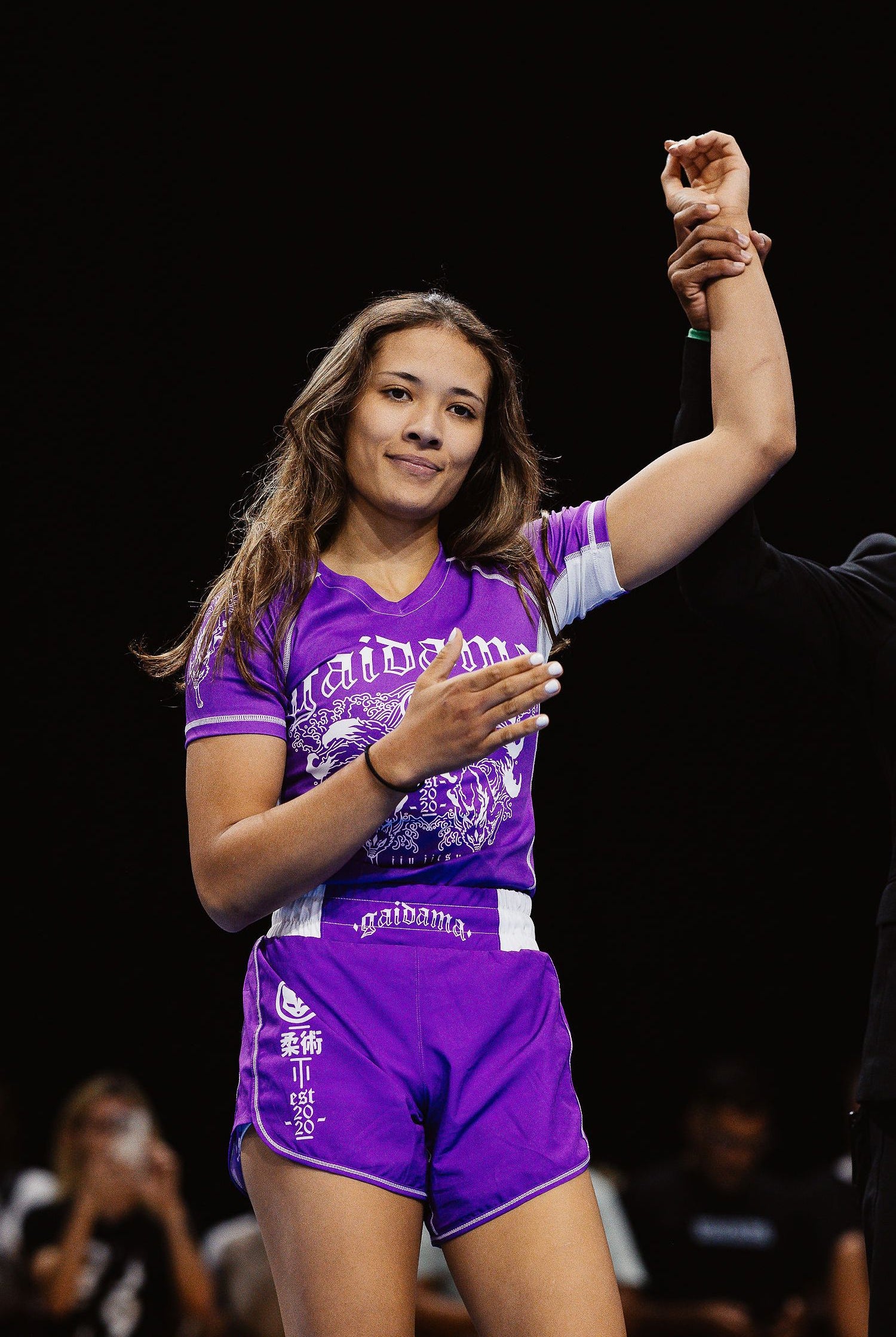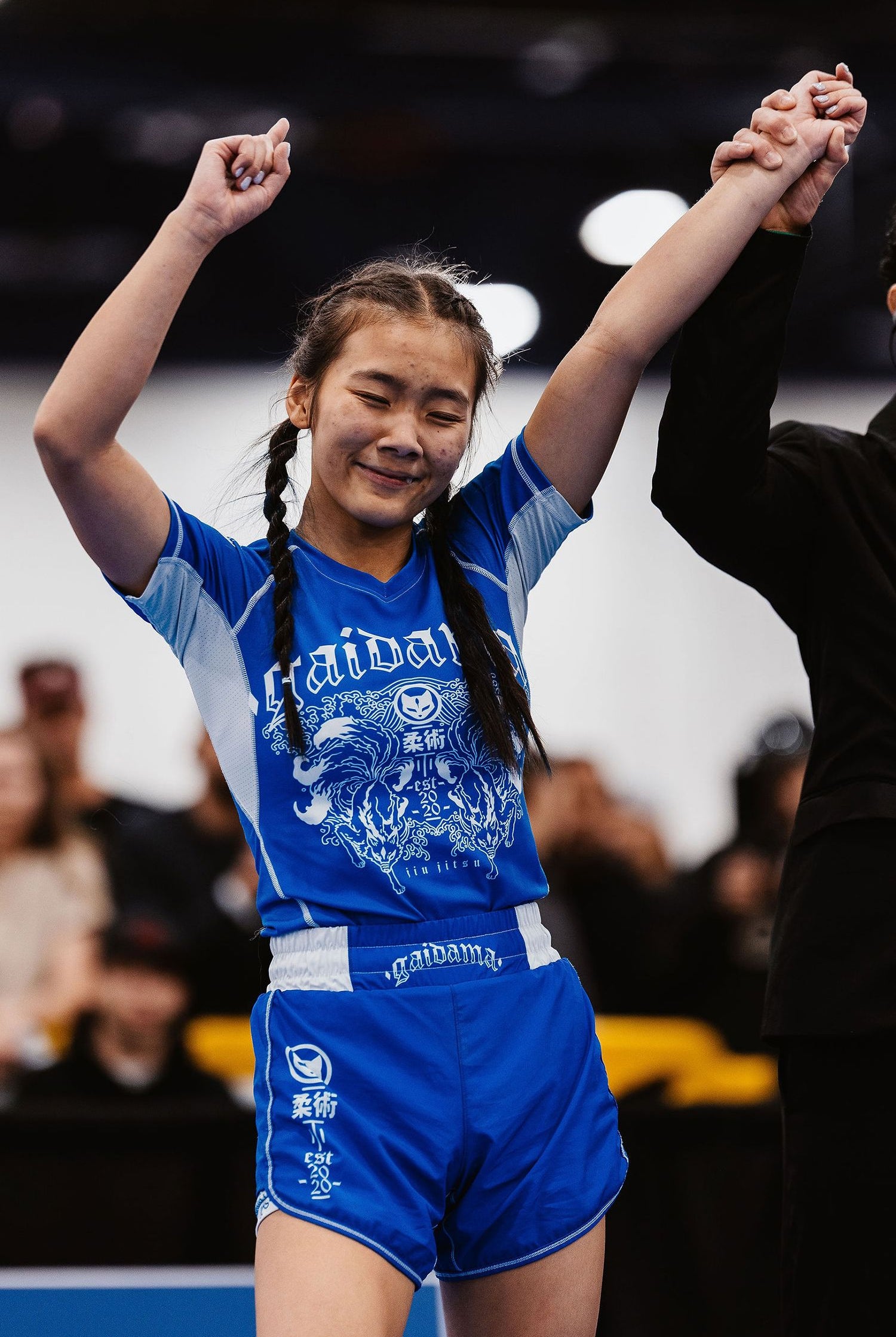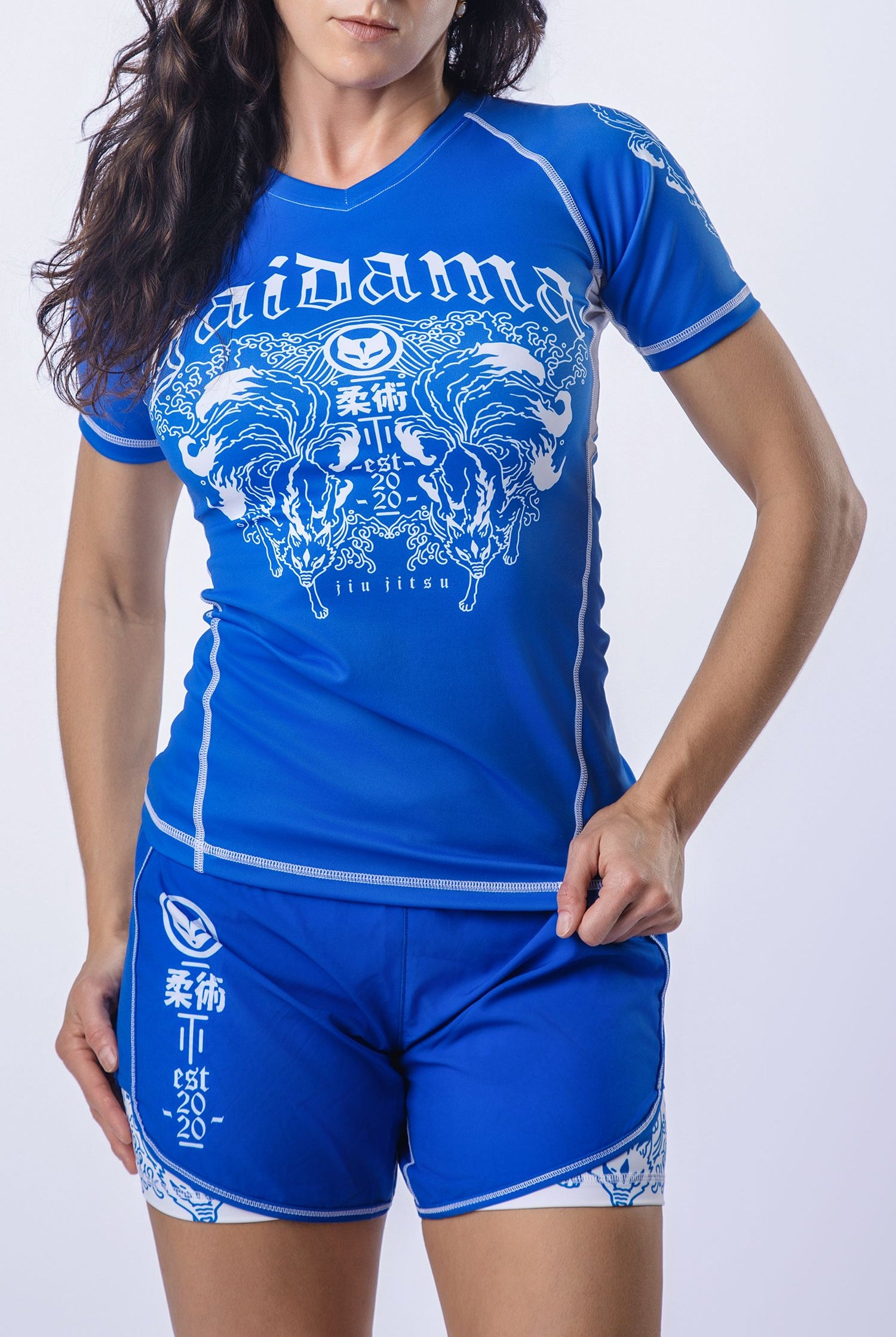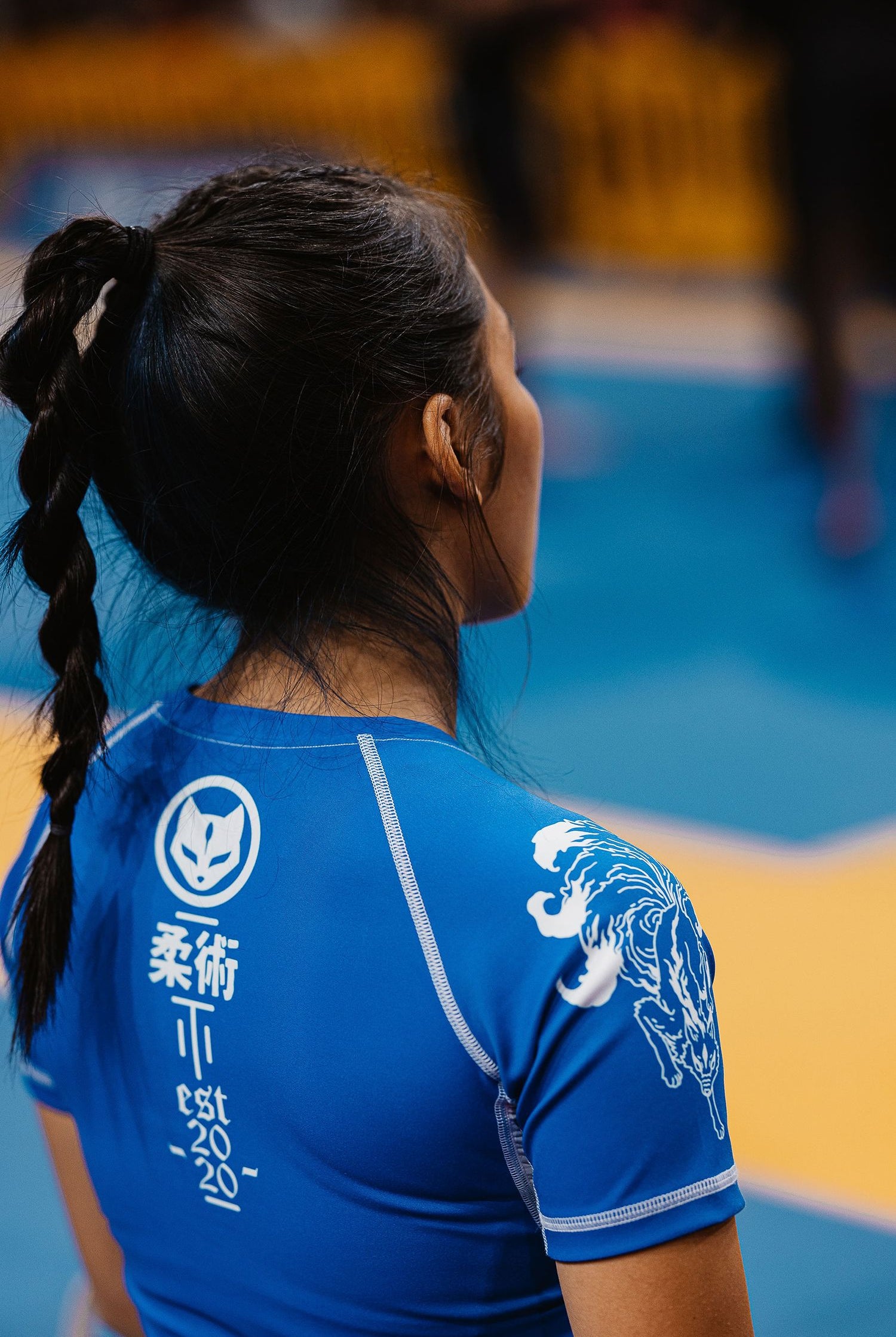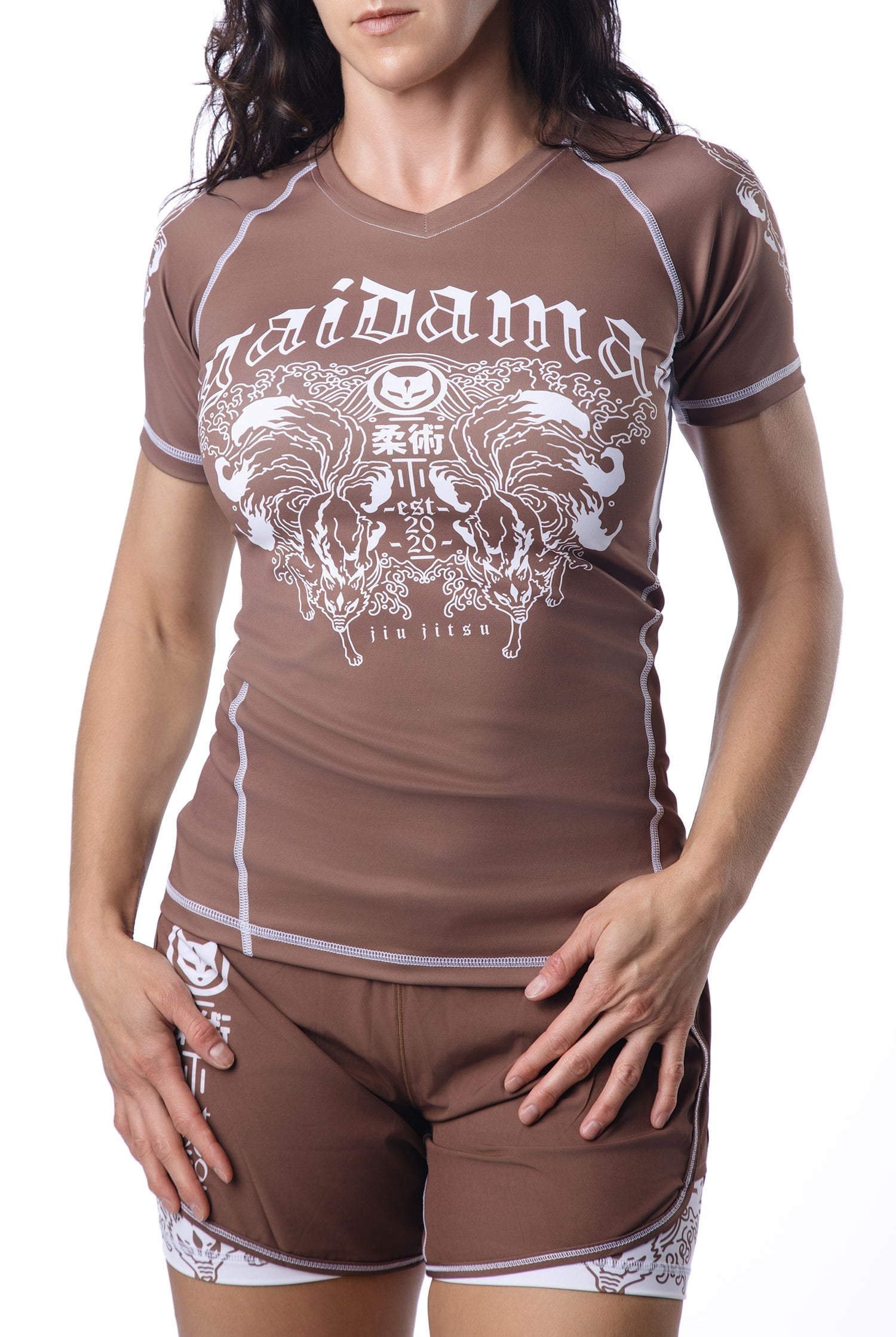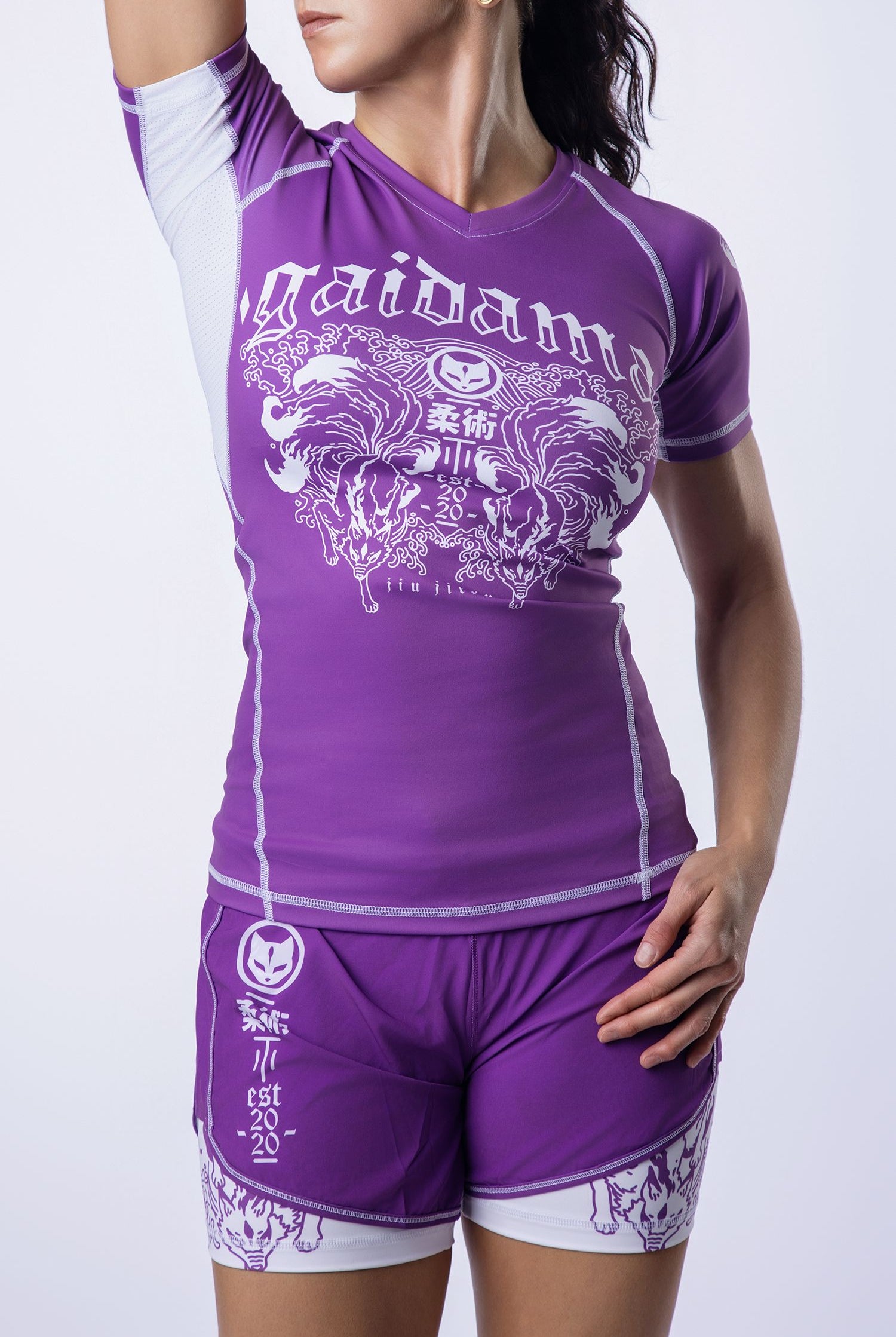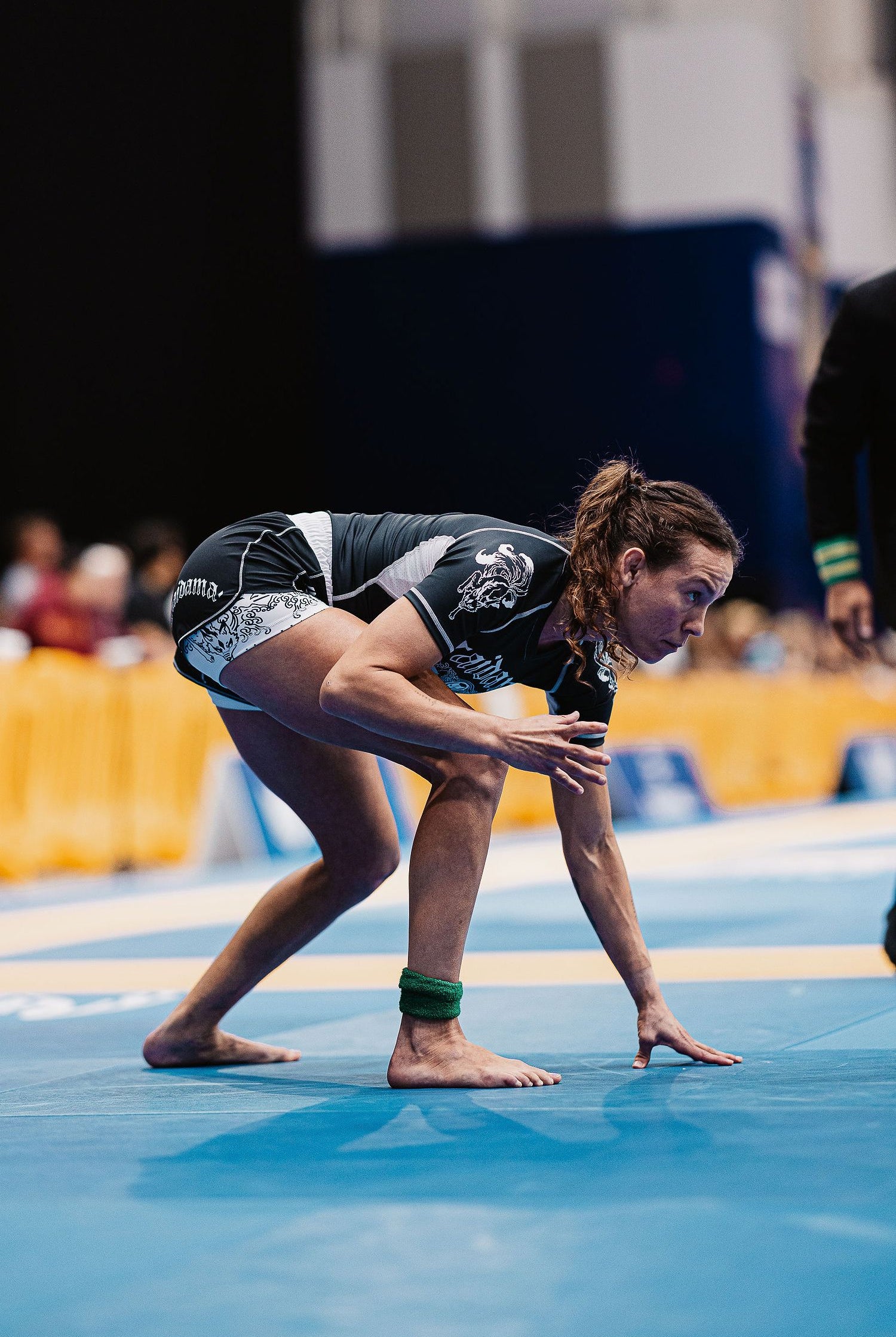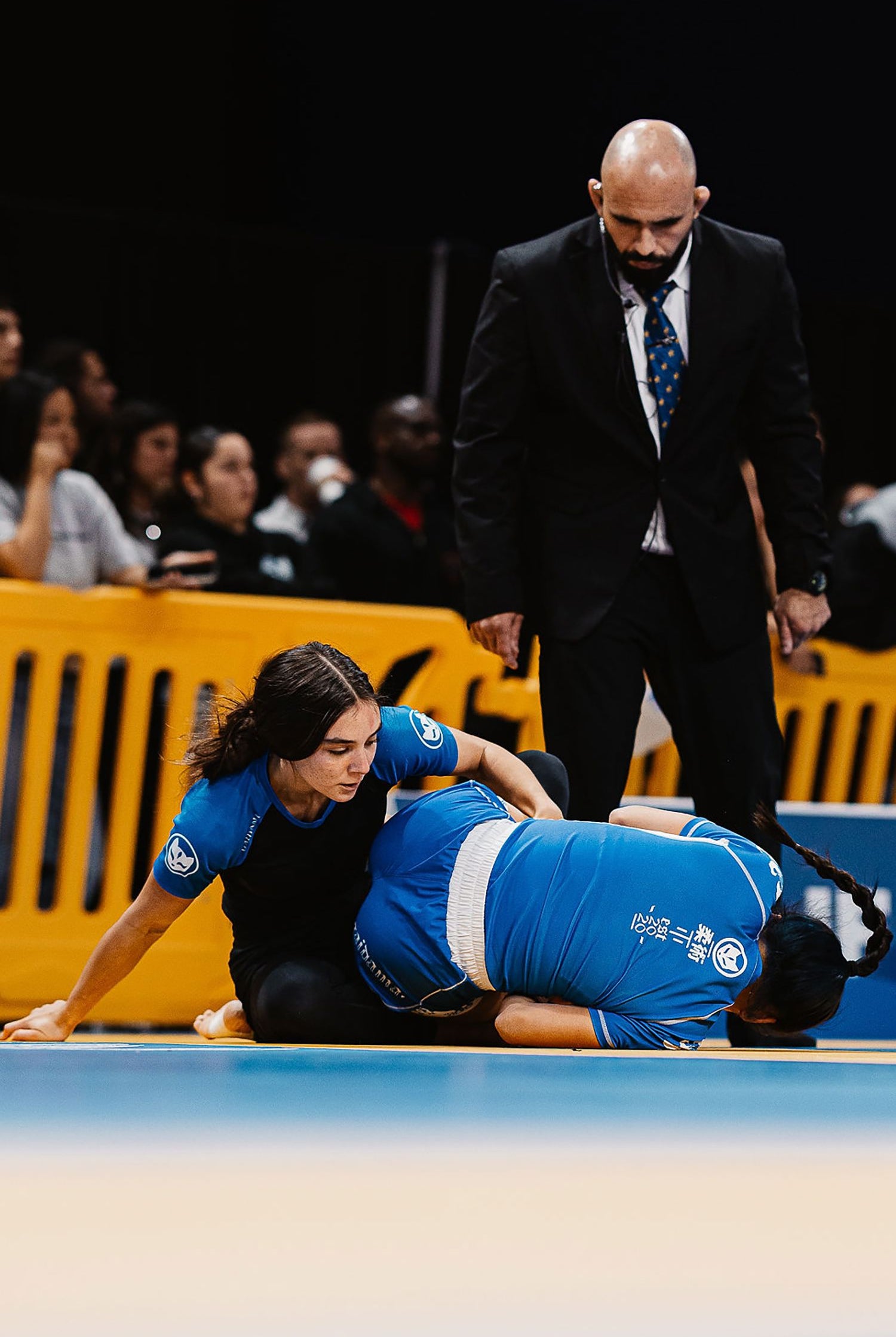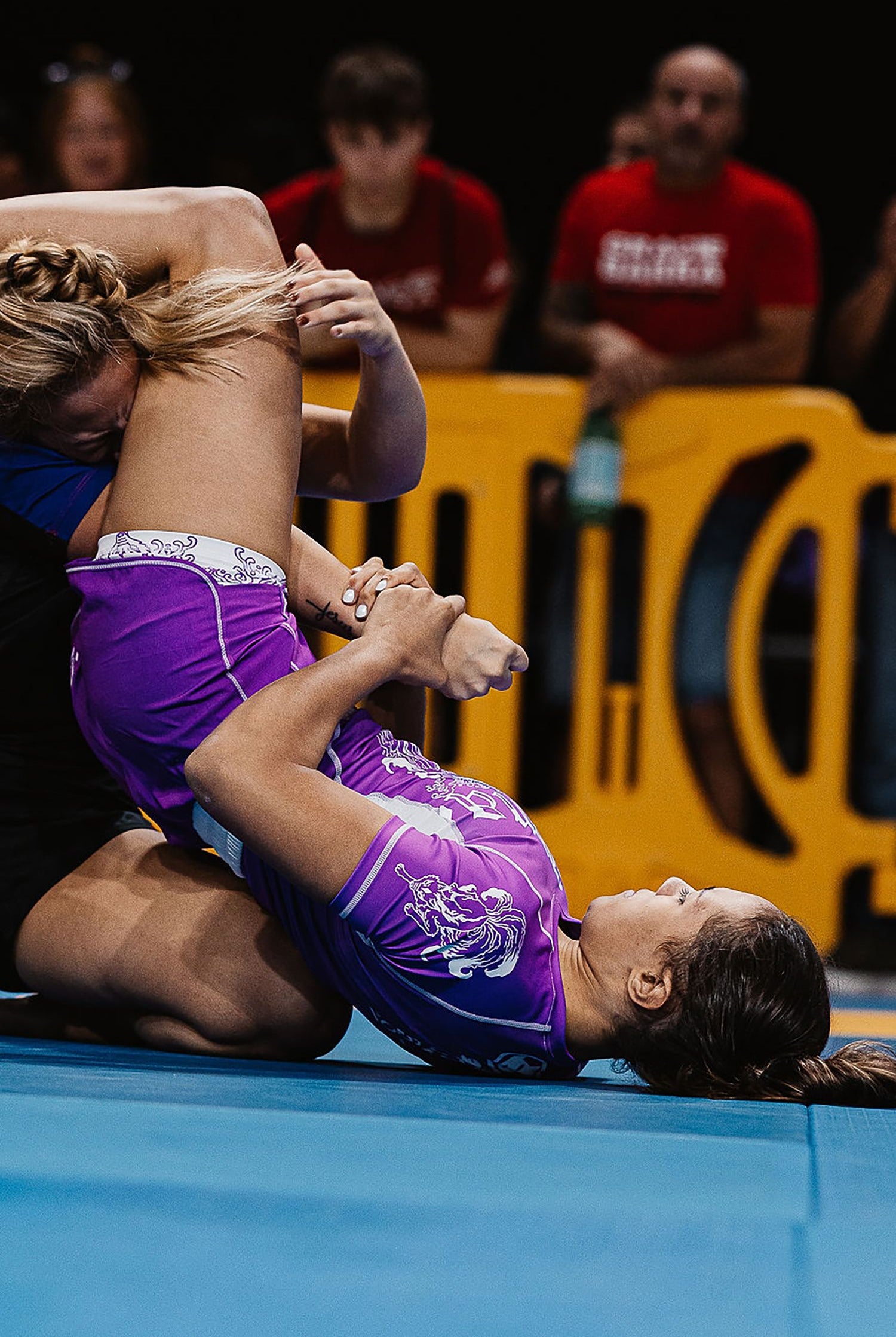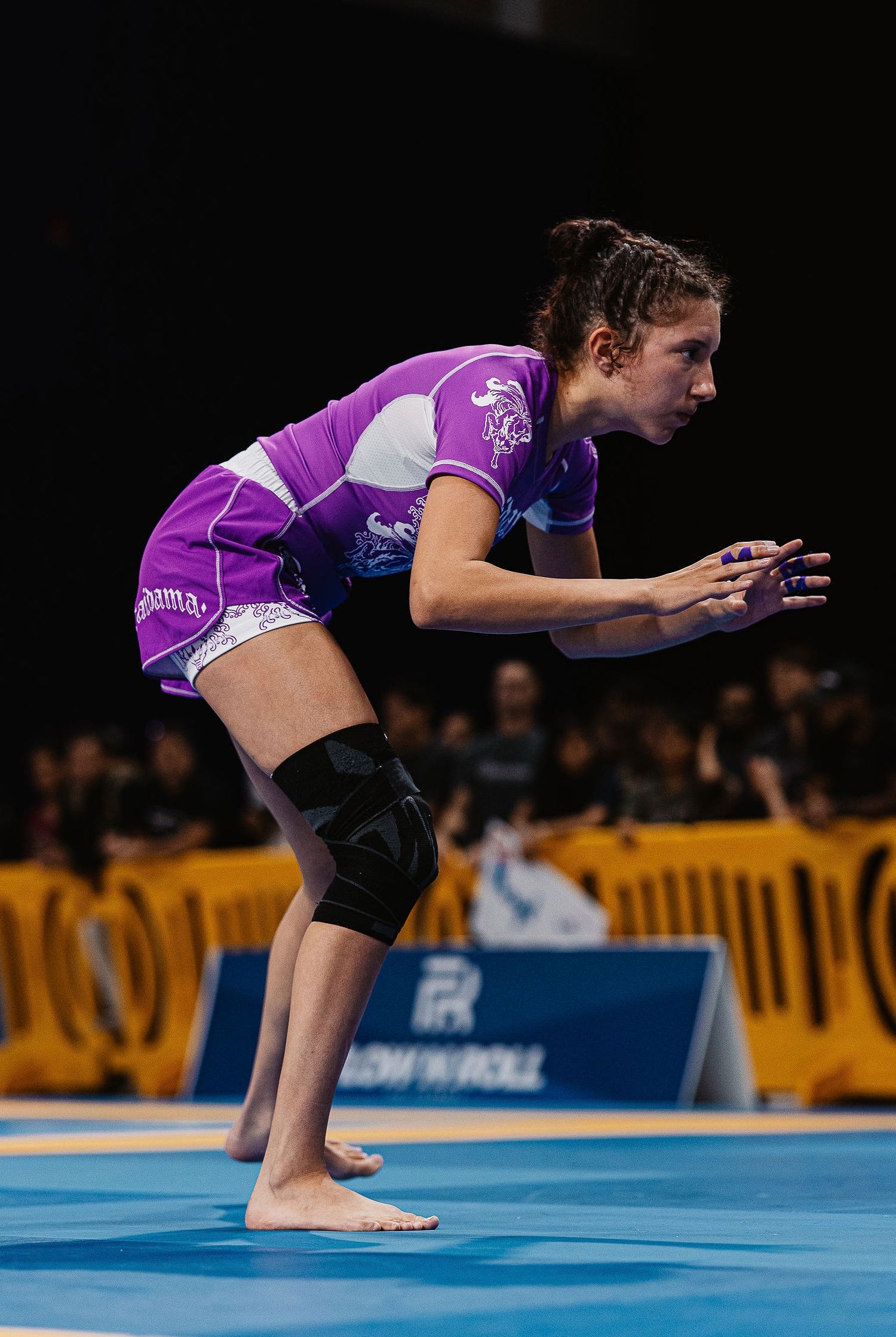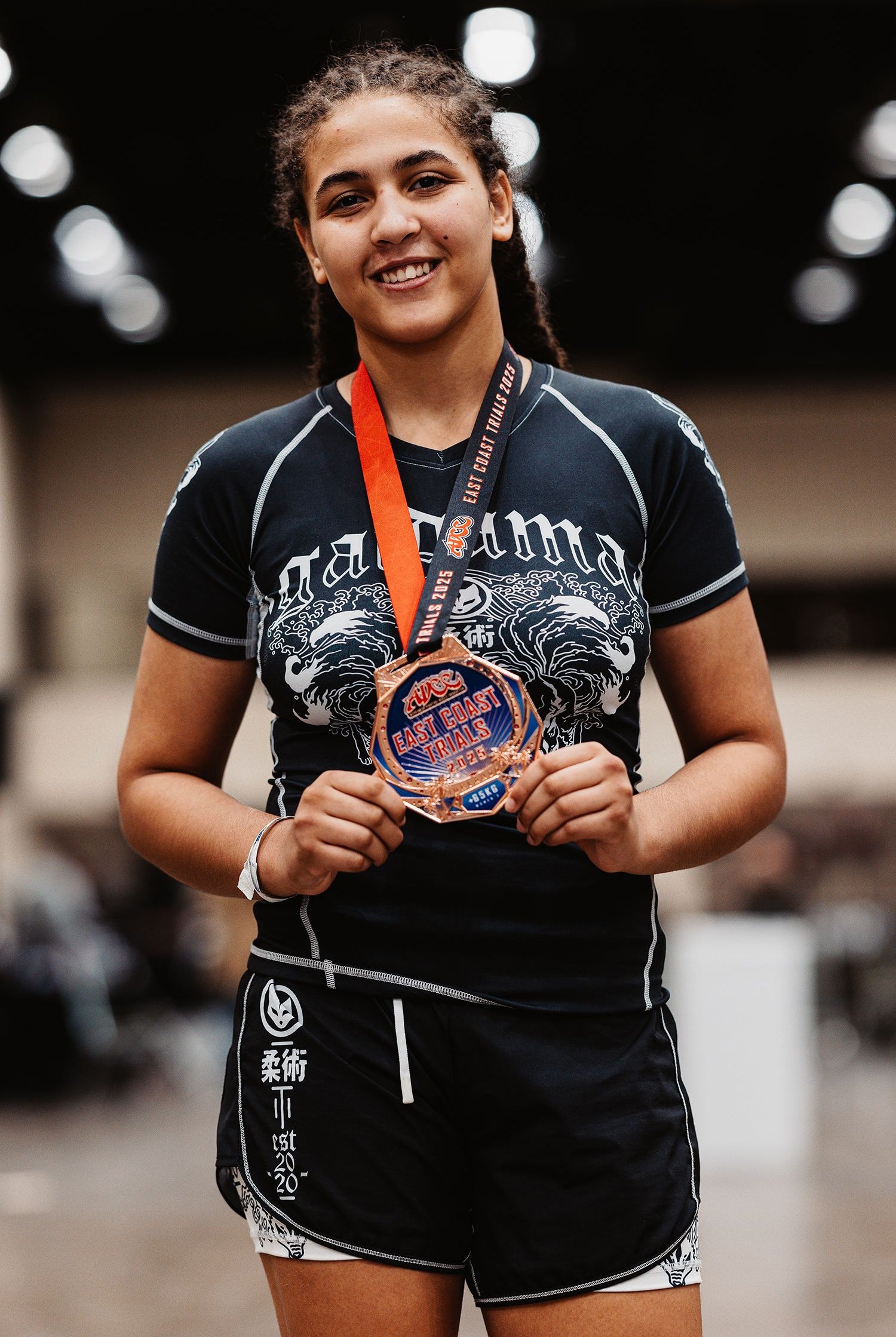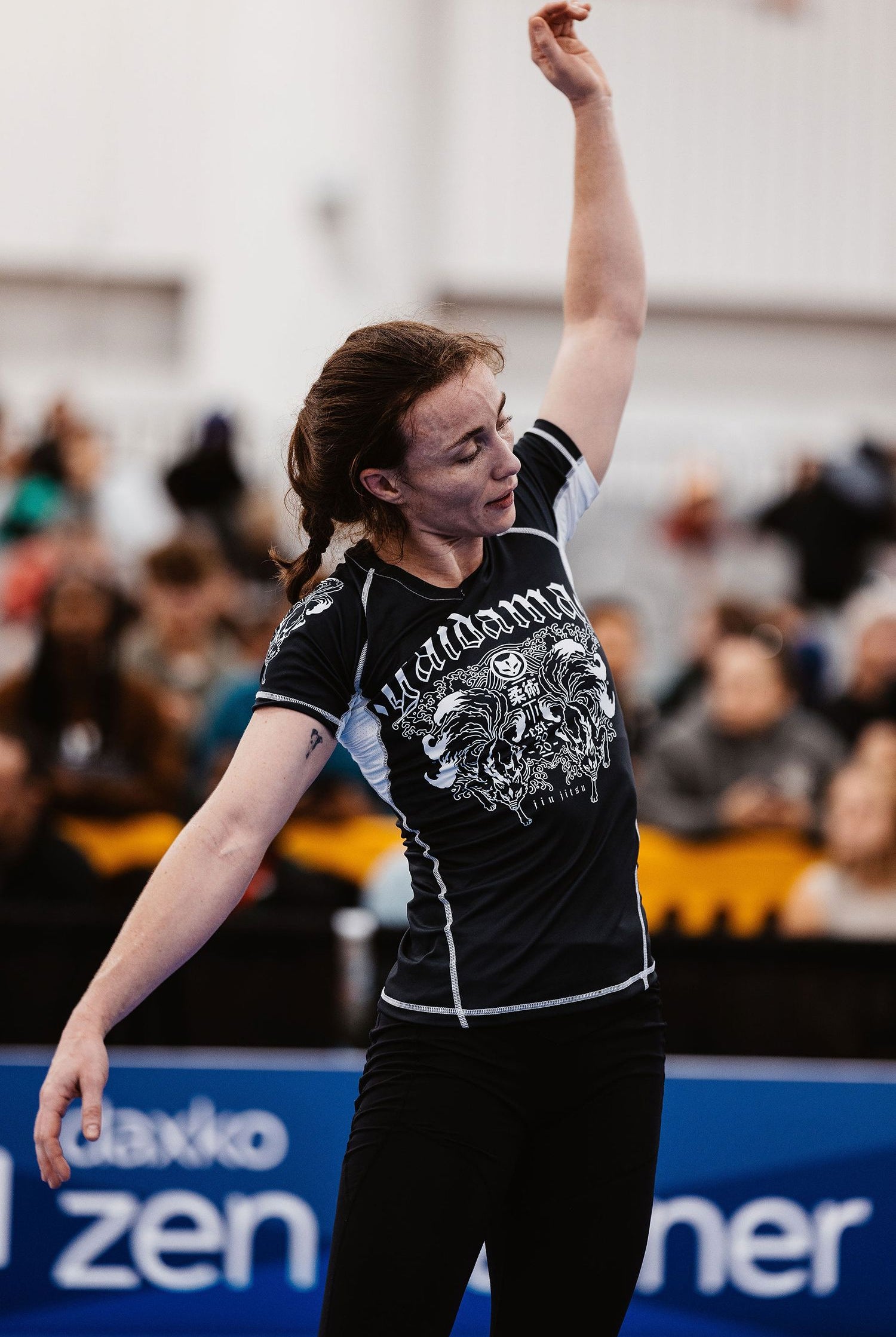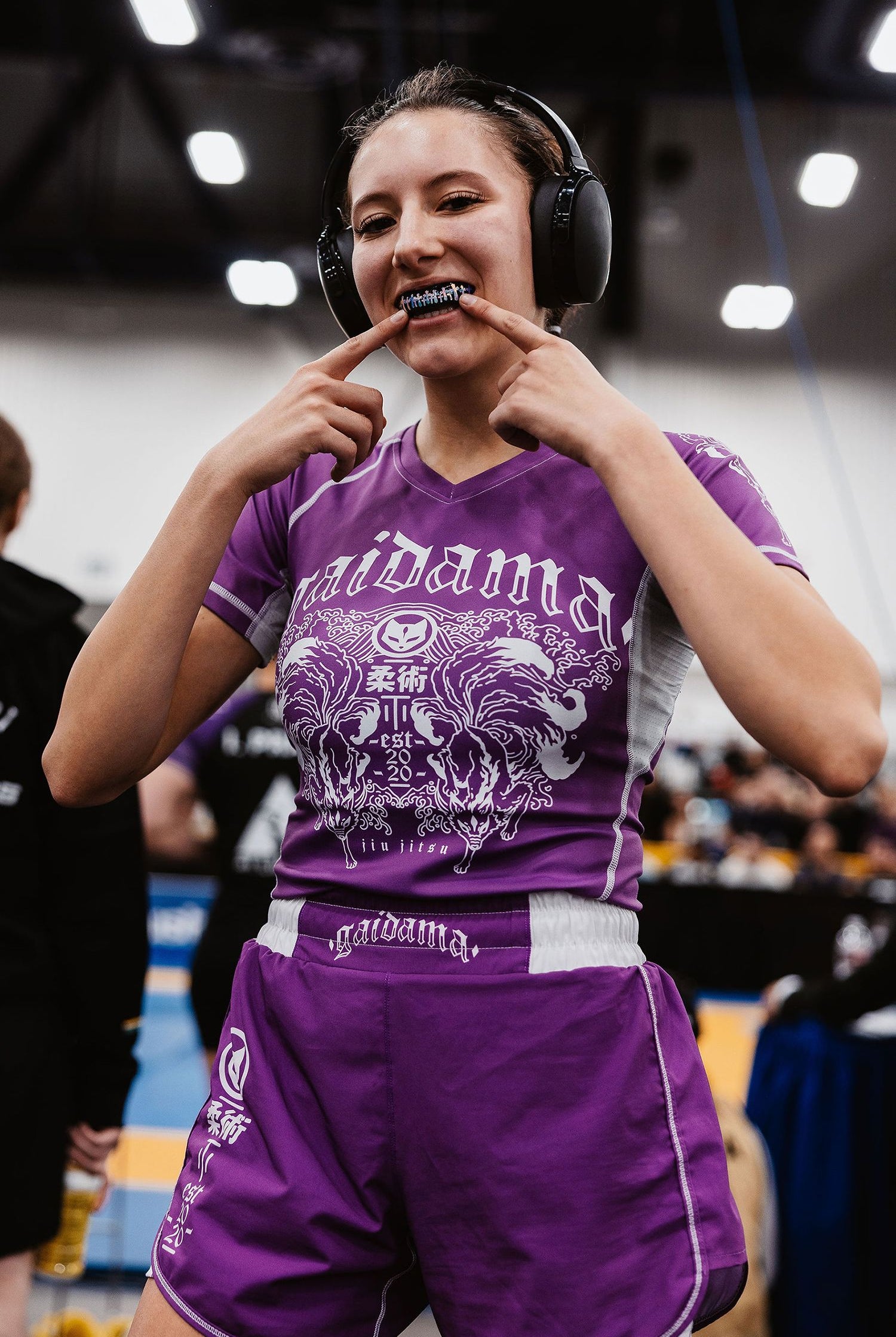When Spanish-born Ana Mayordomo – clad in a strikingly bright, tennis white Gaidama set – secured her victory at the 2025 ADCC European Trials, she struck gold not just for herself, but for her home country.
ADCC European Trials, as it so happens, took place during the same weekend as the 2025 US Open, a Grand Slam tournament in professional tennis. Mayordomo, a lifelong tennis fan, was delighted to discover that her fellow Spaniard, competitive tennis player Carlos Alcaraz, conquered the US Open the same weekend she took home ADCC Trials gold.
She compares the experience to winning Wimbledon, another Grand Slam tournament in the tennis world. Wimbledon, the oldest and arguably most prestigious event in competitive tennis, famously adheres to an all-white dress code, which Mayordomo channeled through Gaidama’s signature “whiteout” set.
“It really did feel like Wimbledon weekend," she tells me. "It was a weekend for Spain, and it was a weekend for white.”
In a similar vein to Wimbledon competitors, Mayordomo reserves her whiteout set for special occasions in jiu-jitsu. “I never thought I was a white kit kind of girlie,” she confides, “but at Trials, I wore it, and honestly, it’s so clean. It is one of those things where you kind of have to use it on special occasions, or else it kind of just, in a way, loses that special nature. As well as, you know, I don’t want to be doing laundry all that much,” she adds with a laugh. “With the white stuff, I always have to split it off into a different load, and it’s just a bit of extra time.”
For someone who, within a month’s time, conquered three of the most prestigious events in modern jiu-jitsu competition – an ADCC Trials, a UFC BJJ card, and most recently, the adult black belt division of IBJJF No-Gi Pans – Mayordomo speaks with a breezy approachability.
“I want to keep it real,” she explains to me. “All the different personas in jiu-jitsu play a different role, and I think that being a genuine person – kind of quirky, just the way I am – is something that a lot of people can relate to.”
She’s proud of her big wins, but quick to contextualize them within a longer, more complex journey. “This was the result of a lot of years of work,” Mayordomo says of her hat-trick victory on three of jiu-jitsu’s biggest world stages. “A lot of heartbreak, a lot of trial and error, a lot of leaning on my people.”
Though Mayordomo moved from Spain to Denver, Colorado with her family at the age of thirteen, she’s proud to be one of the few elite jiu-jitsu athletes repping the Spanish flag. “I go back home [to Spain] very often,” she shares. “My entire family is Spanish. I lived there for half my life, during very formative years, so definitely, that’s home for me. I go back a few times a year, and I’ve always had great ties with the jiu-jitsu community there.”
How does it feel to represent her country in such a rapidly growing sport?
“It’s definitely a growing scene – it’s not as developed as [the scene in] the US, but you’re definitely seeing a lot of hubs growing, and a lot of enthusiasm around the sport, so that’s something that’s really special to me,” says Mayordomo. “And I do find it really special to kind of represent Spain in a way. That wasn’t necessarily my intention, but I do think that now, as I’ve ‘boomed’ a little online – and I don’t want to overplay it!” she interjects with a laugh, “– but Spanish media has really covered me very thoroughly. There’s all these articles coming out on me, and interviews, and whatnot.
“I do think that, in a way, some people see me as an example in Spain, and that is totally an honor for me.”
It’s part of what made winning an ADCC Trials event – in the same weekend a fellow Spaniard took home a US Open title on the tennis courts – so special for Mayordomo on a personal level.
Twenty-five-year-old Mayordomo, who began training jiu-jitsu a little before her seventeenth birthday, got a relatively early start in the sport, especially by the average hobbyist’s standards. However, compared to some of her competitive adult black belt peers in the current game – the Funegra sisters of AOJ, for example, as well as Helena Crevar of New Wave and Sarah Galvao of Atos – she’s considered a later starter.
“I was not one of these child prodigies,” she tells me. “When I was a juvenile, I only competed in Juvenile 2 in IBJJF, as a white belt. I only did one tournament as a juvenile, as a white belt, under IBJJF.”
“We’ve known about child prodigies basically since they were blue belts – when they start entering local tournaments against adults and whatnot,” she elaborates. “I definitely wasn’t that!”
As such, despite her comparatively early start, it’s taken Mayordomo a while to feel truly comfortable in the spotlight. “For a long time, I really shied away from putting myself out there,” she confesses. However, as she’s aged into success and become an increasingly visible athlete on the global scene, she’s found herself thinking more deliberately about her public persona.
“I do think that everything I’m putting out there is genuine – I can’t play a role,” Mayordomo admits. “That’s just not something I can sustain. And ultimately, I do want people to see me as genuine. I do want to be honest, and I also want to show that there are so many different paths you can take to achieve your goals.”
Mayordomo herself, for example, earned a full ride to university, and completed three bachelors’ degrees while training jiu-jitsu part time. Today, she currently balances her training load with a full-time job. It’s a very different journey from that of full-time athletes who have skipped higher education entirely in favor of the mats. And while Mayordomo respects that path for what it is, she simply walks to a different beat.
Furthermore, despite starting as a teenager, she was a self-described late bloomer. “I was not a child prodigy, I was not an athletic kid, and I did not wrestle when I was little,” she tells me with characteristically cheery frankness, adding, “I just want to show that there are different ways to be successful.”
It helps that she’s not walking that path alone. Mayordomo names Mo Black, Brianna Ste-Marie, and Adam Wardziński as personal heroes of hers: athletes who emulate the very example she hopes to set.
“I really admire their journeys,” says Mayordomo. “I identify with their journeys – the fact that they started later, that they didn’t have an early childhood background in jiu-jitsu or wrestling, that they started at a similar age to me.”
Mo Black in particular happens to be a fellow Gaidama athlete – as well as a fellow Colorado girl. “Seeing Mo Black – who’s also Colorado-bred – come up, she’s just always been an example to me, even before I knew her,” says Mayordomo. “Now that I know her, she’s a really dear friend of mine, and I admire her even more. I felt that she always just represented both the brand and herself really well. So, Mo was a big reason why I was even aware of Gaidama.”
However, it actually took Mayordomo a while to feel comfortable putting herself up for sponsorship consideration with the fox team.
“I just had this attitude of like, ‘Man, who am I to put myself out there for a sponsorship?’” she remembers with a self-deprecating laugh. “Because at the end of the day, when you’re not really at the elite level yet, you do have to do a bit of outreach, and I wasn’t particularly good at it. Well, not that I wasn’t good at it,” she amends, a little sheepishly, “I just didn’t do it!”
Gaidama signed Mayordomo after she won No-Gi Pans in the adult brown belt division in 2024, fresh off an injury-induced layoff from competition that had sidelined Mayordomo for roughly a year.
At the time, despite already having several major titles at the adult colored belts to her name, she was largely outside the public eye of the jiu-jitsu scene. “I wasn’t like a nobody in the colored belts,” says Mayordomo, “but I think I was very inconsistent, and overall just one of these people that yes, had titles to her name, but also wasn’t particularly keen on promoting myself.”
Mayordomo credits the Gaidama team with bringing her out of her shell. “Honestly, Karla [Shellhammer] and Kendall [Vernon] and everyone – and really, just working with Gaidama as a whole – has really helped me come into my own, especially in terms of showing who I am online,” says Mayordomo.
“I think Gaidama takes great care of its athletes,” she adds. “It’s run by really good people who care about the community and stand for their values. I mean, they literally financed a women’s absolute bracket at ADCC […] which really goes to show what kind of brand we’re working with.”
Is there a piece of Gaidama kit that Mayordomo’s got her eye on repping for her next competitive performance? She lights up immediately. “So, I had nothing to do with this set, and I really wish I could claim some credit – but it’s literally red and yellow, which are the colors of the Spanish flag,” says Mayordomo. “I was so bummed [when it came out] because right now on my competition schedule, I don’t really have anything lined up that will allow me to wear this!”
Nevertheless, Mayordomo’s determined to seize her first chance to rep a Spanish color-themed set – and doubtless, we’ll be seeing her in red and yellow the next time Spain’s latest jiu-jitsu phenom steps on to the competitive stage.
Want to channel your inner Ana Mayordomo? Shop her signature ADCC-winning whiteout set, or rep Spanish pride in the new red-and-gold G-Team set today.
EDITOR'S CORRECTION (Issued October 23, 2025): A previous version of this article stated that Spanish tennis player Carlos Alcaraz won Wimbledon, a tournament that took place the same weekend as the 2025 ADCC European Trials. This information has been corrected to reflect that the tournament Alcaraz won was the US Open, not Wimbledon.




